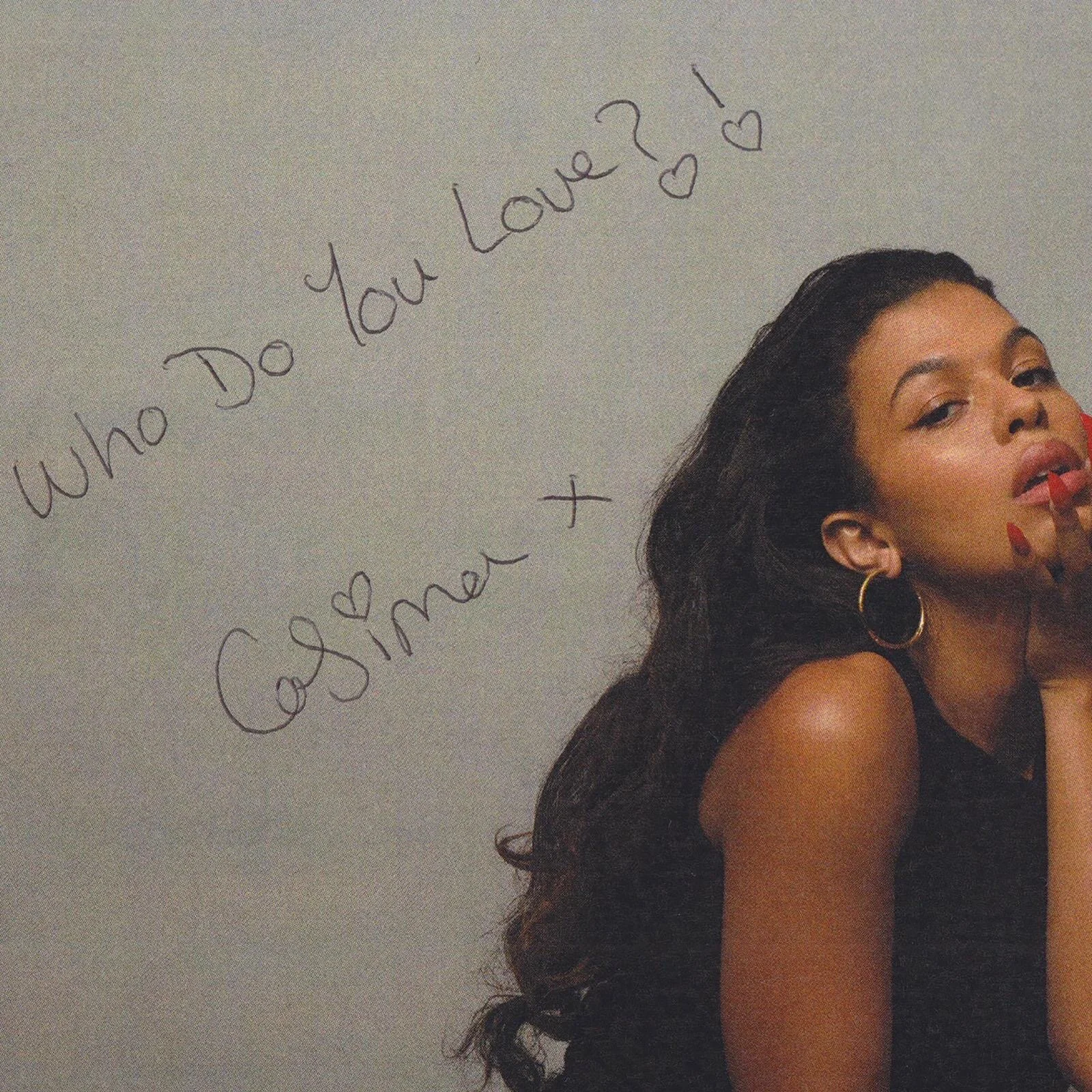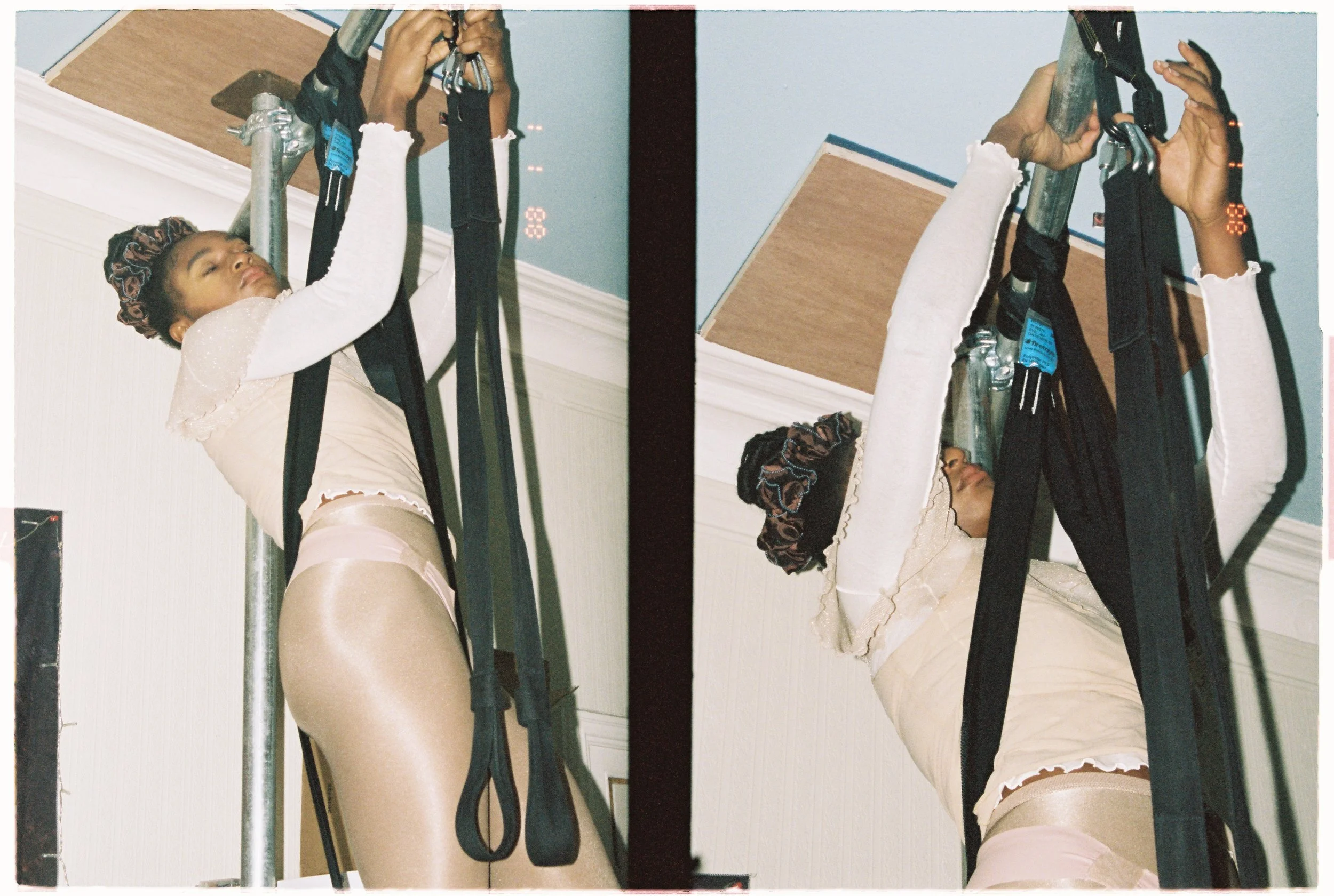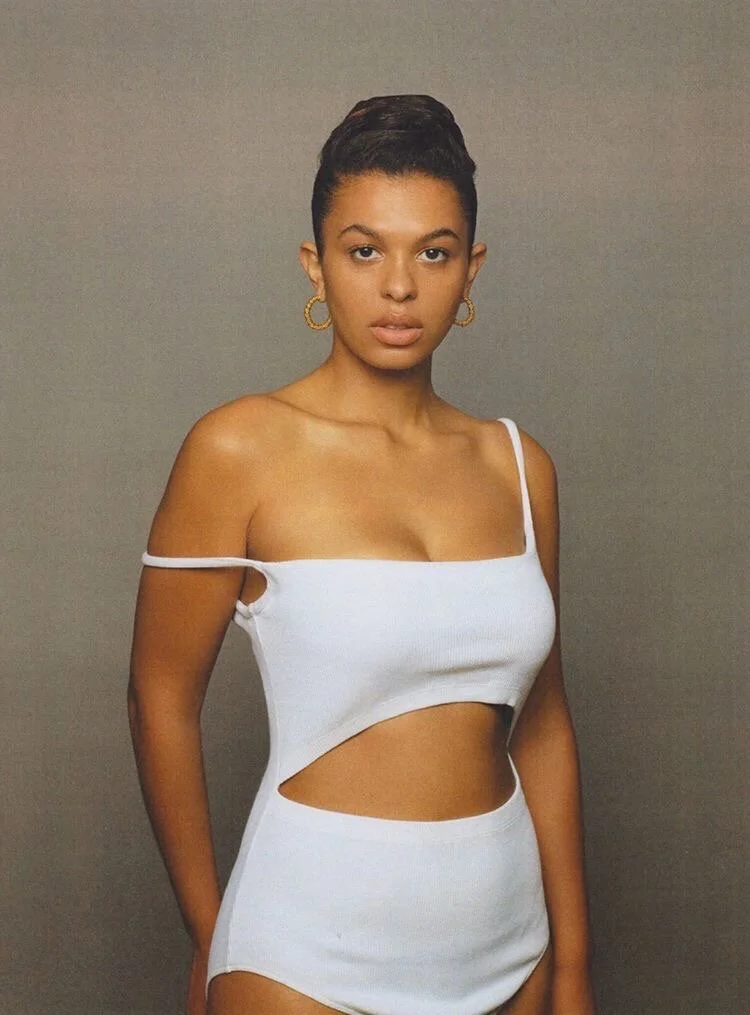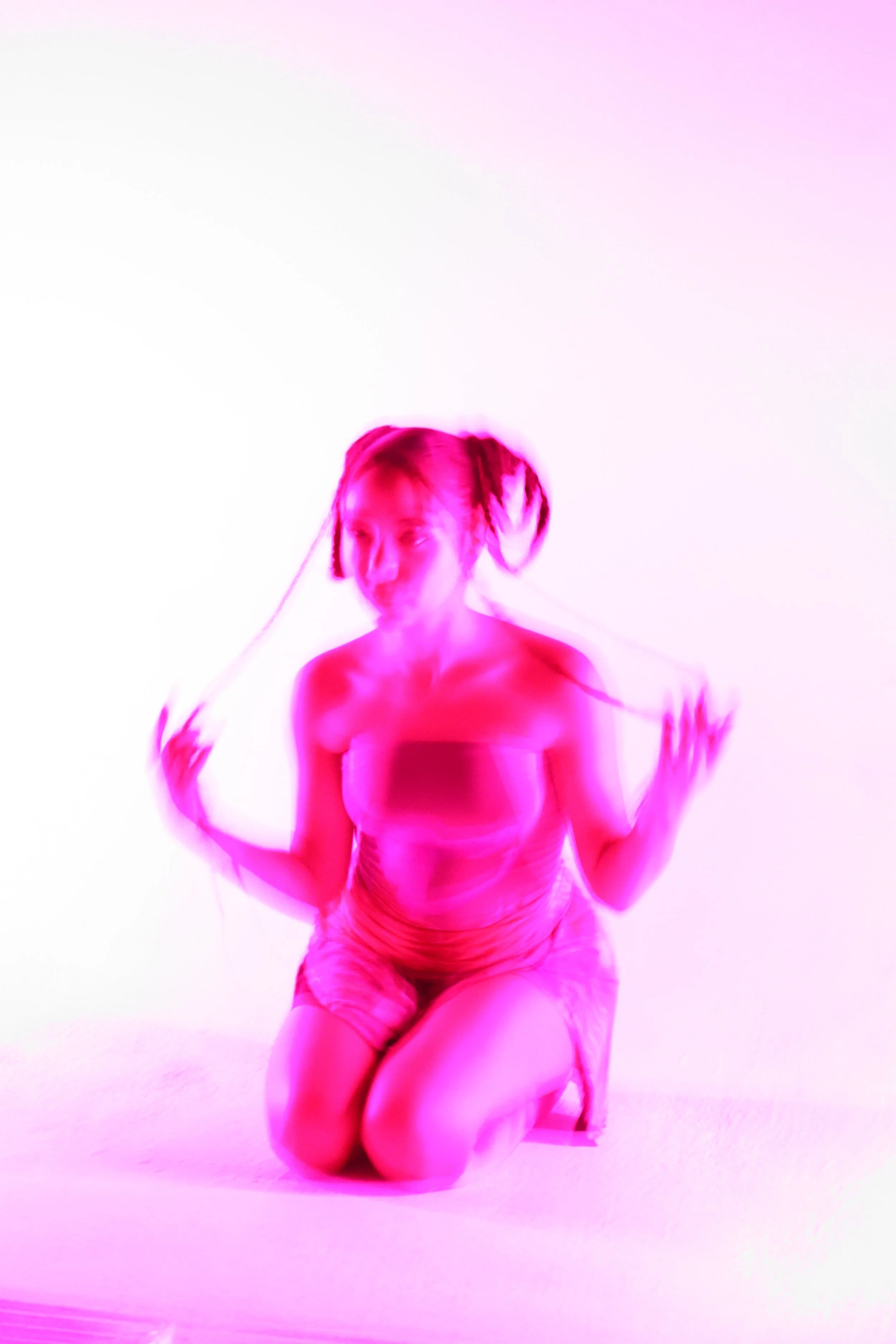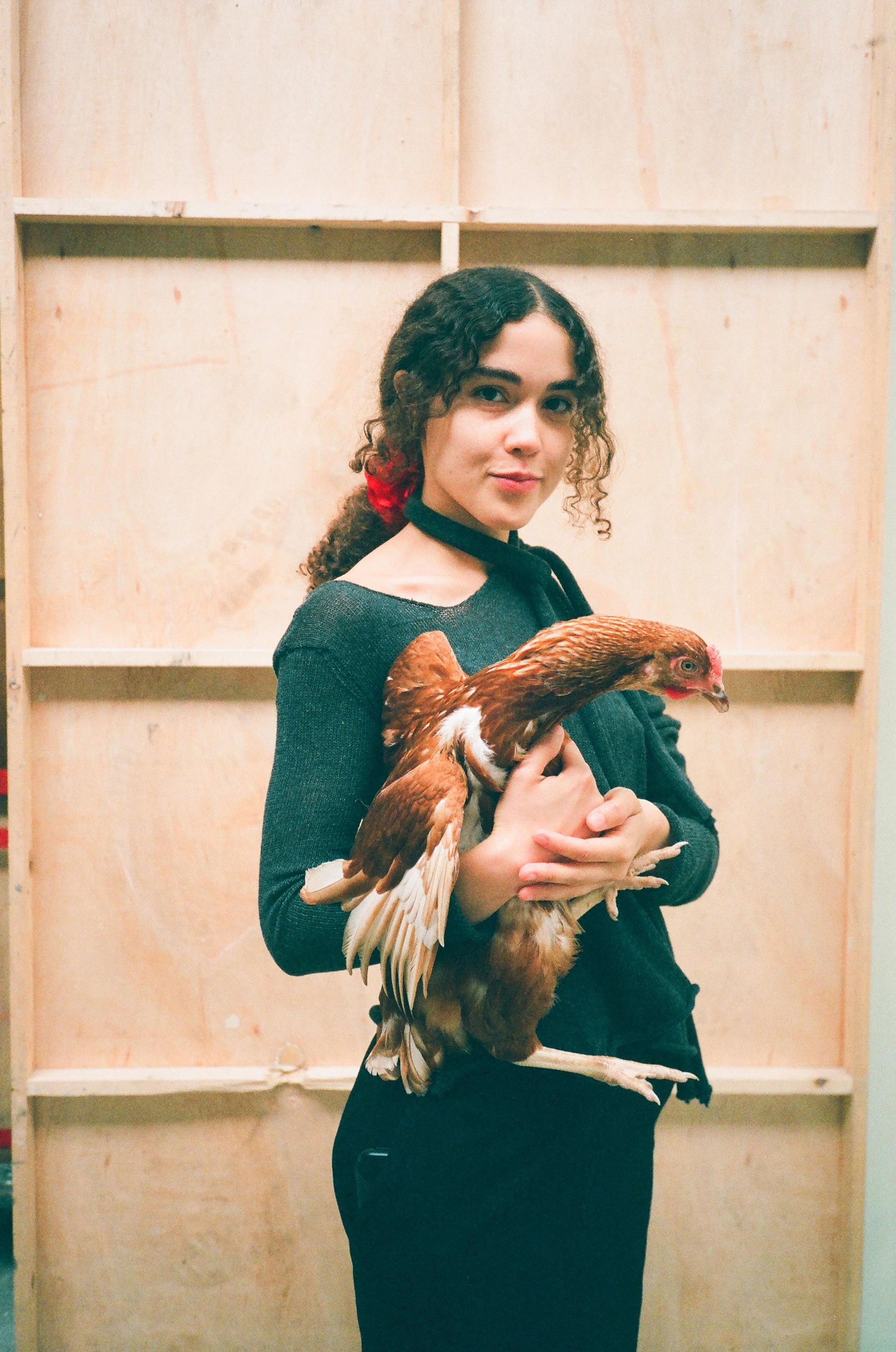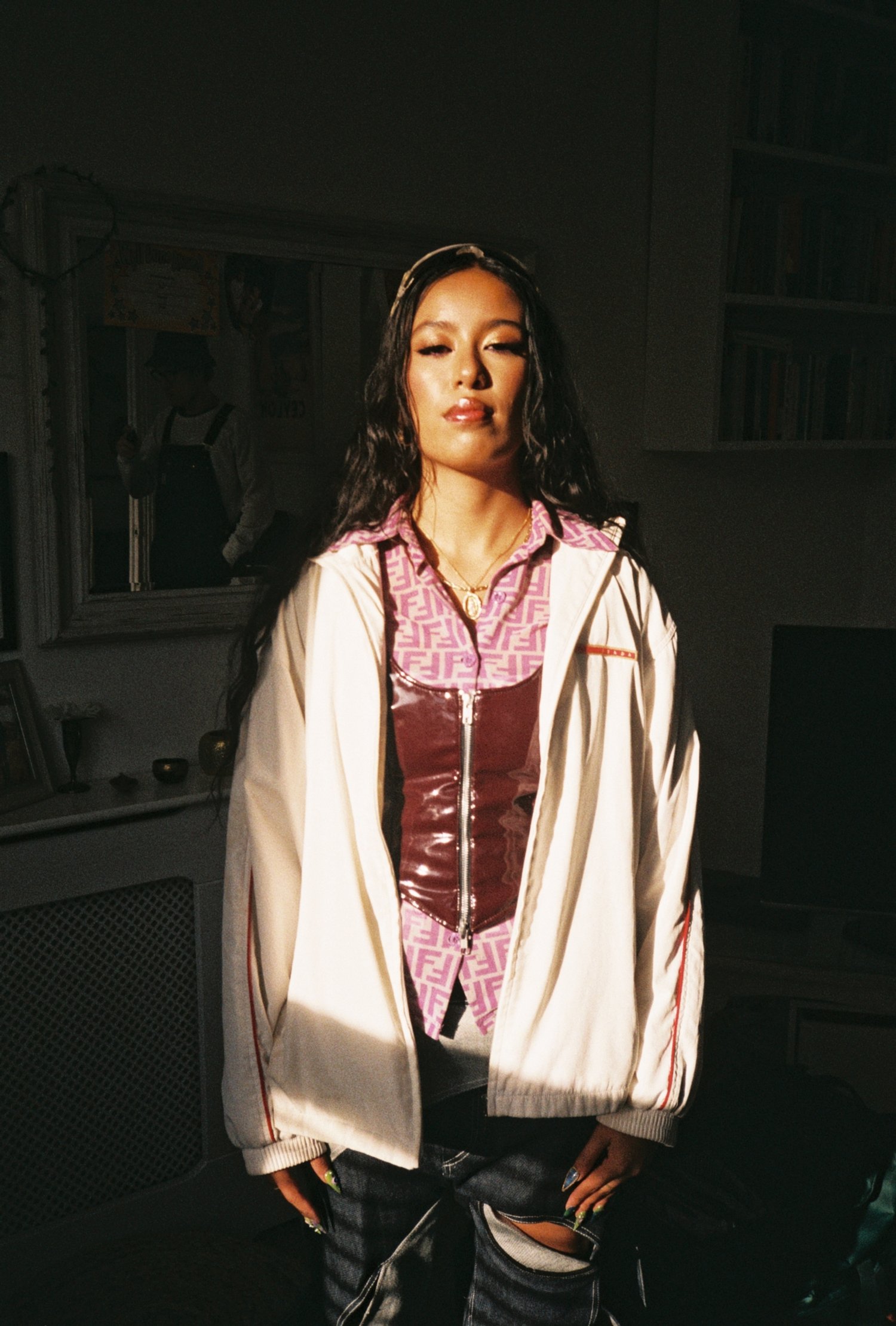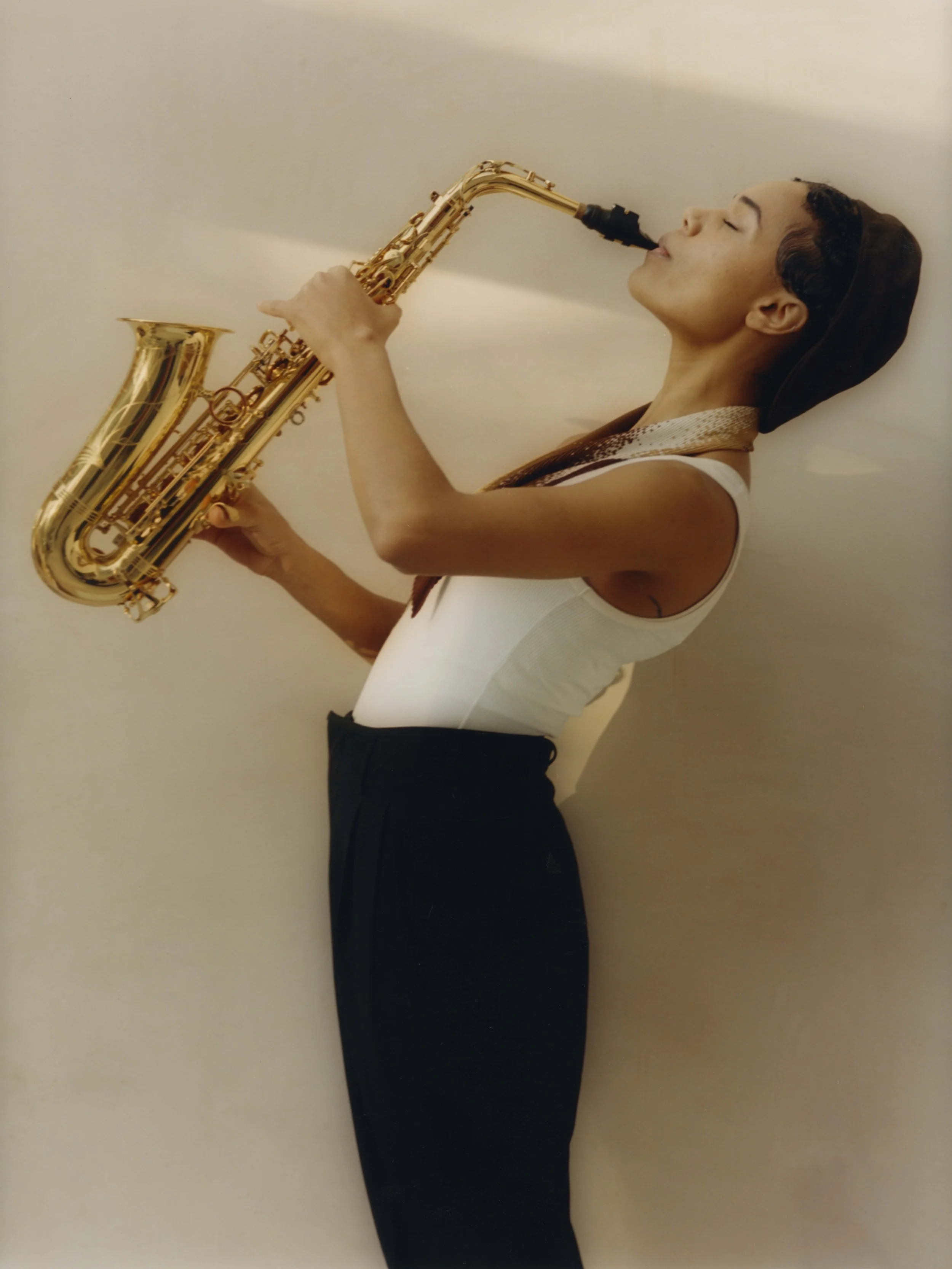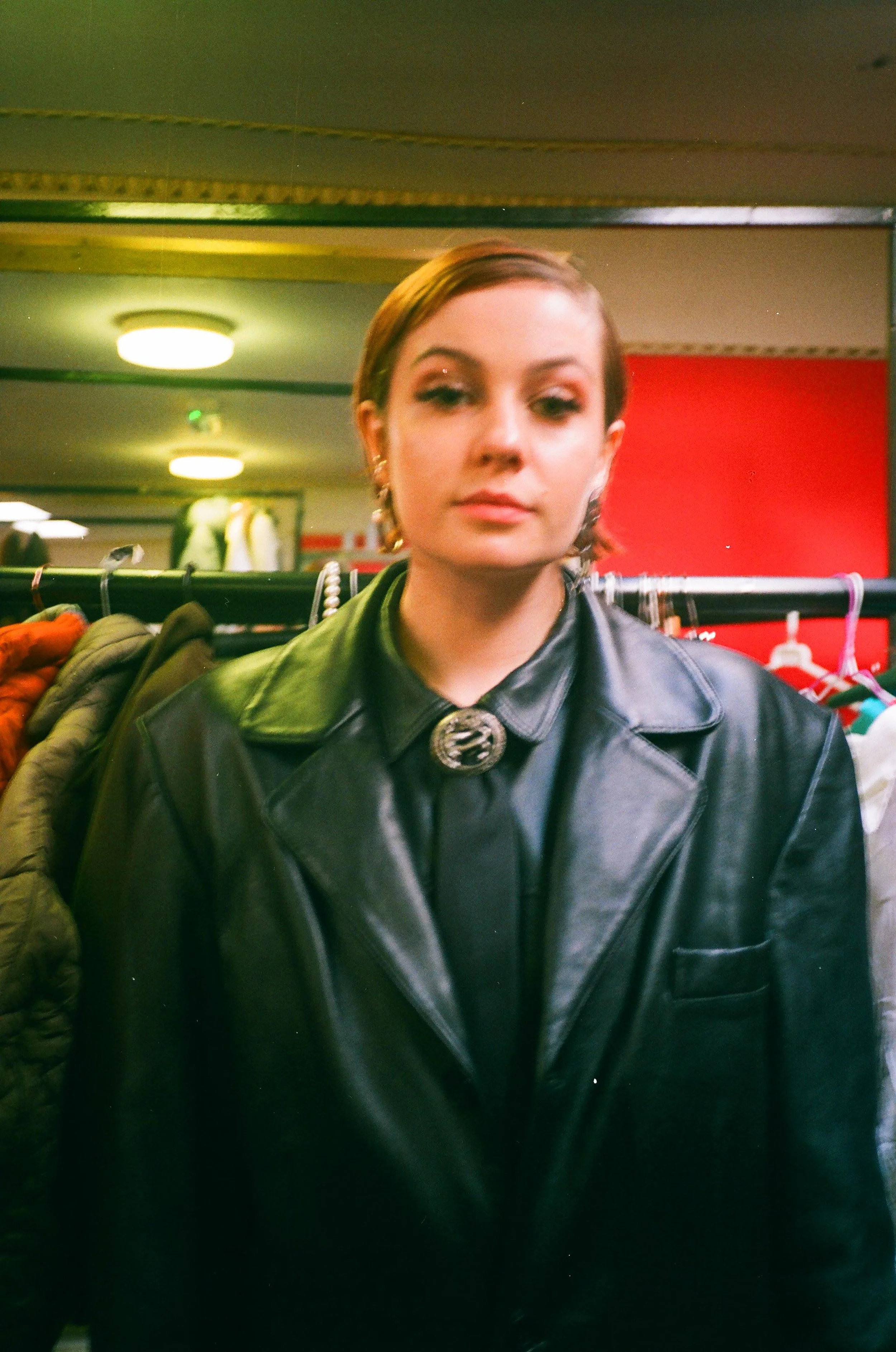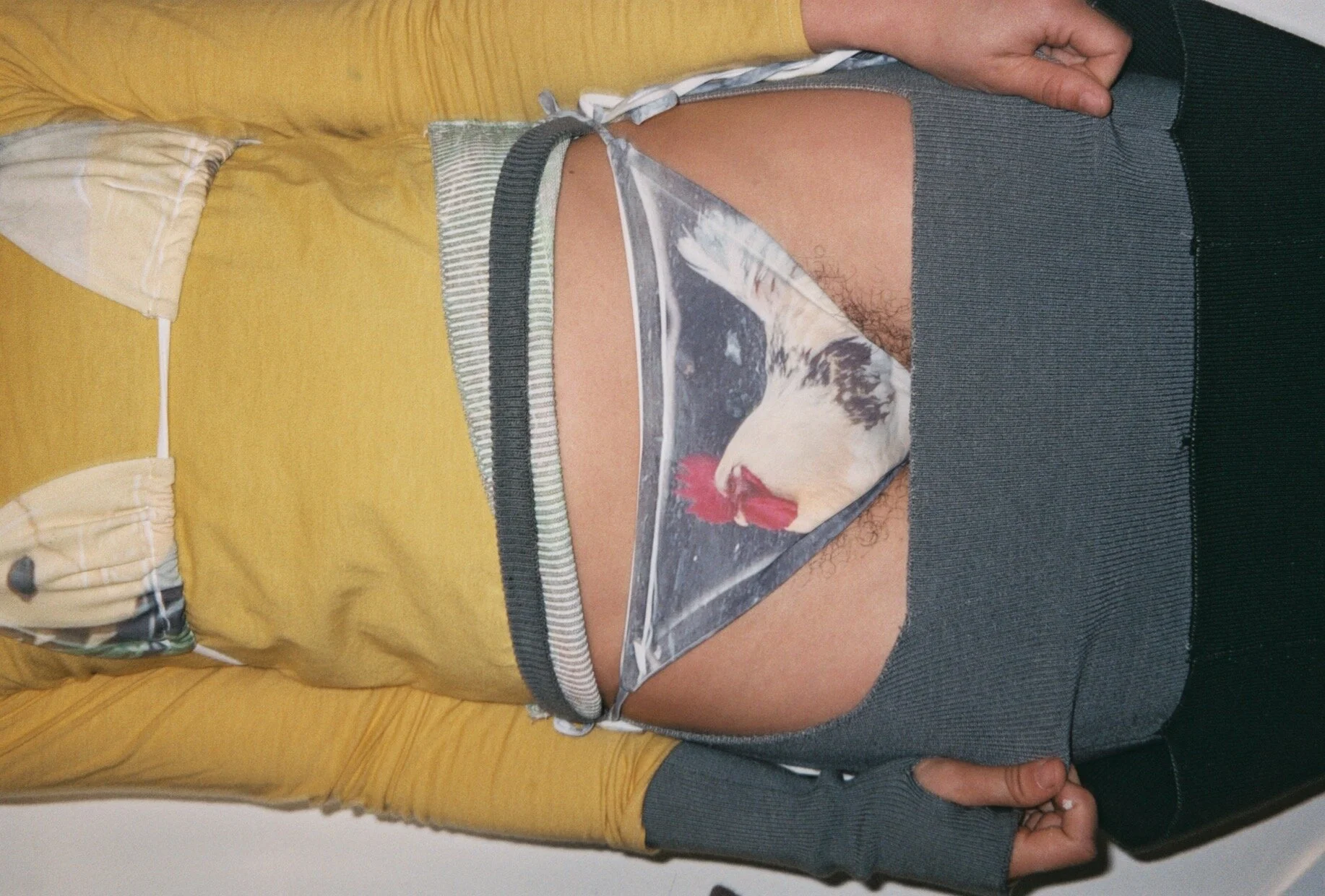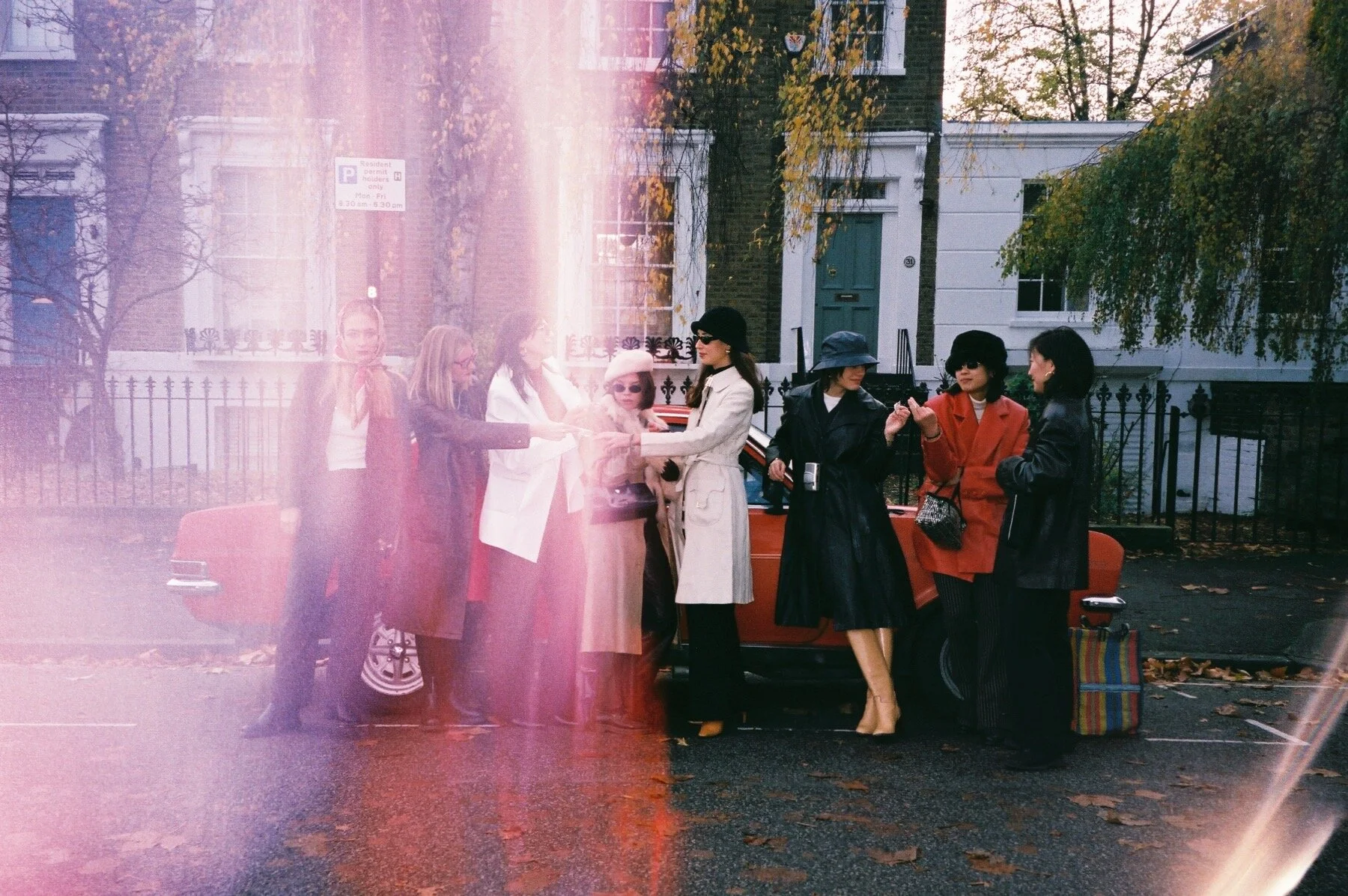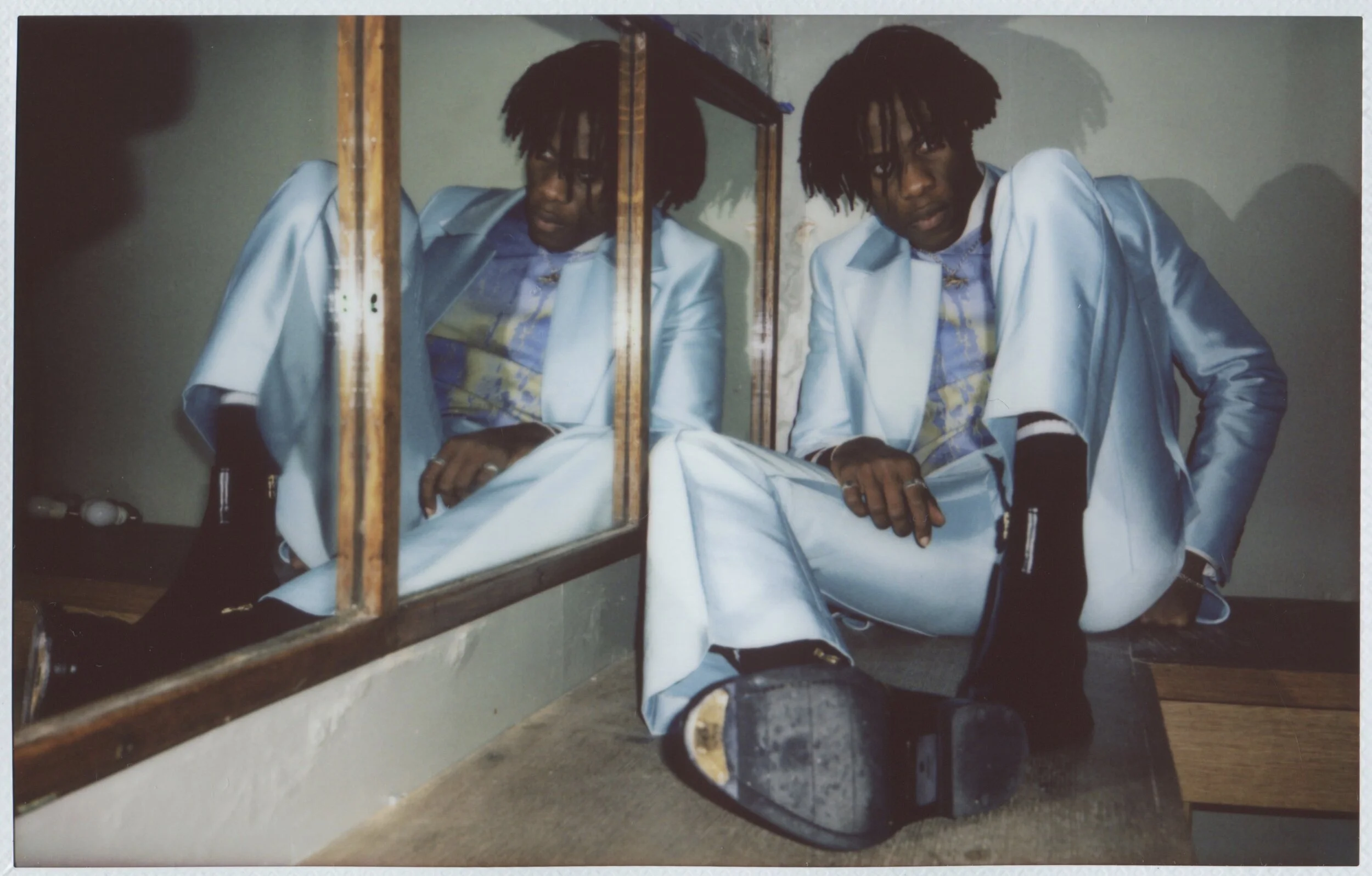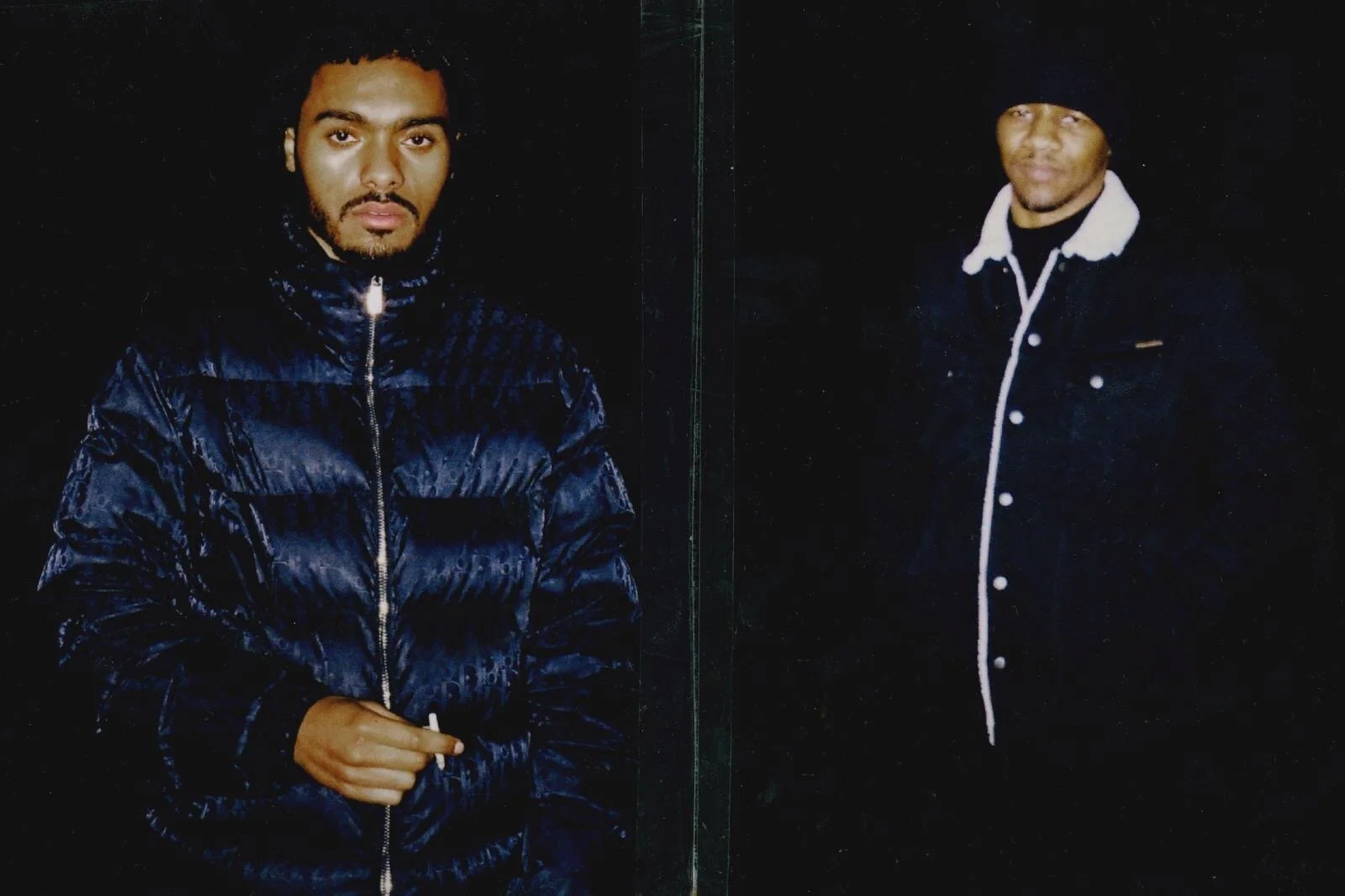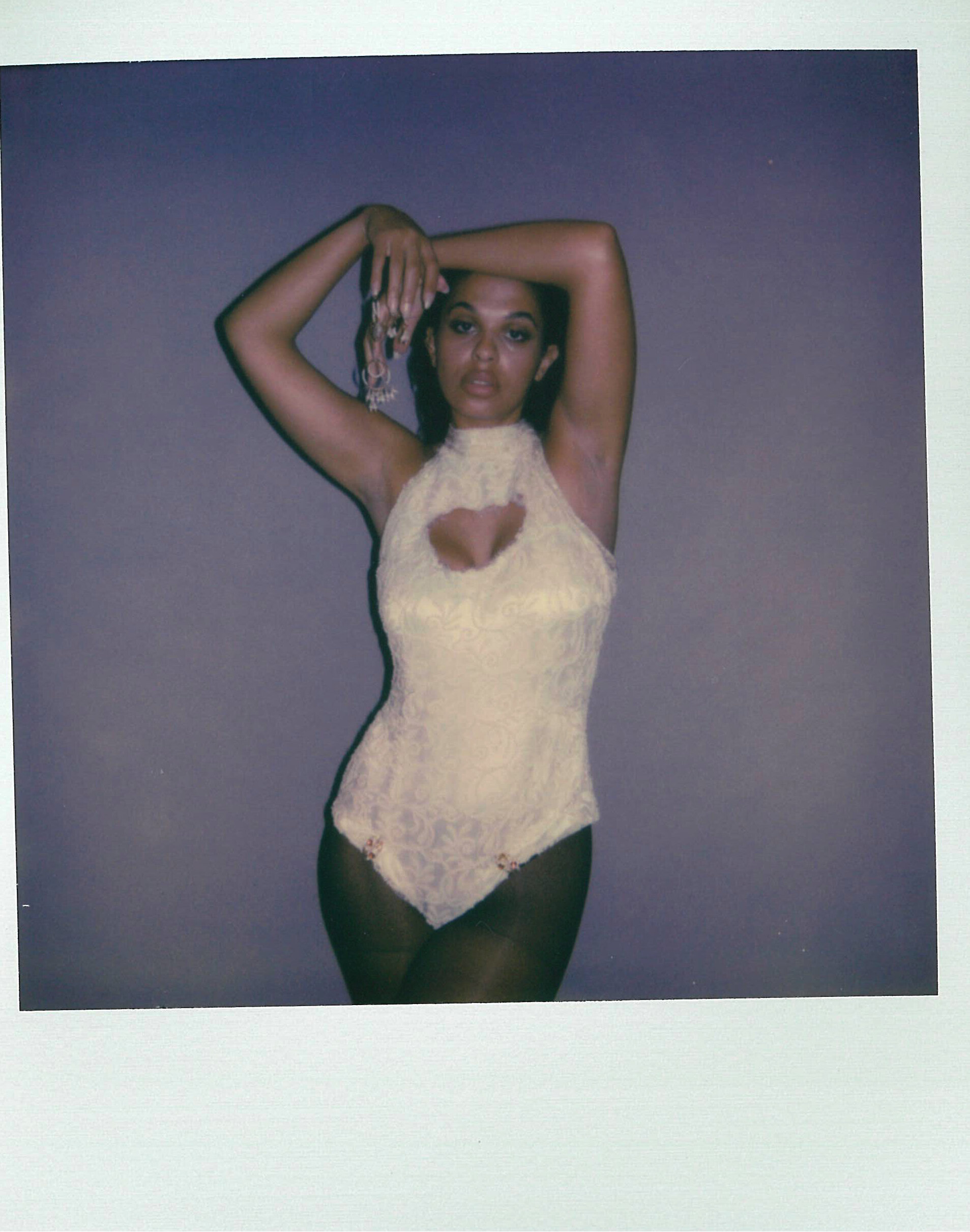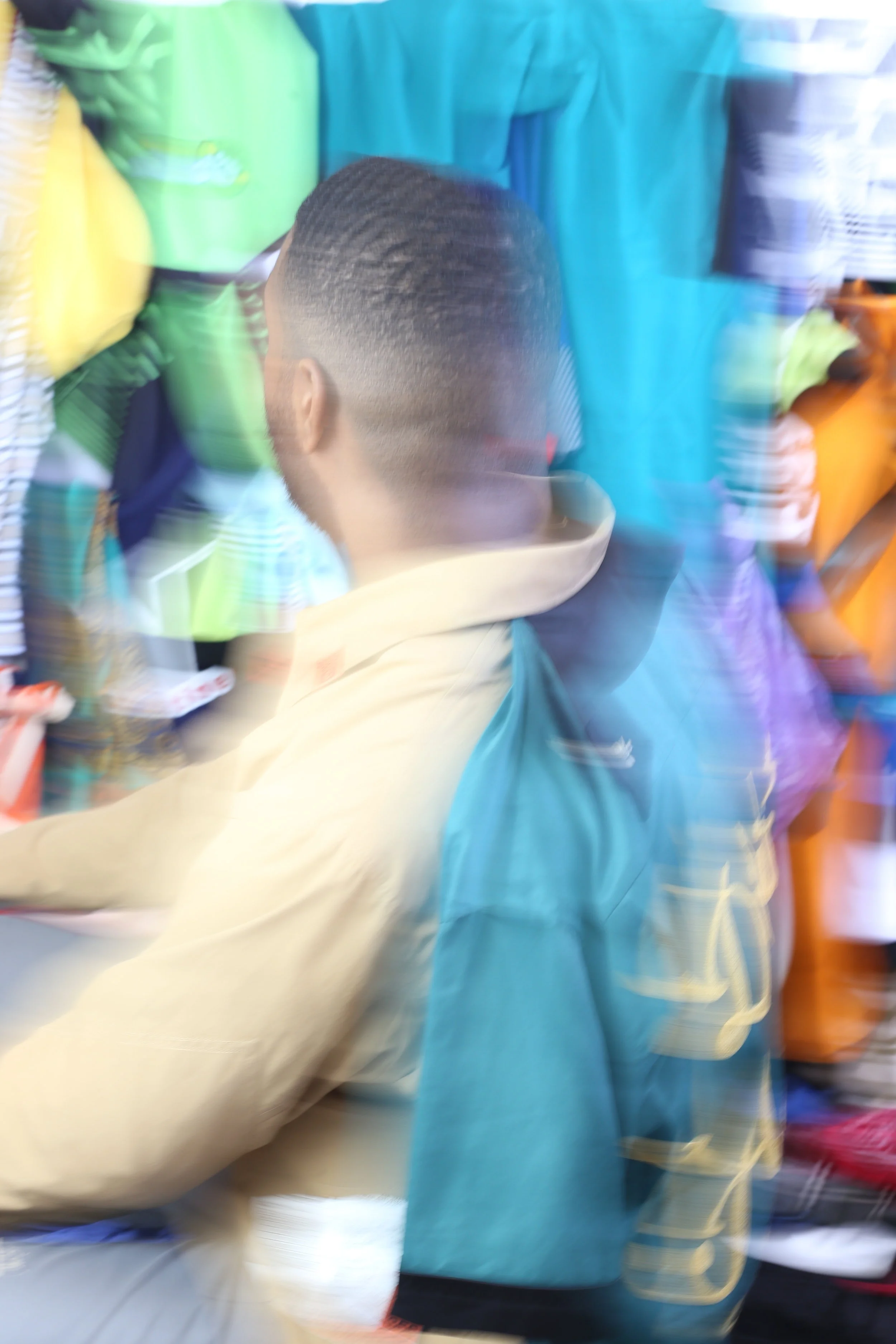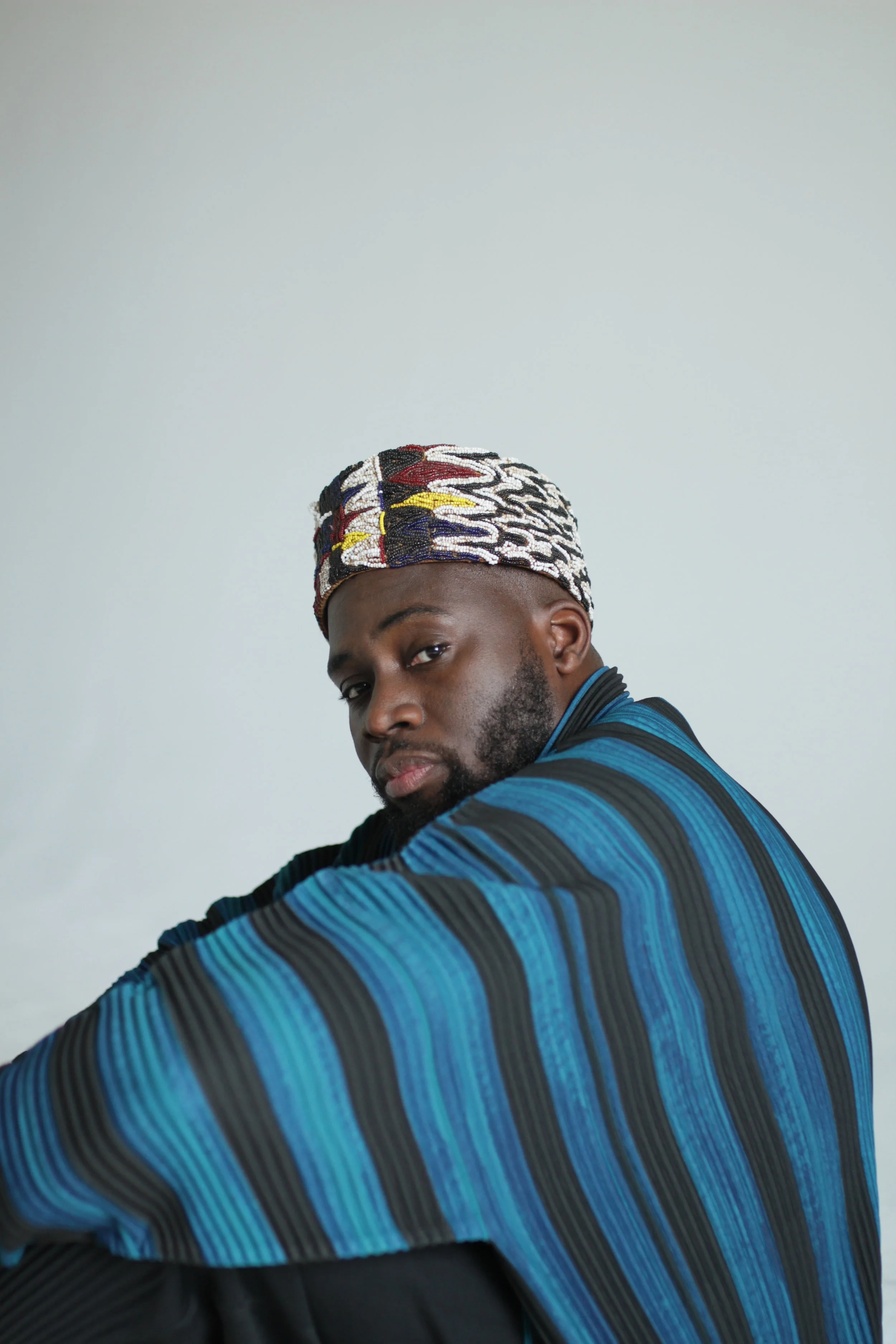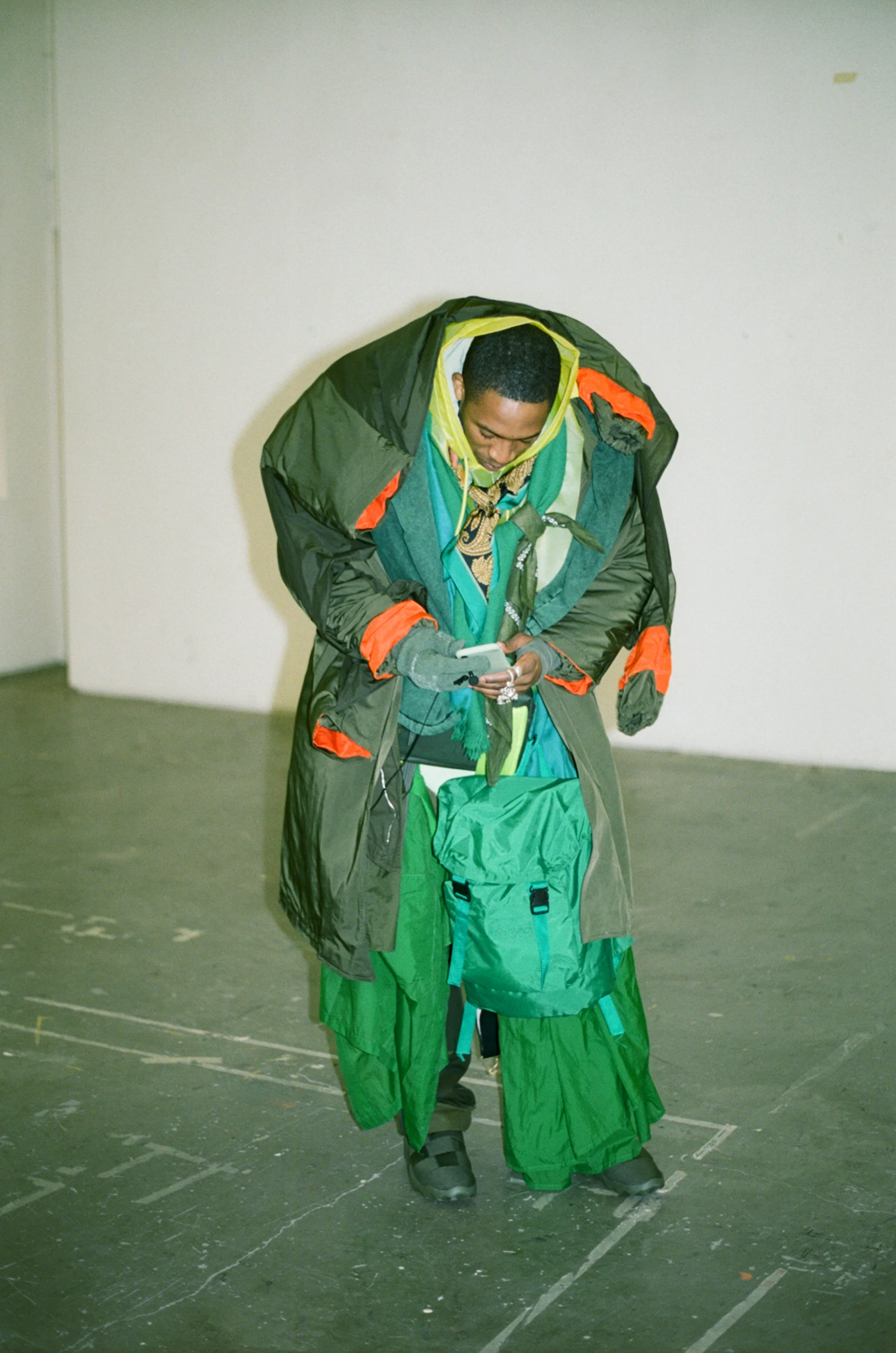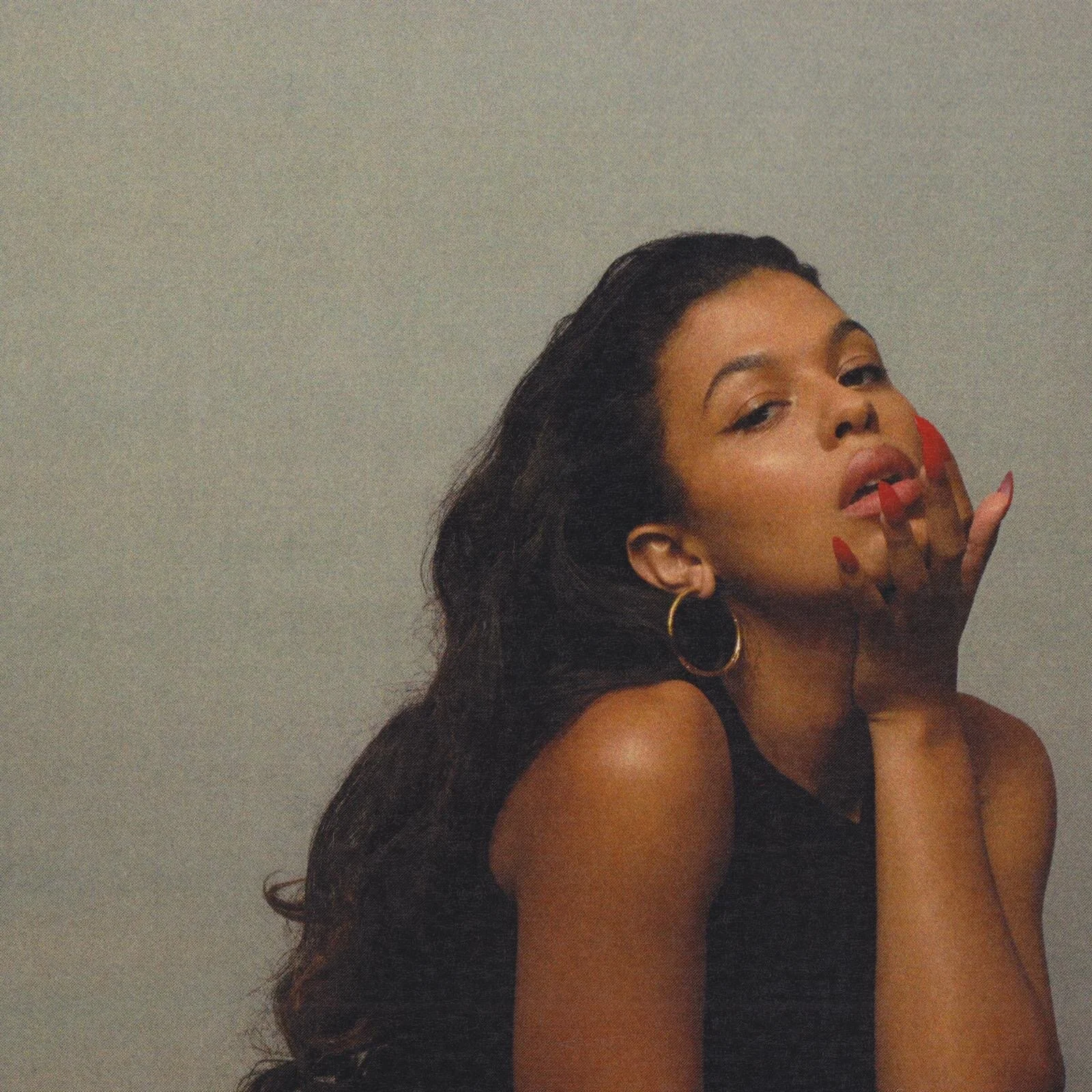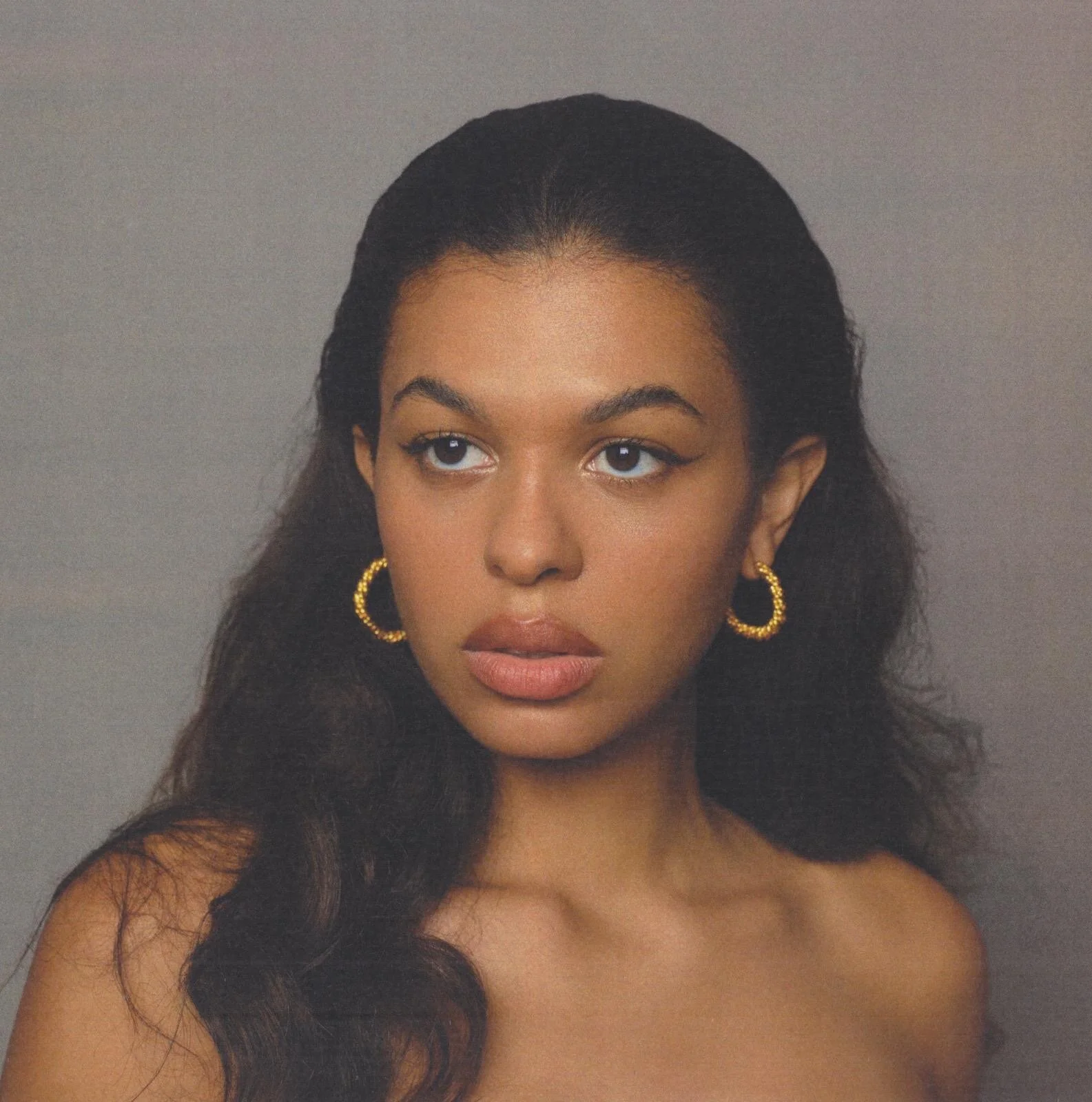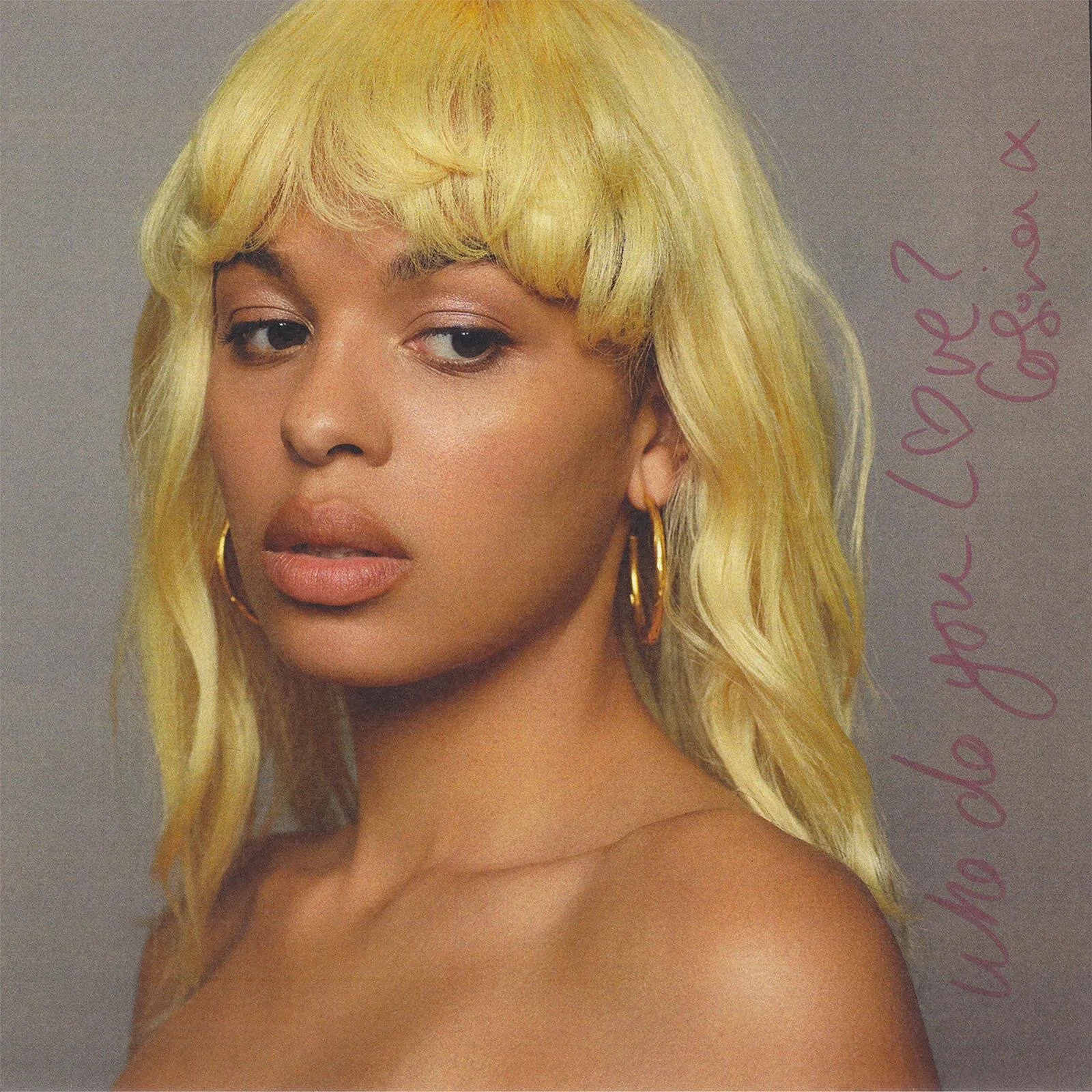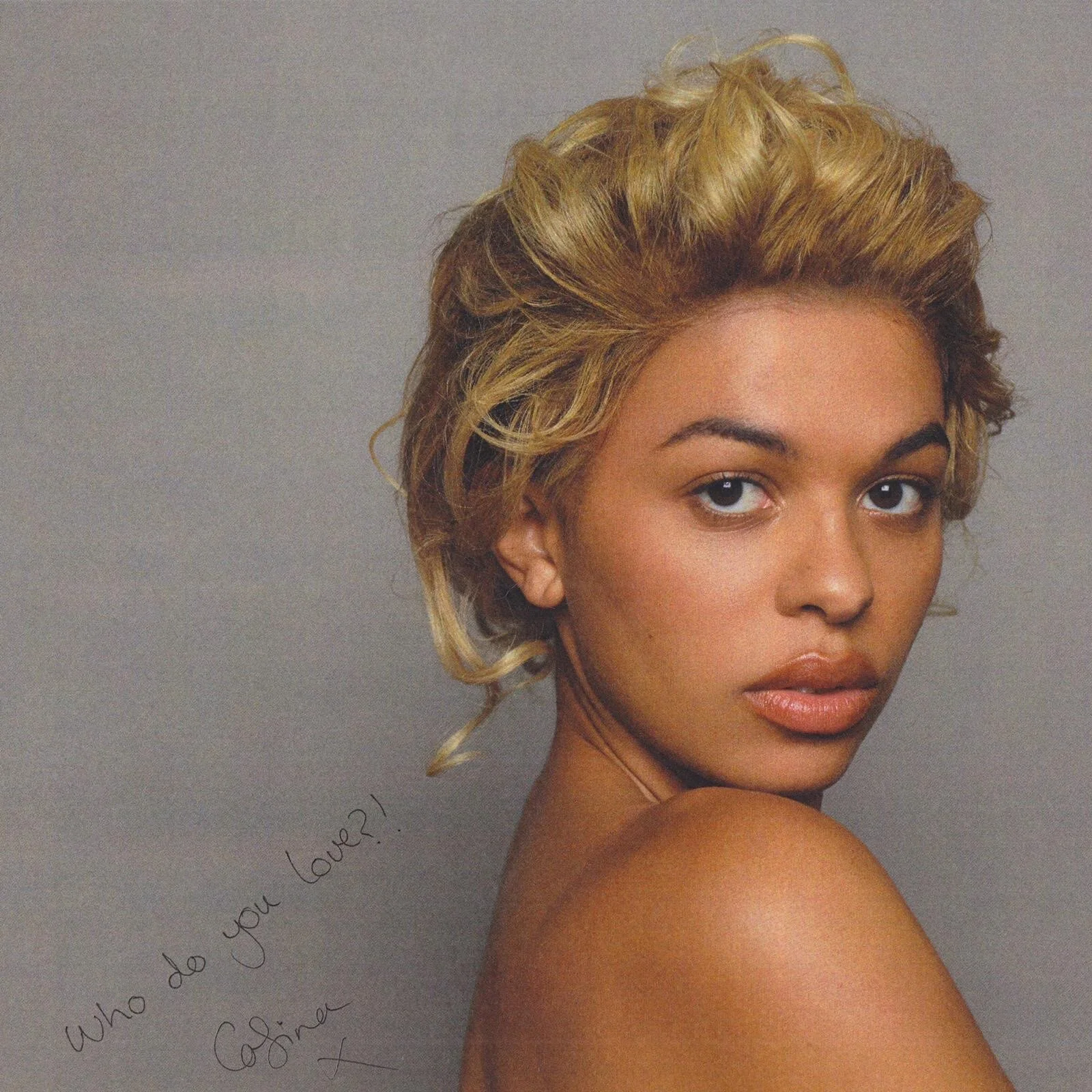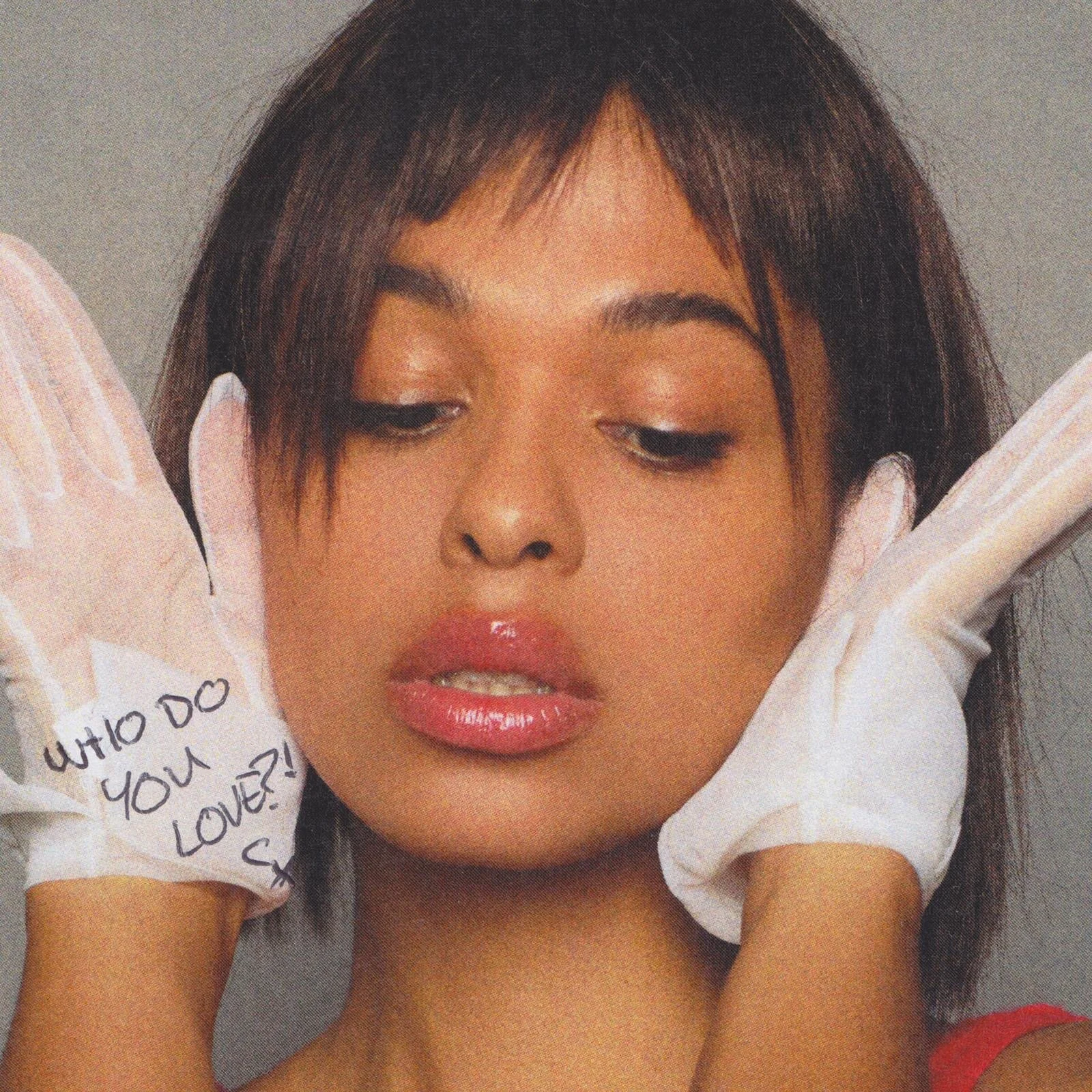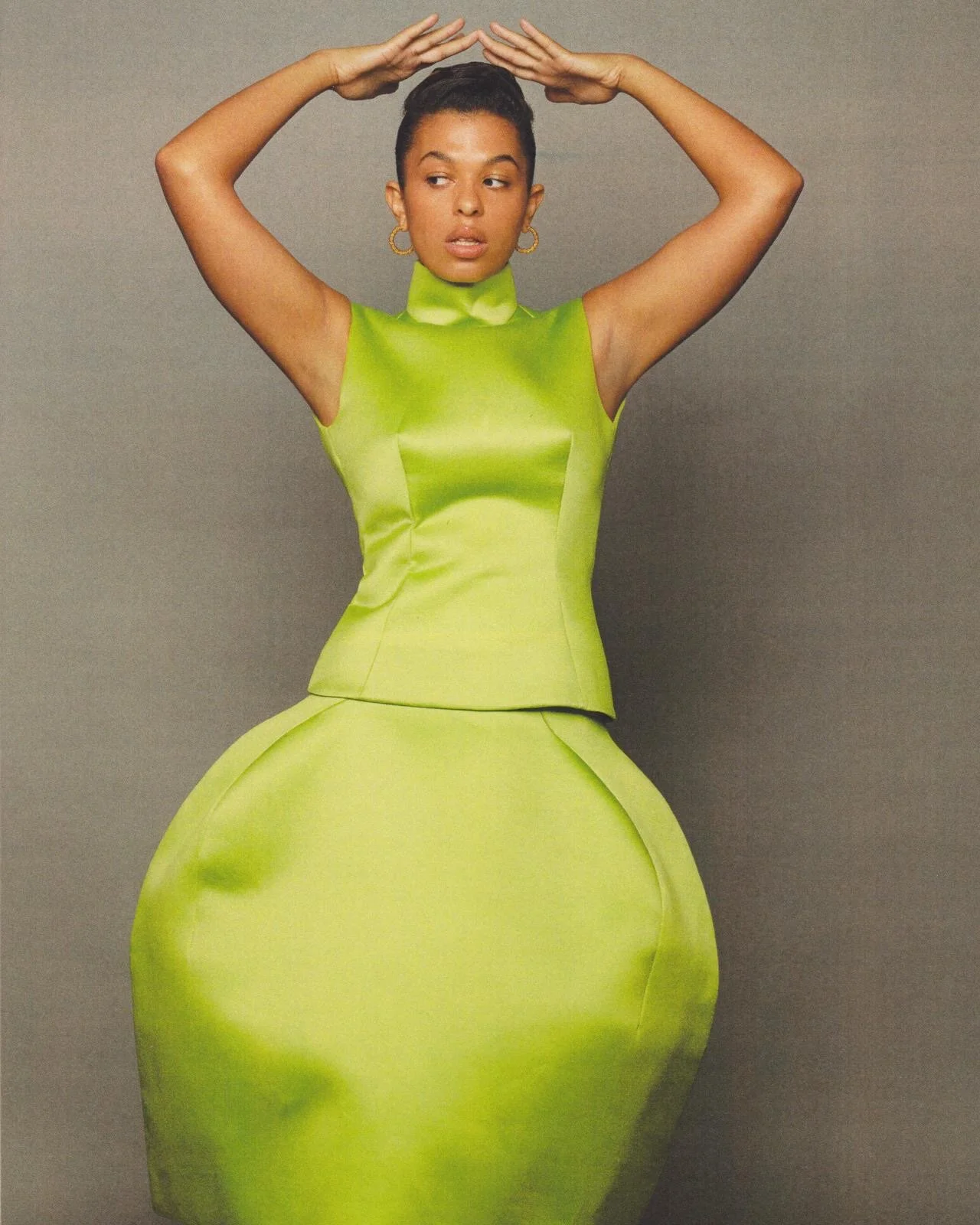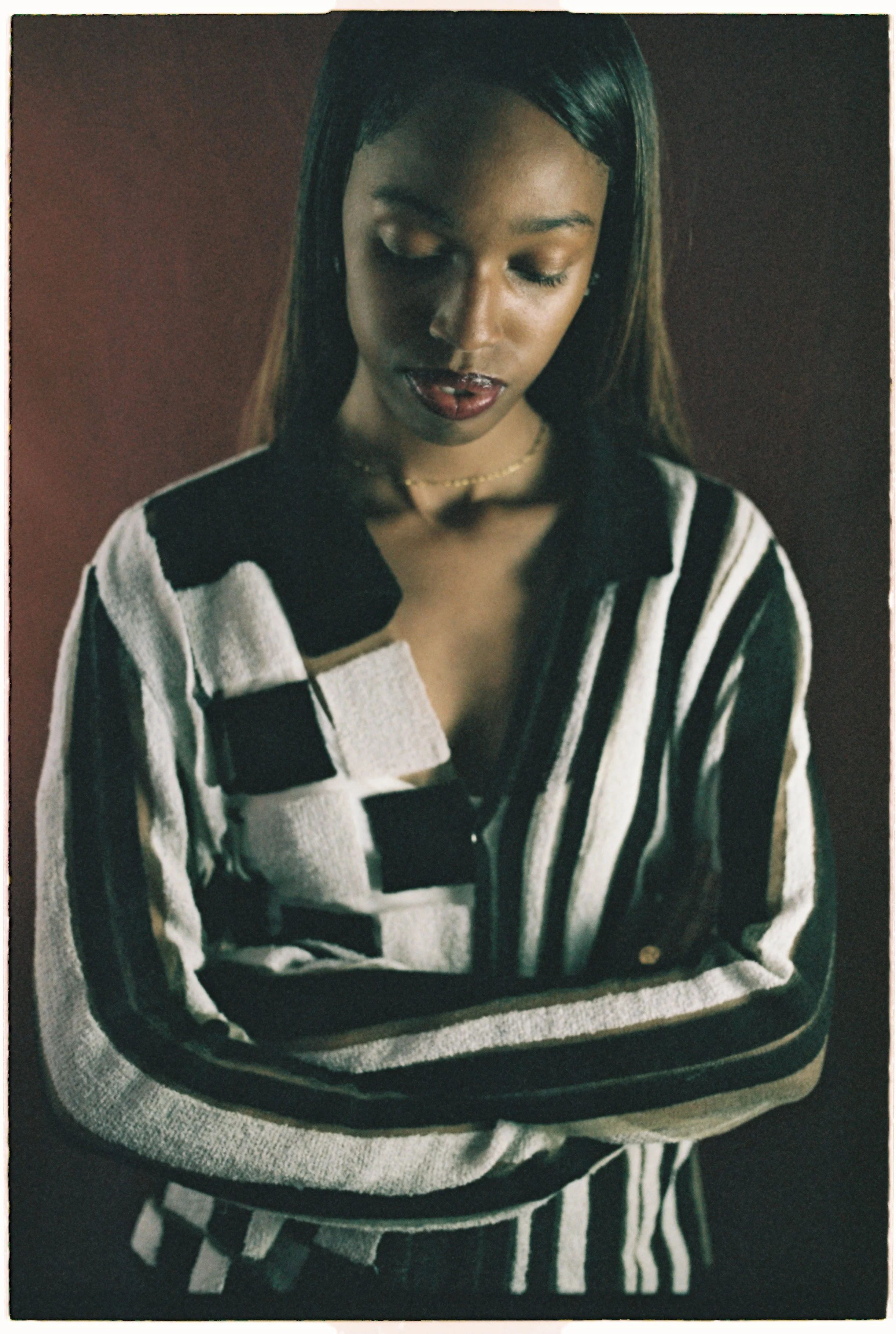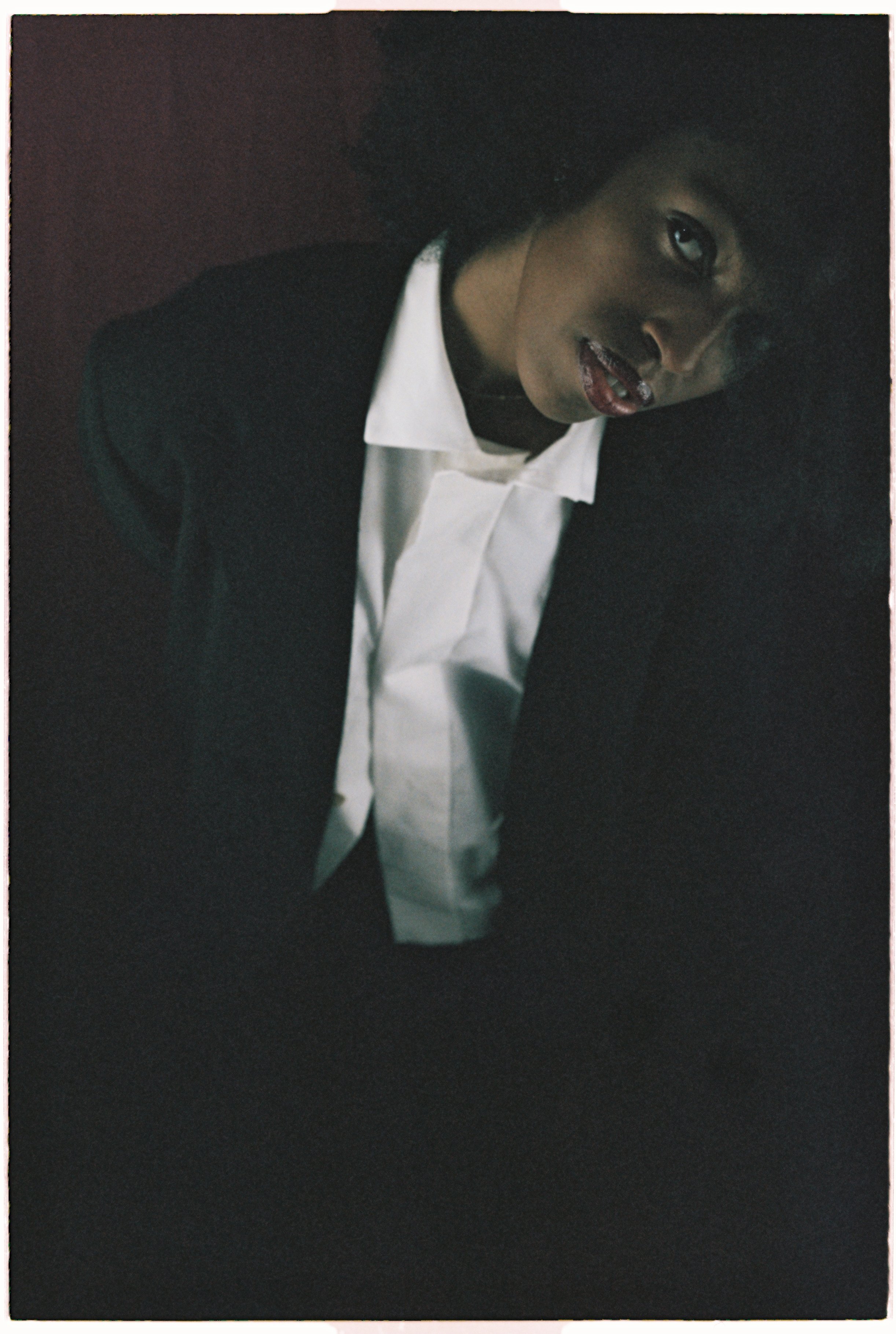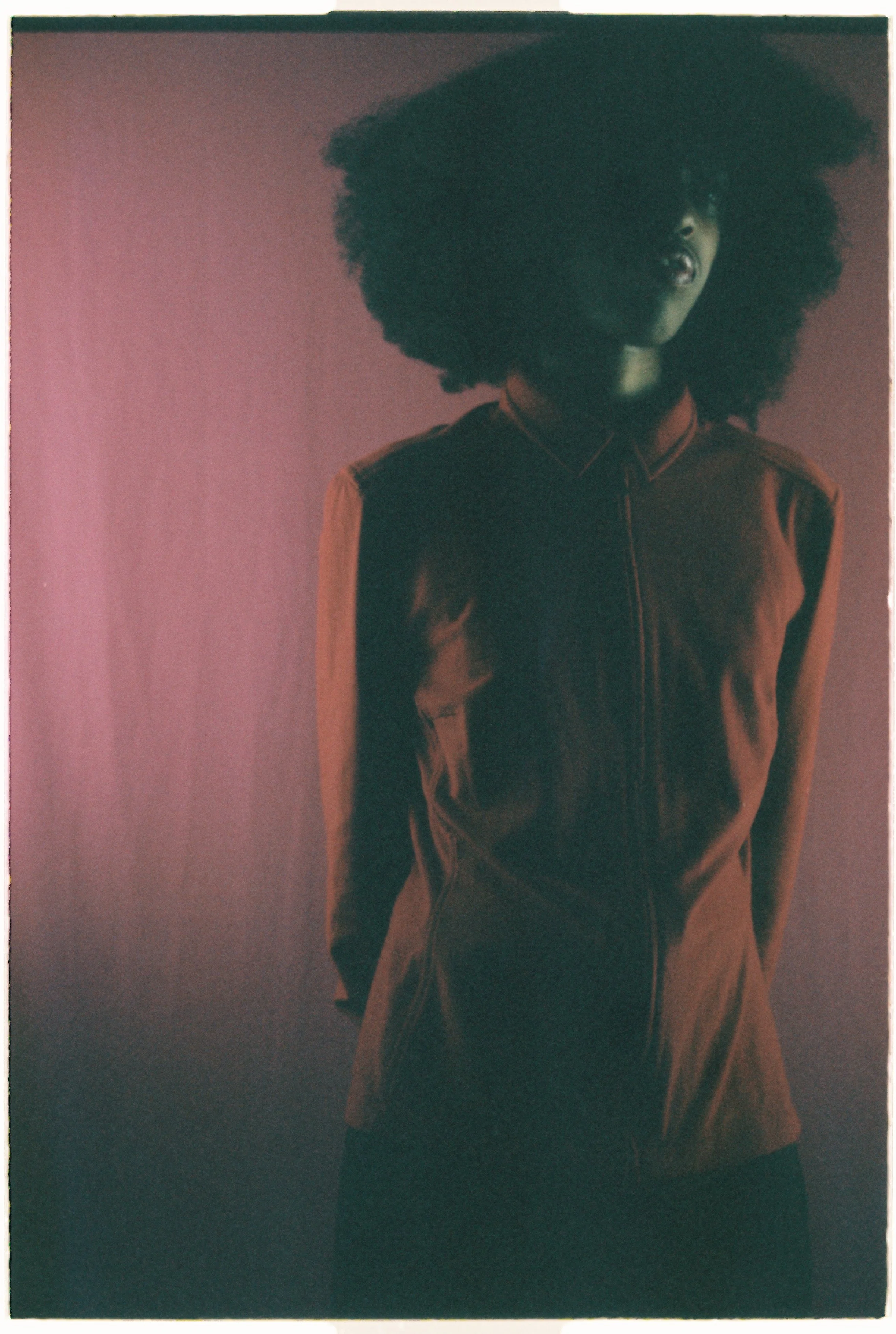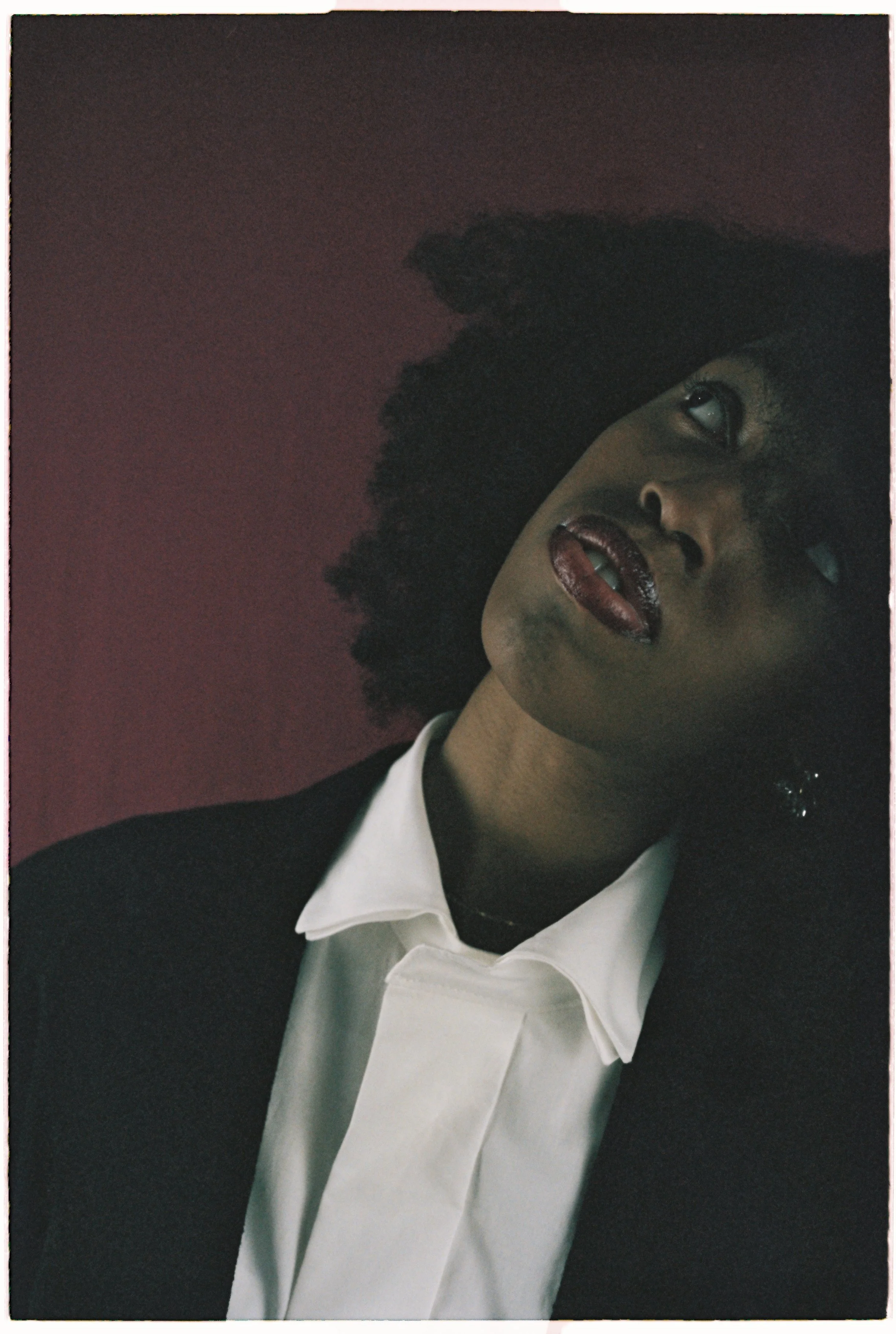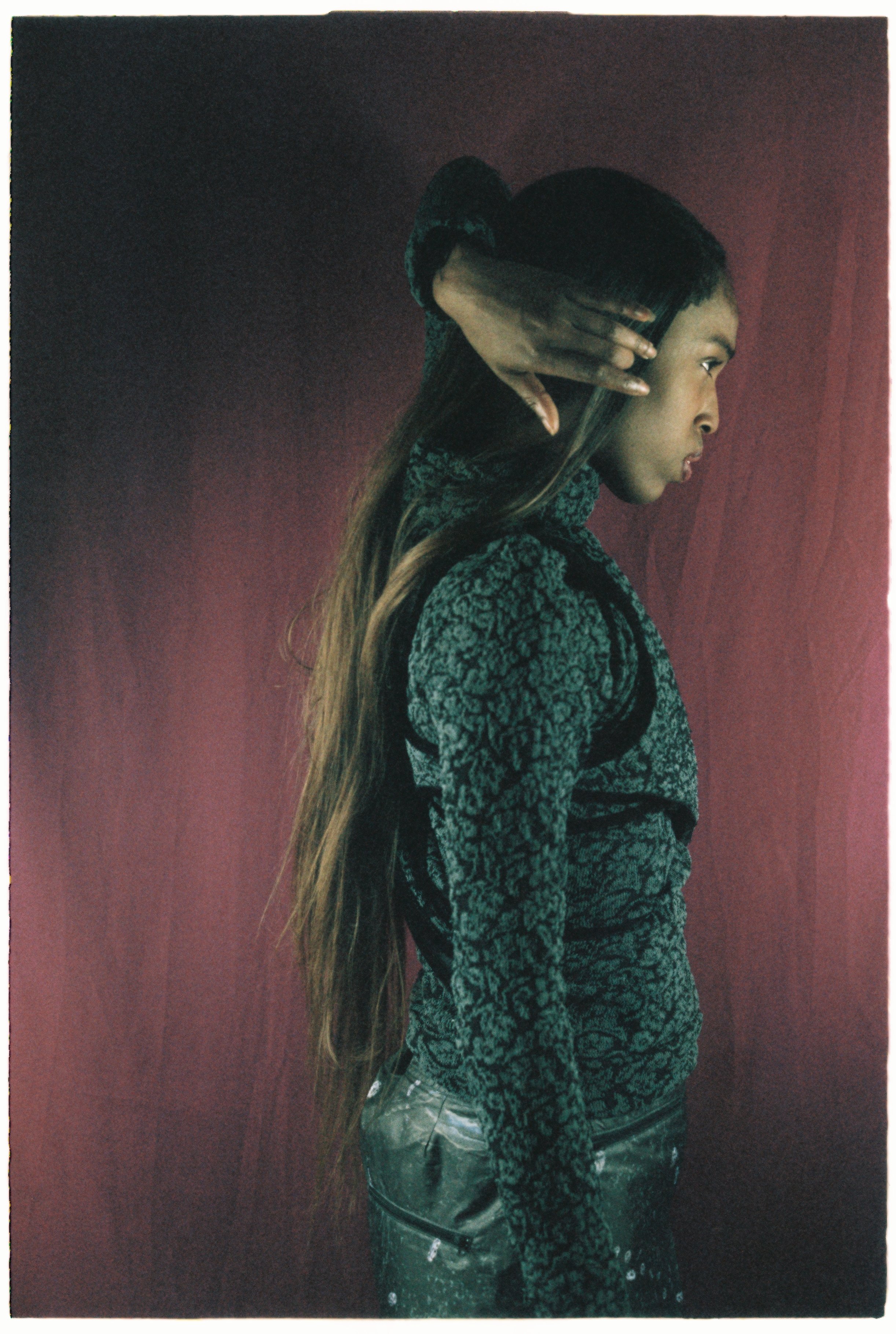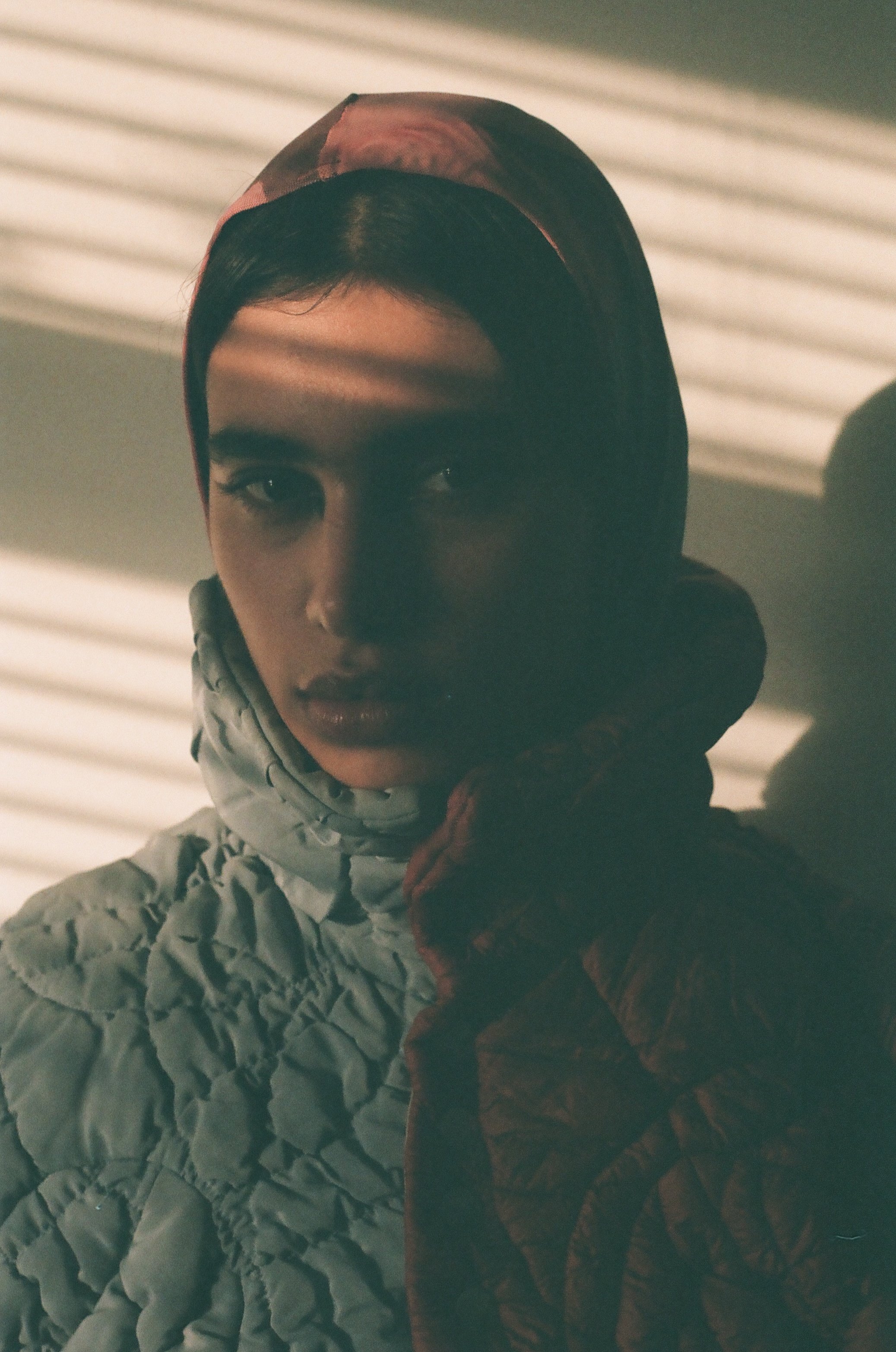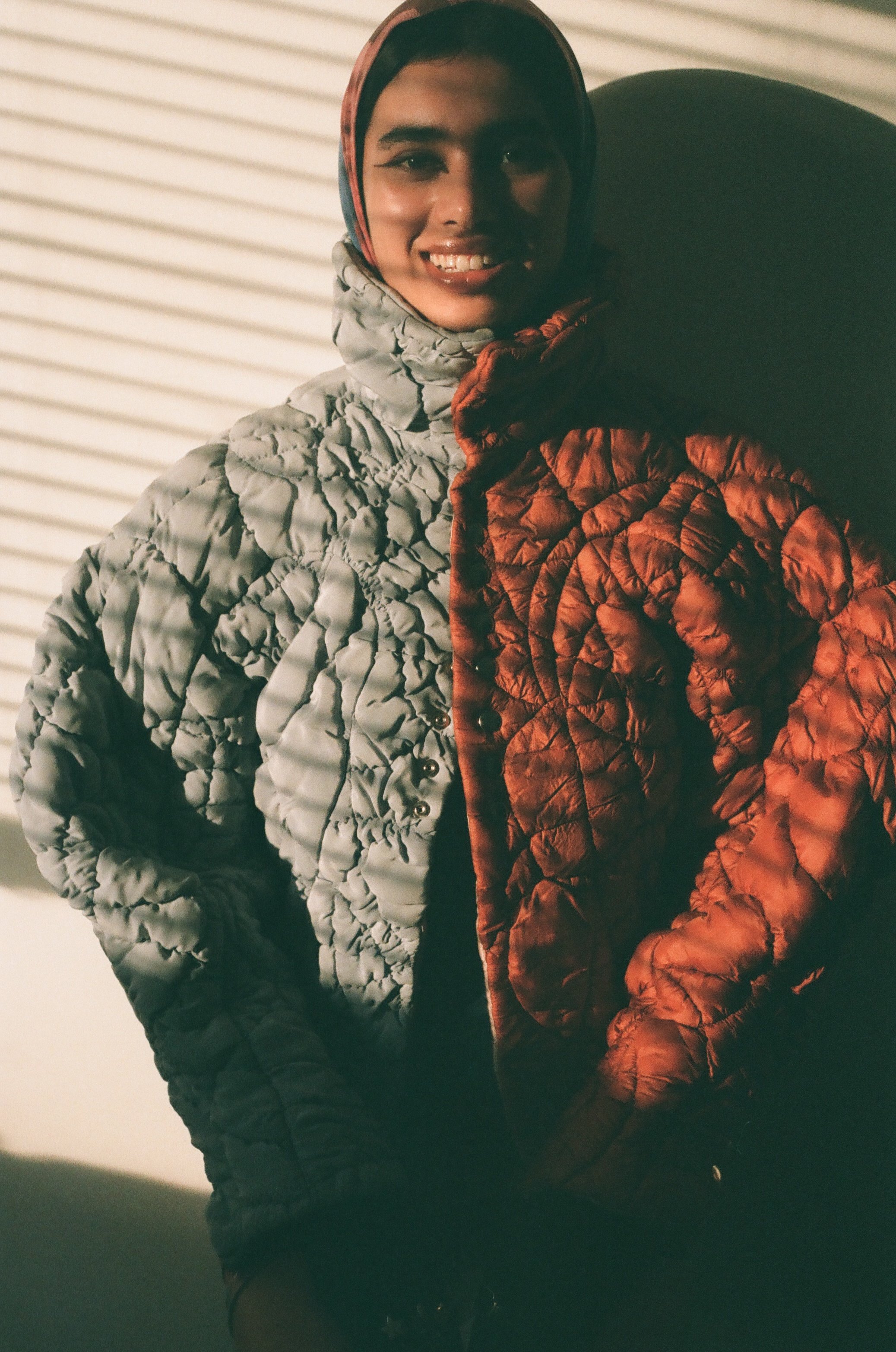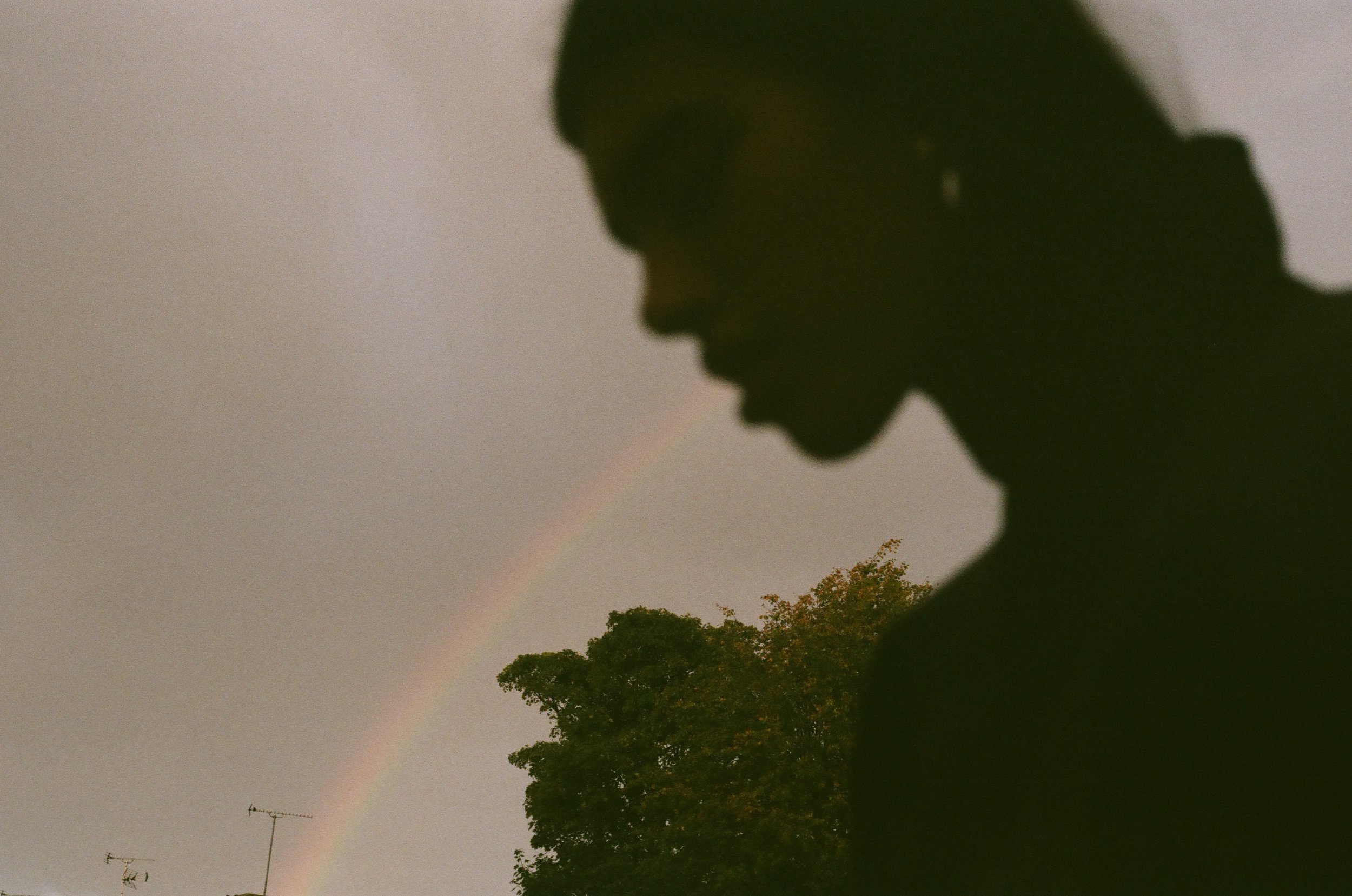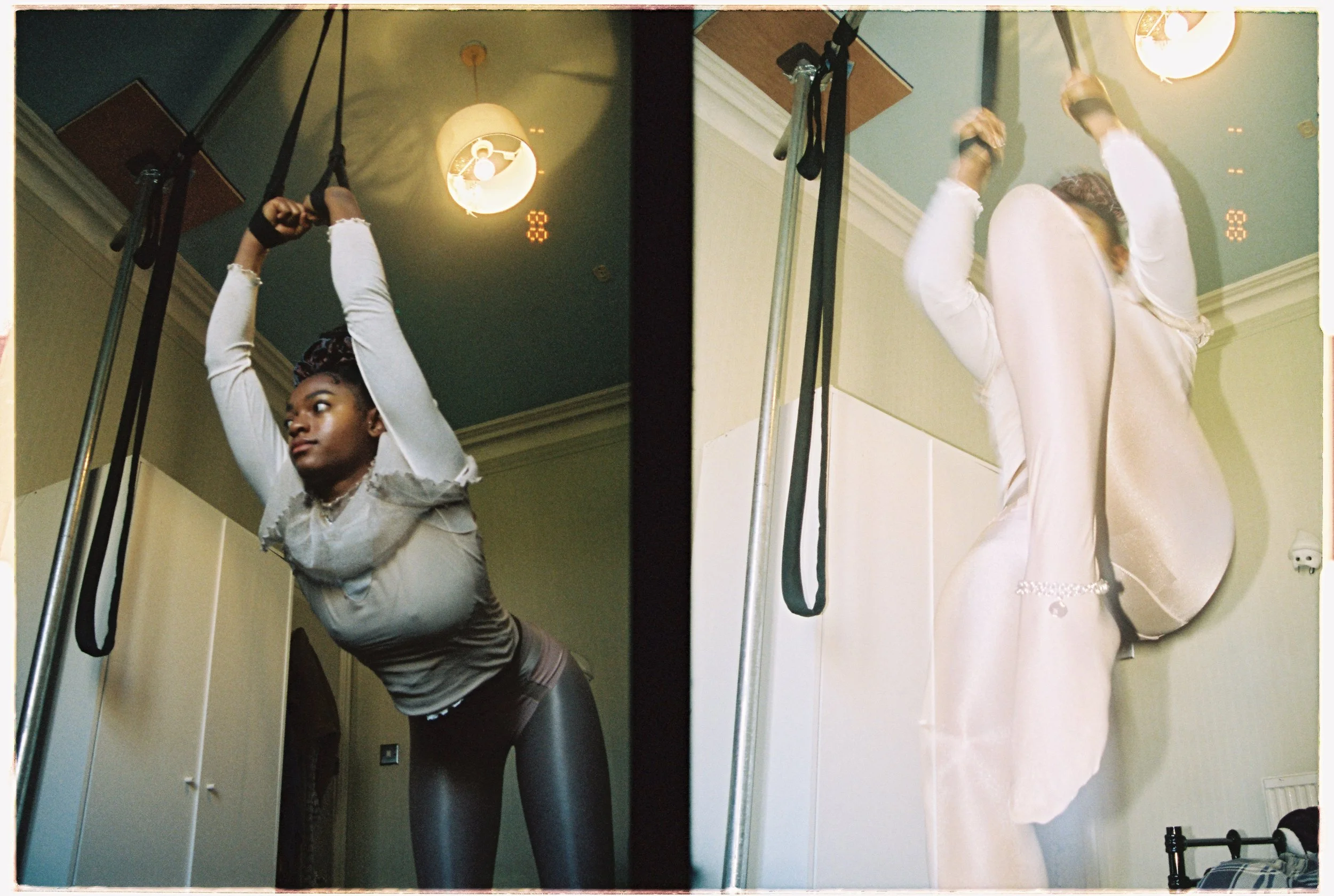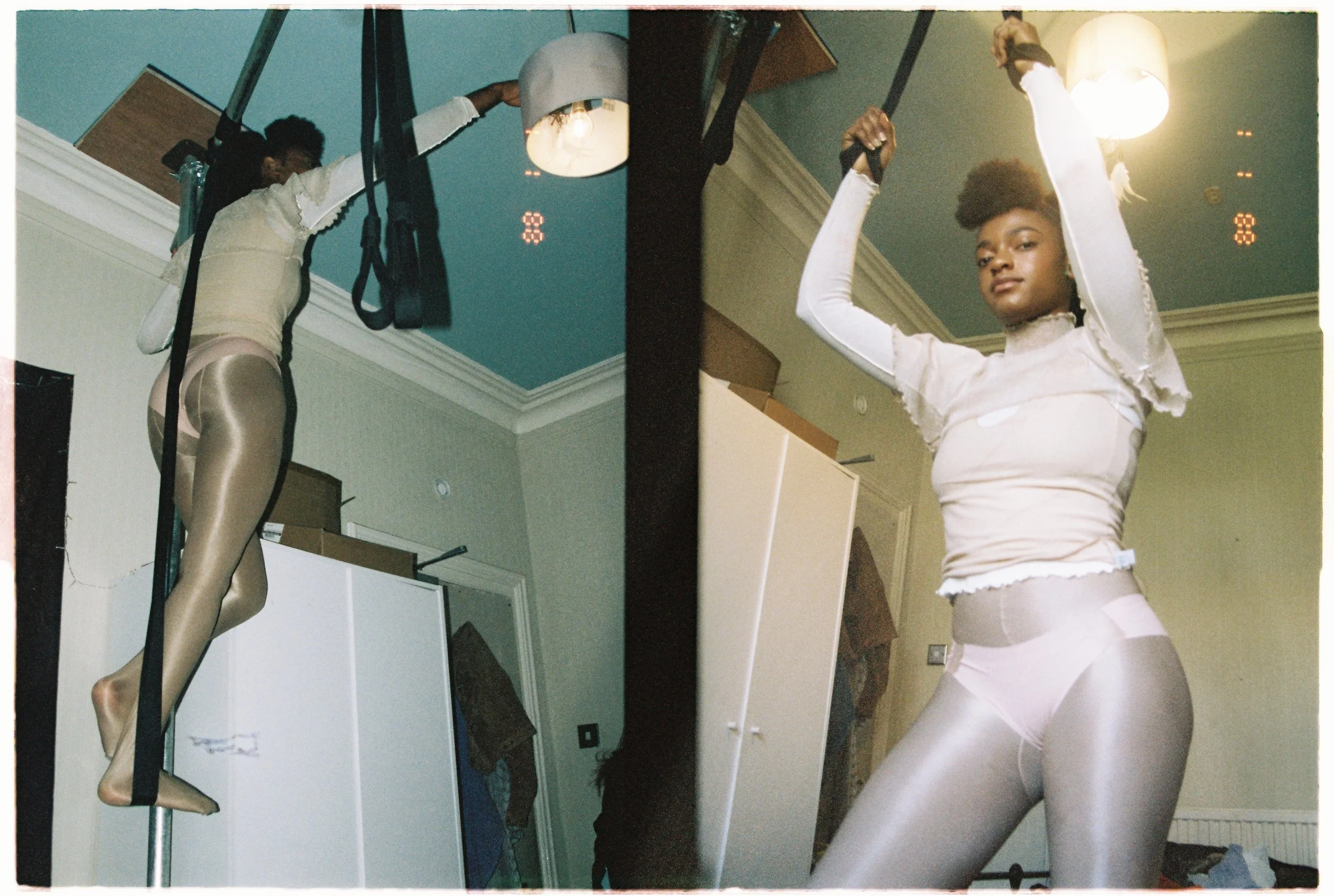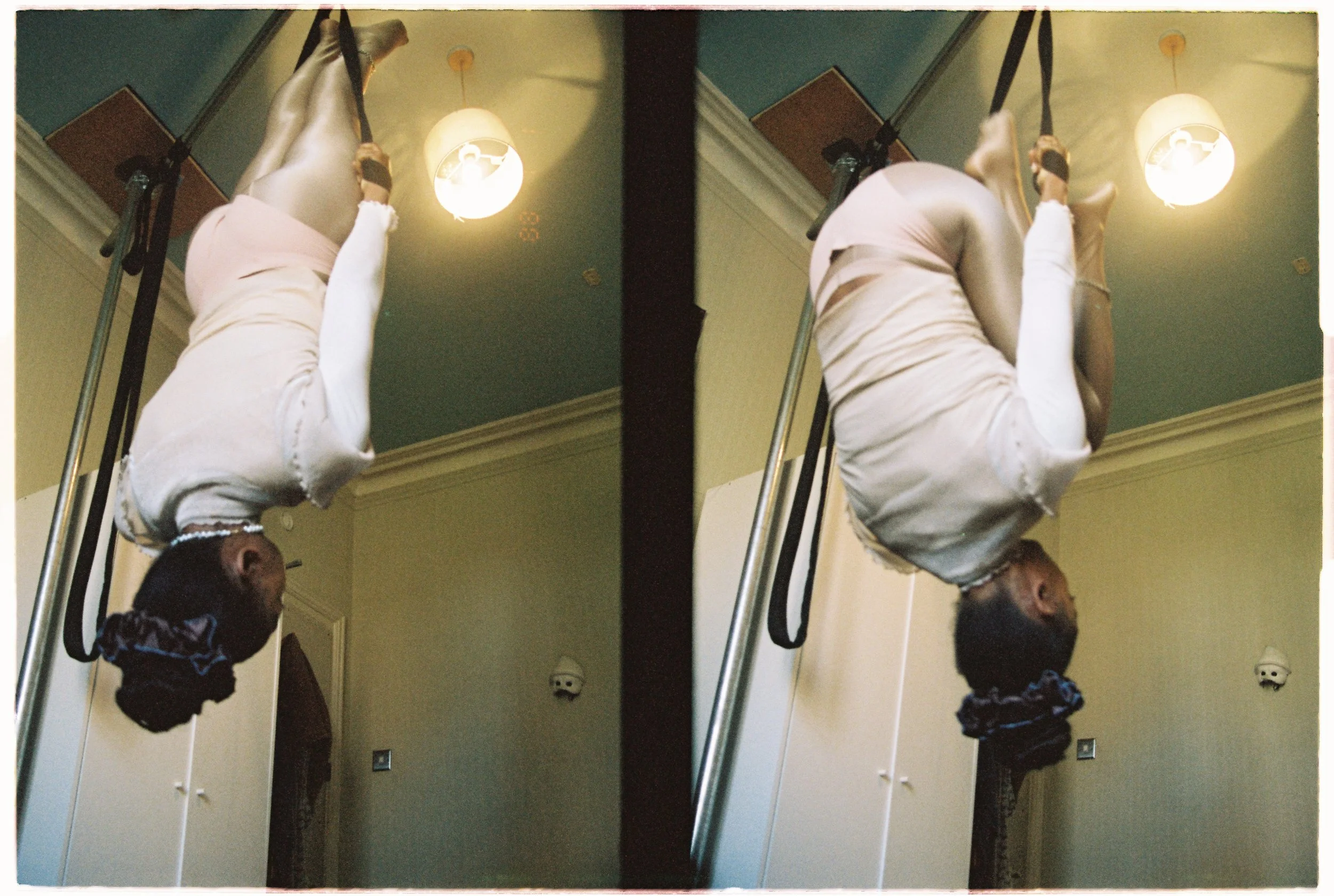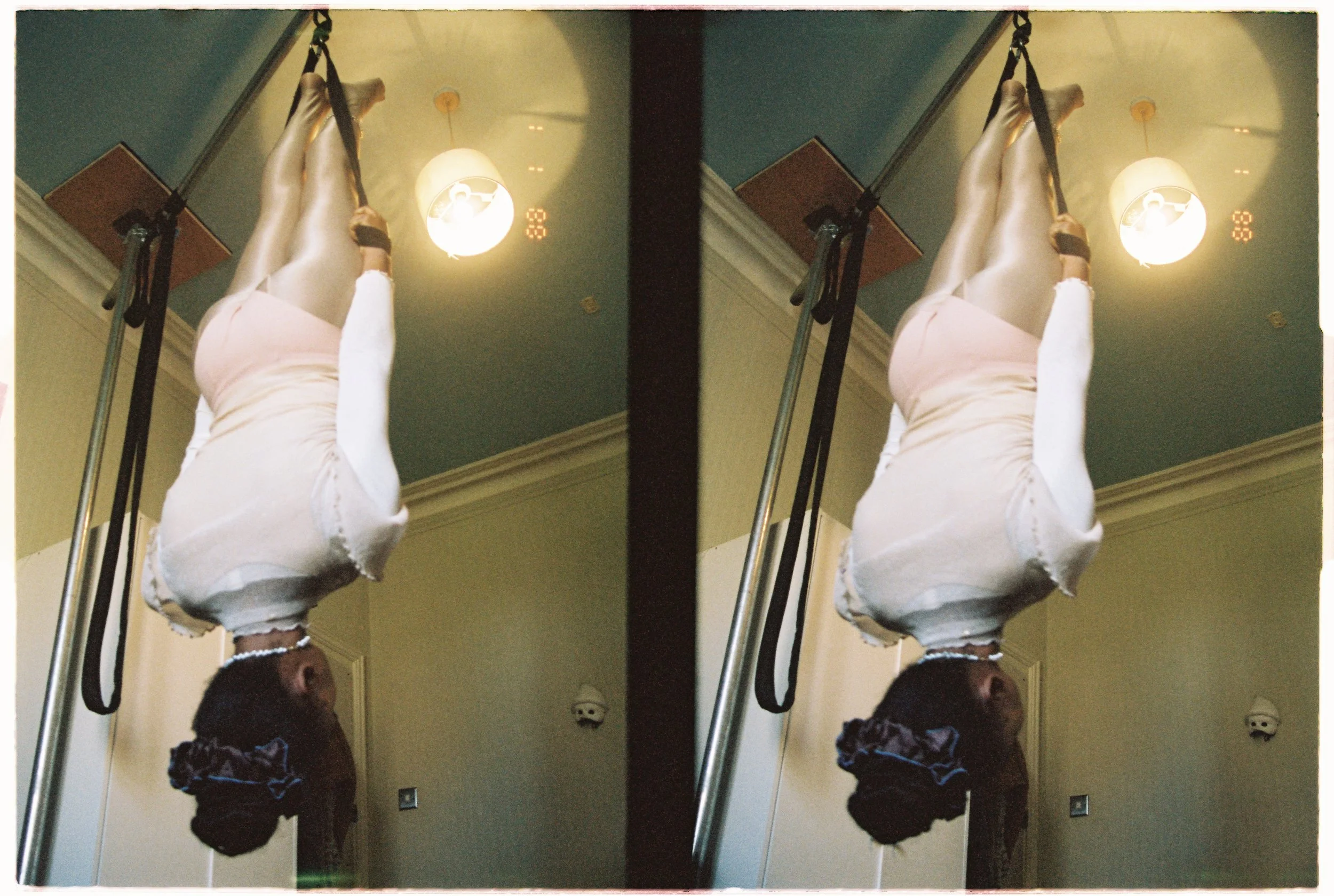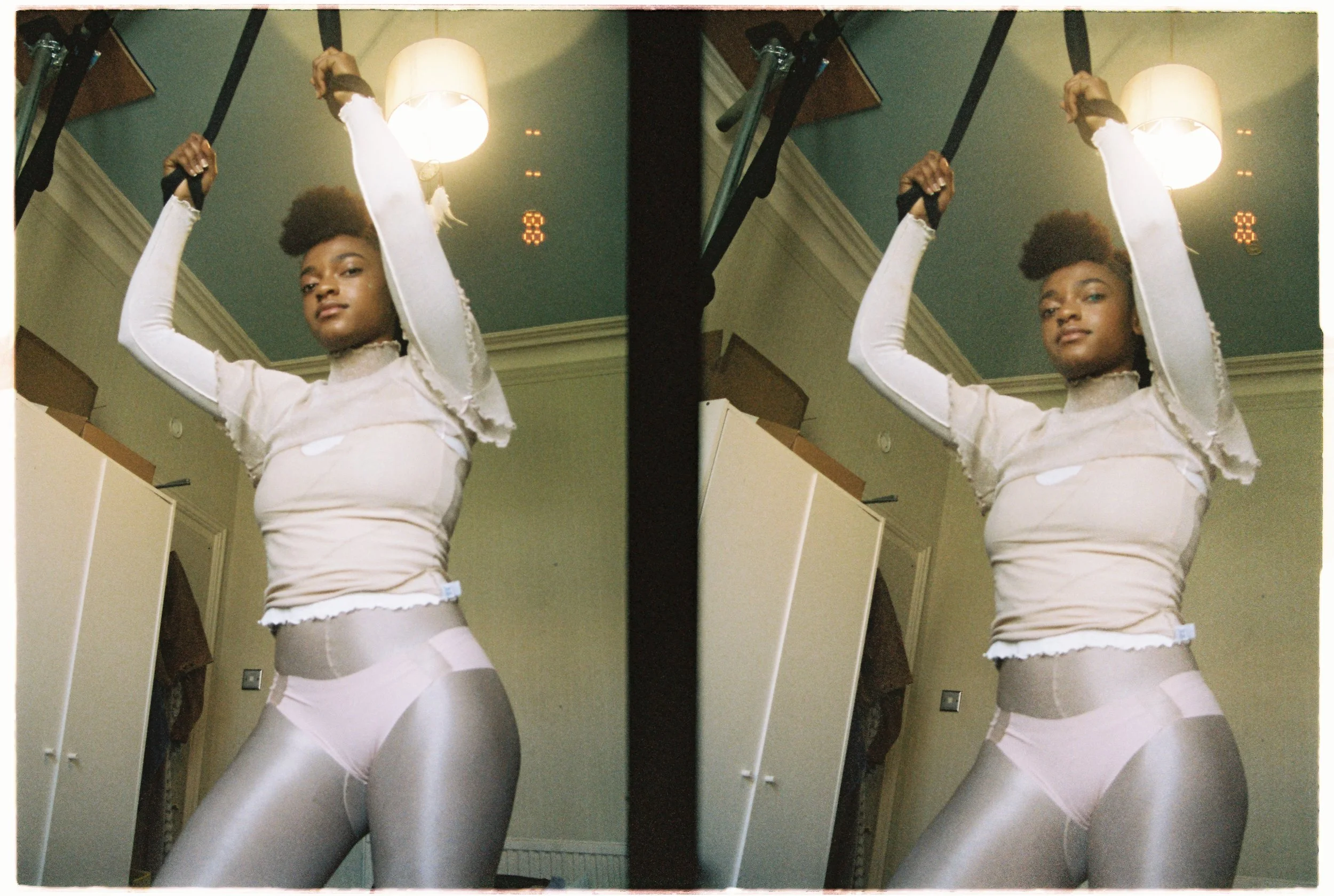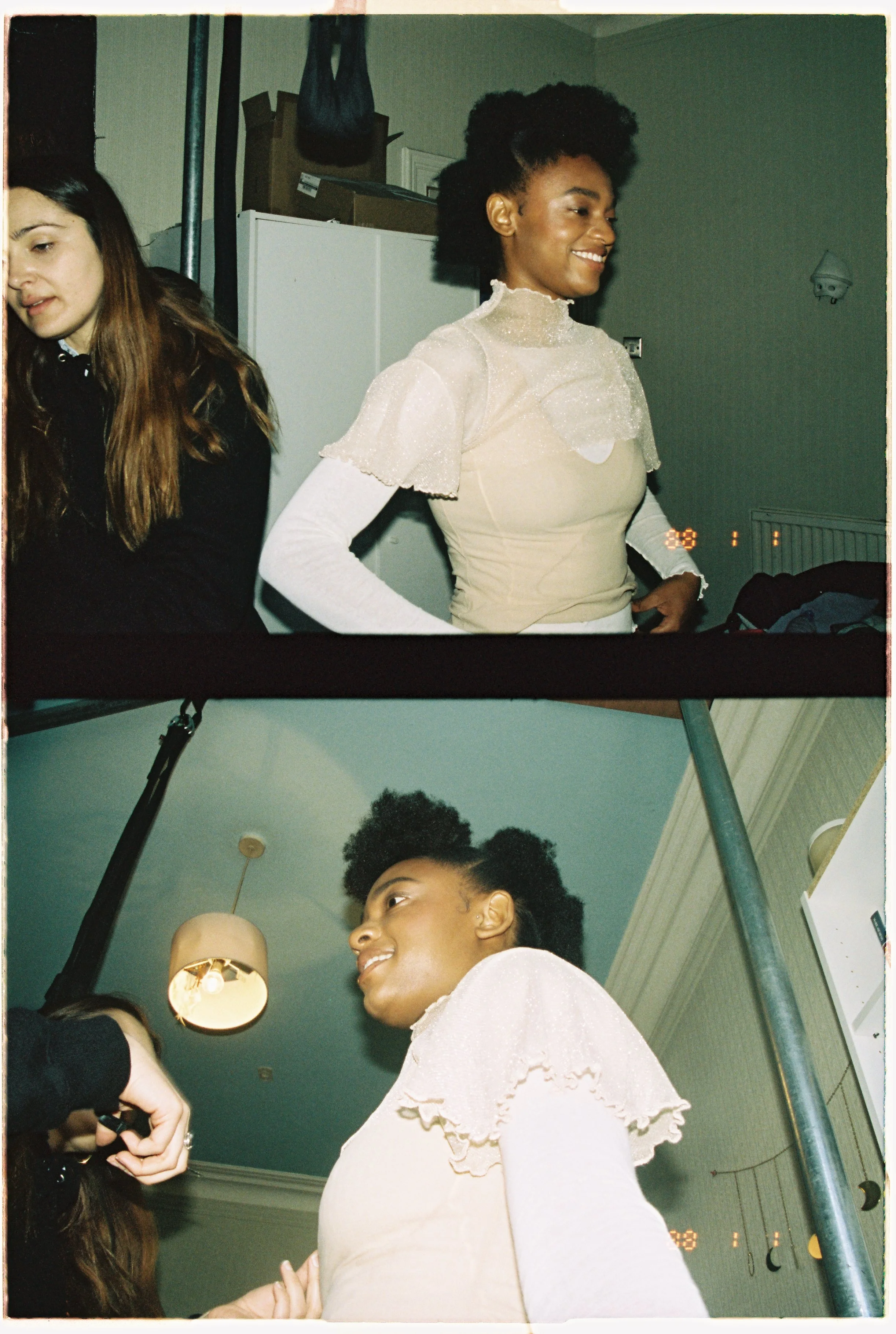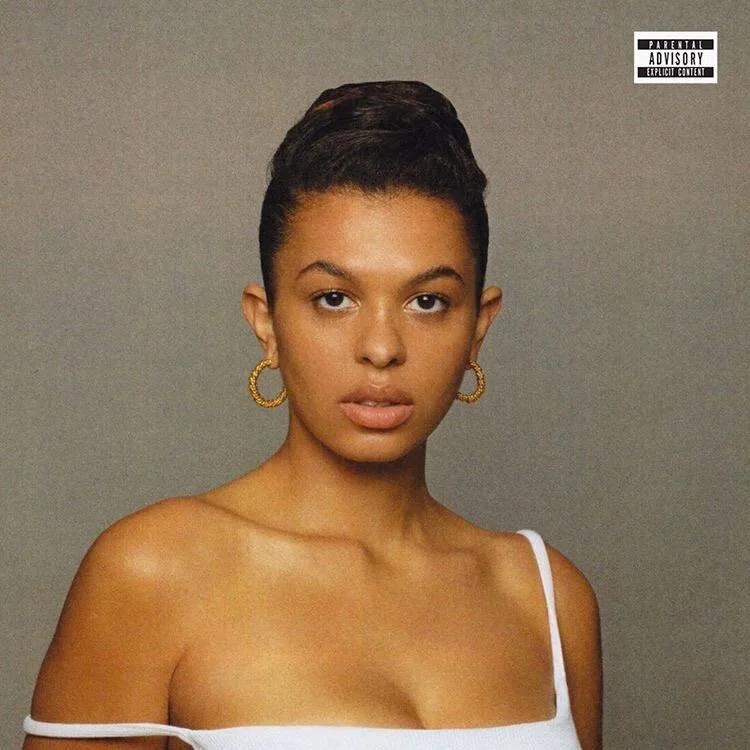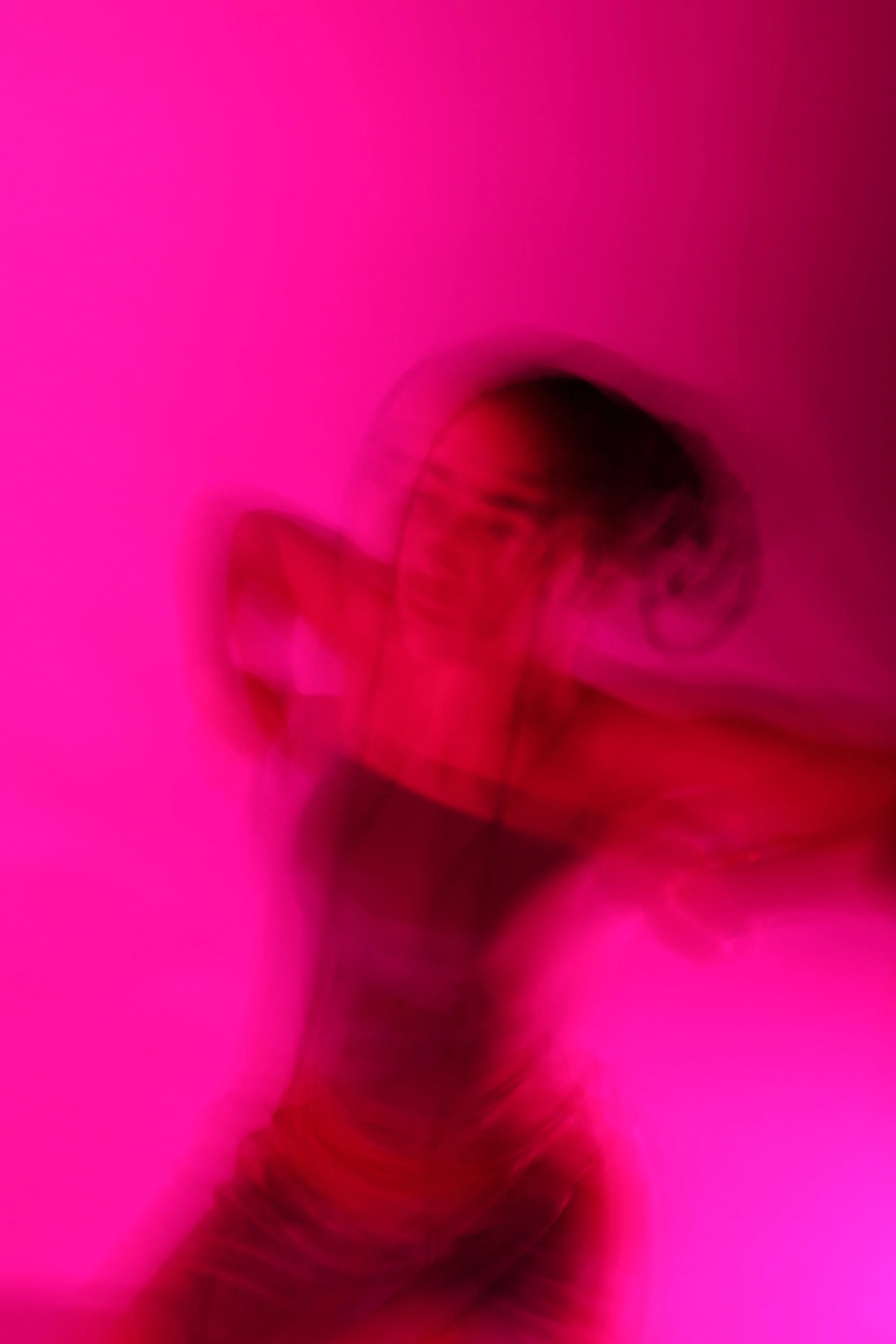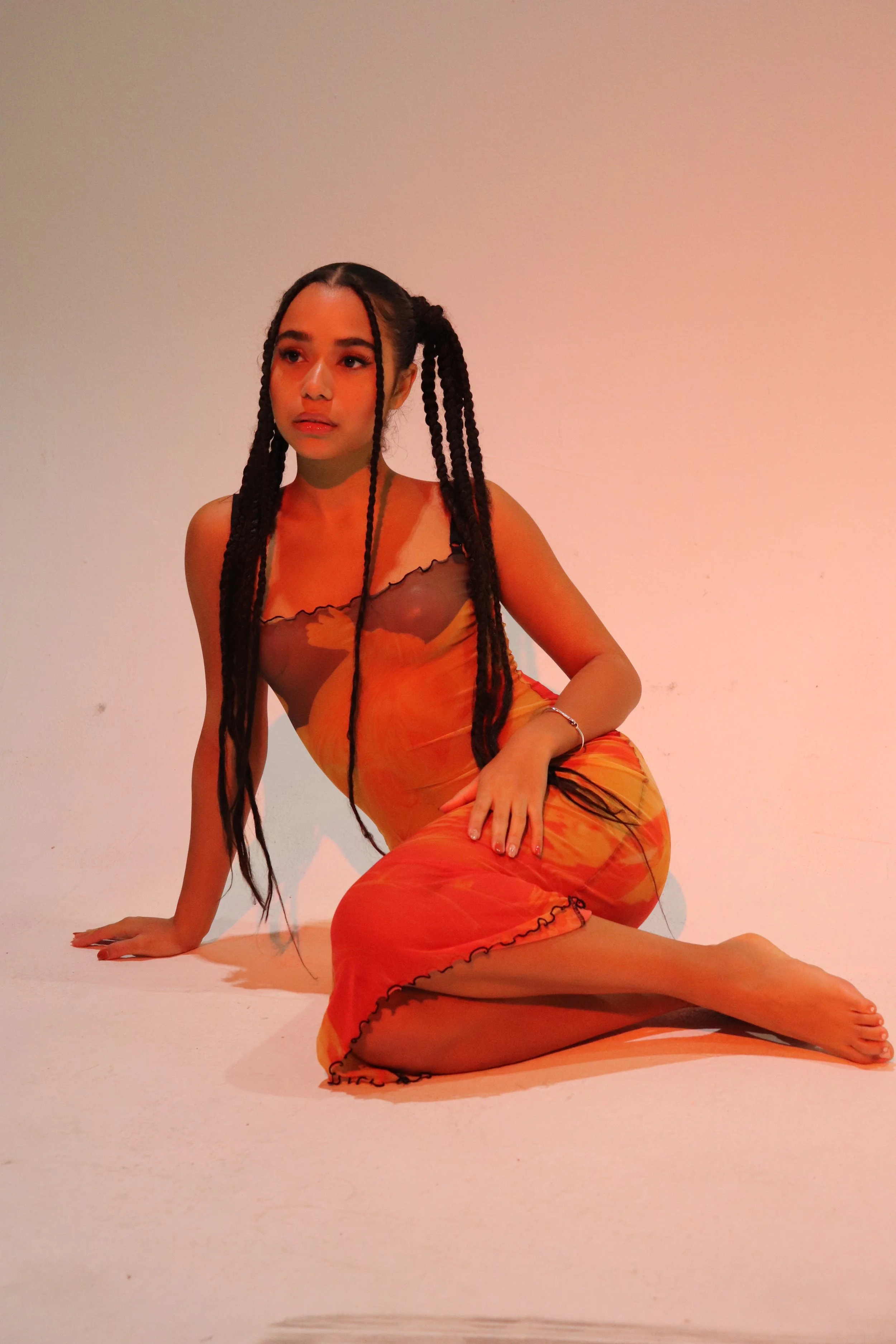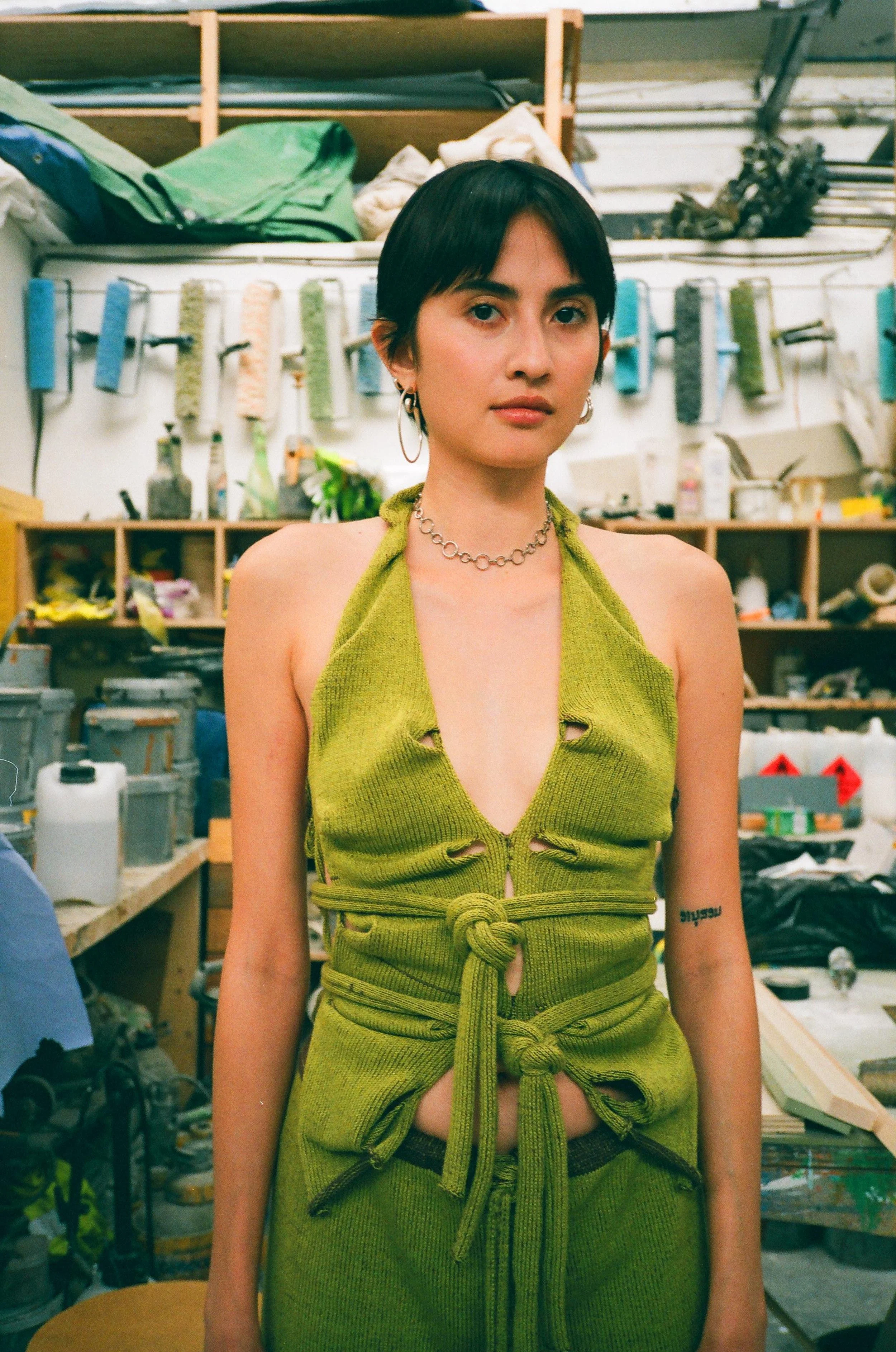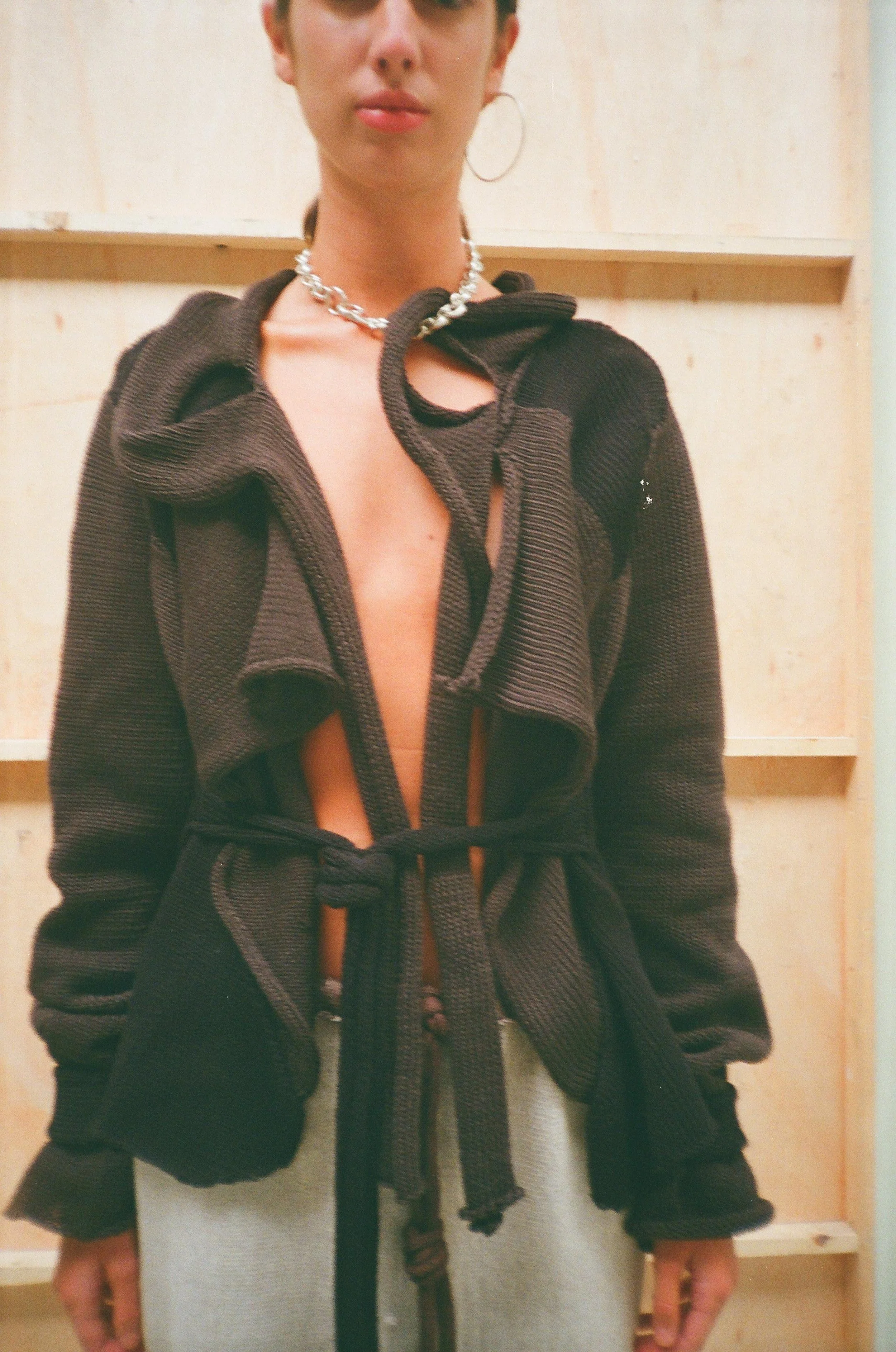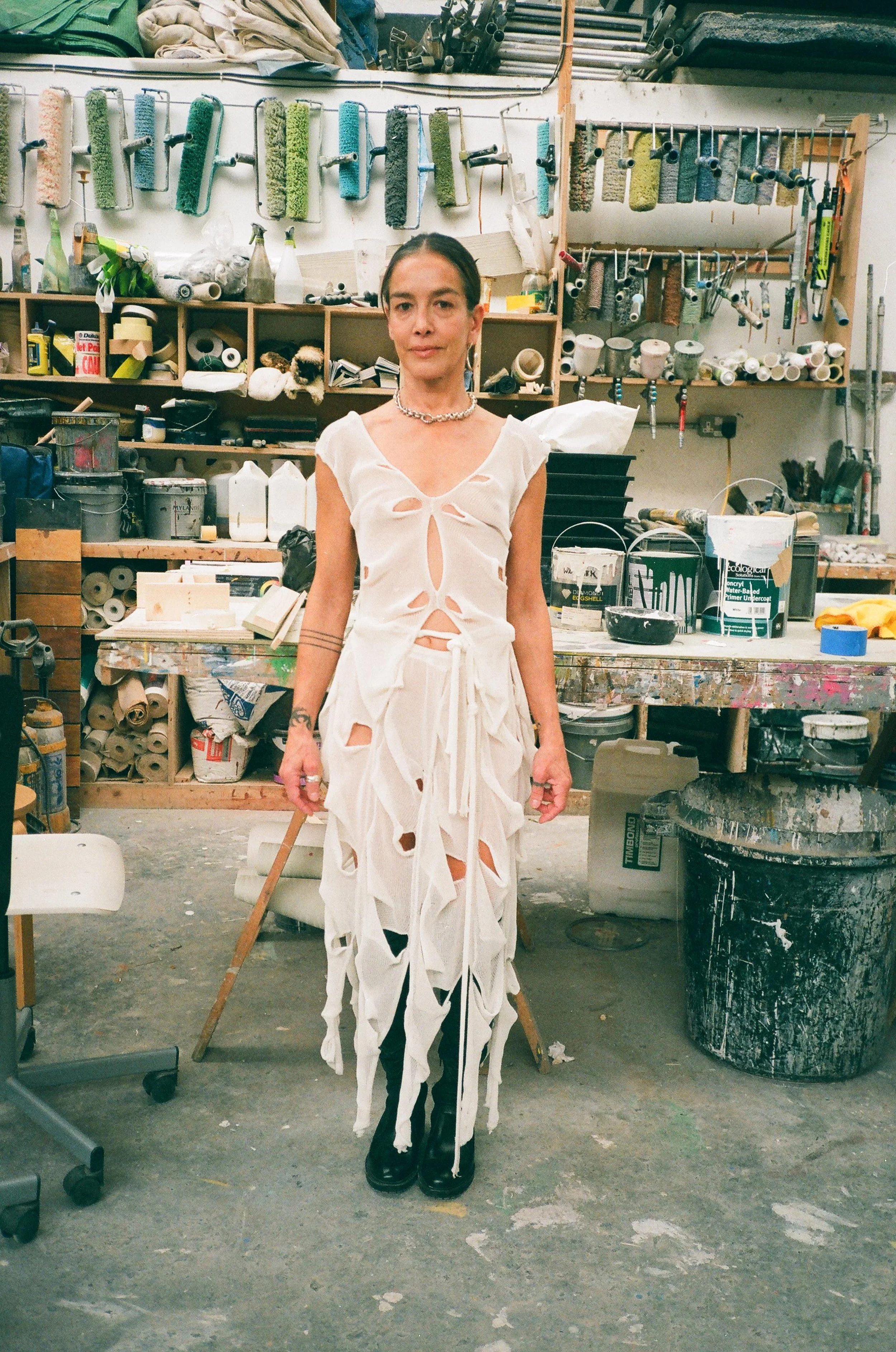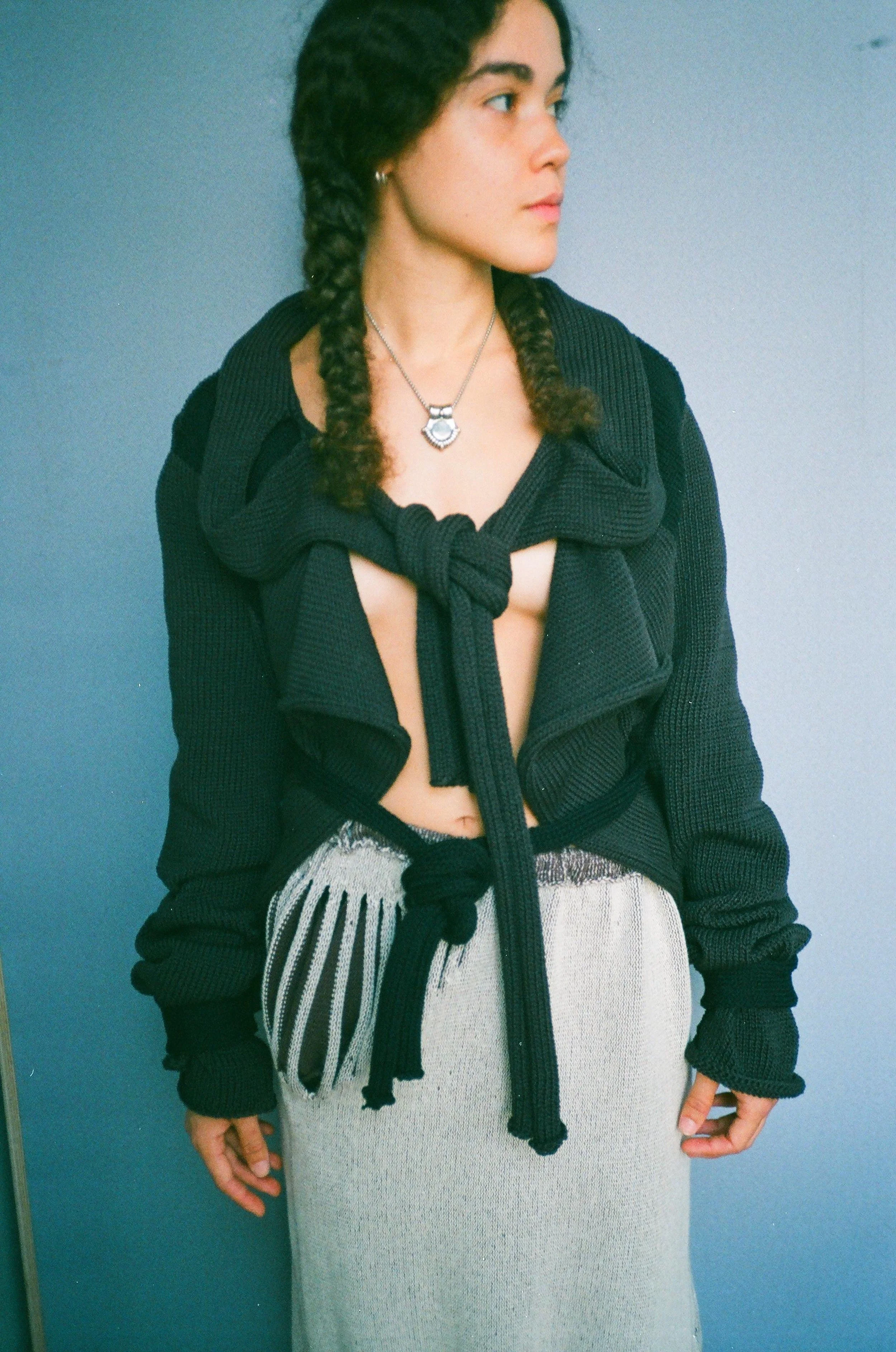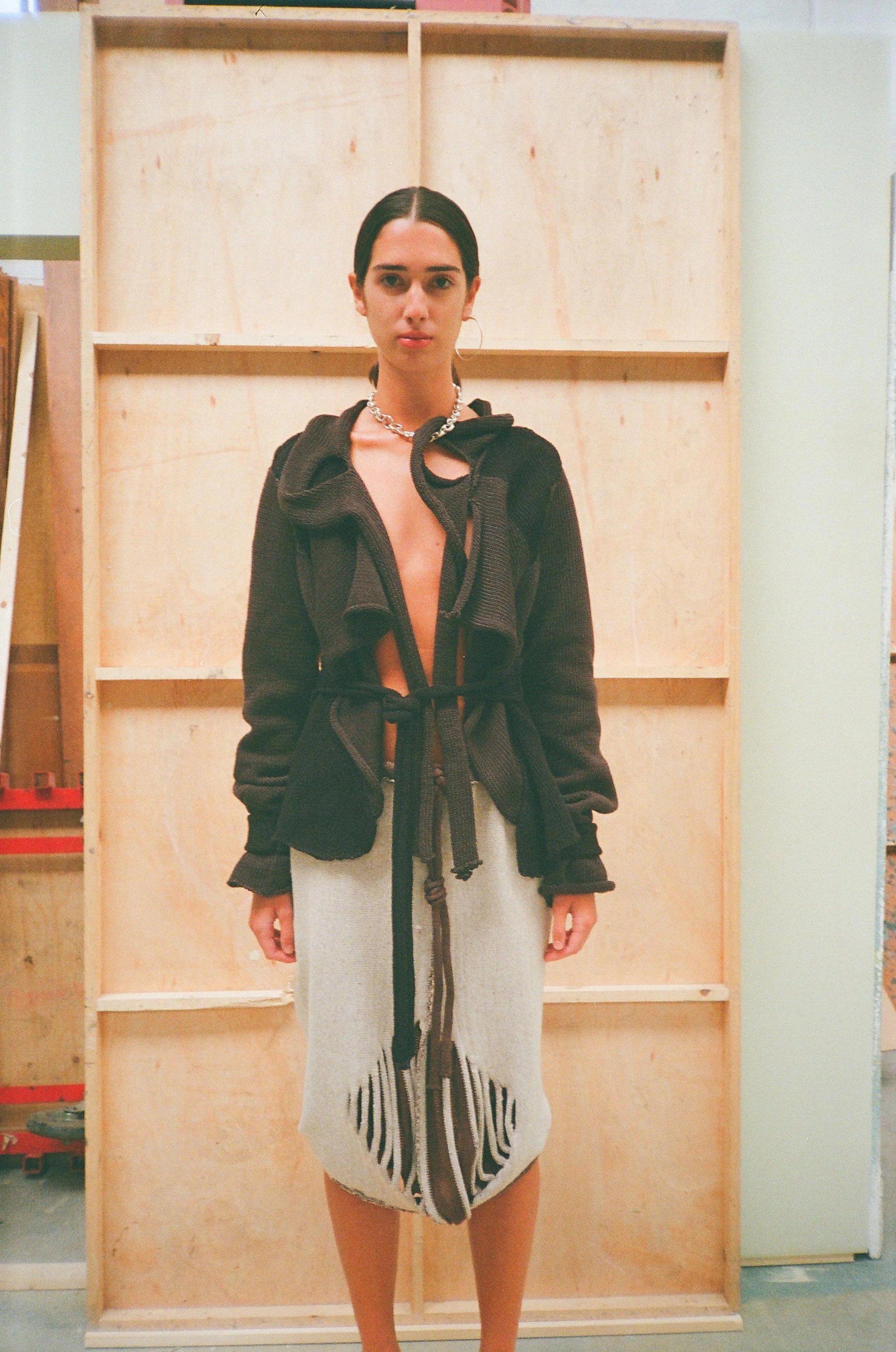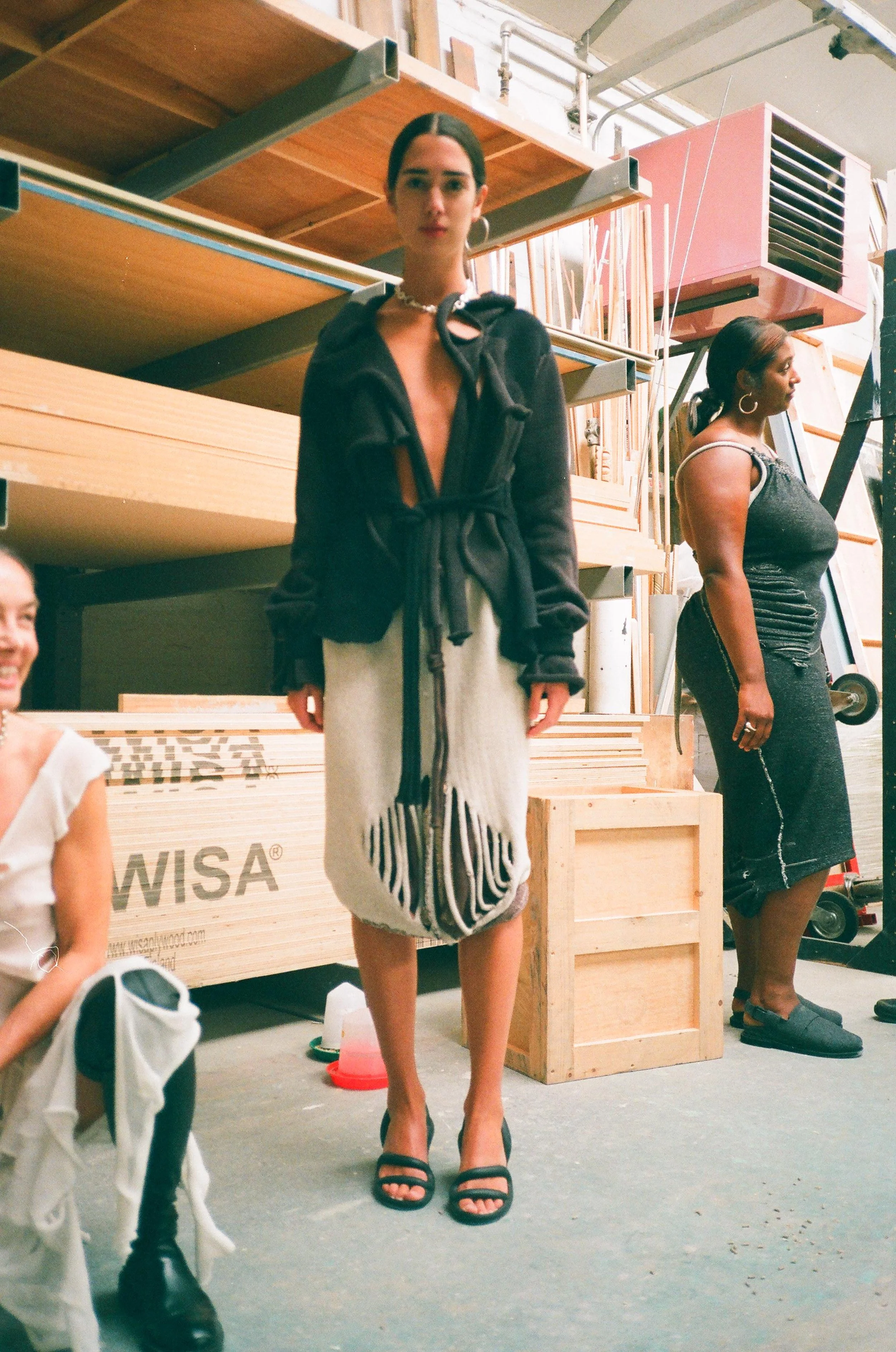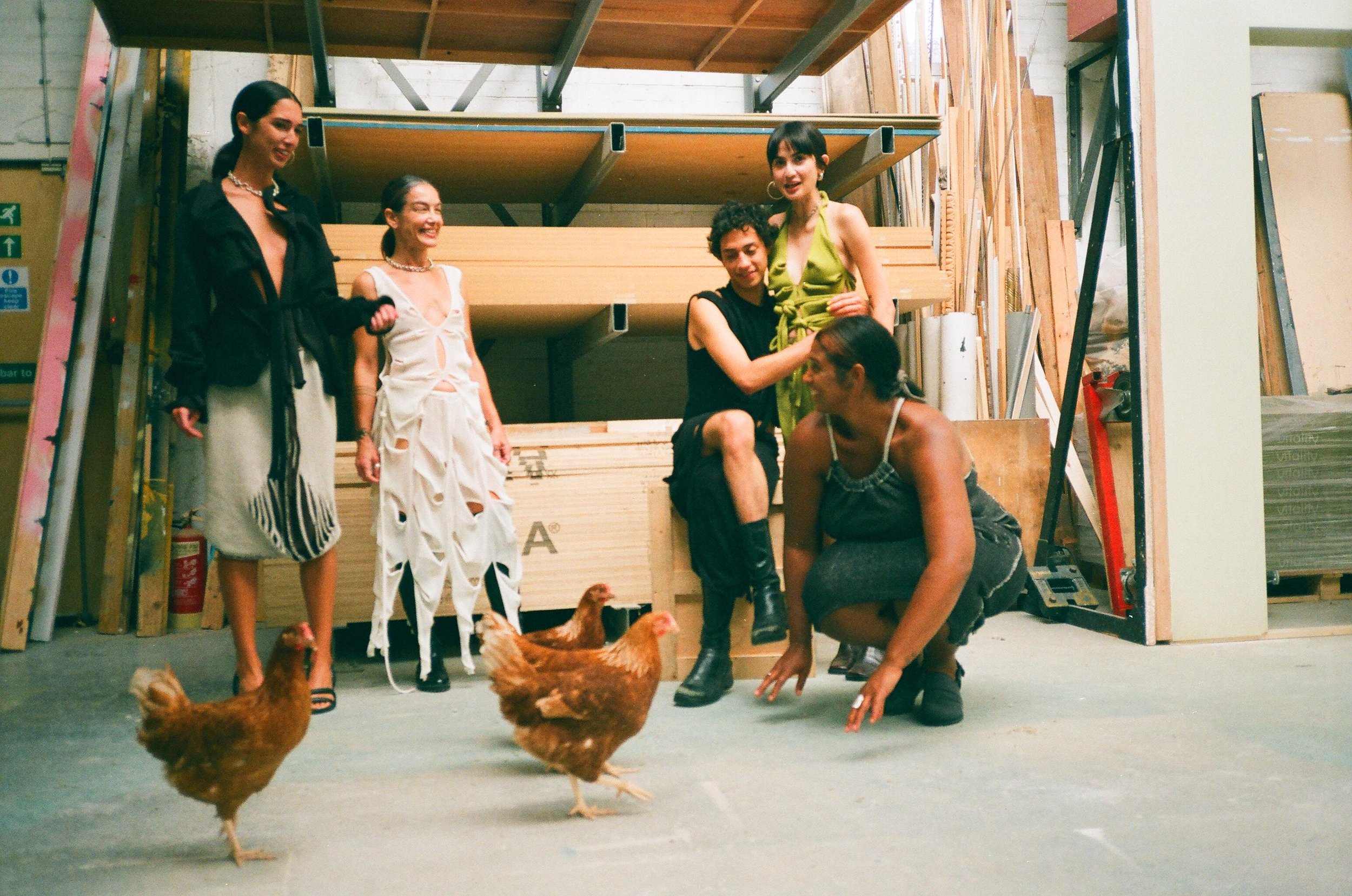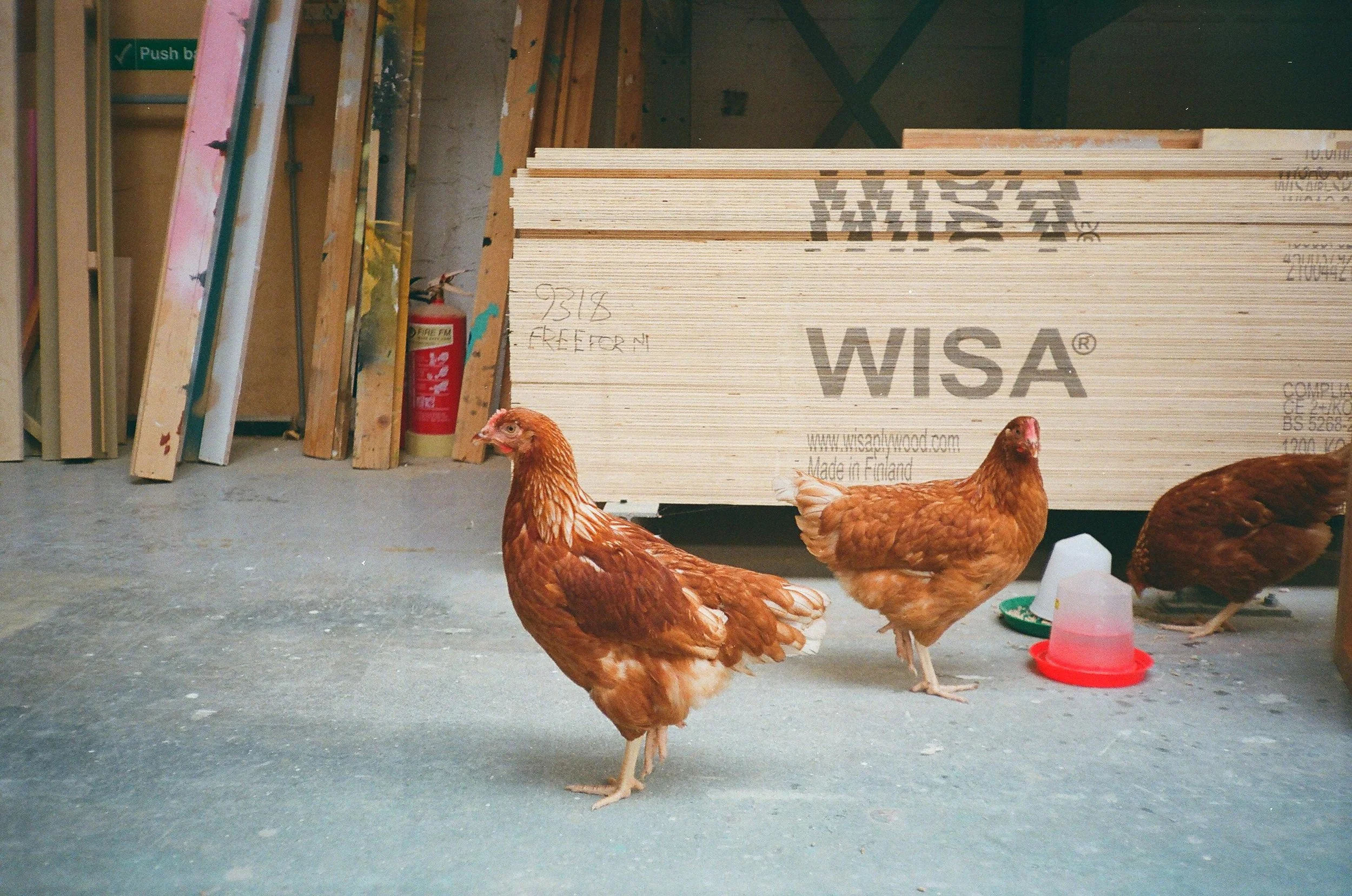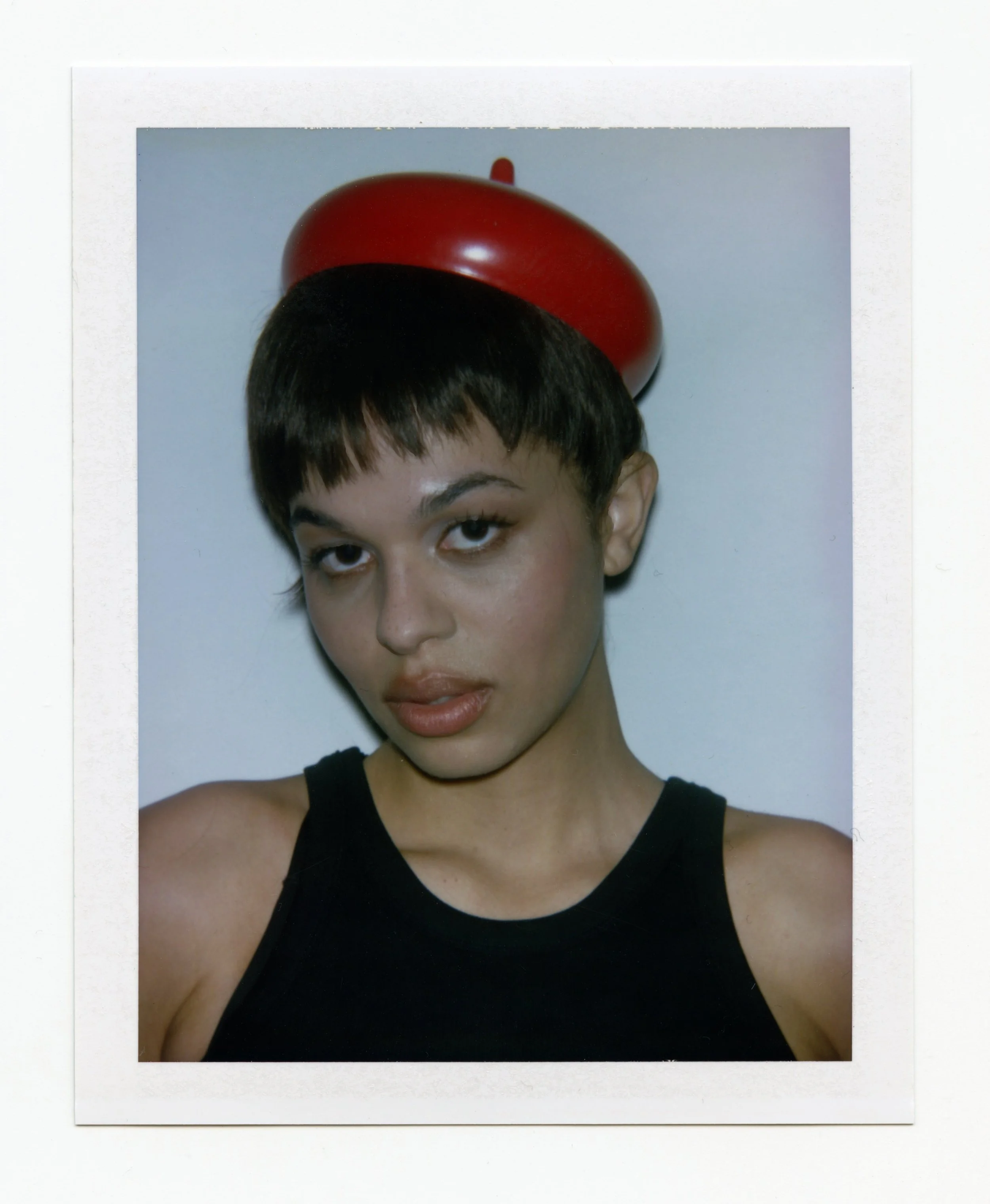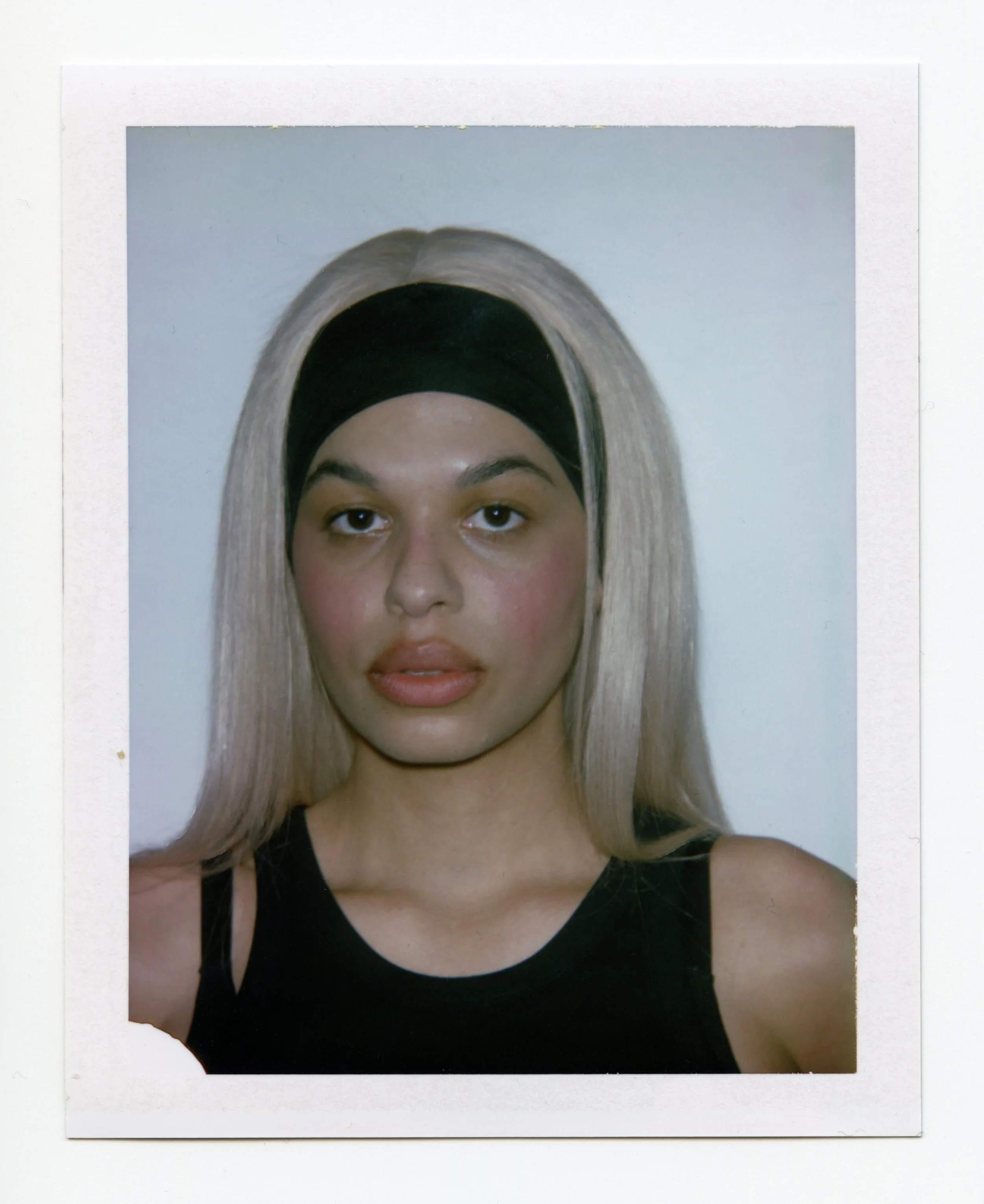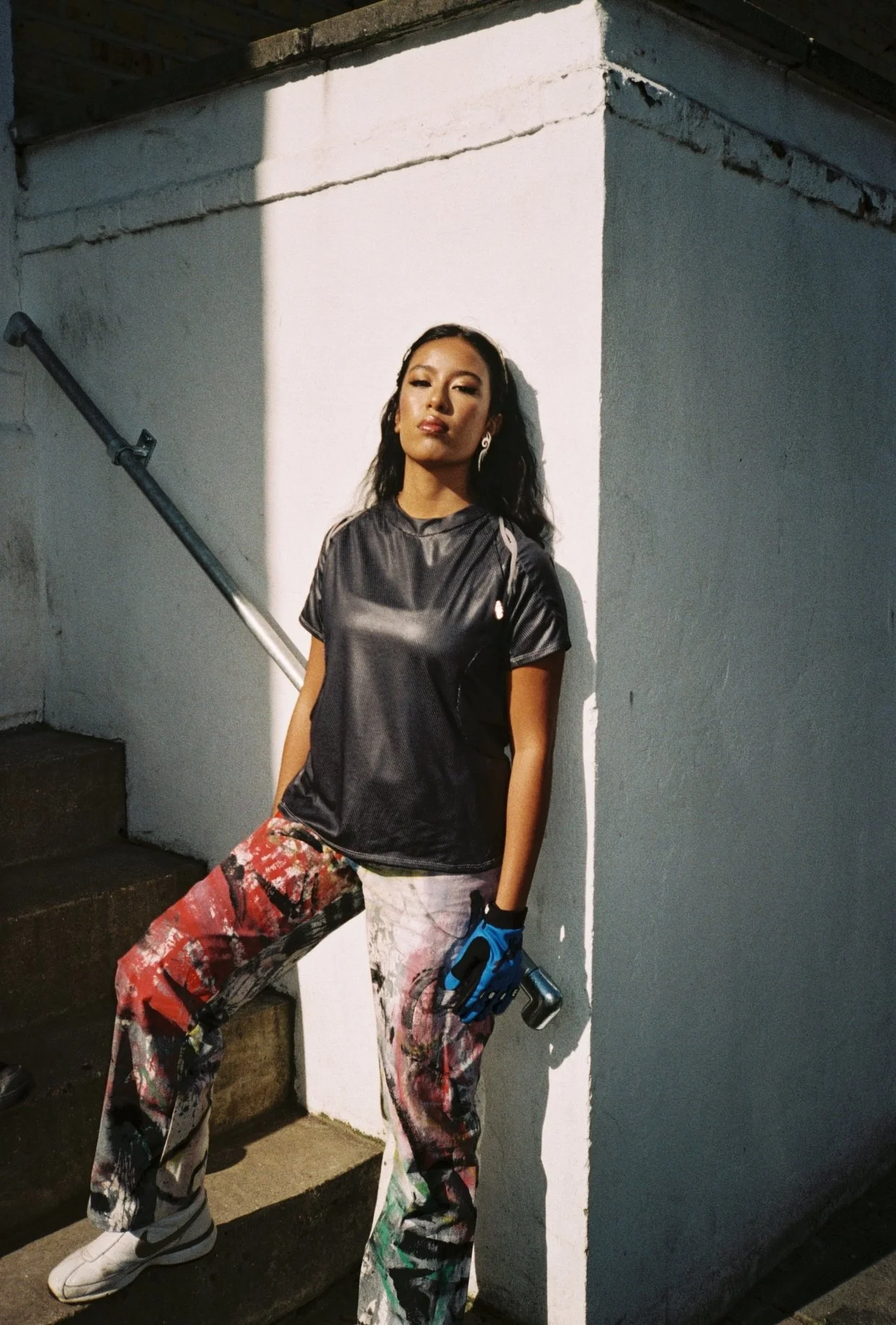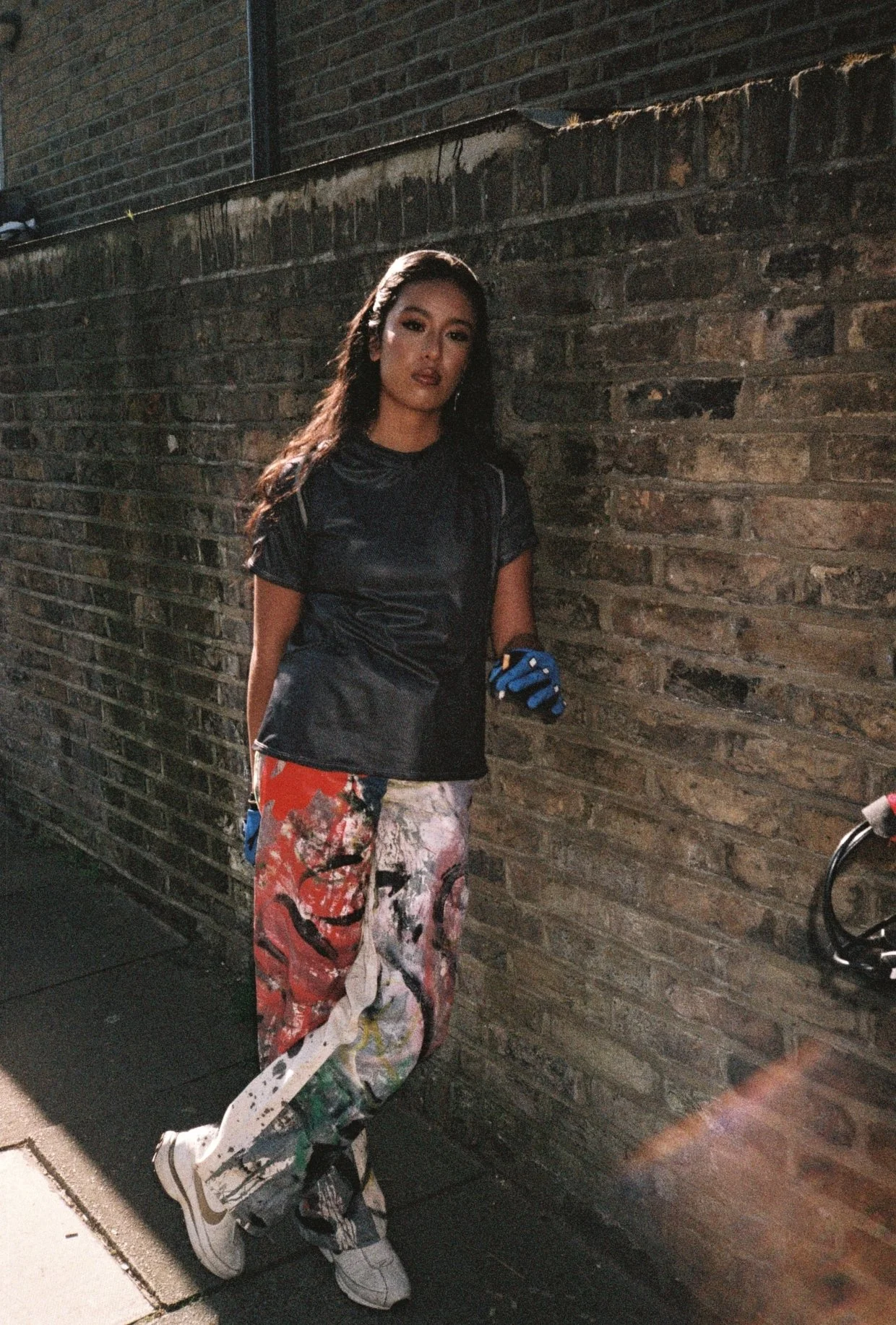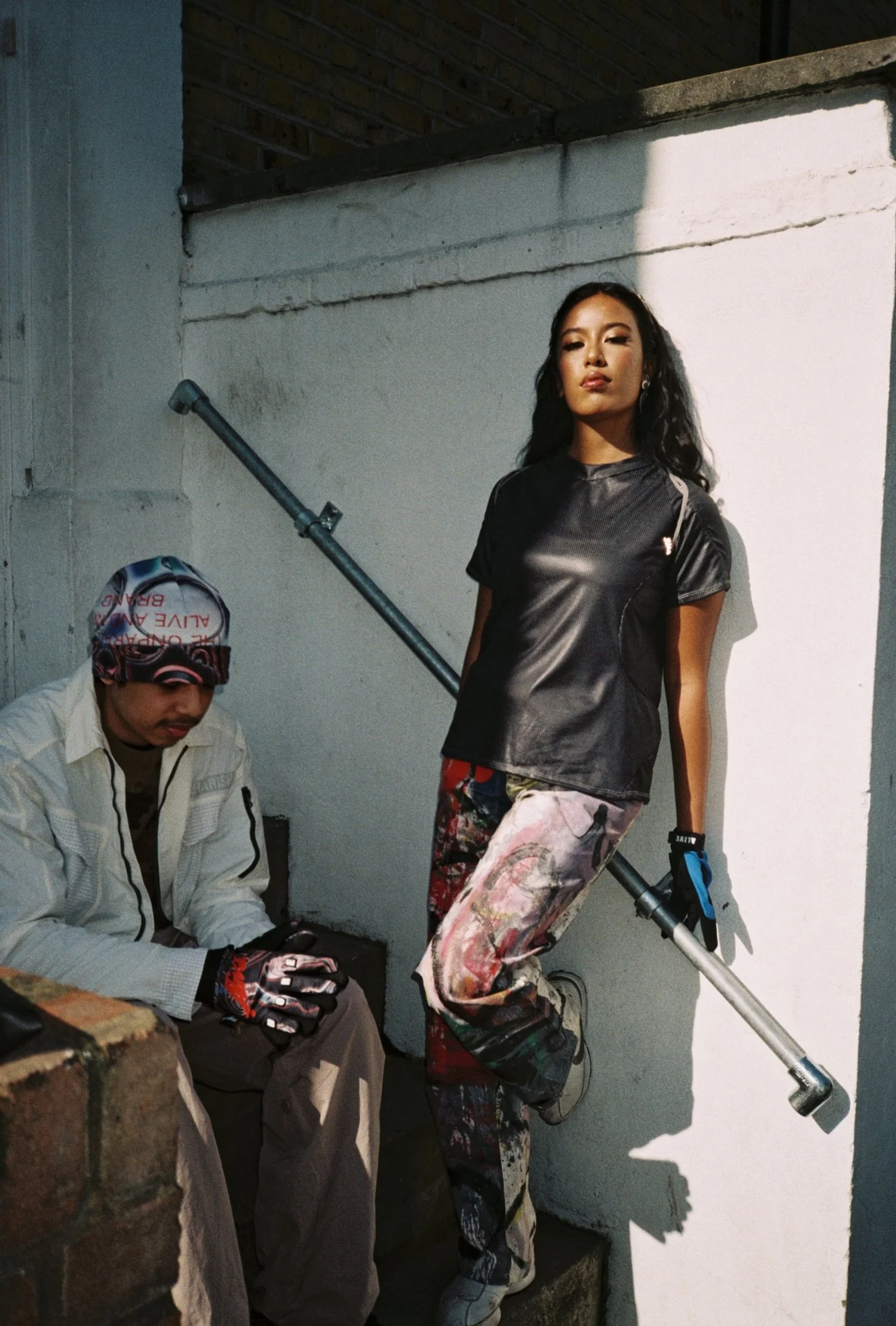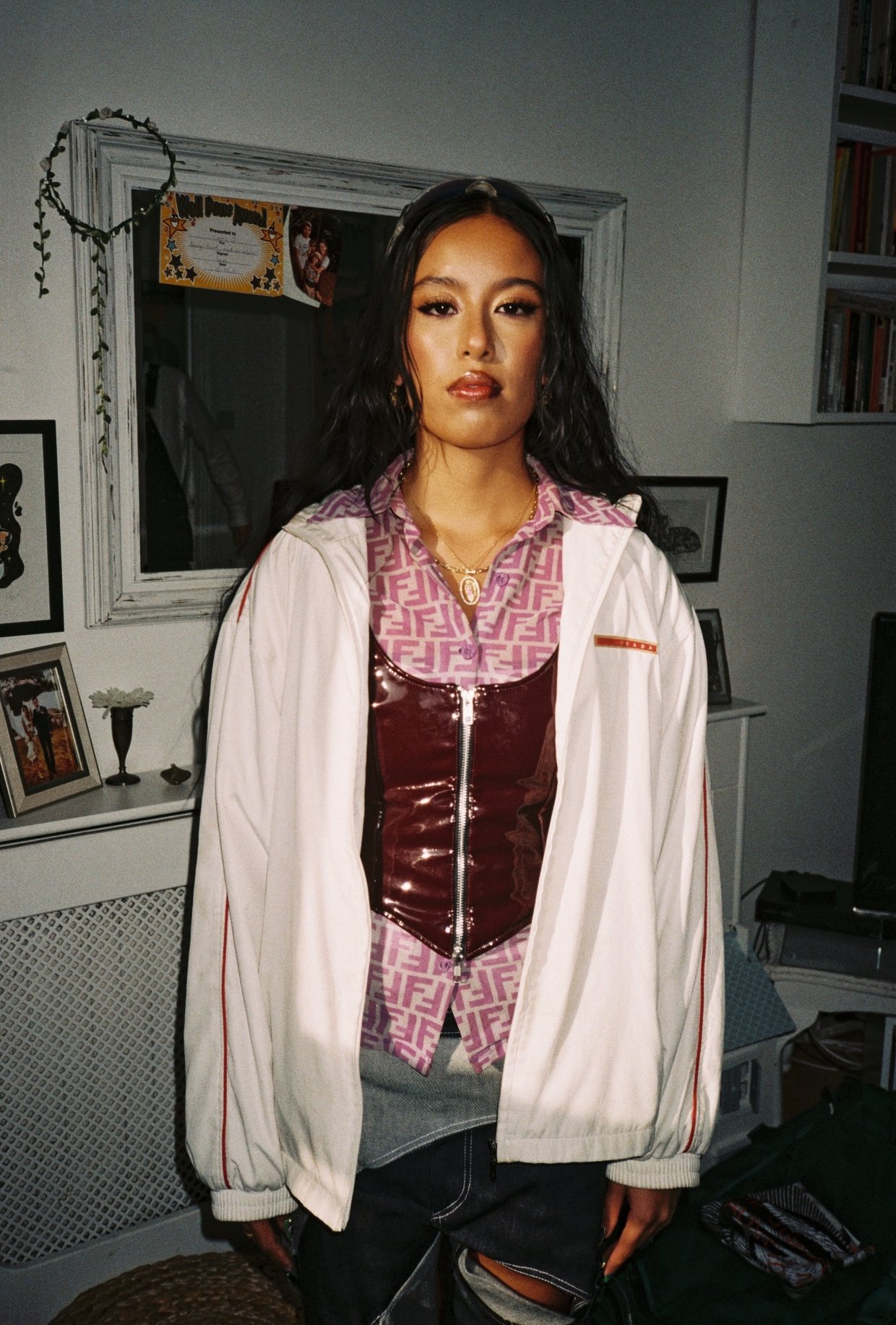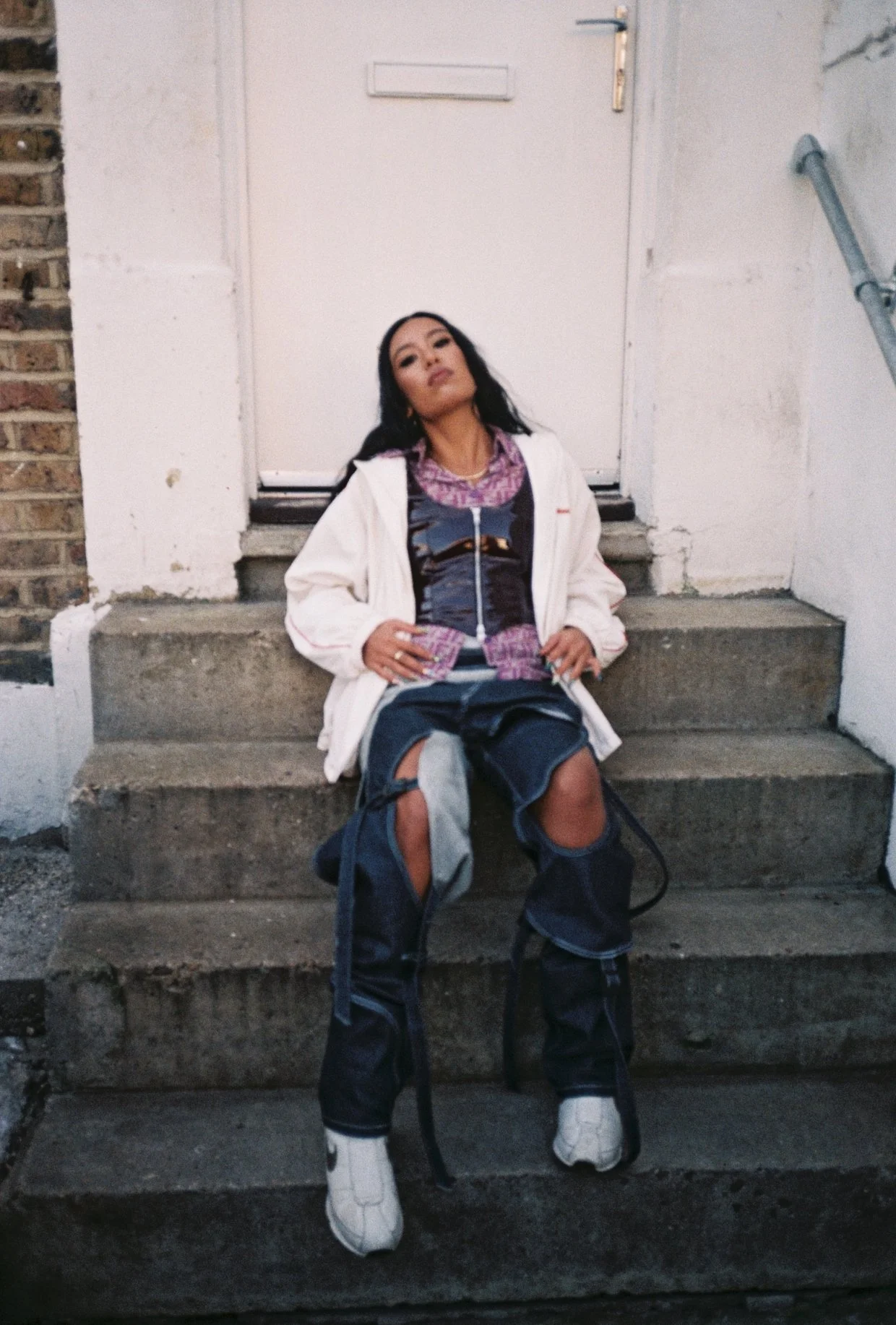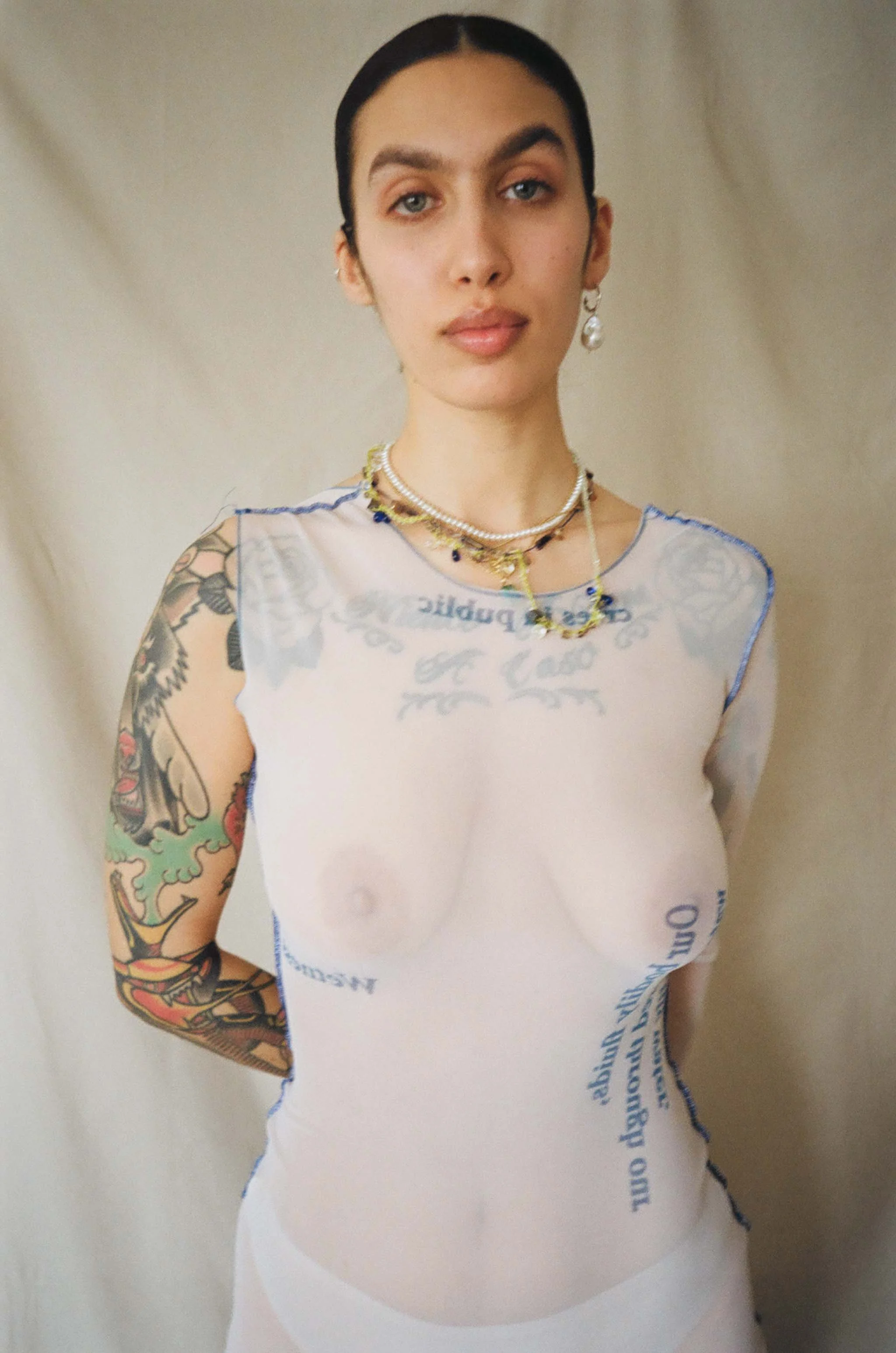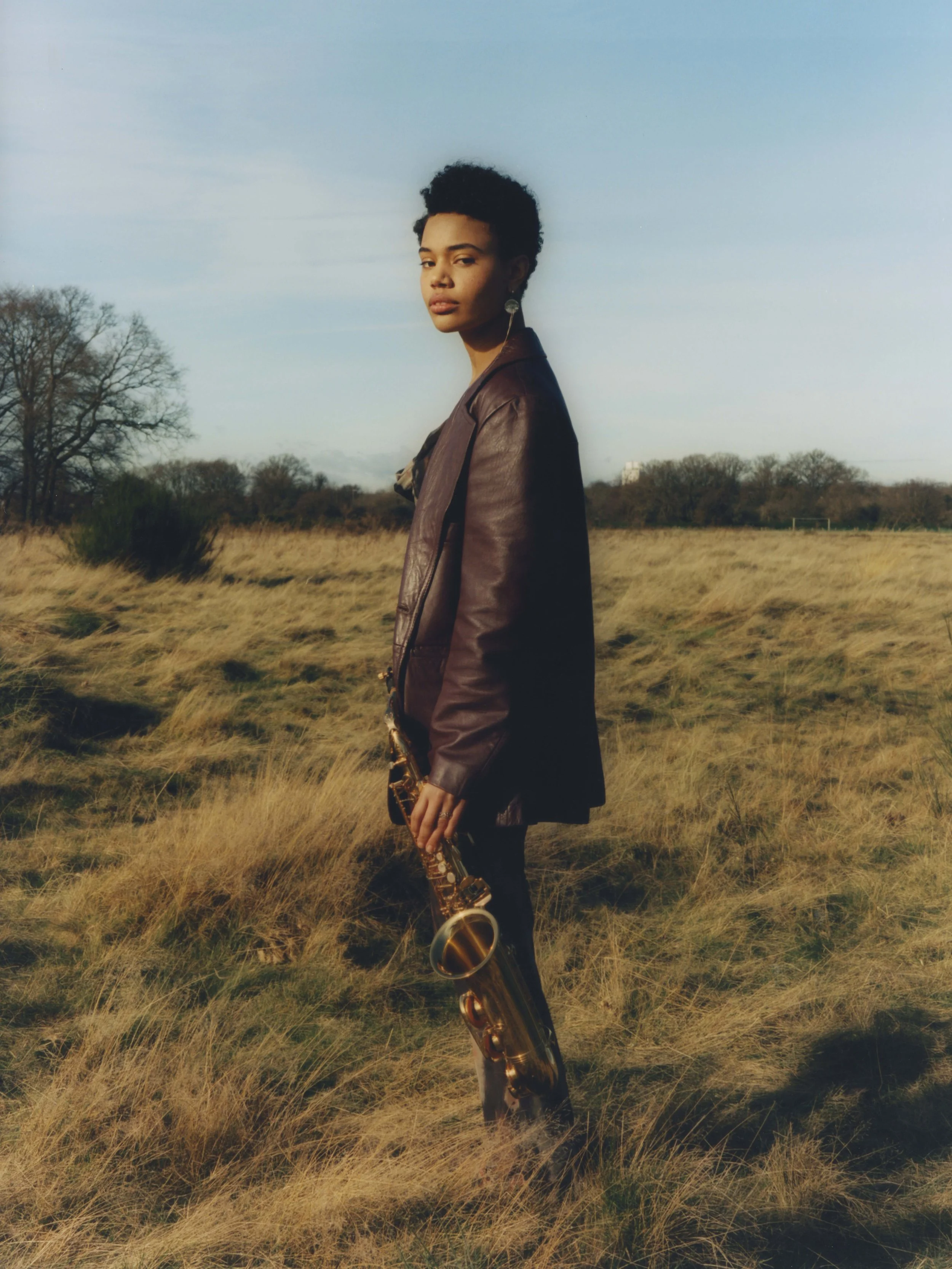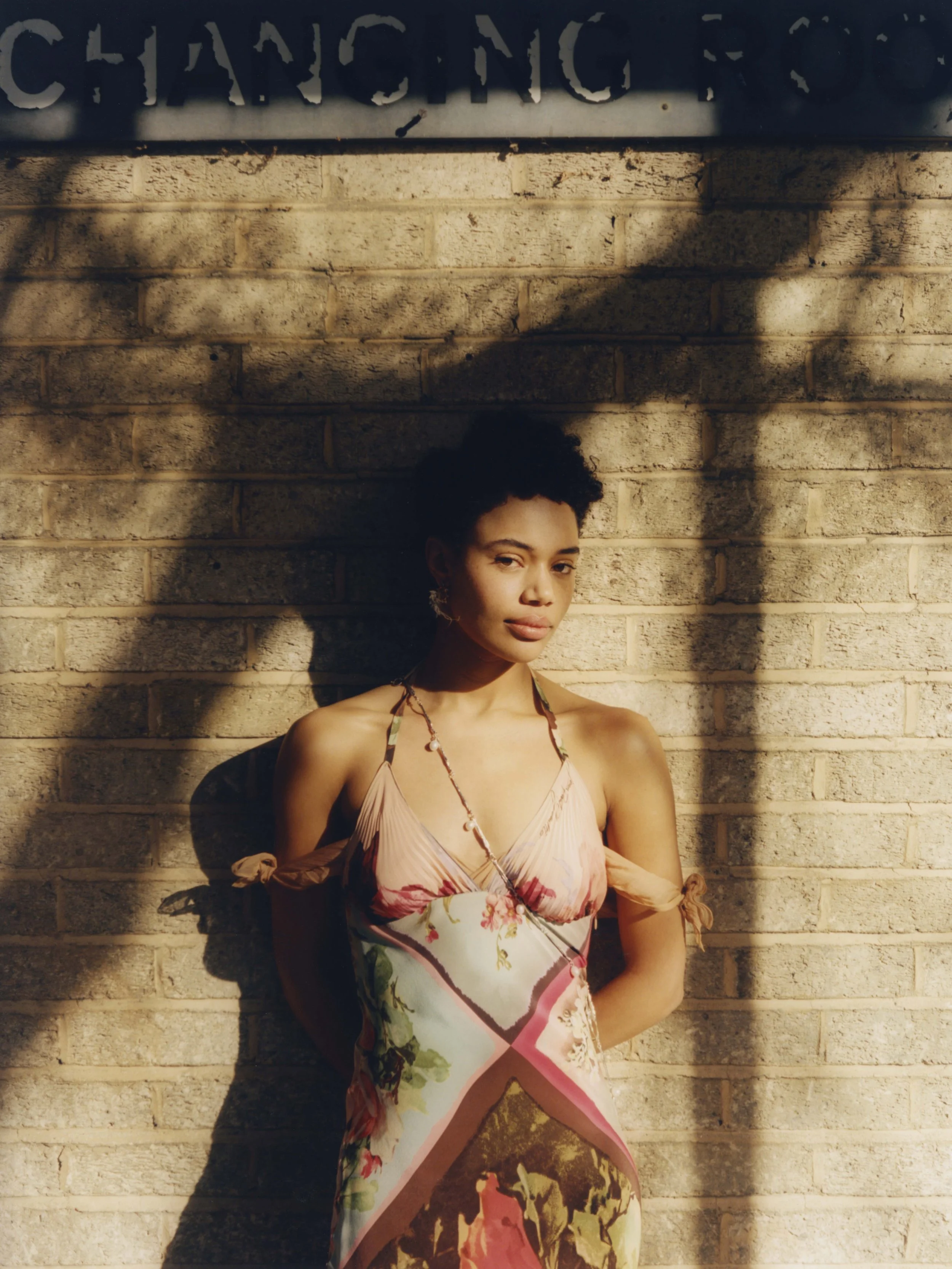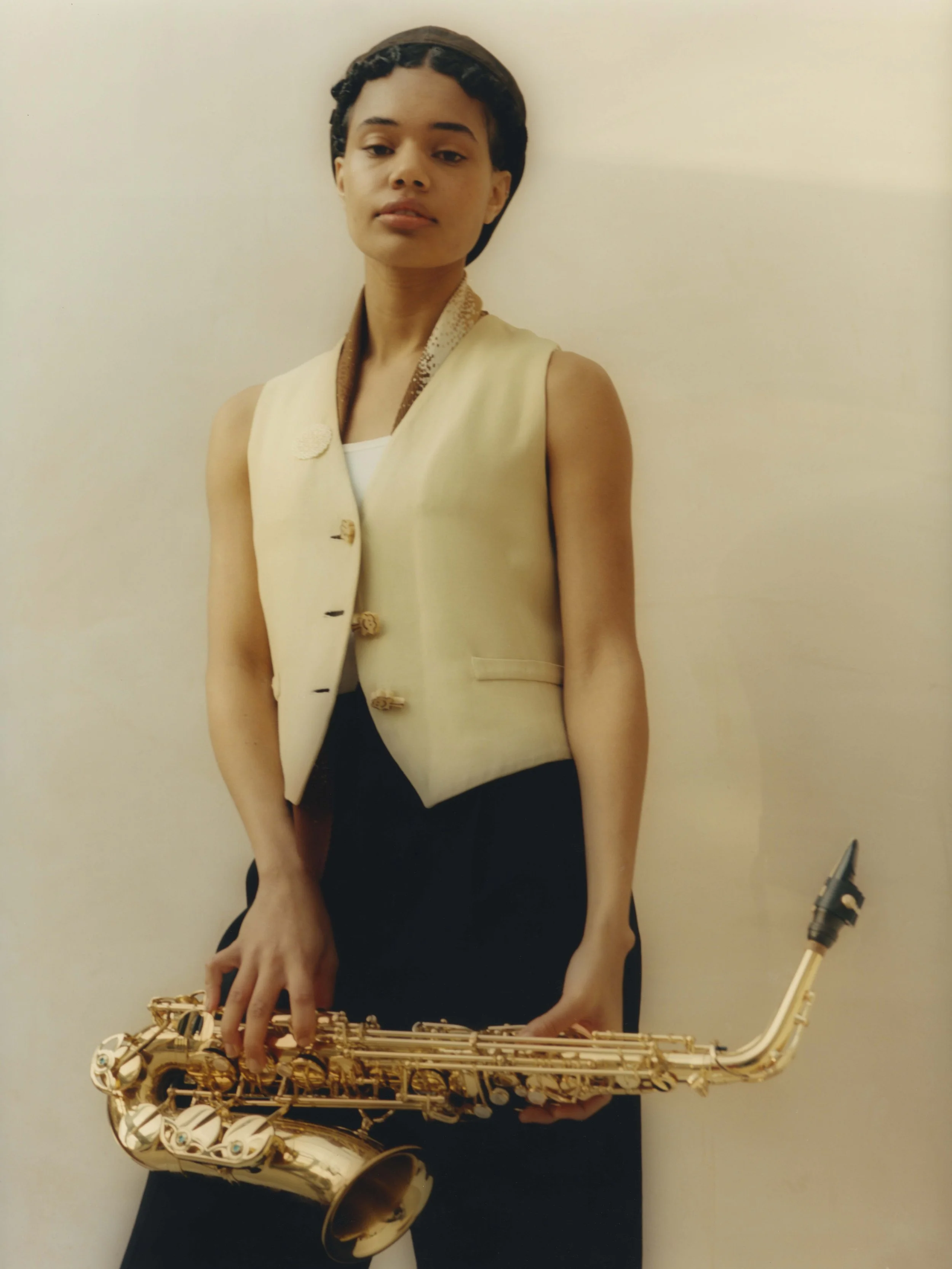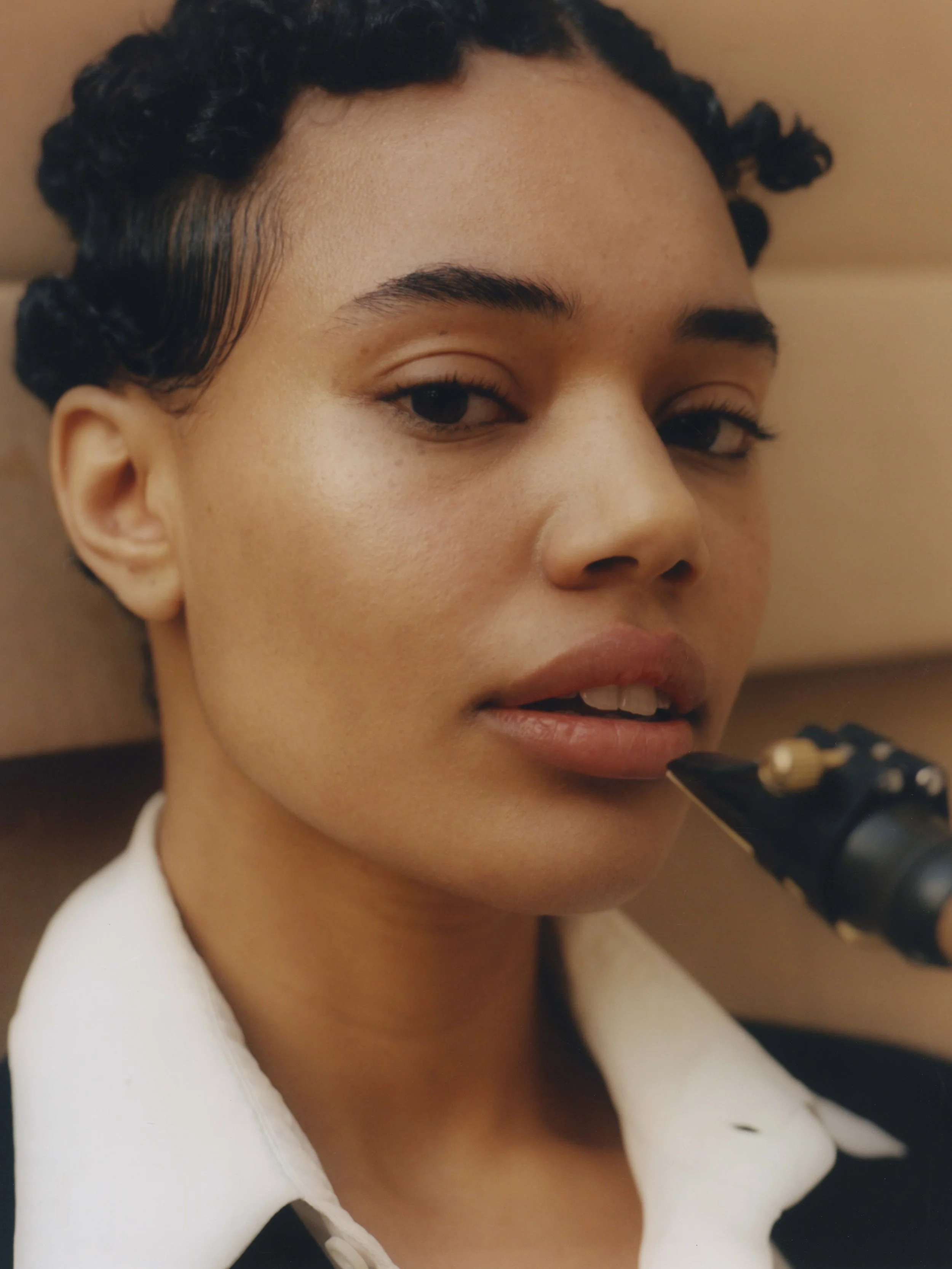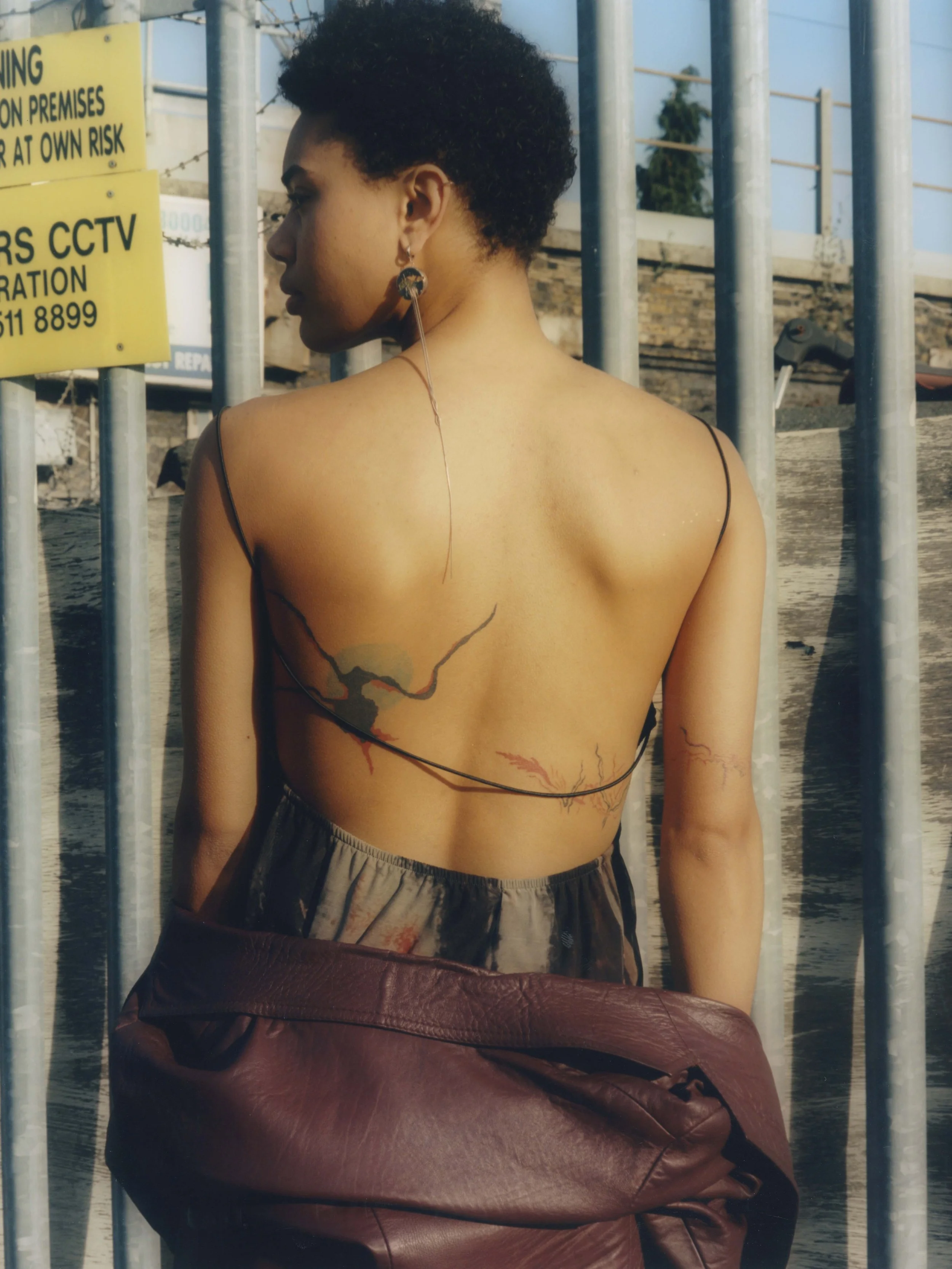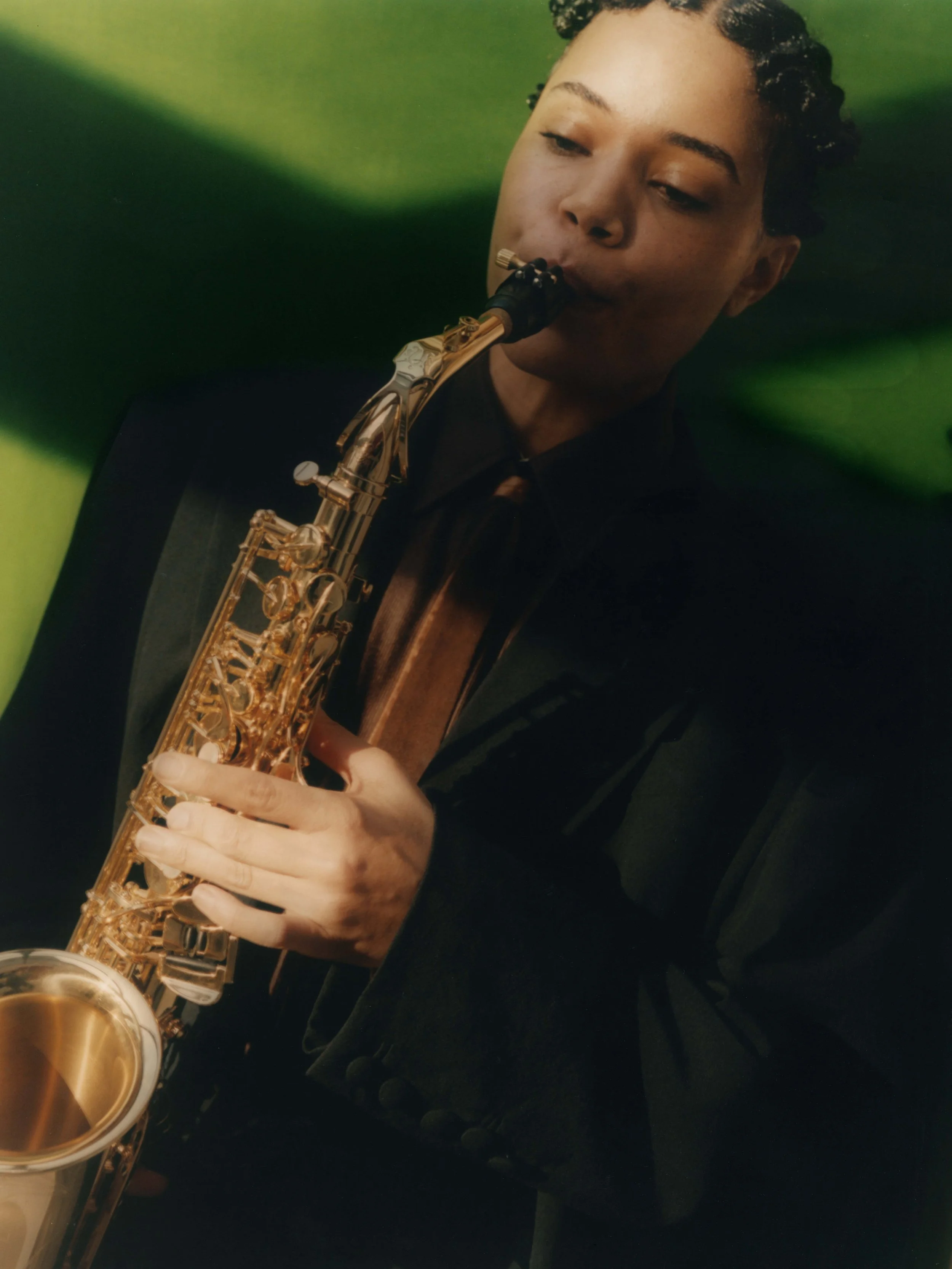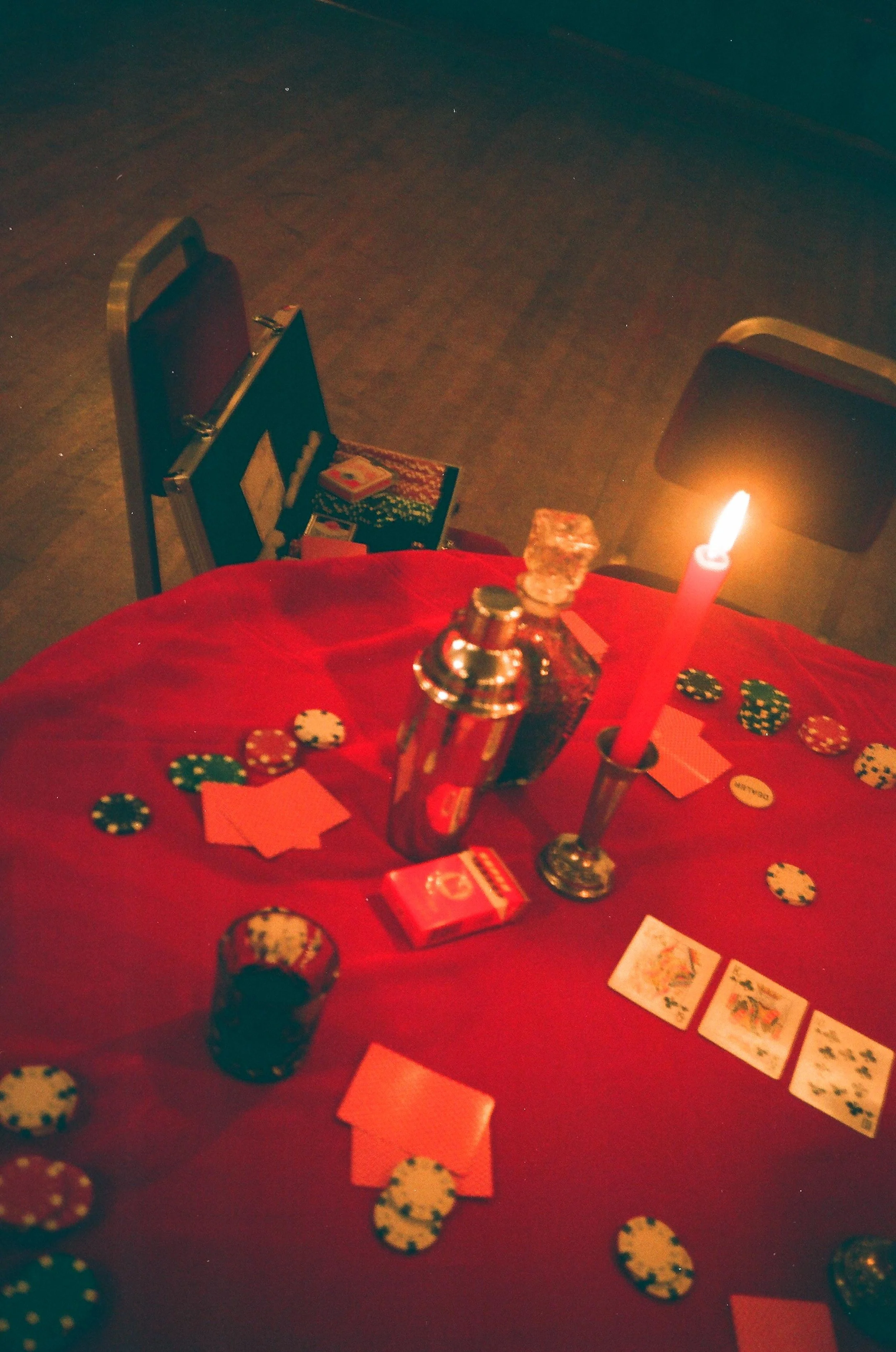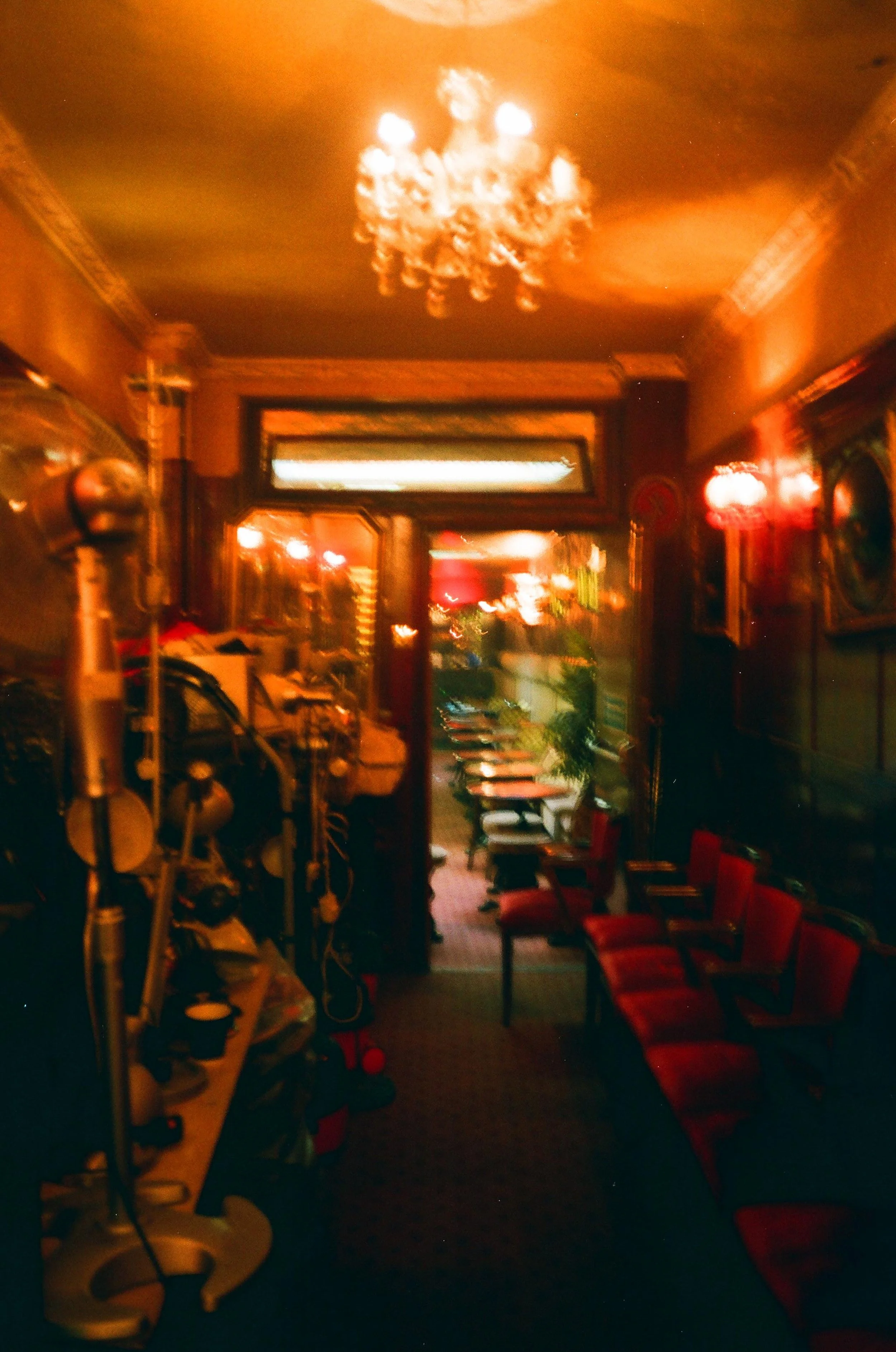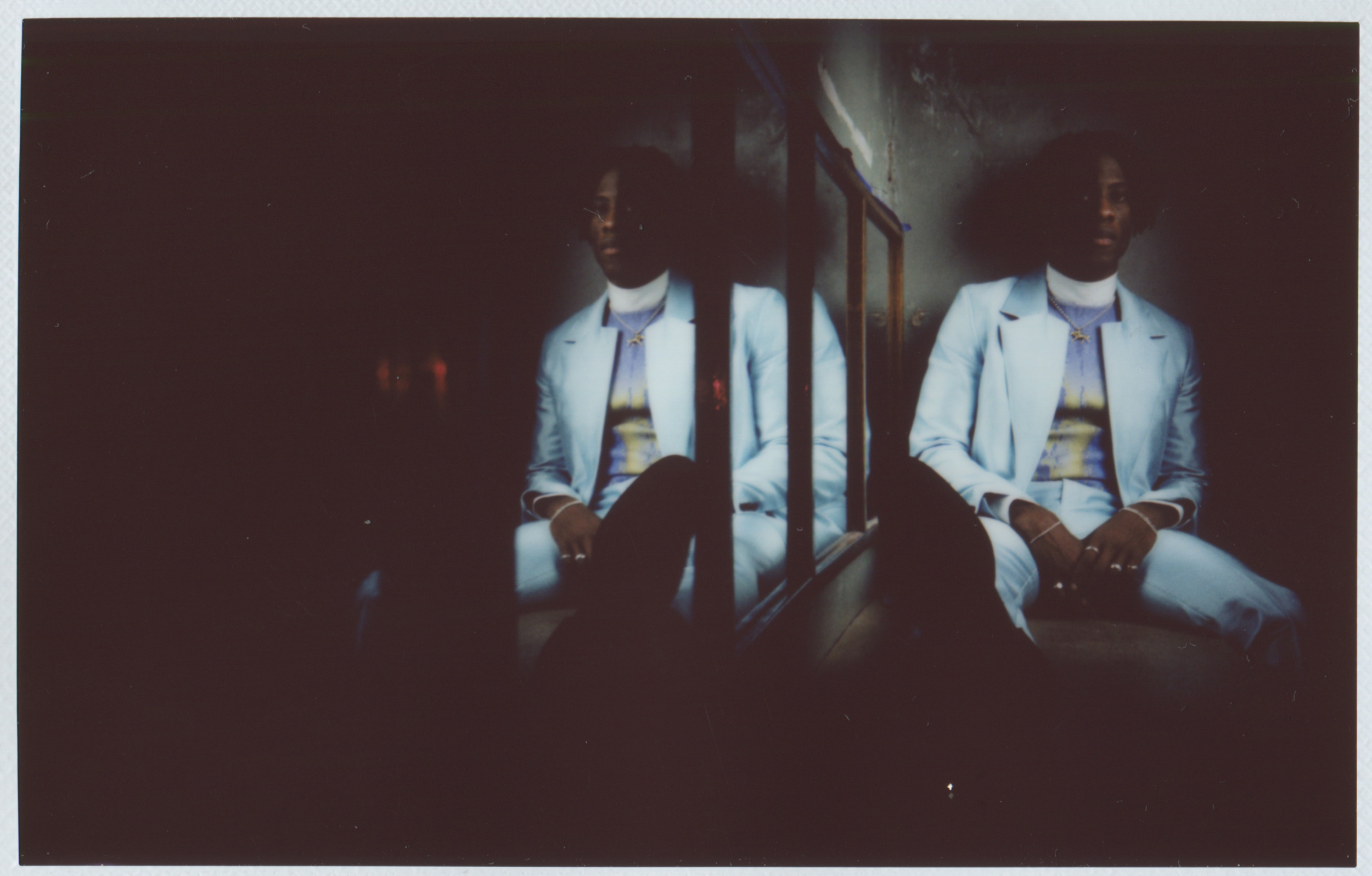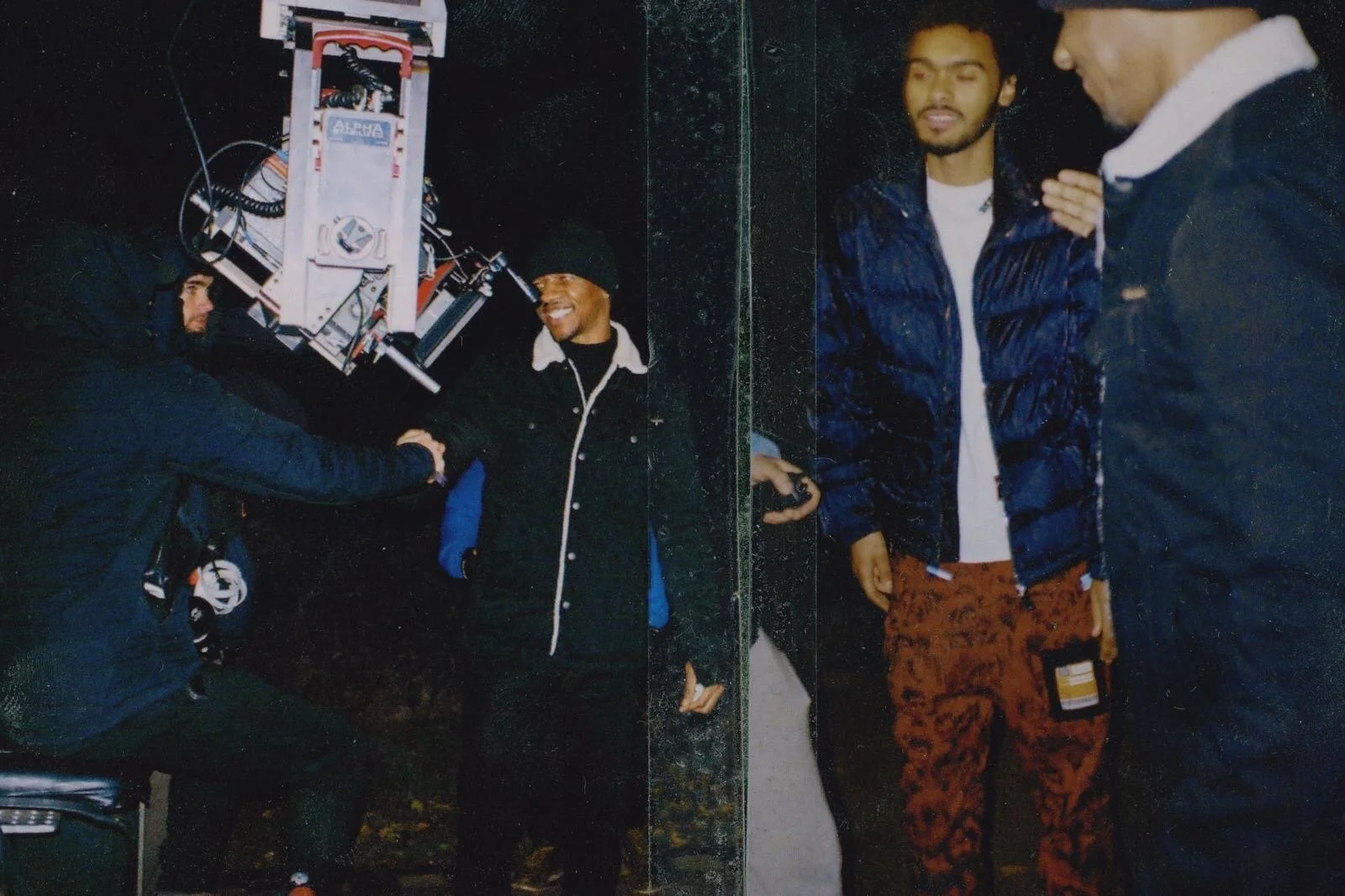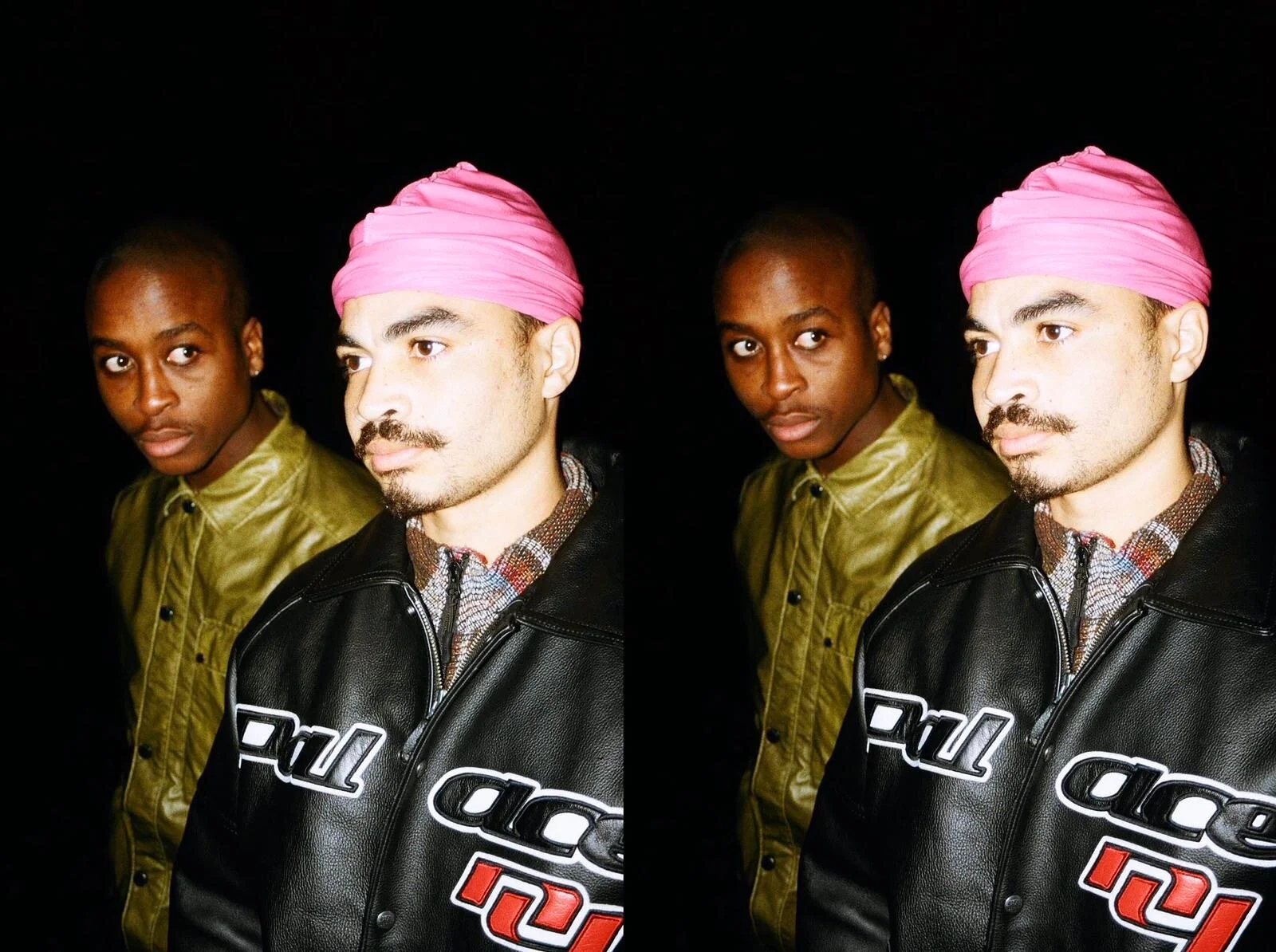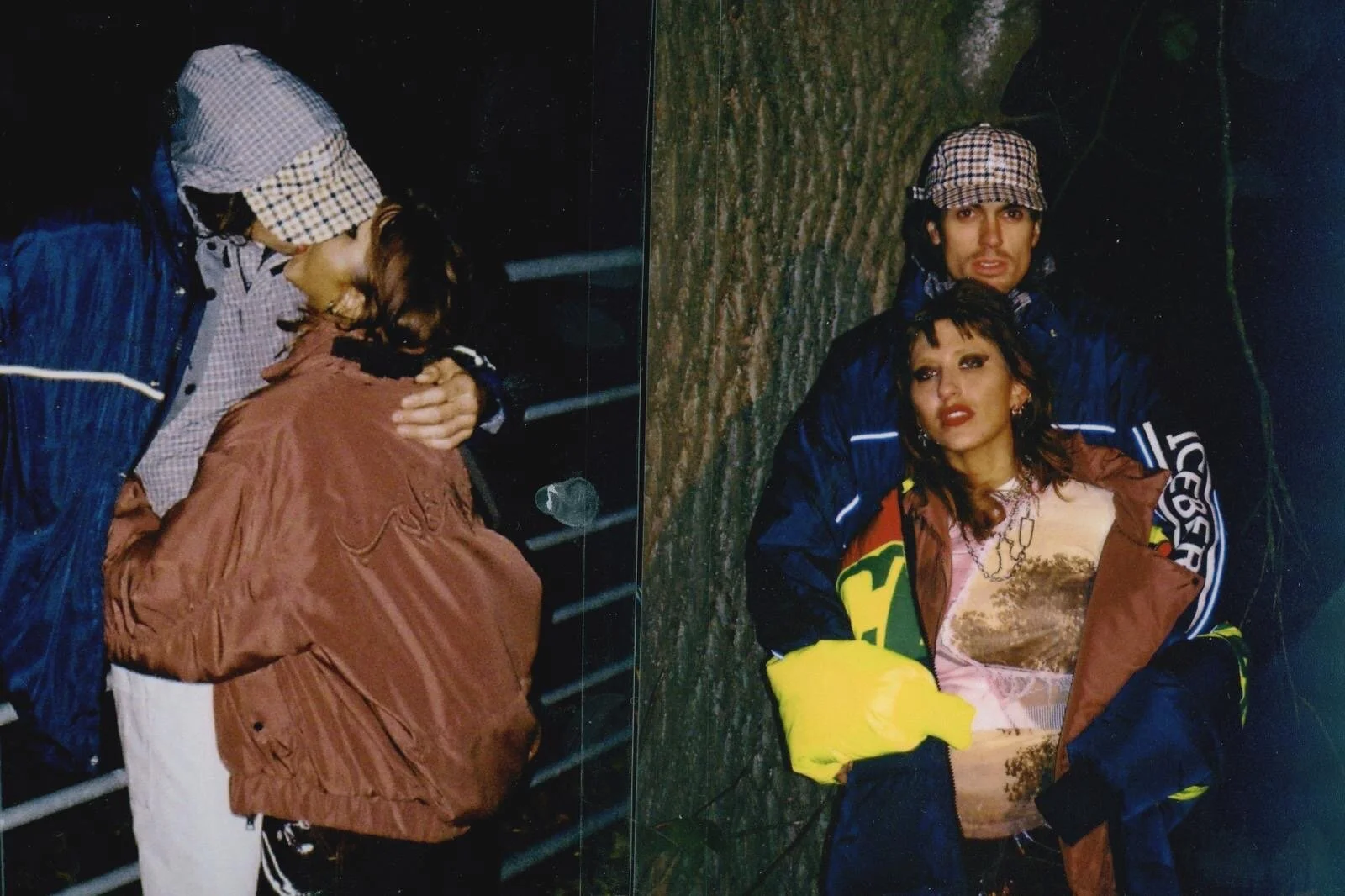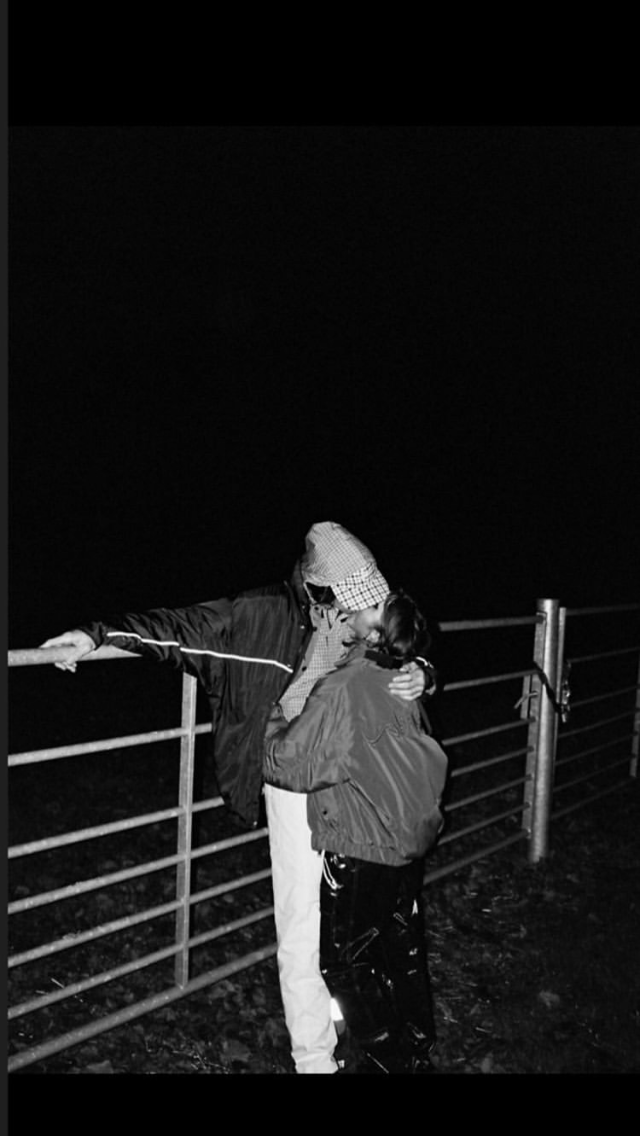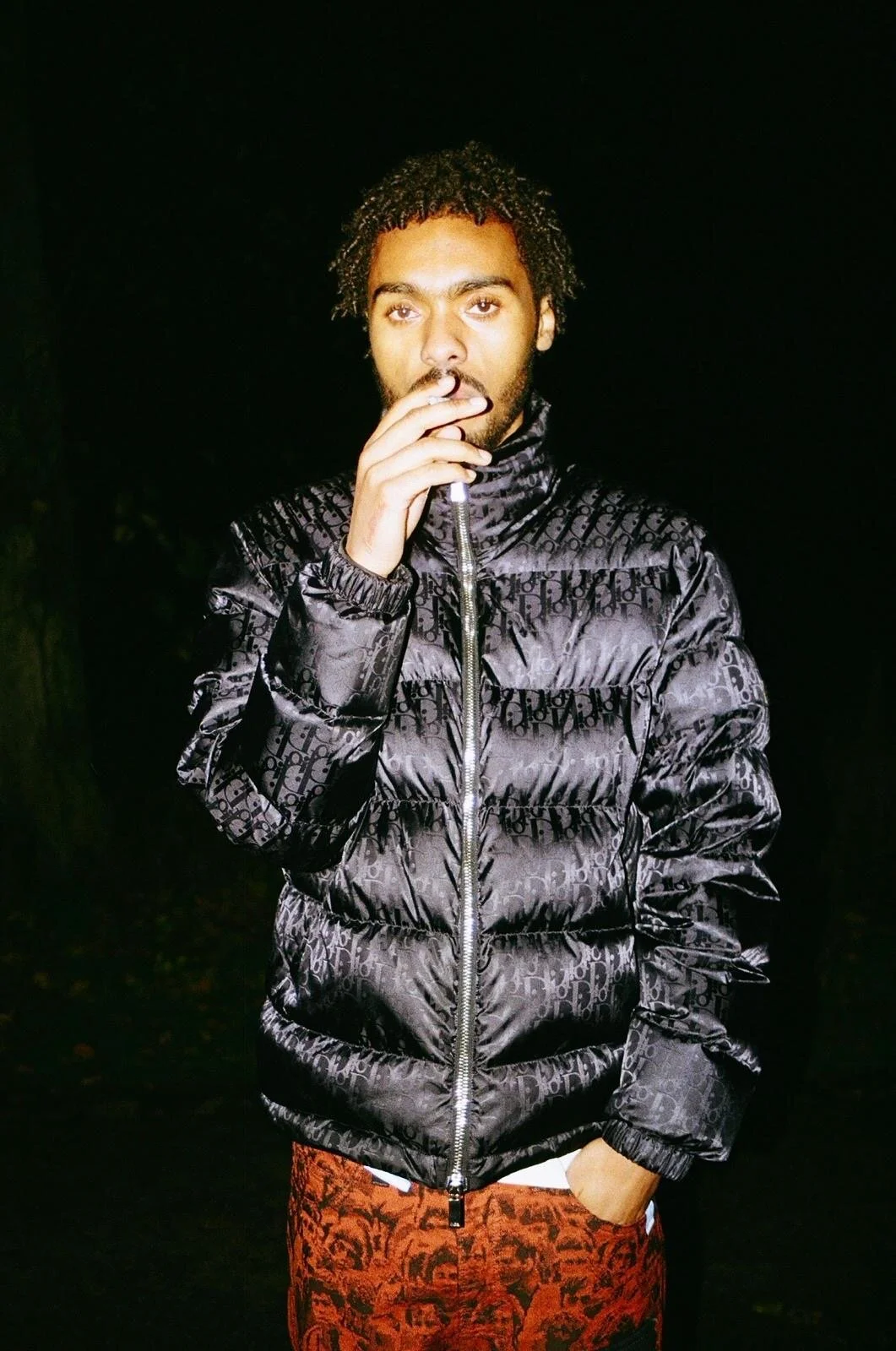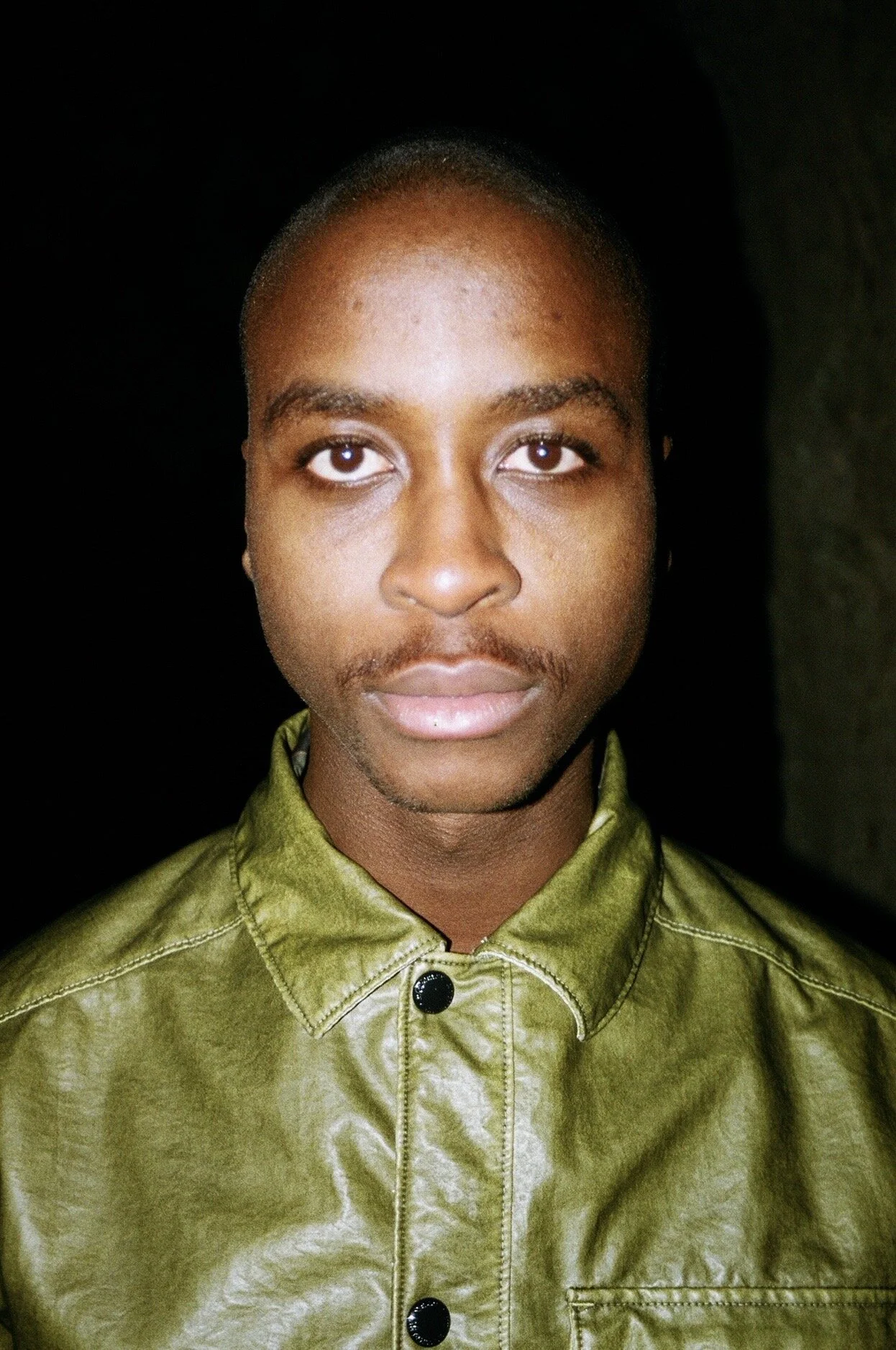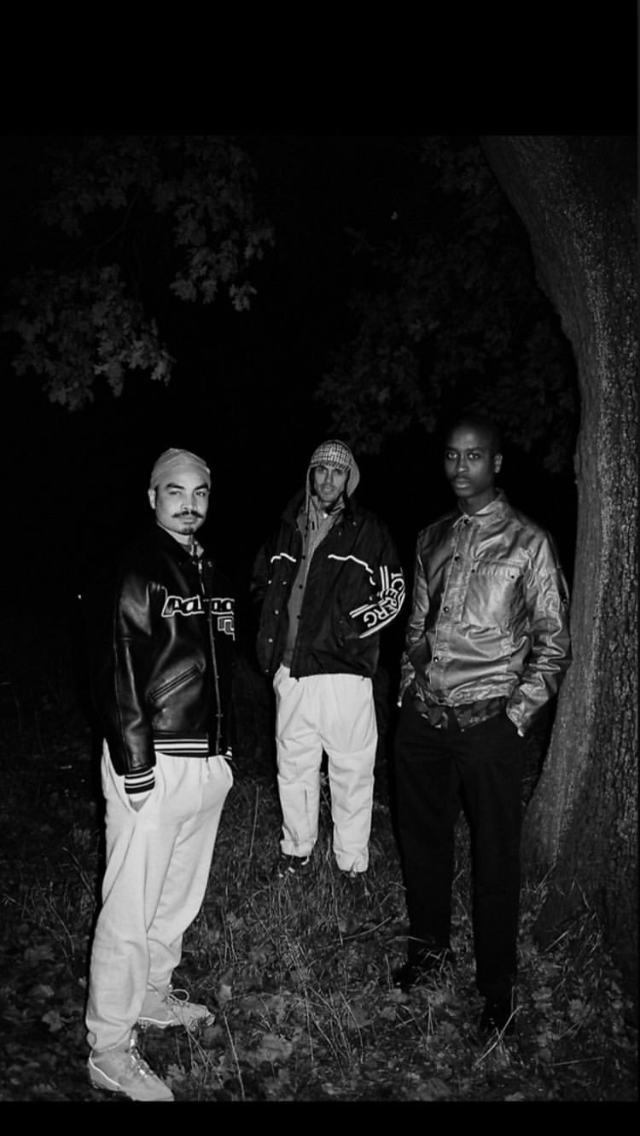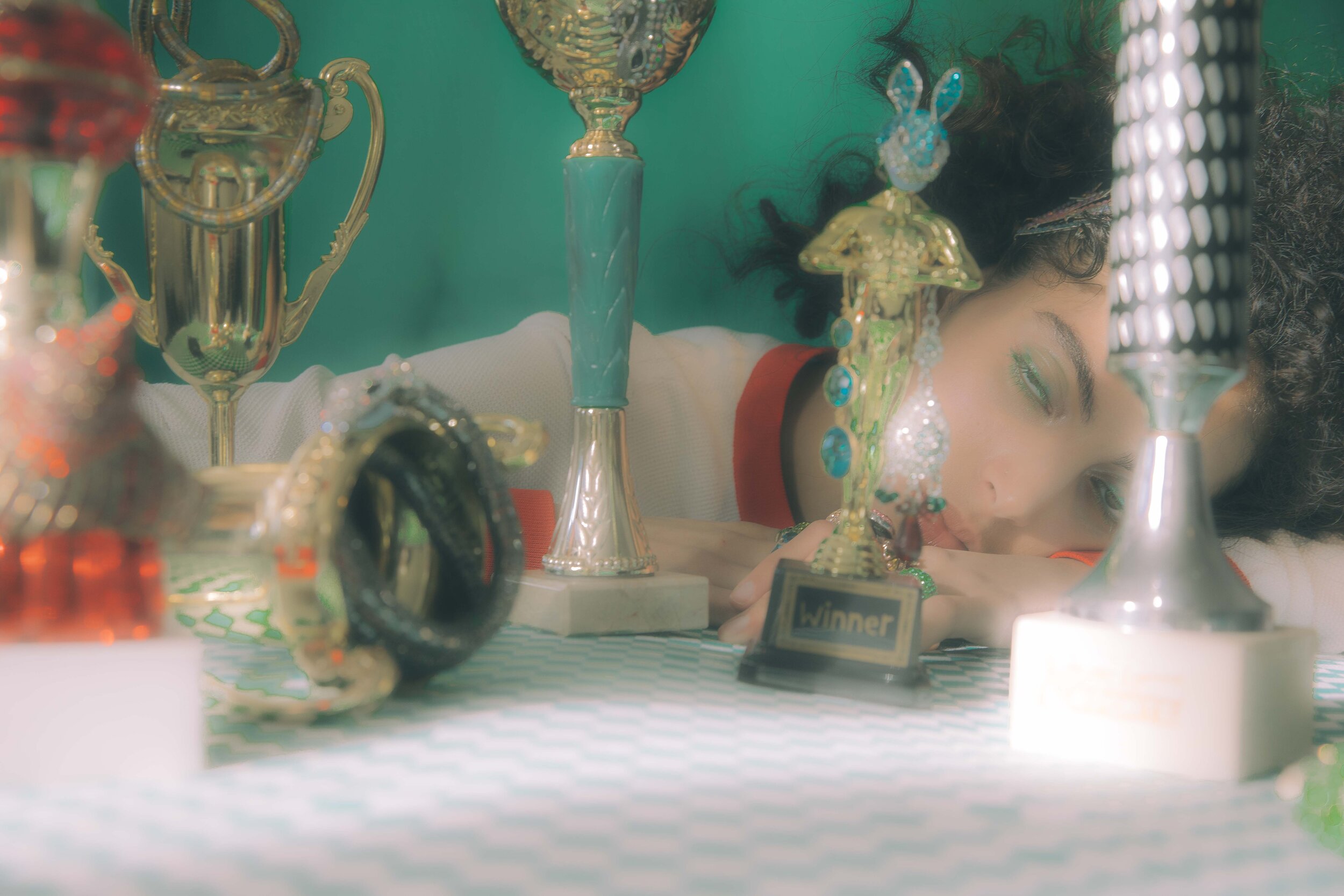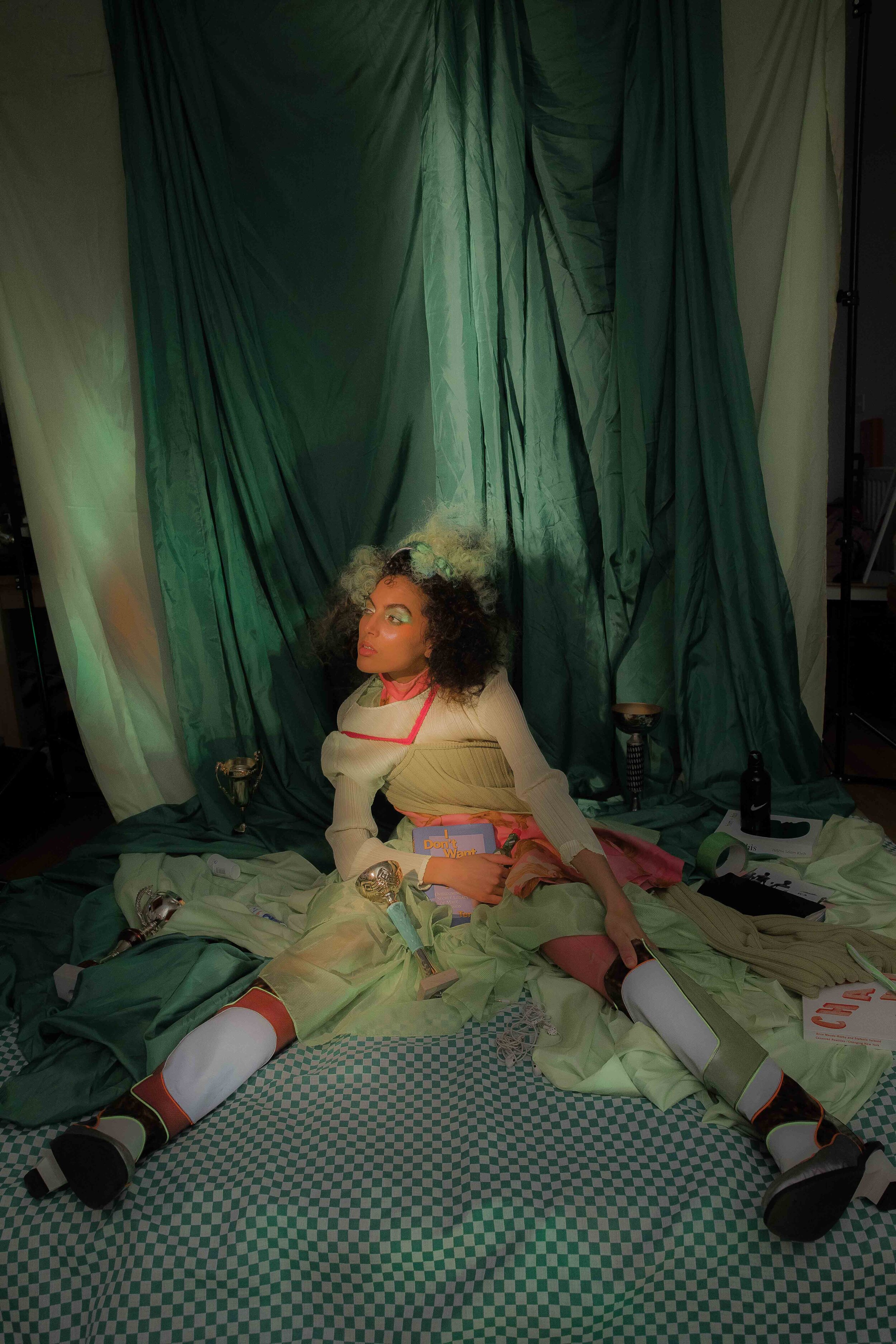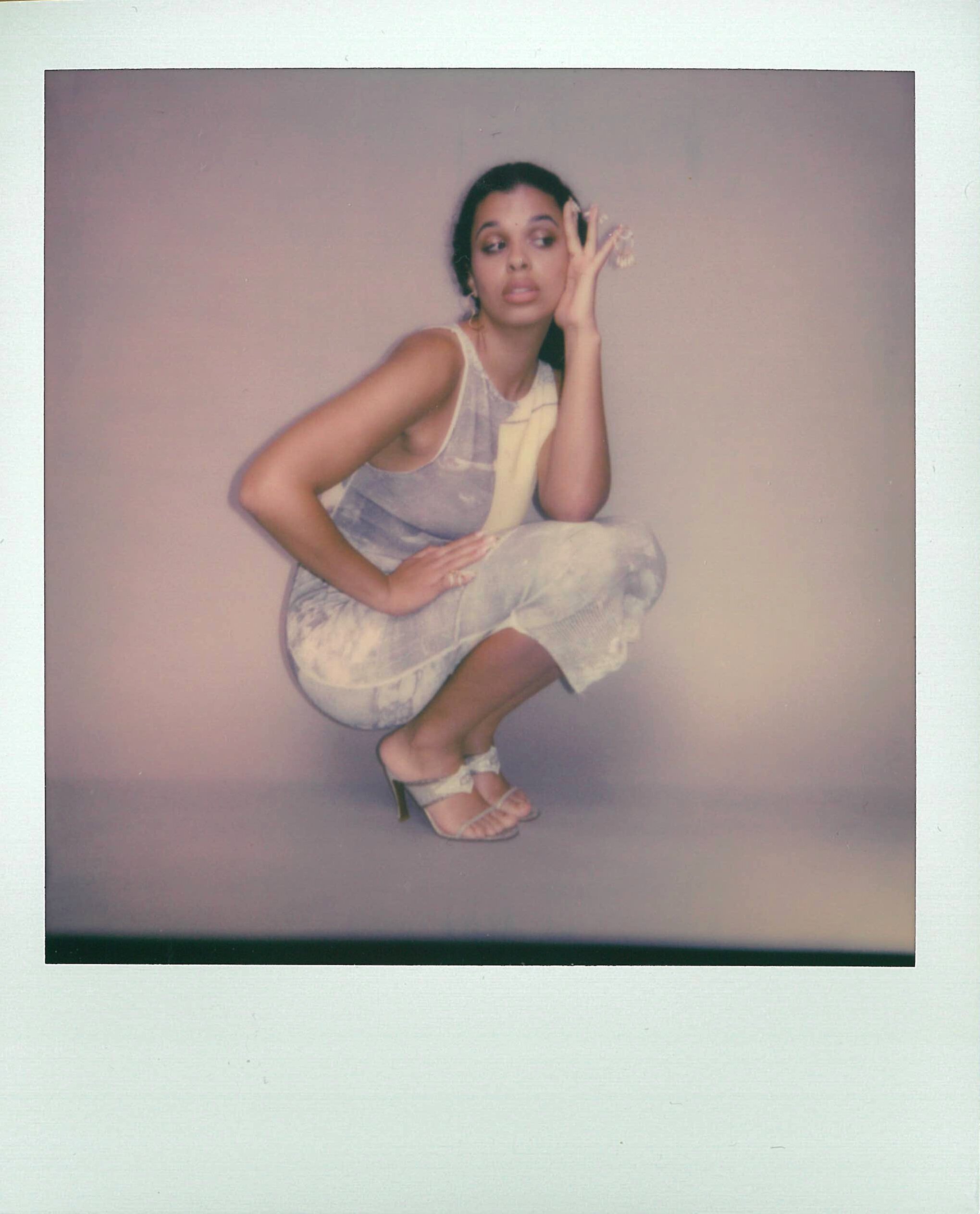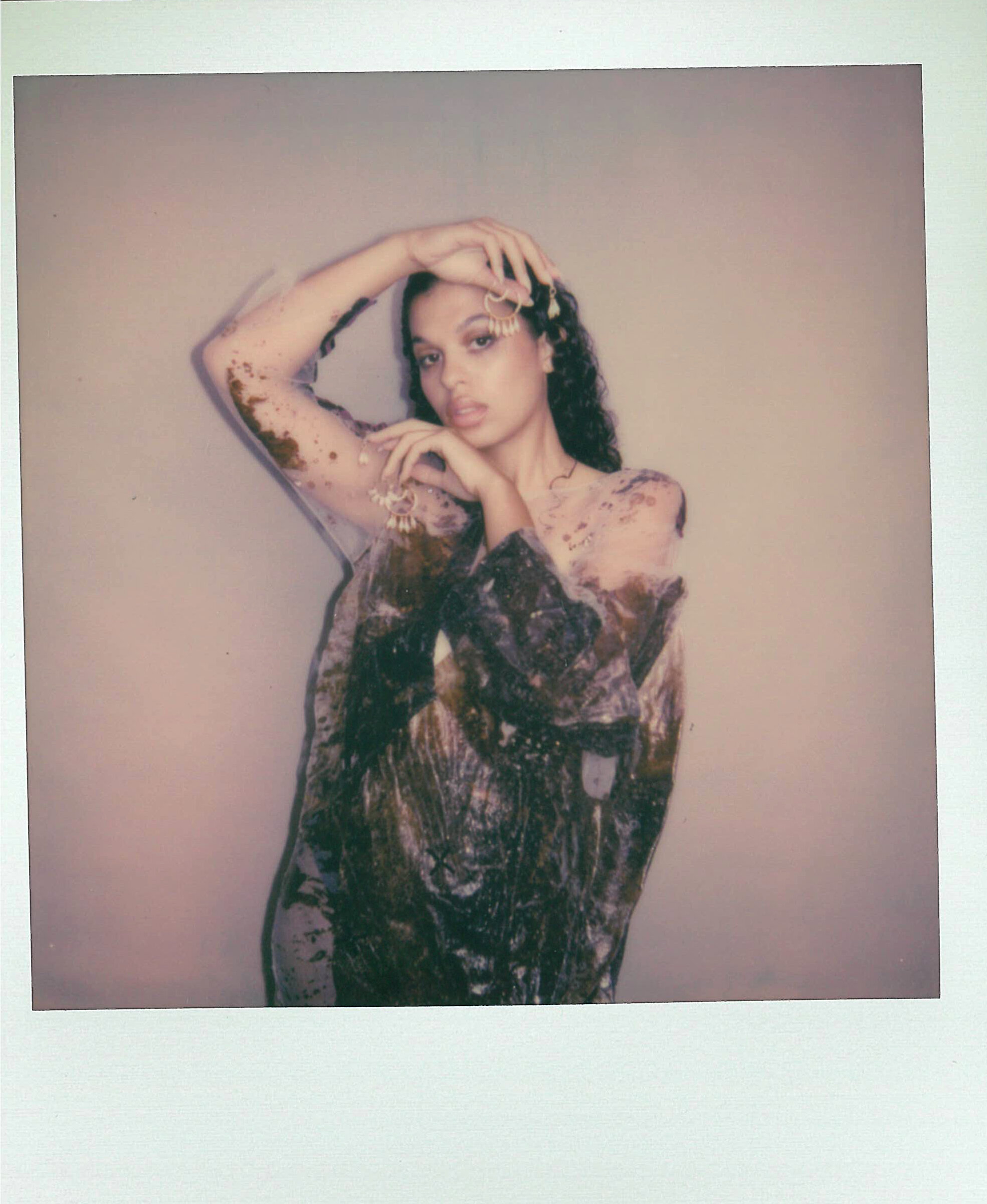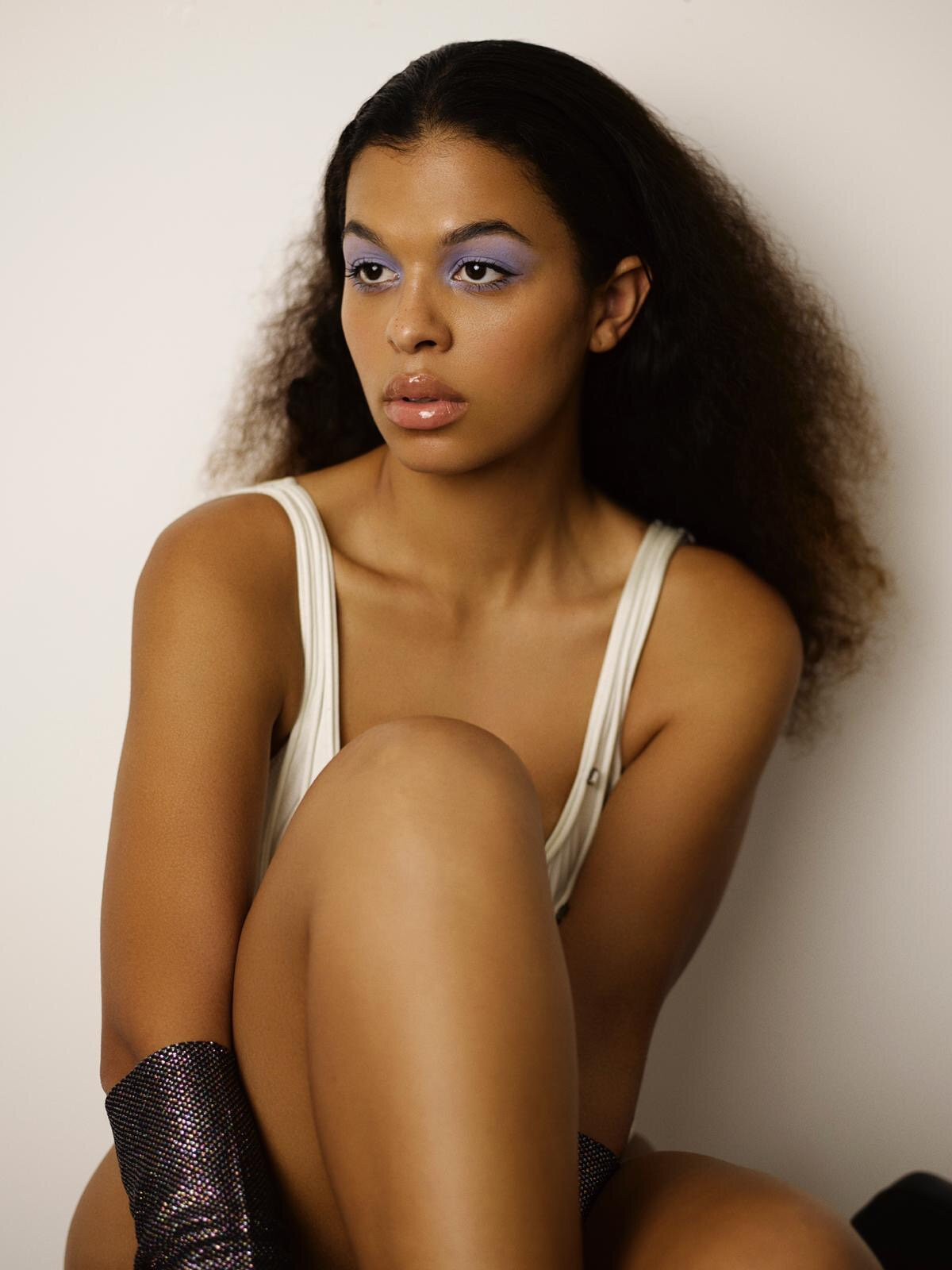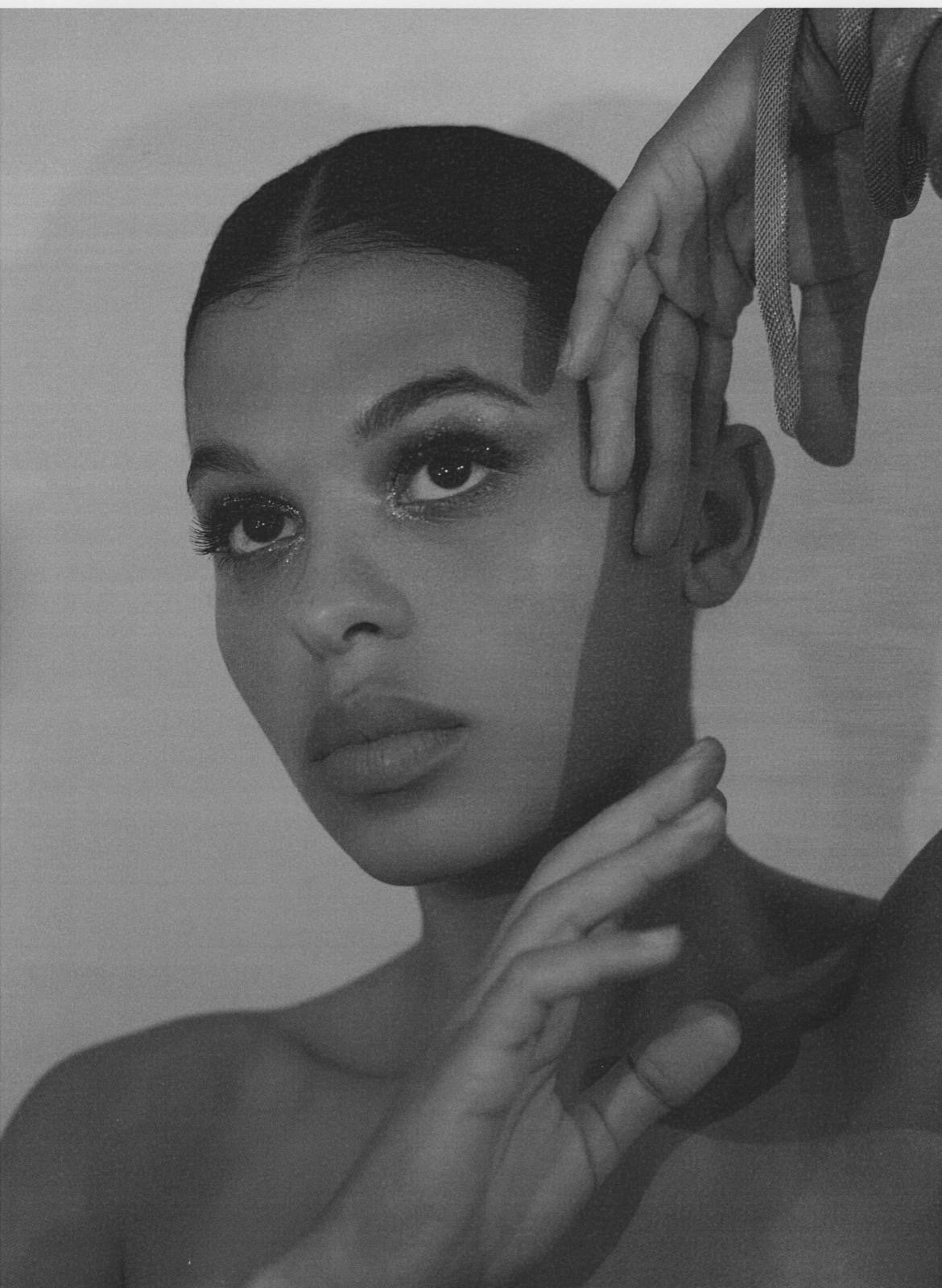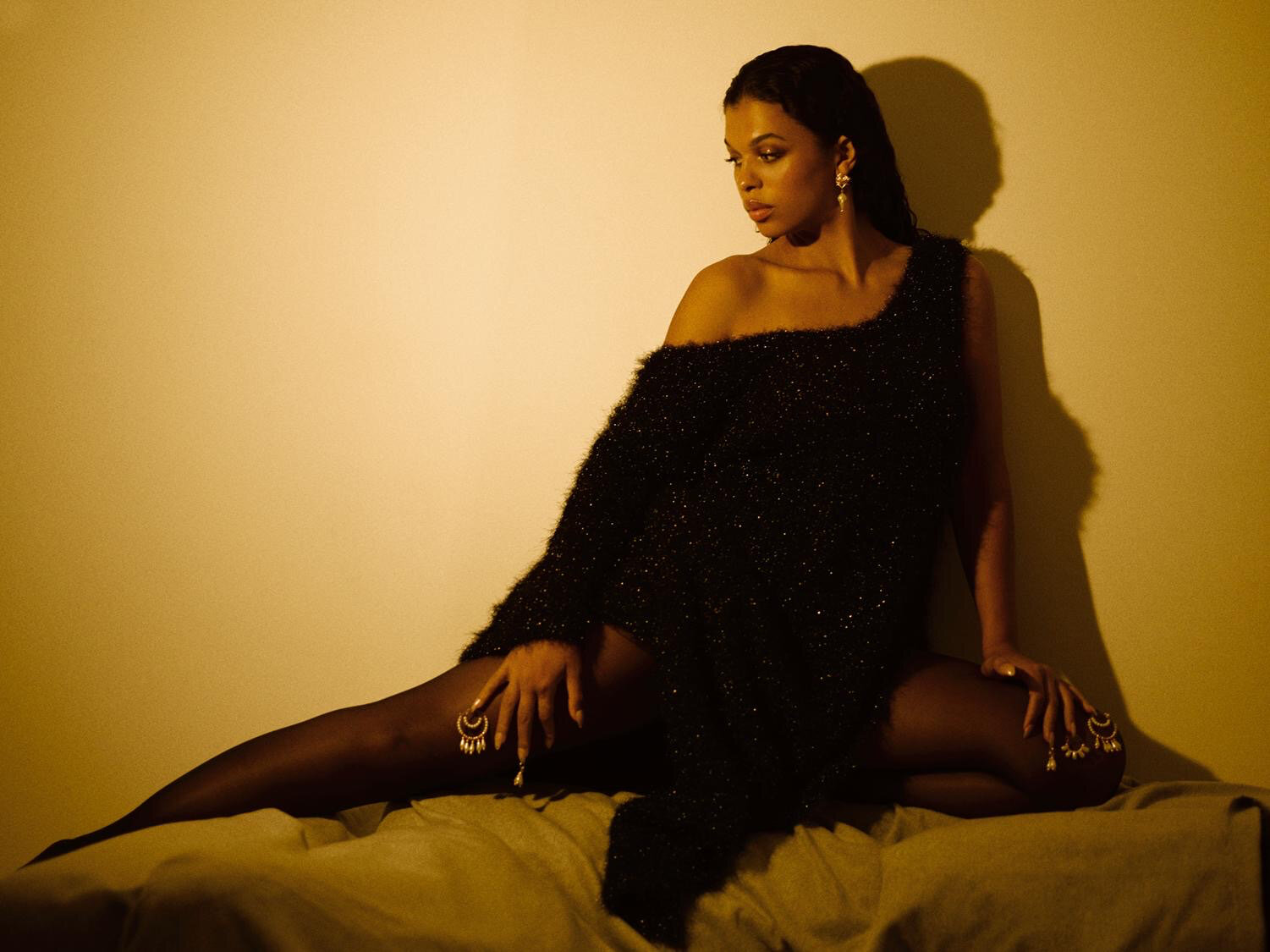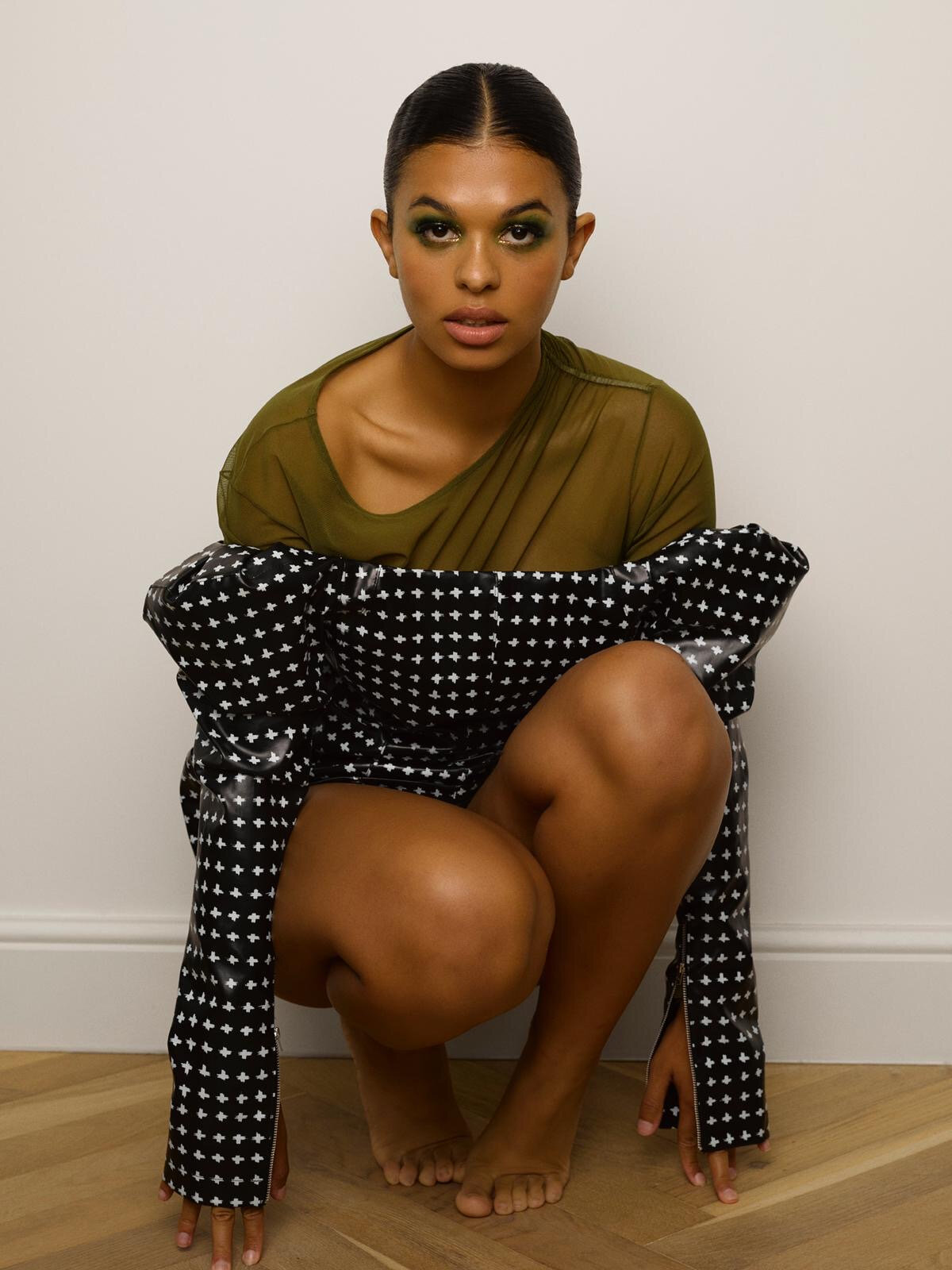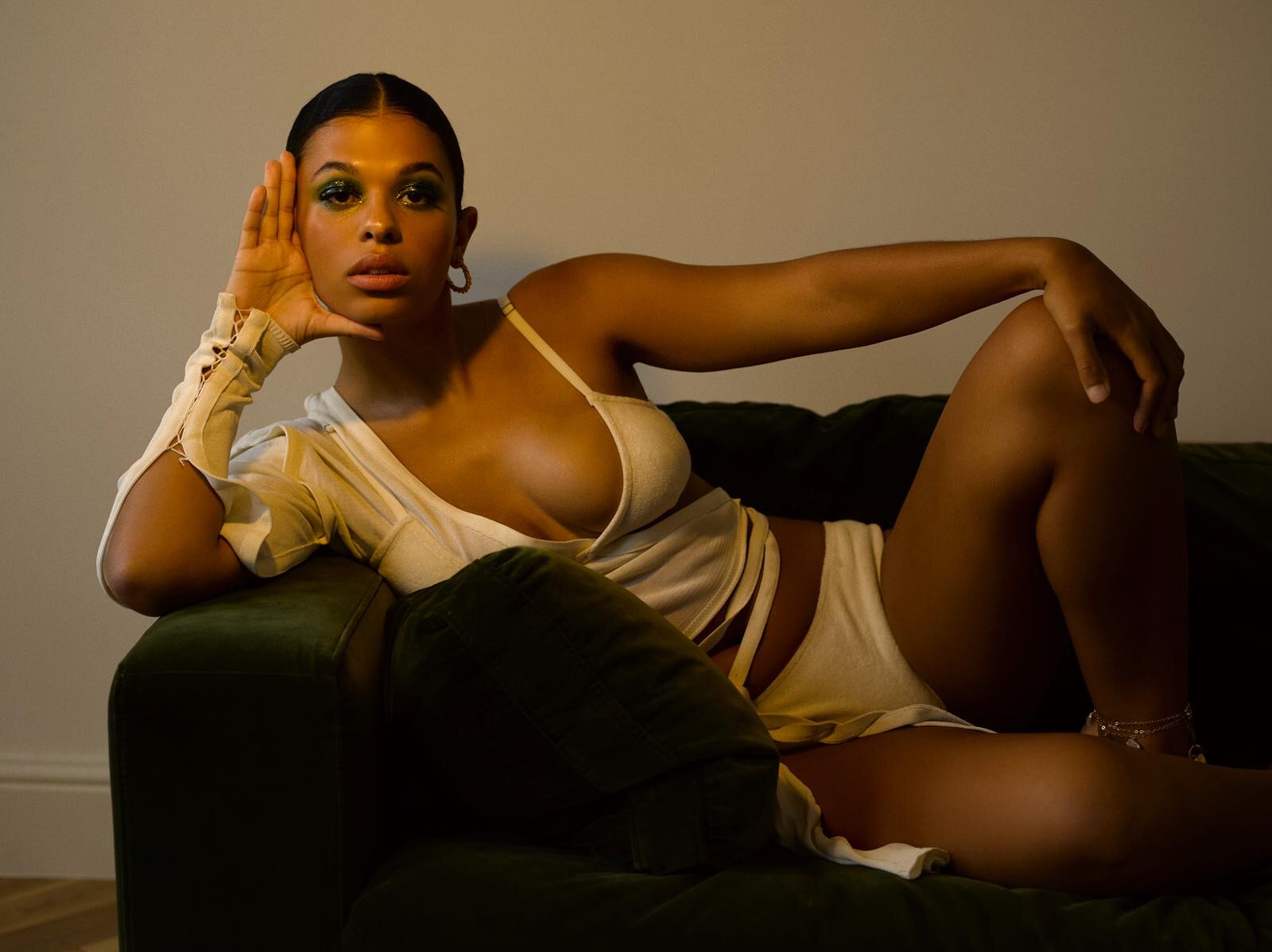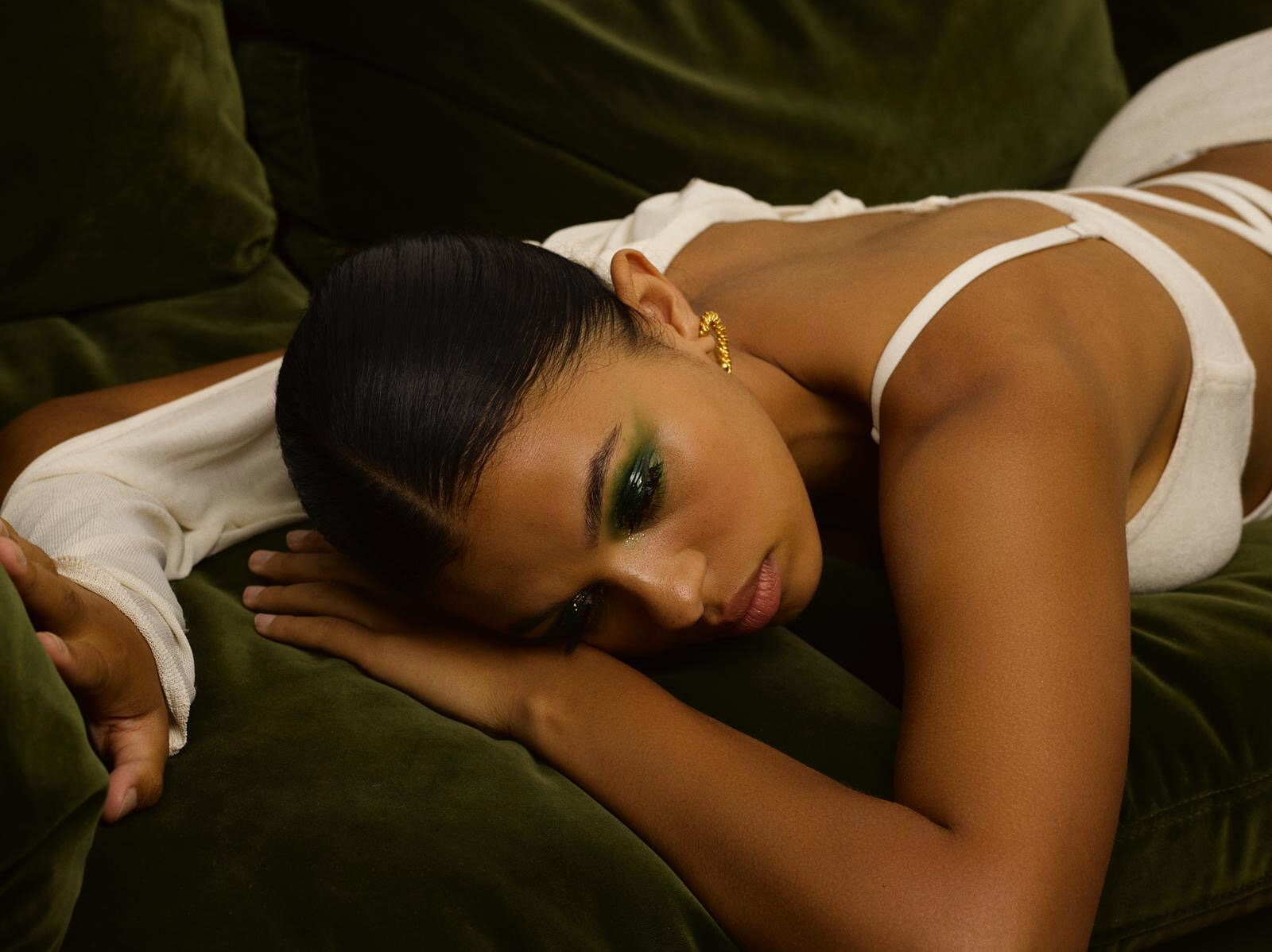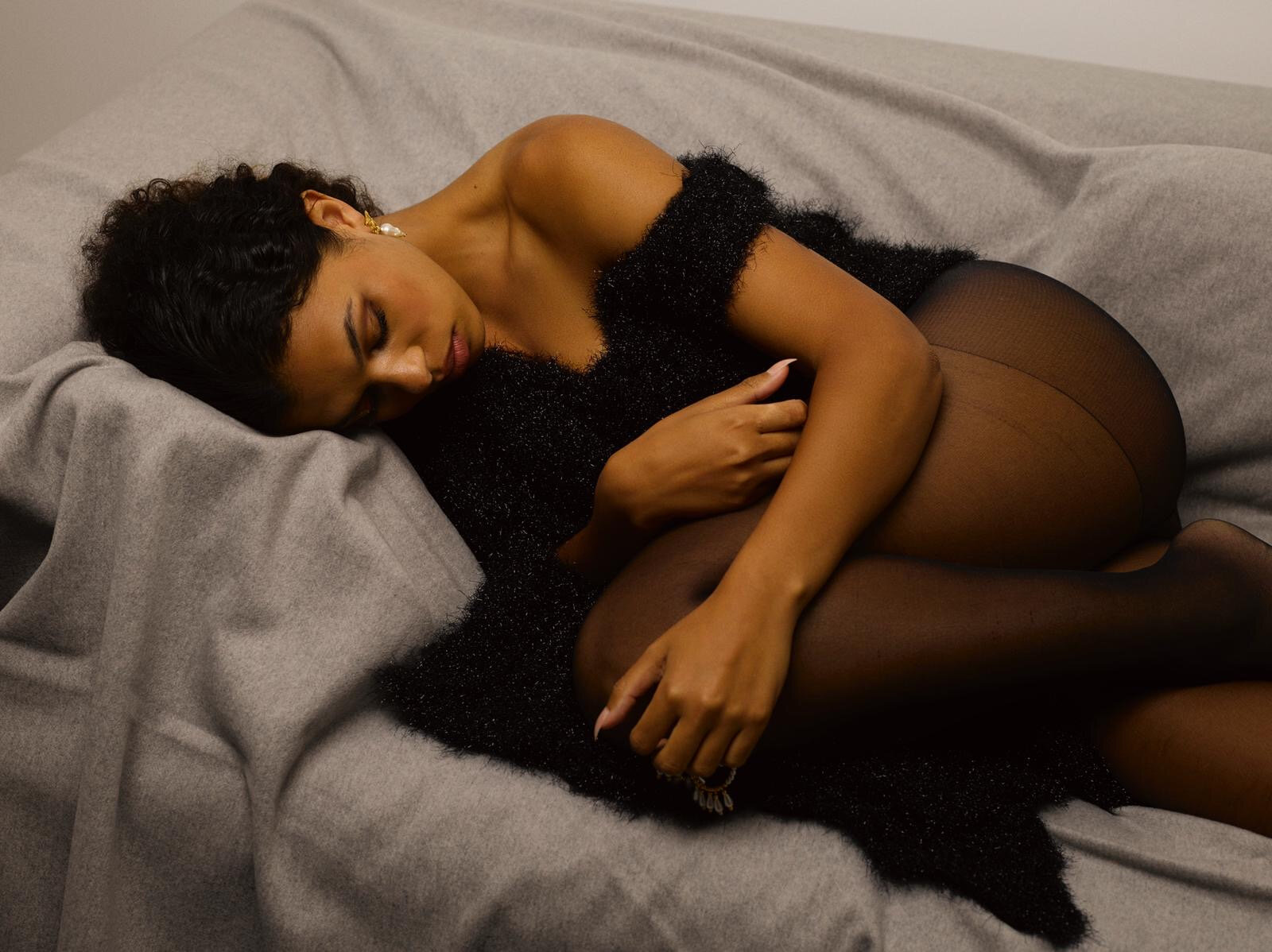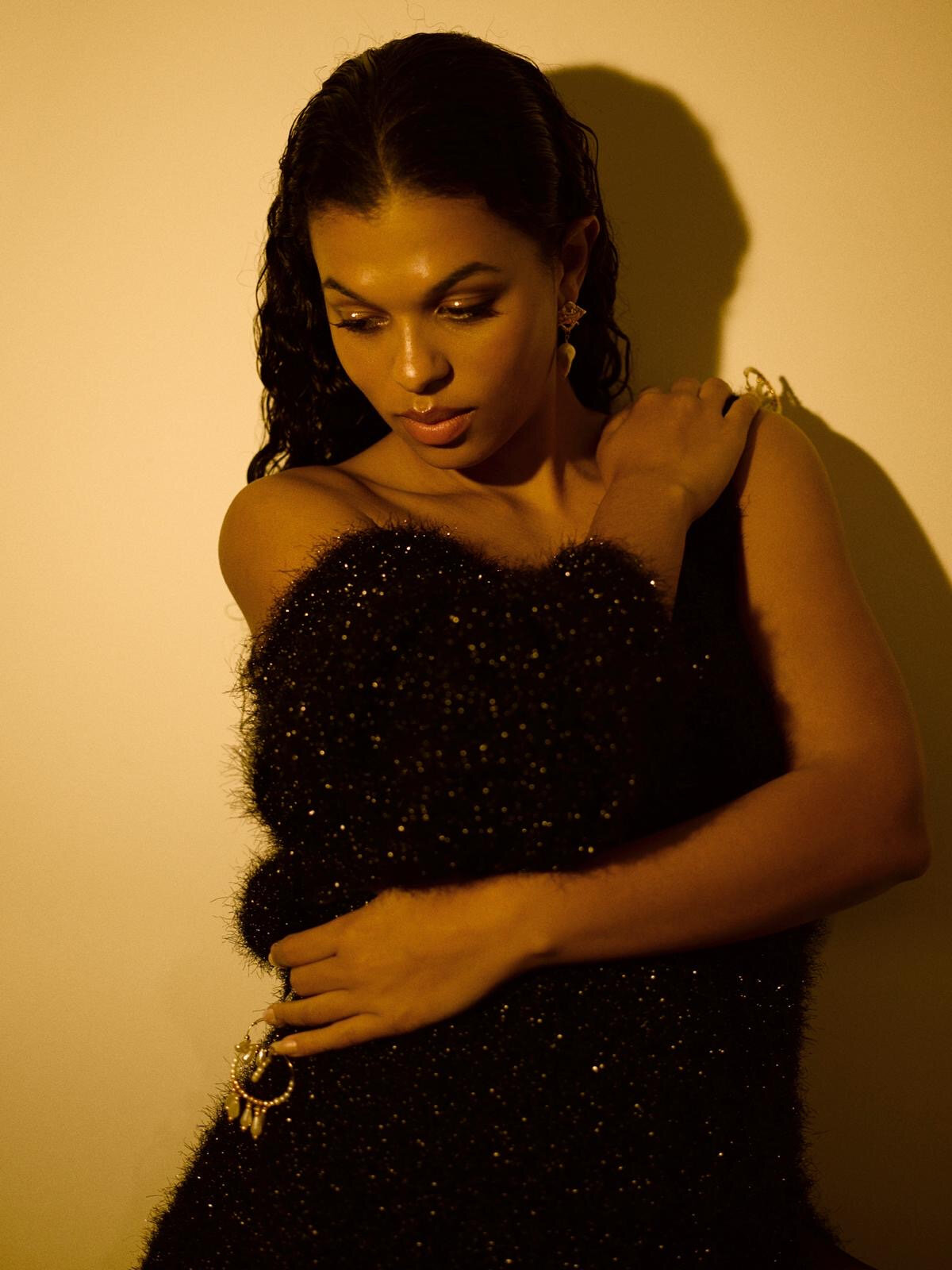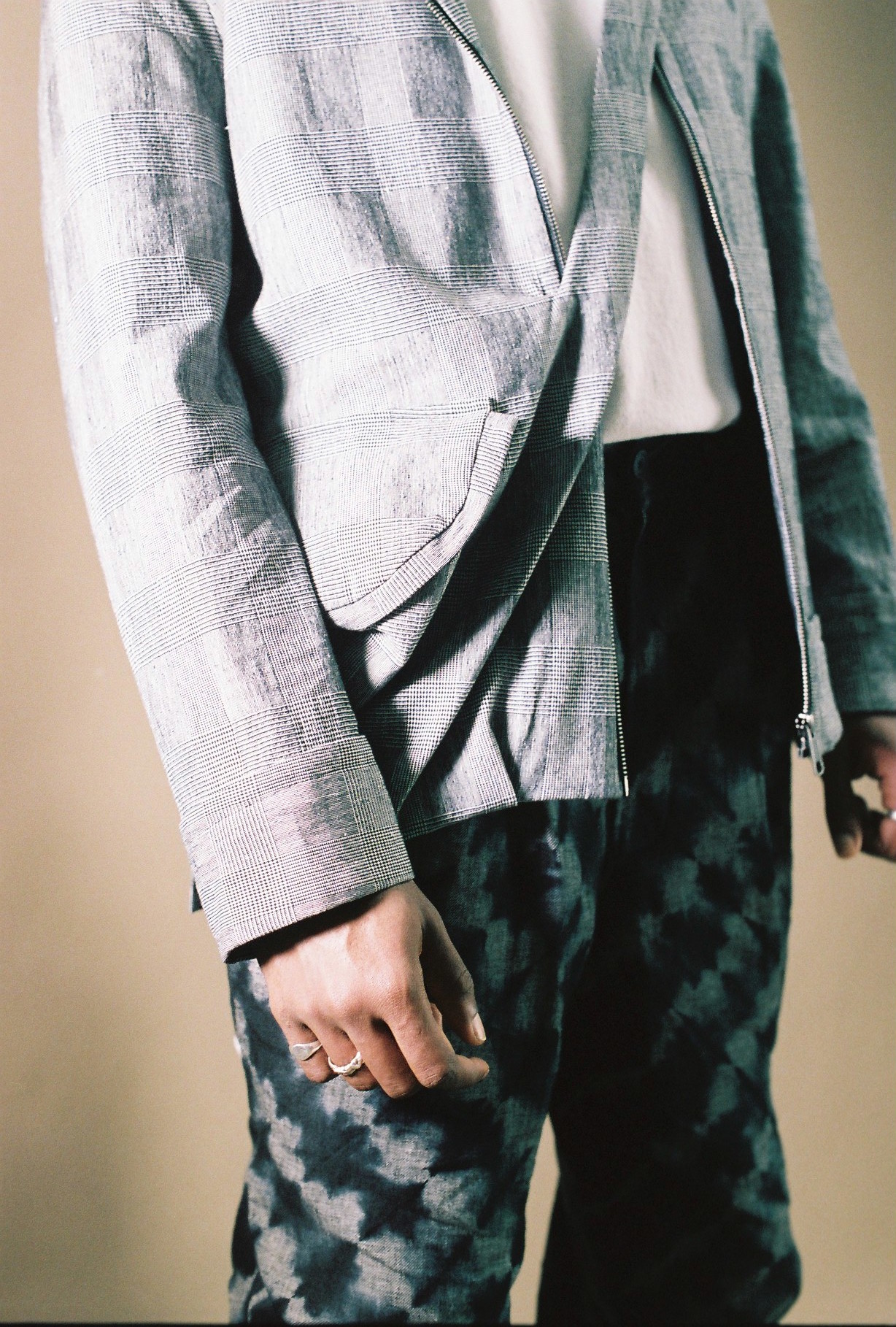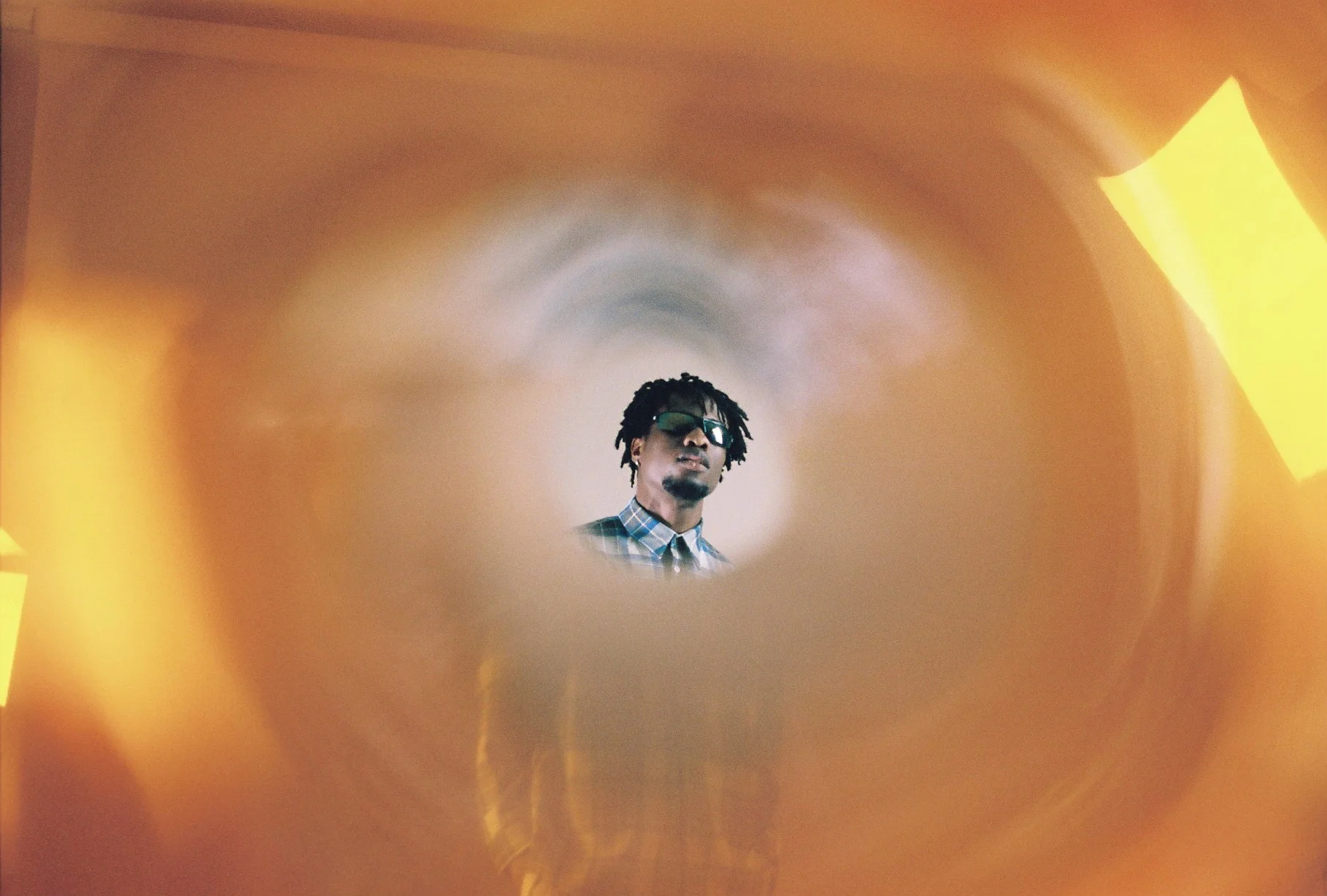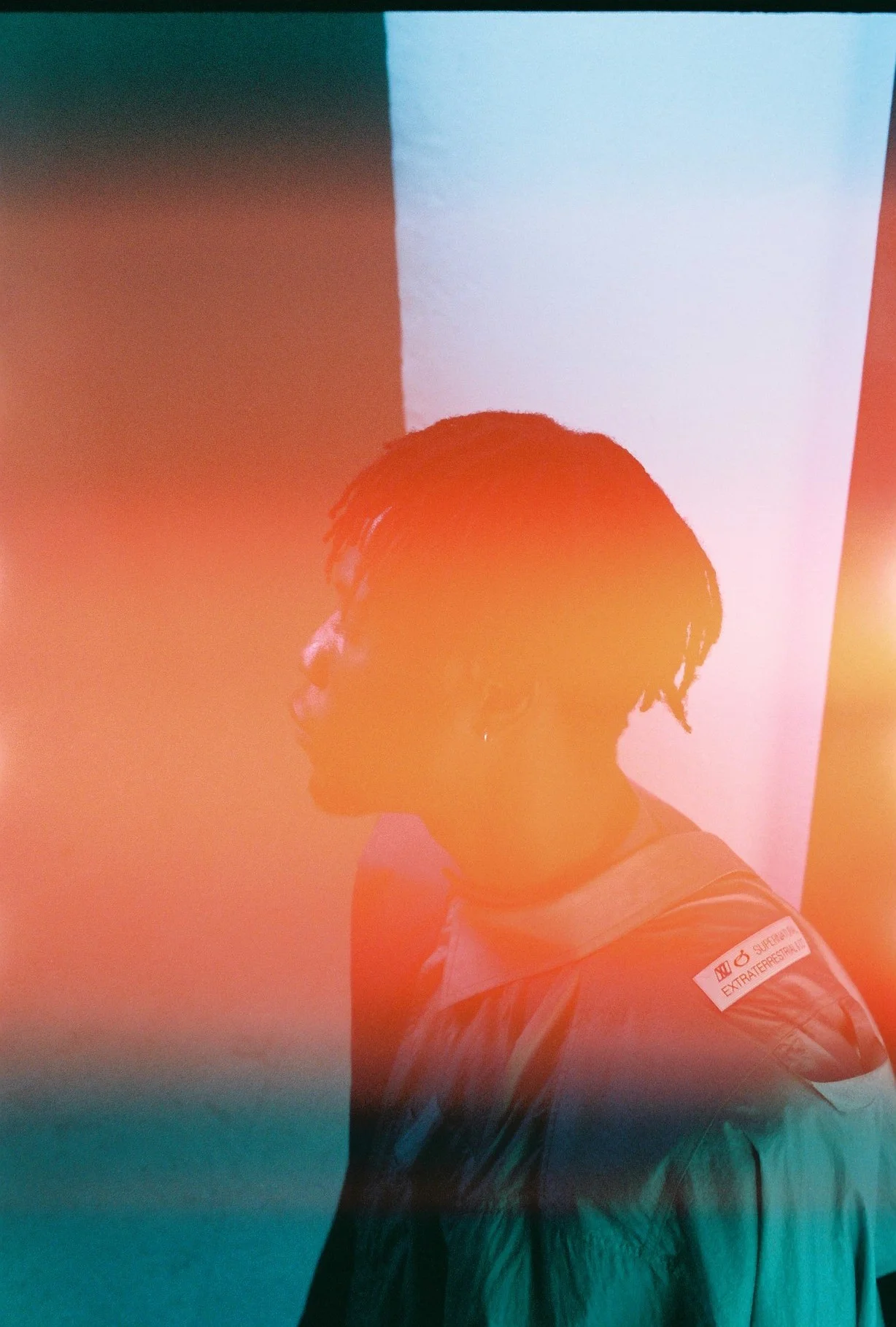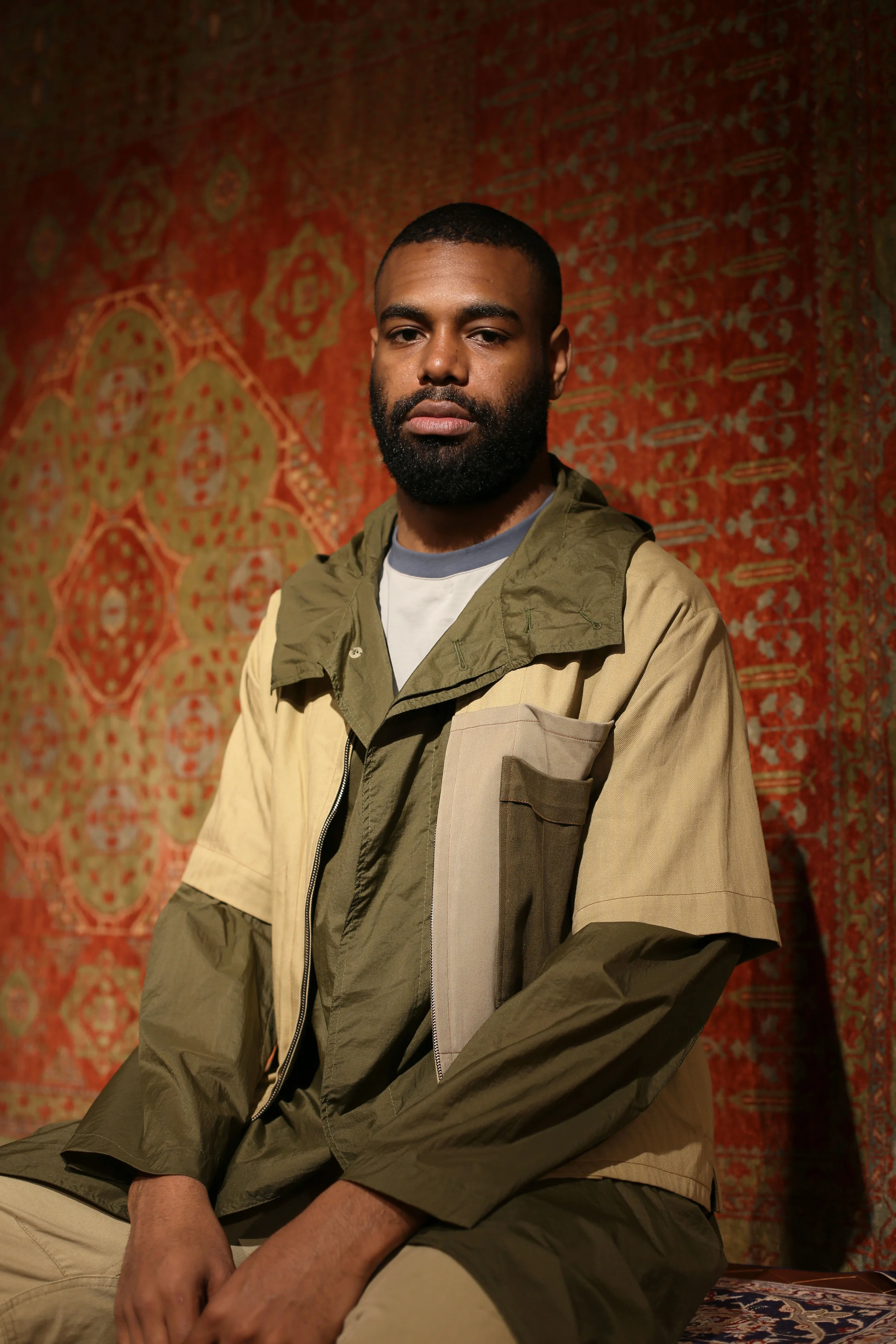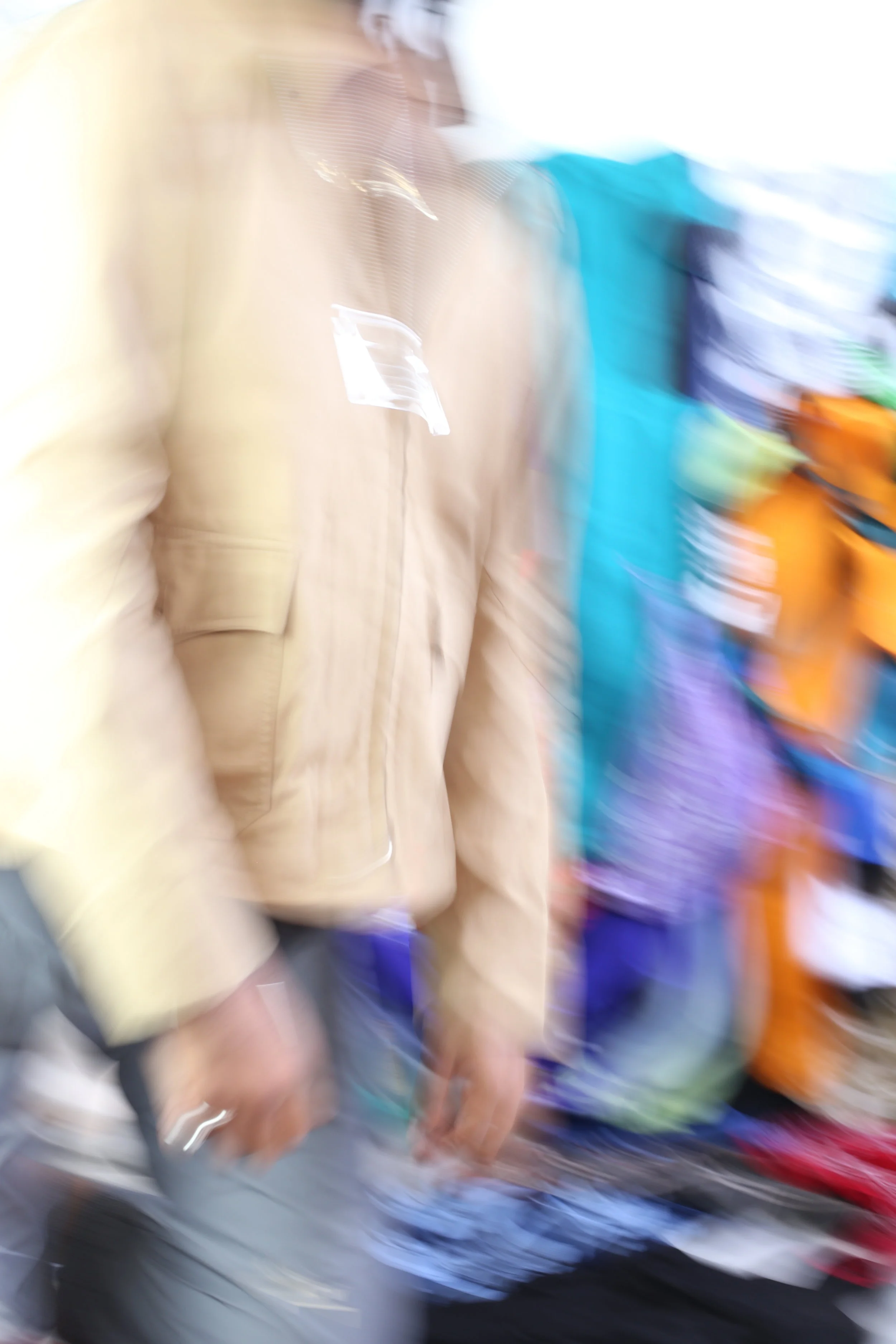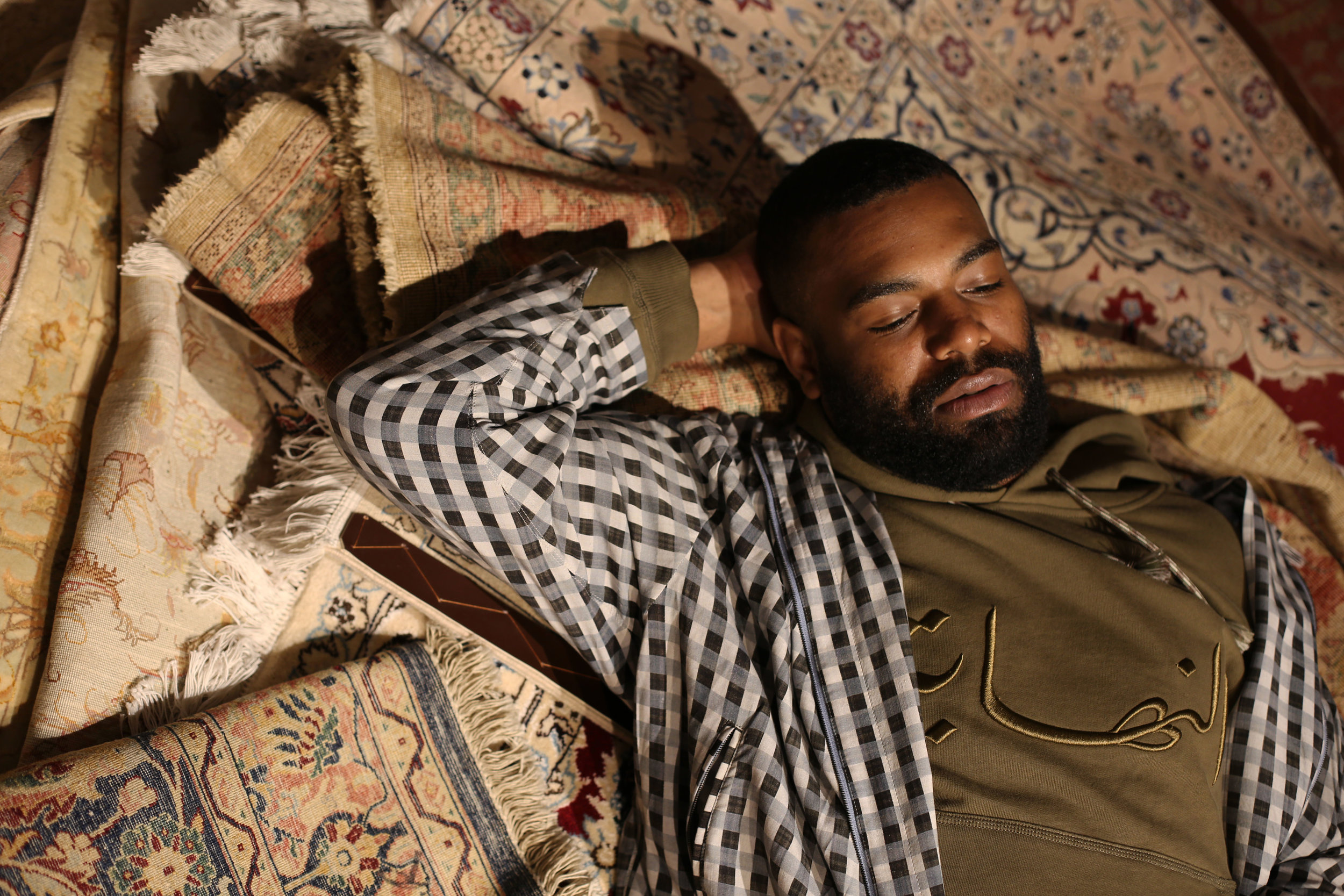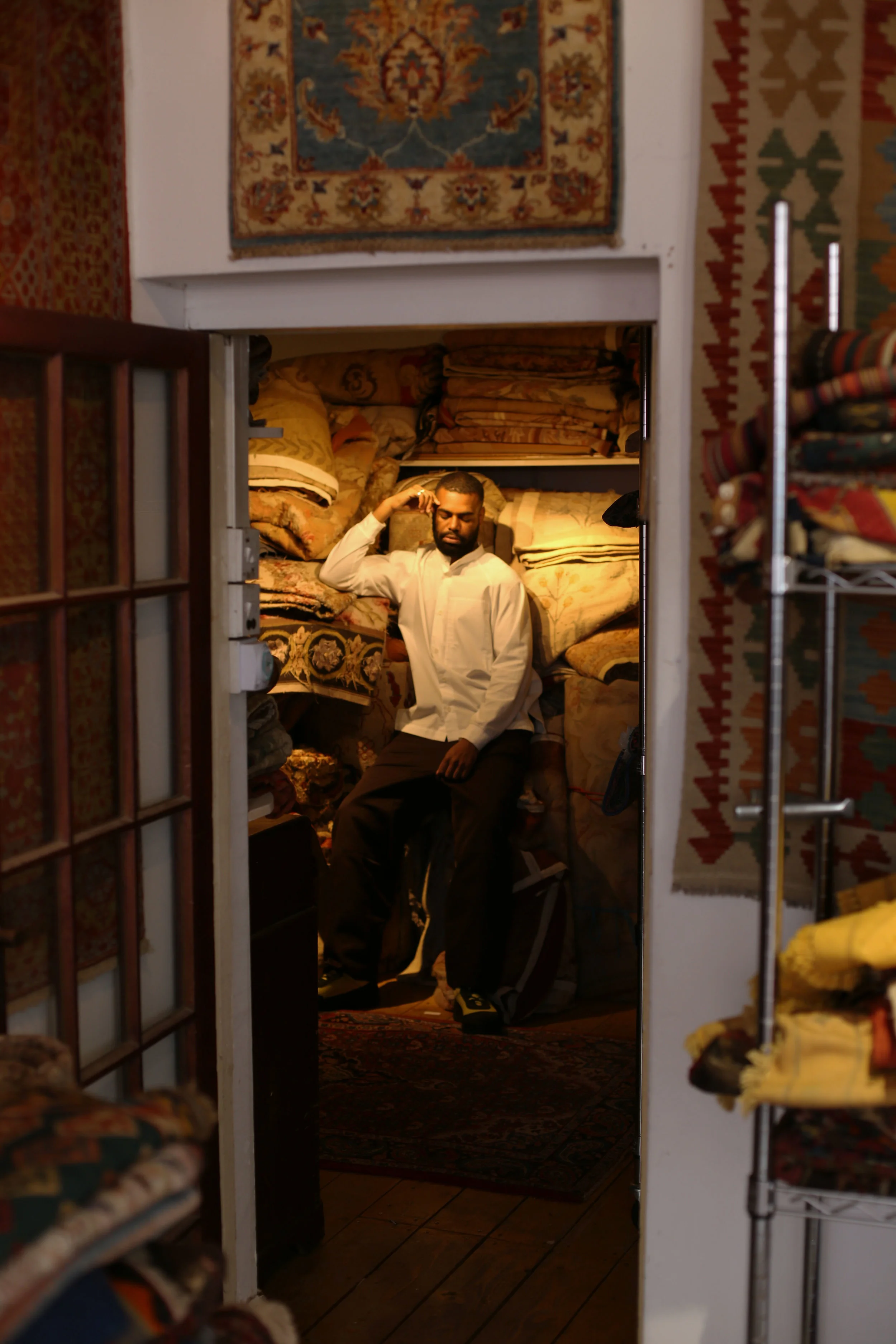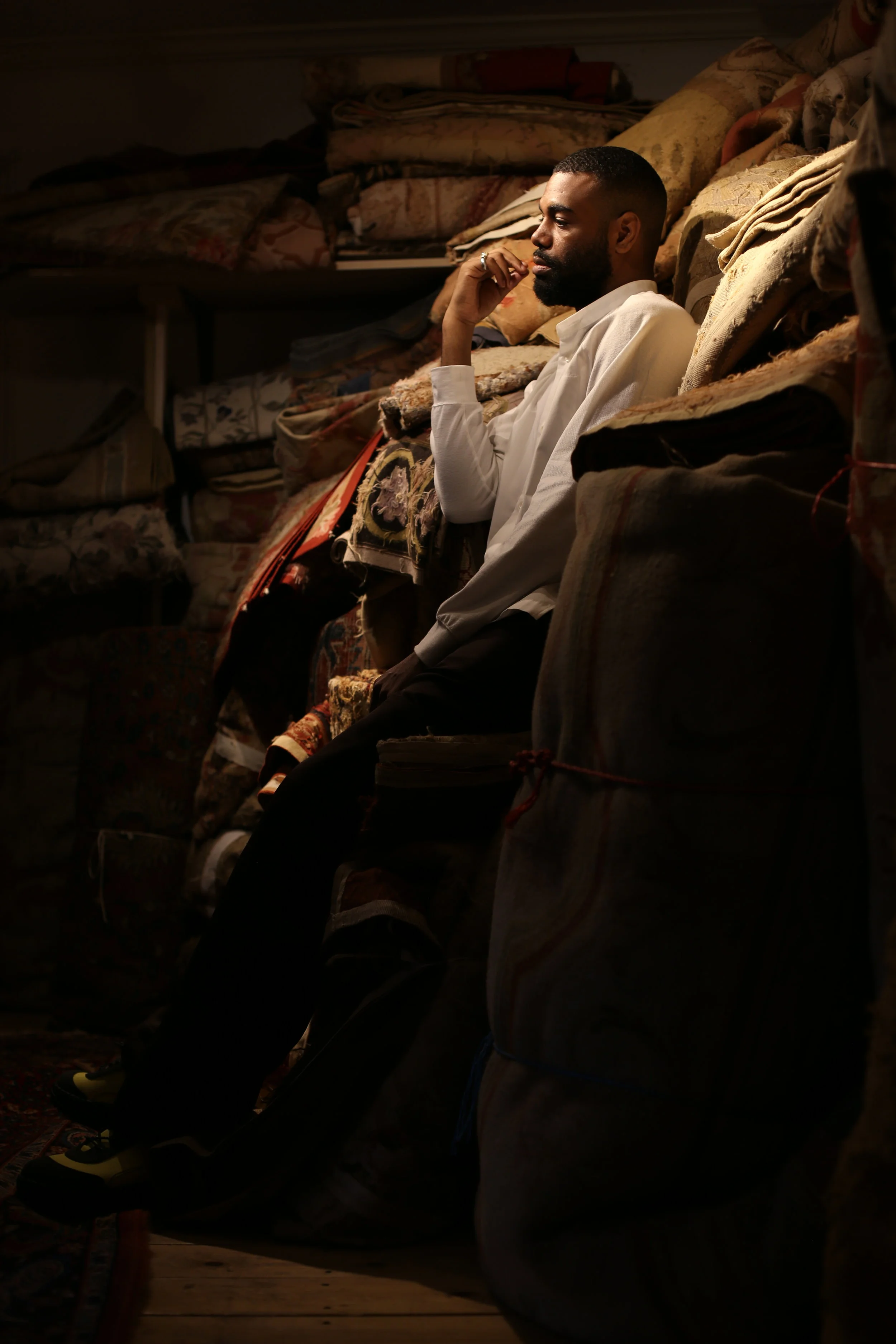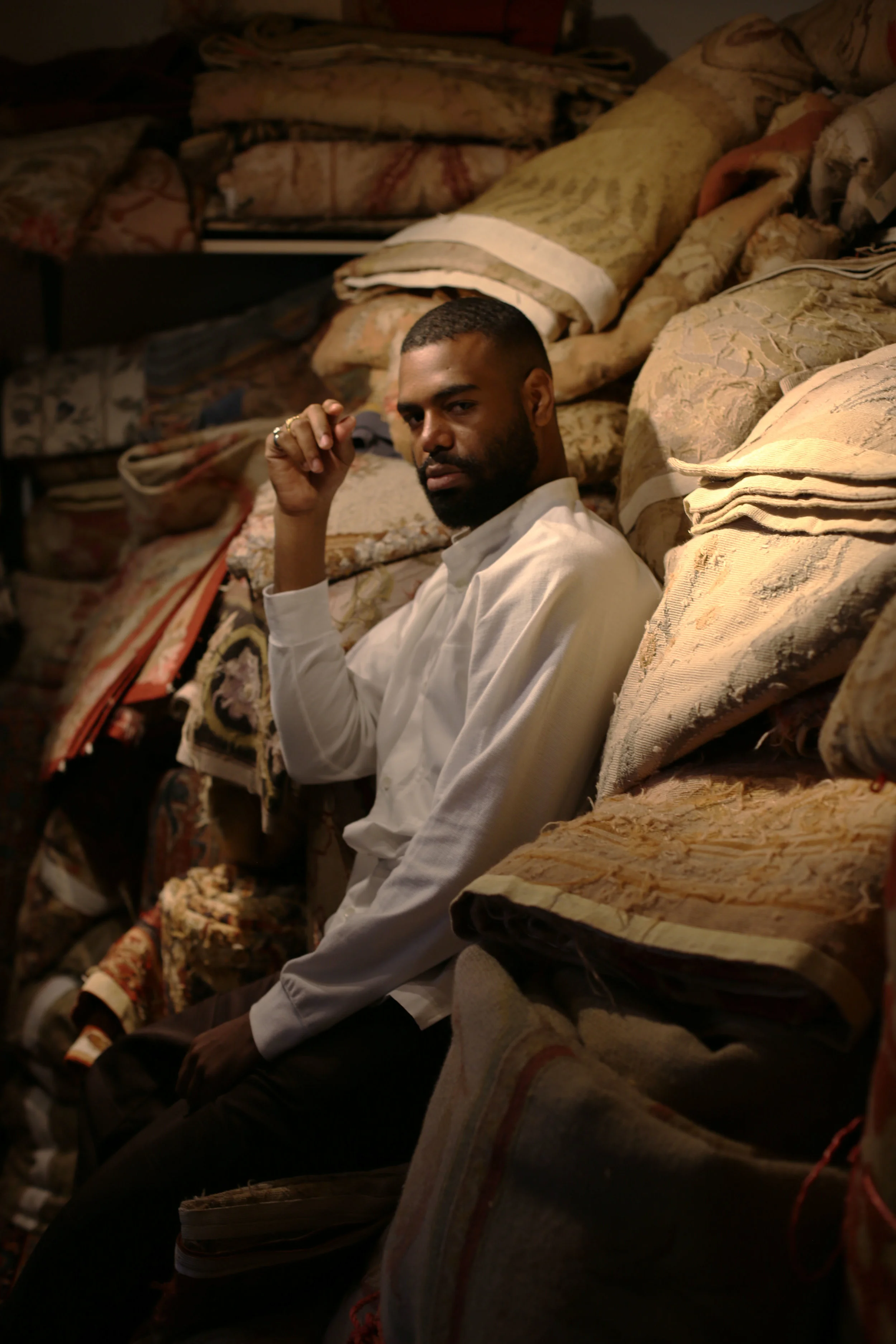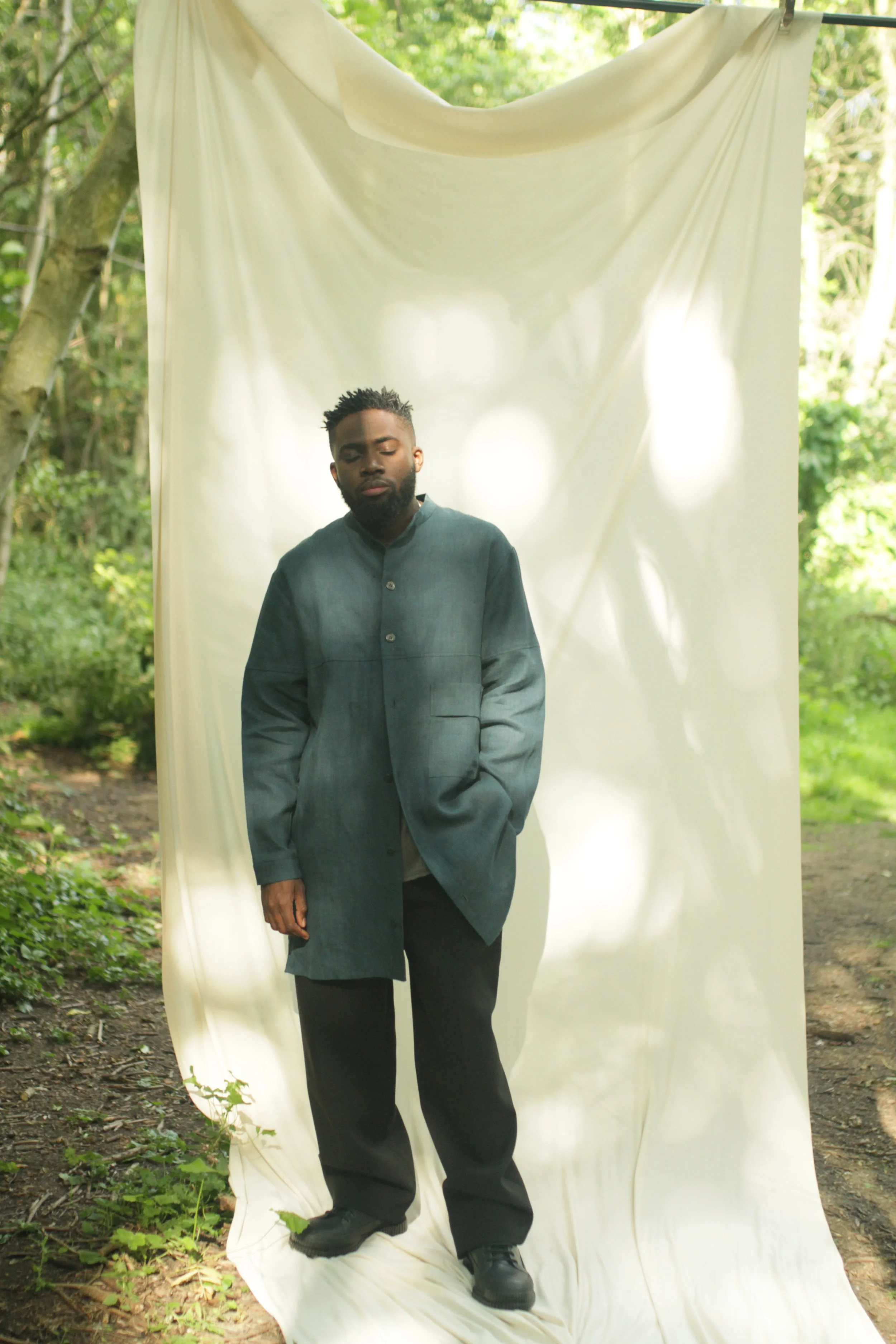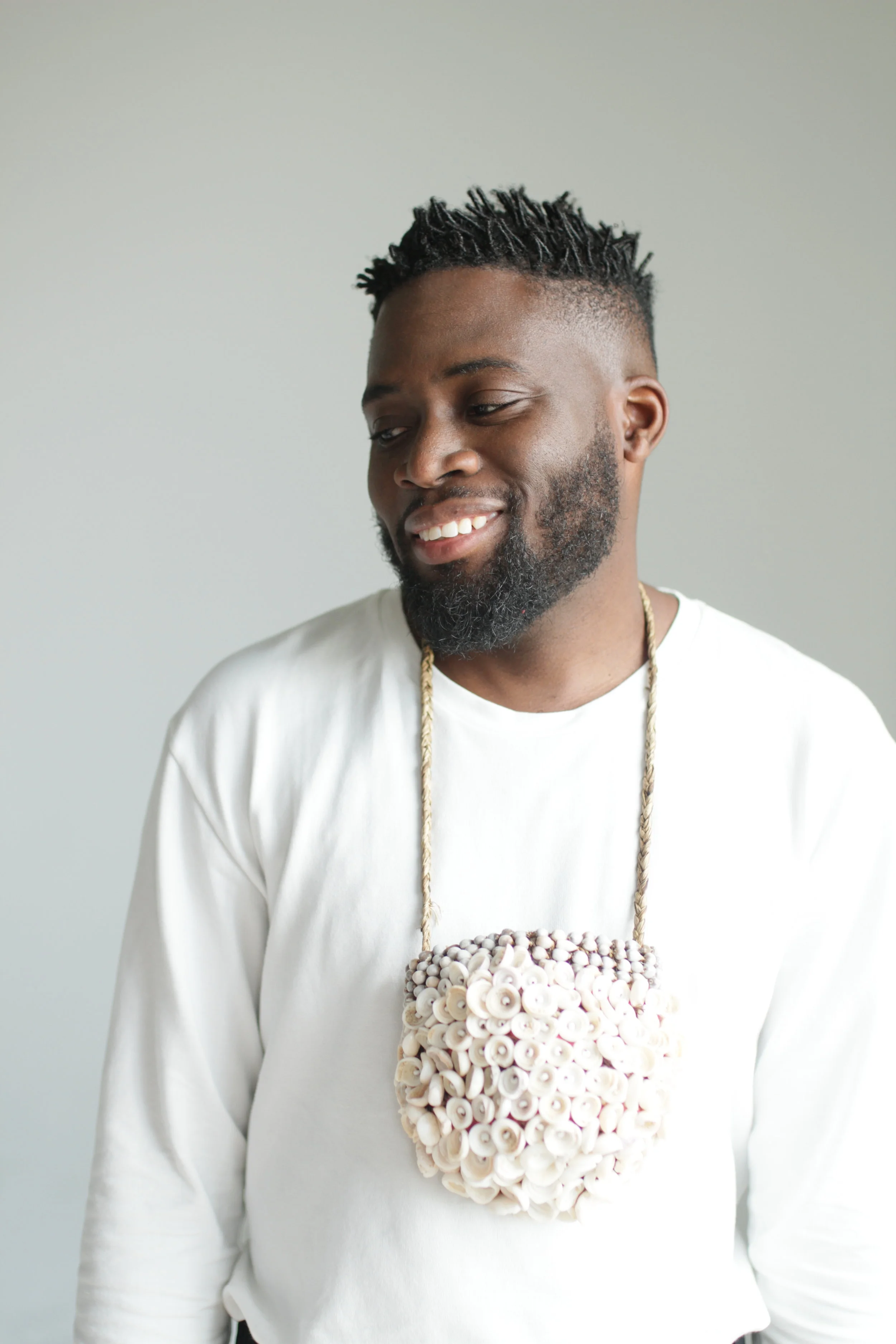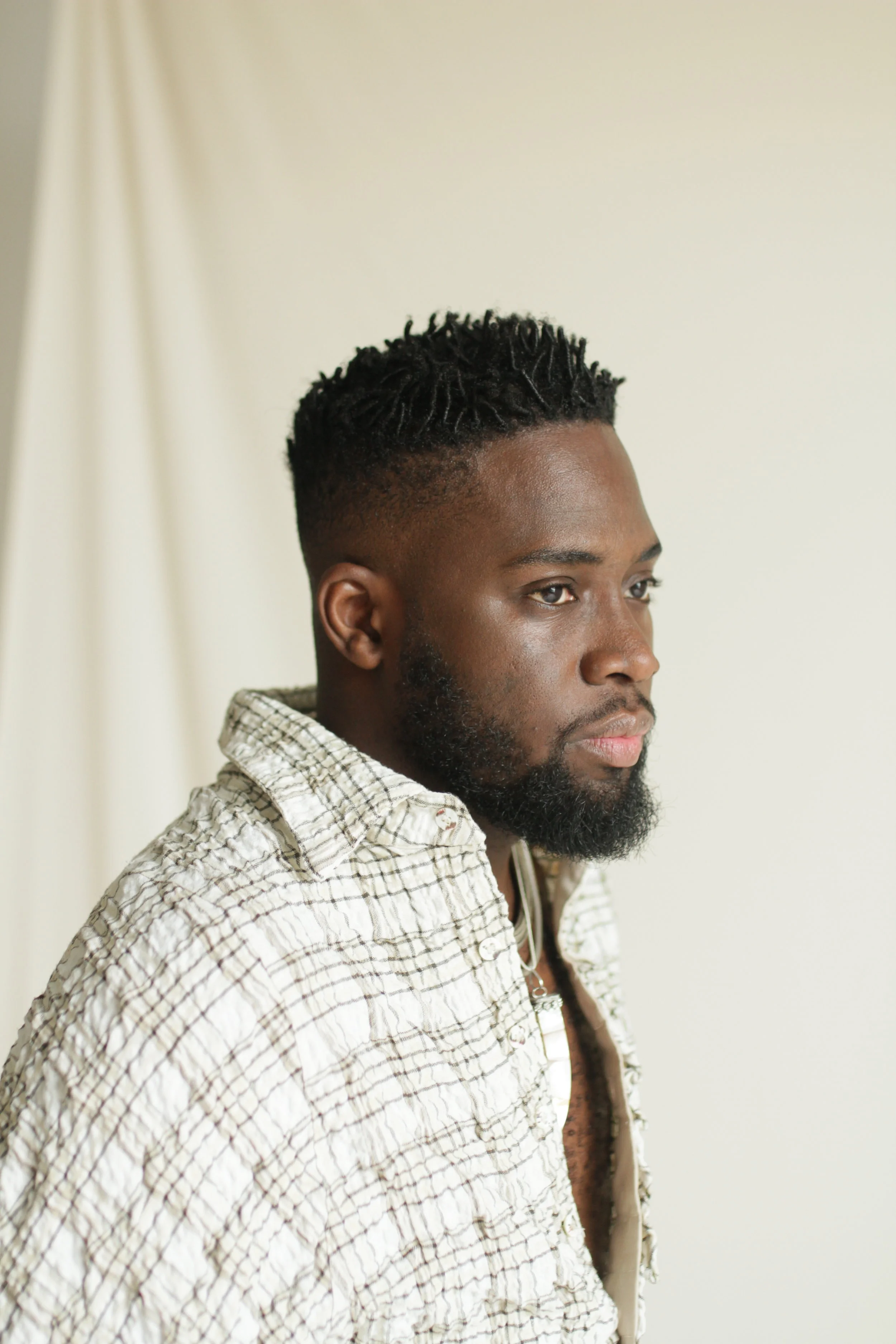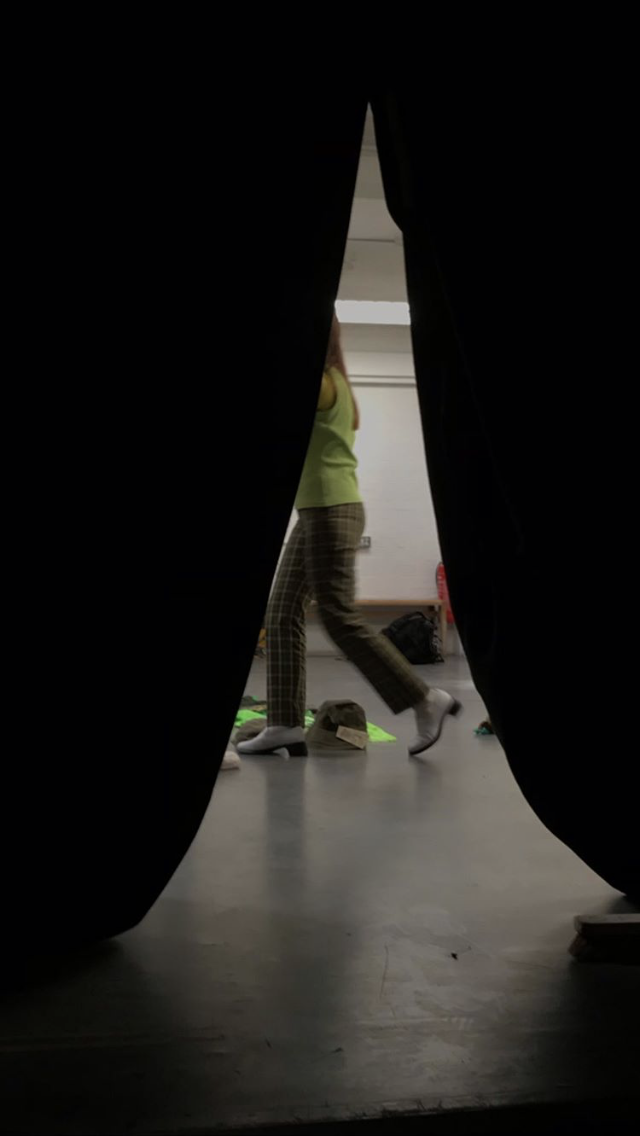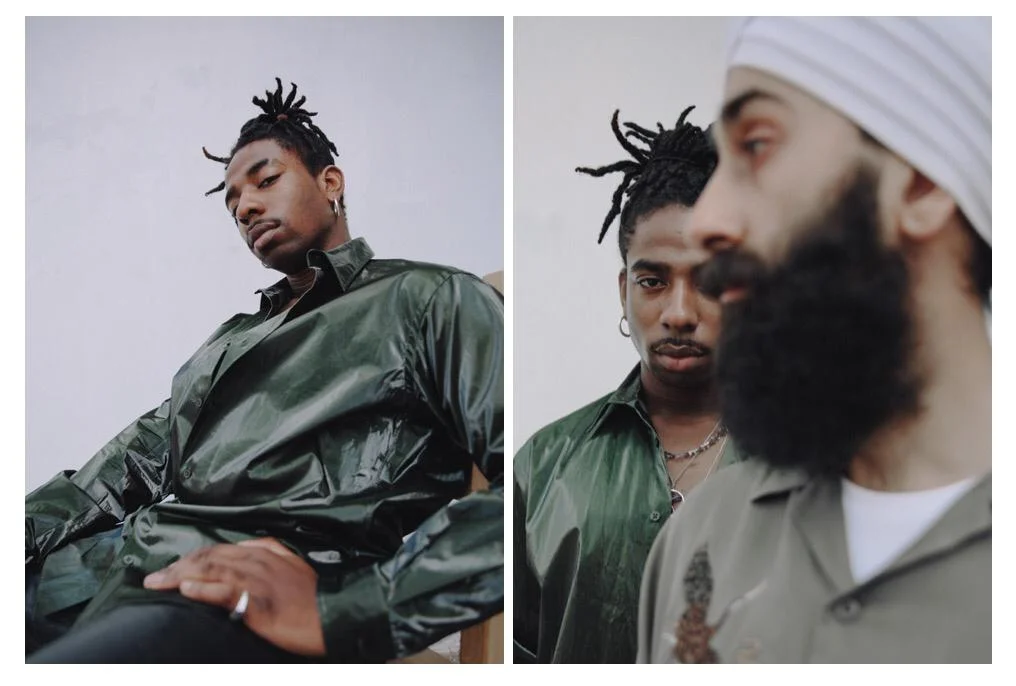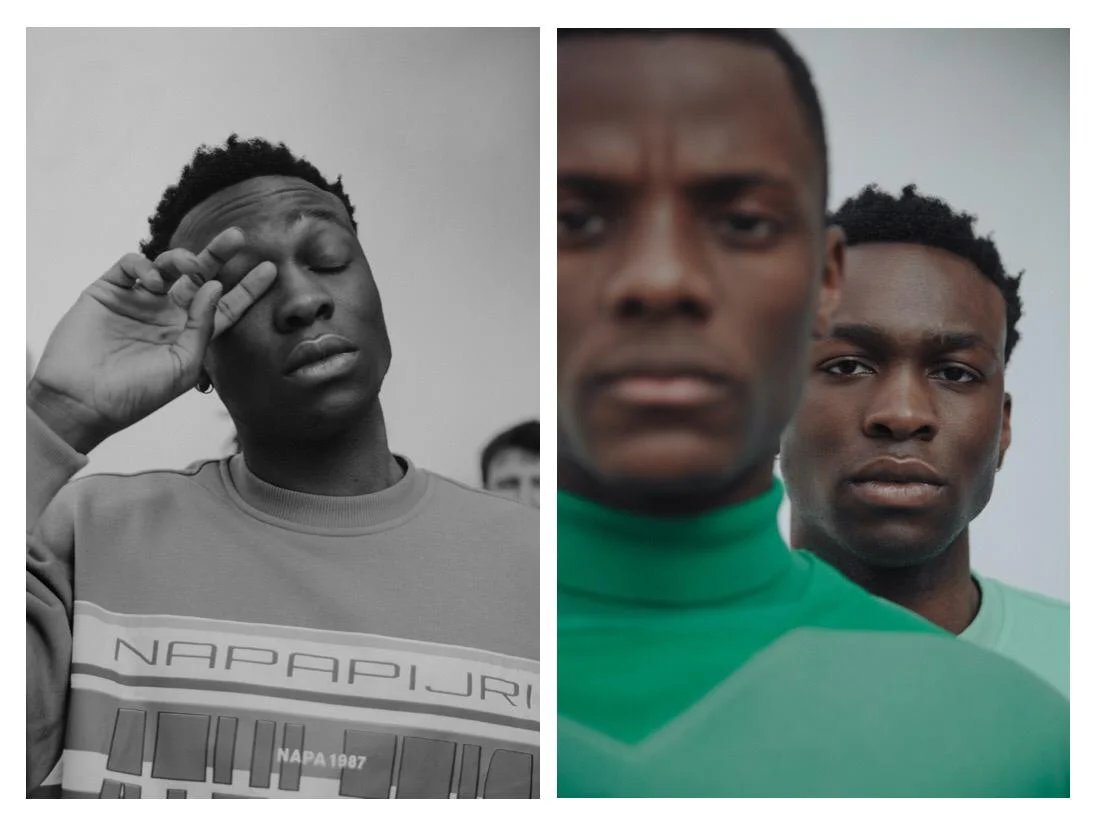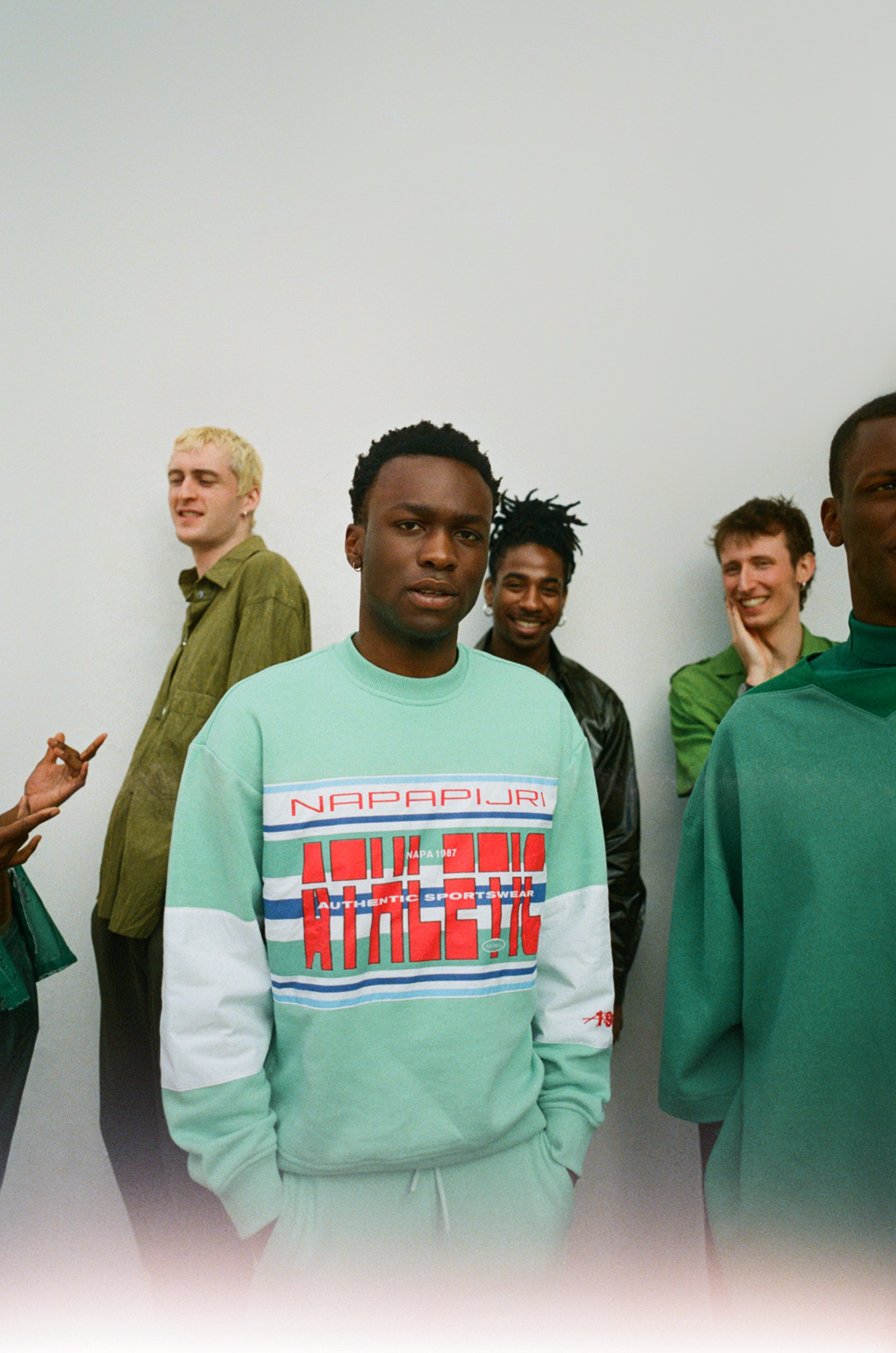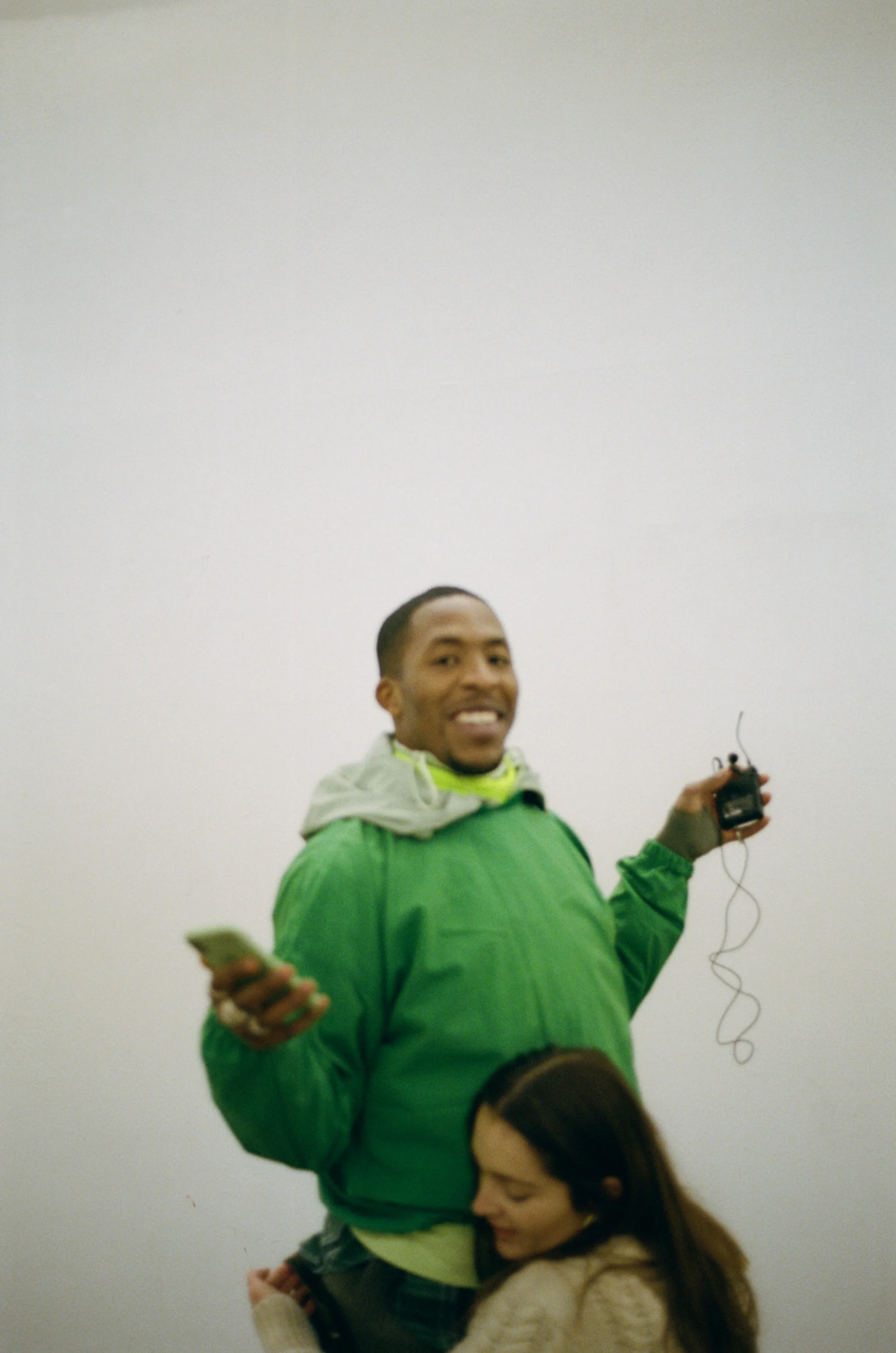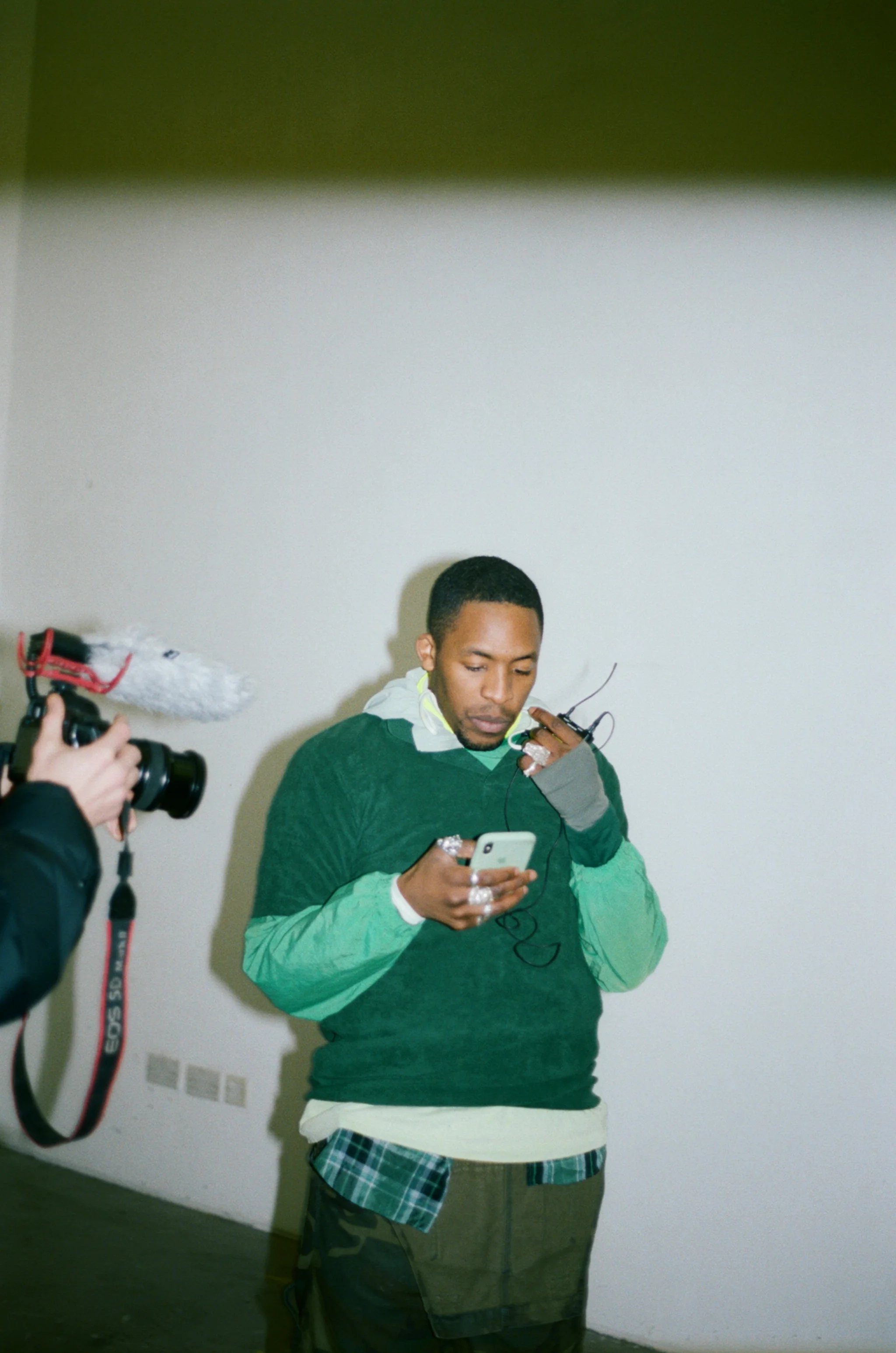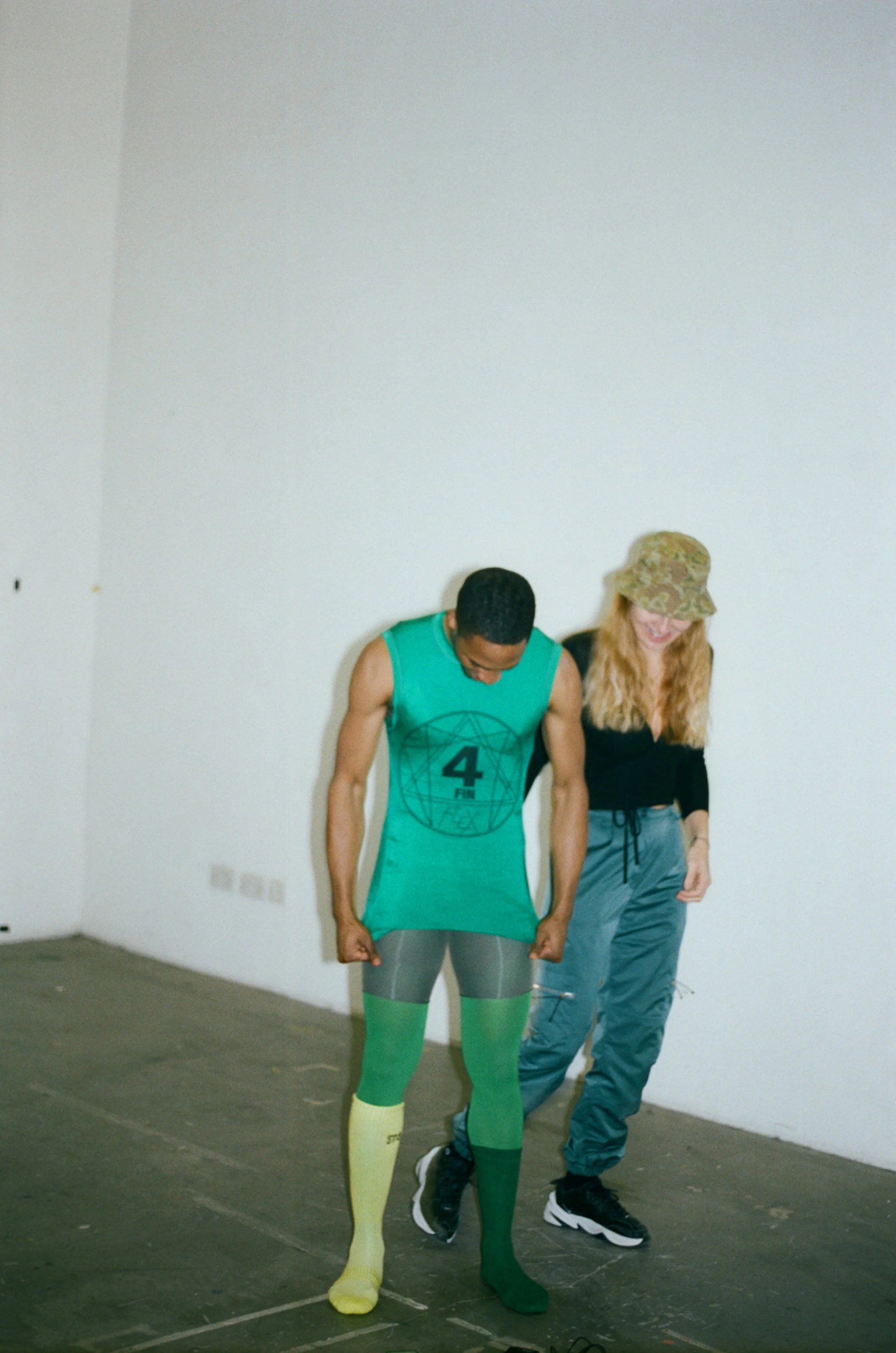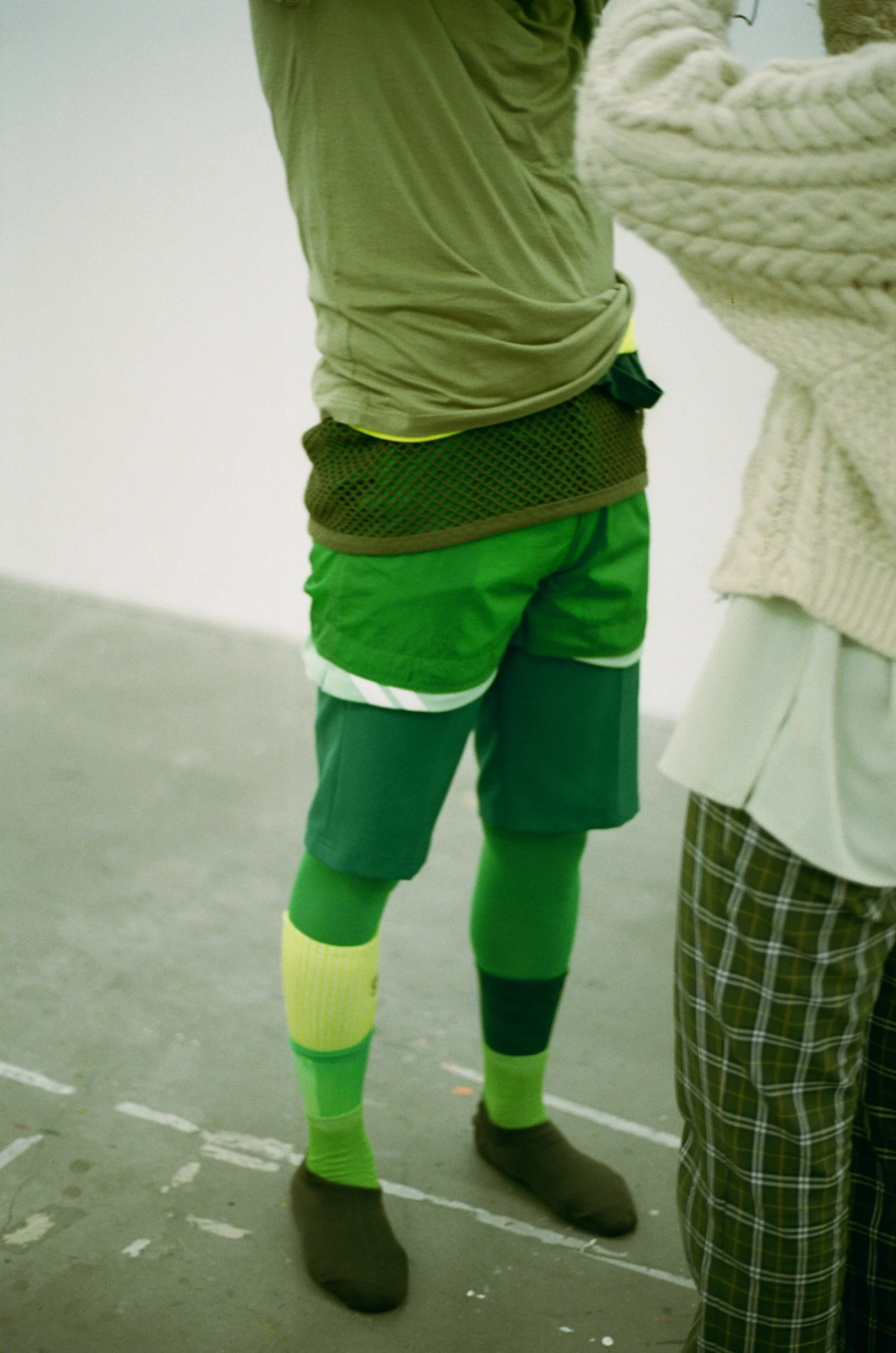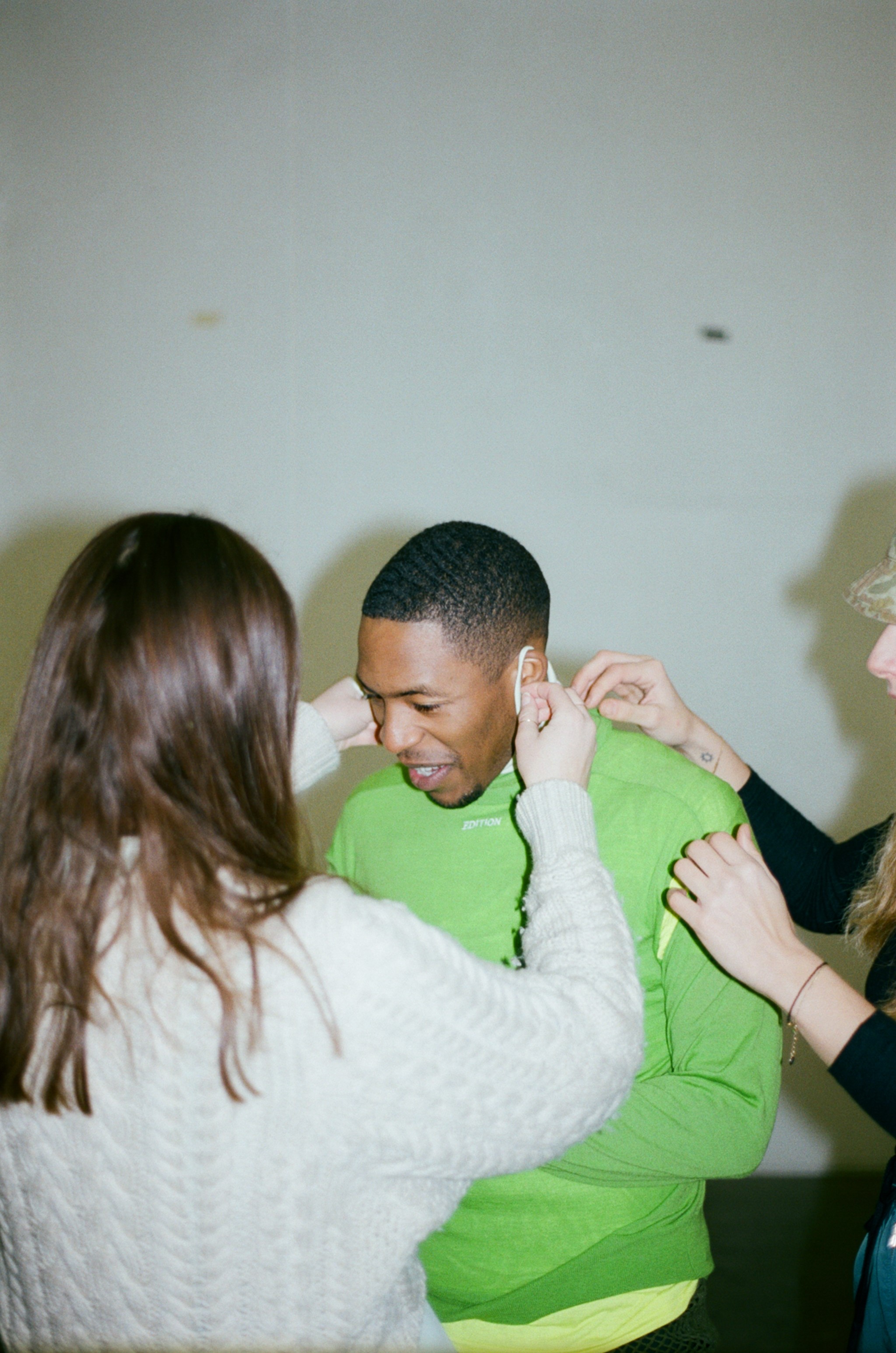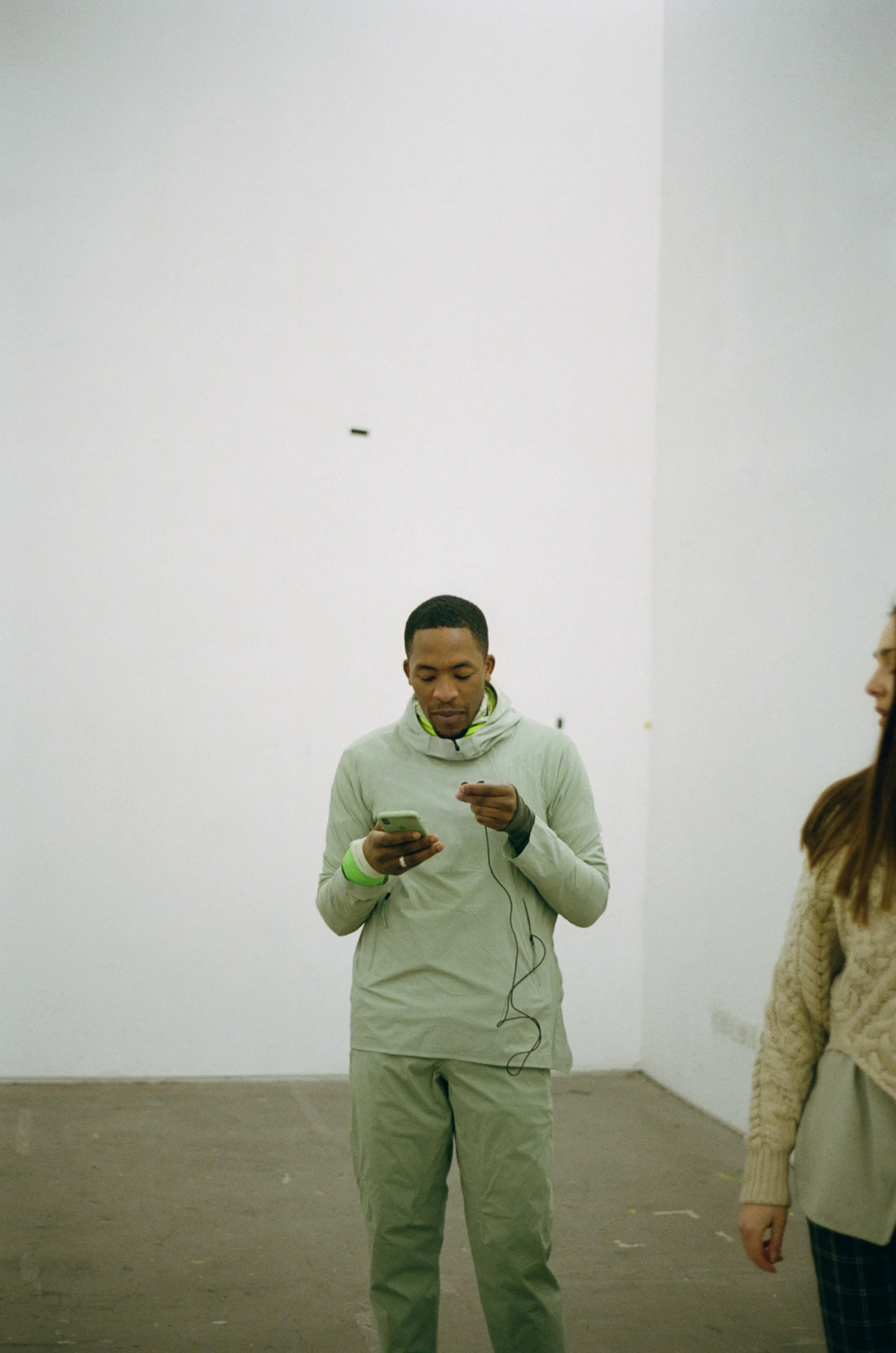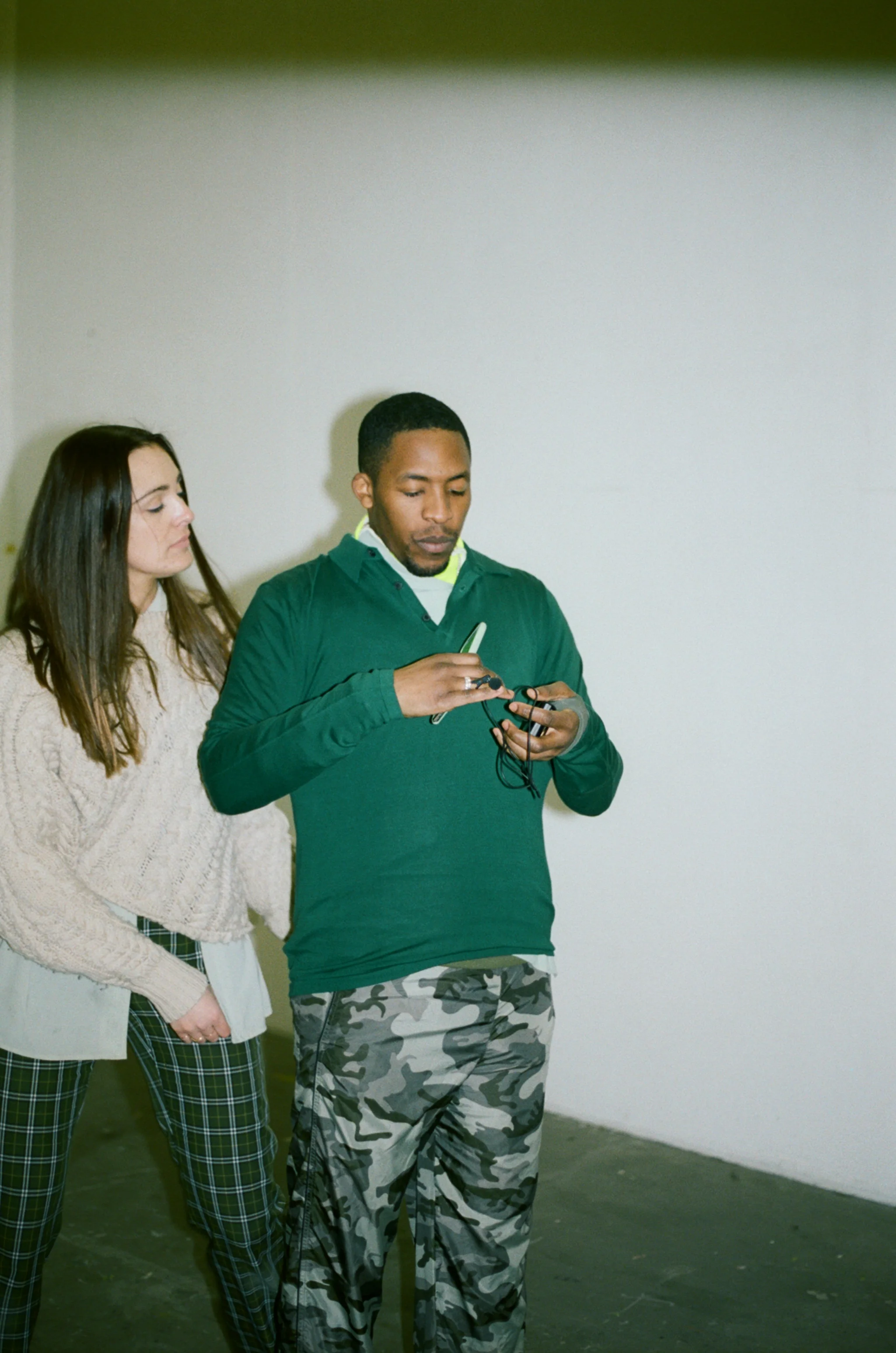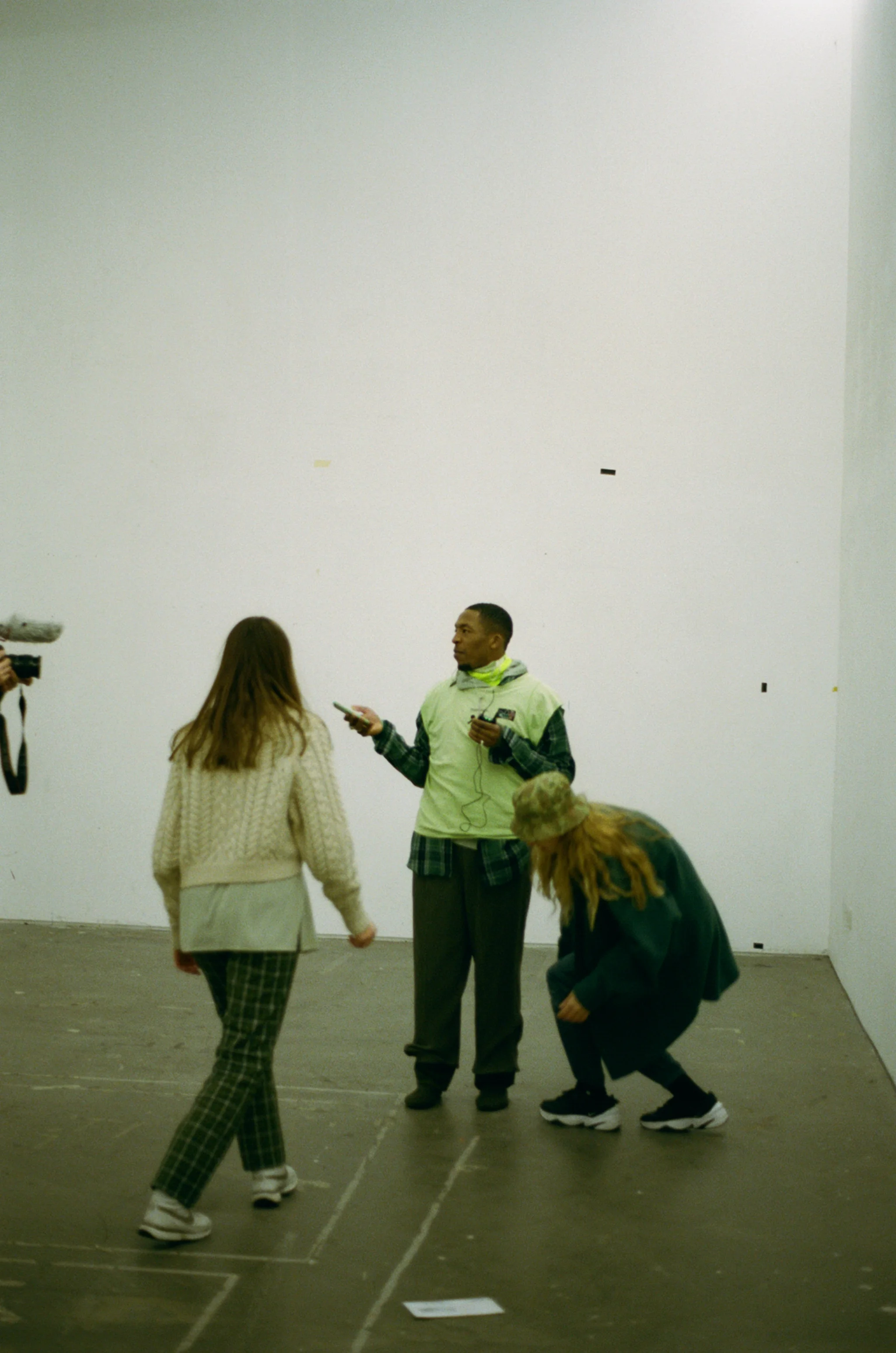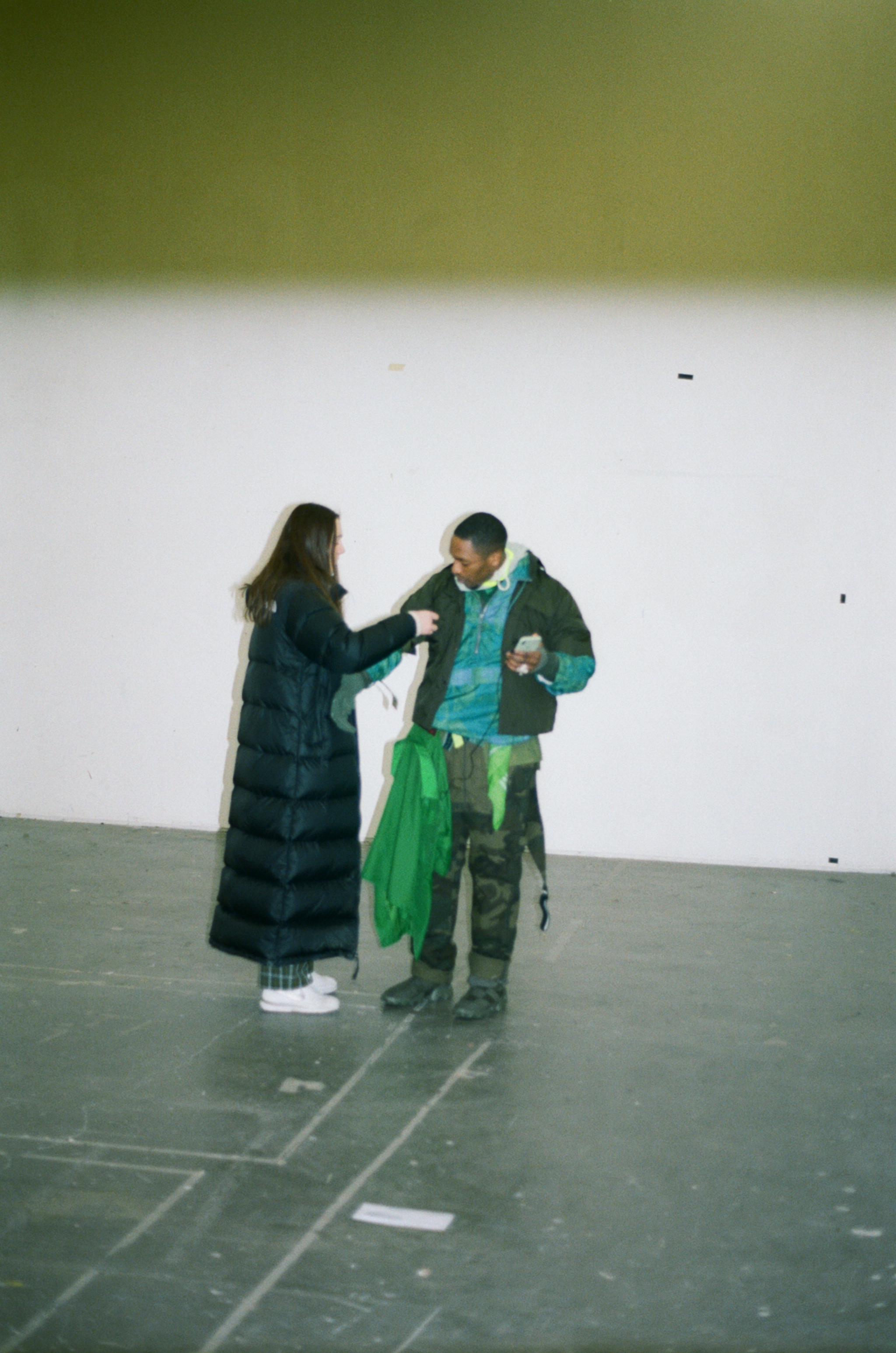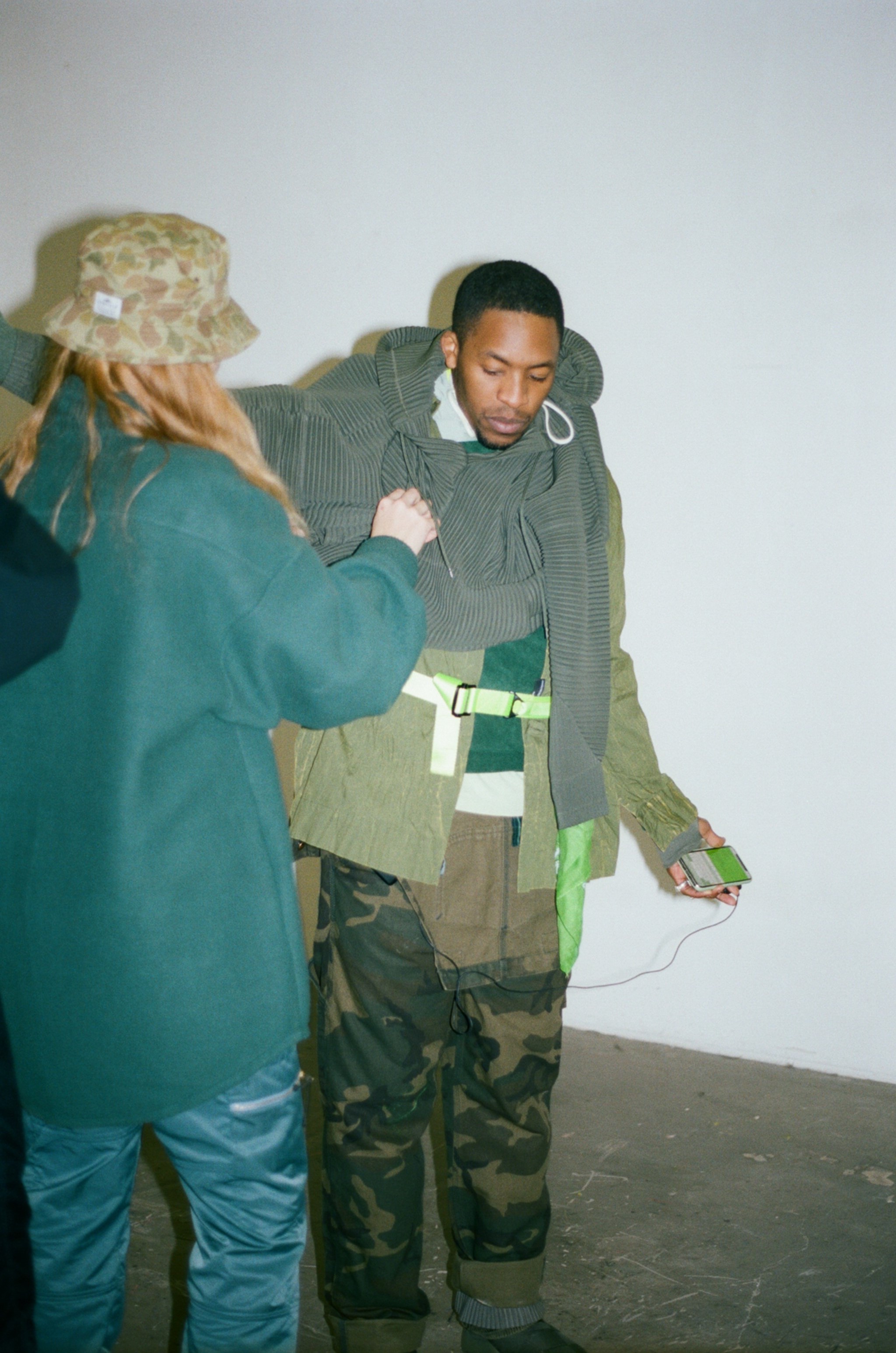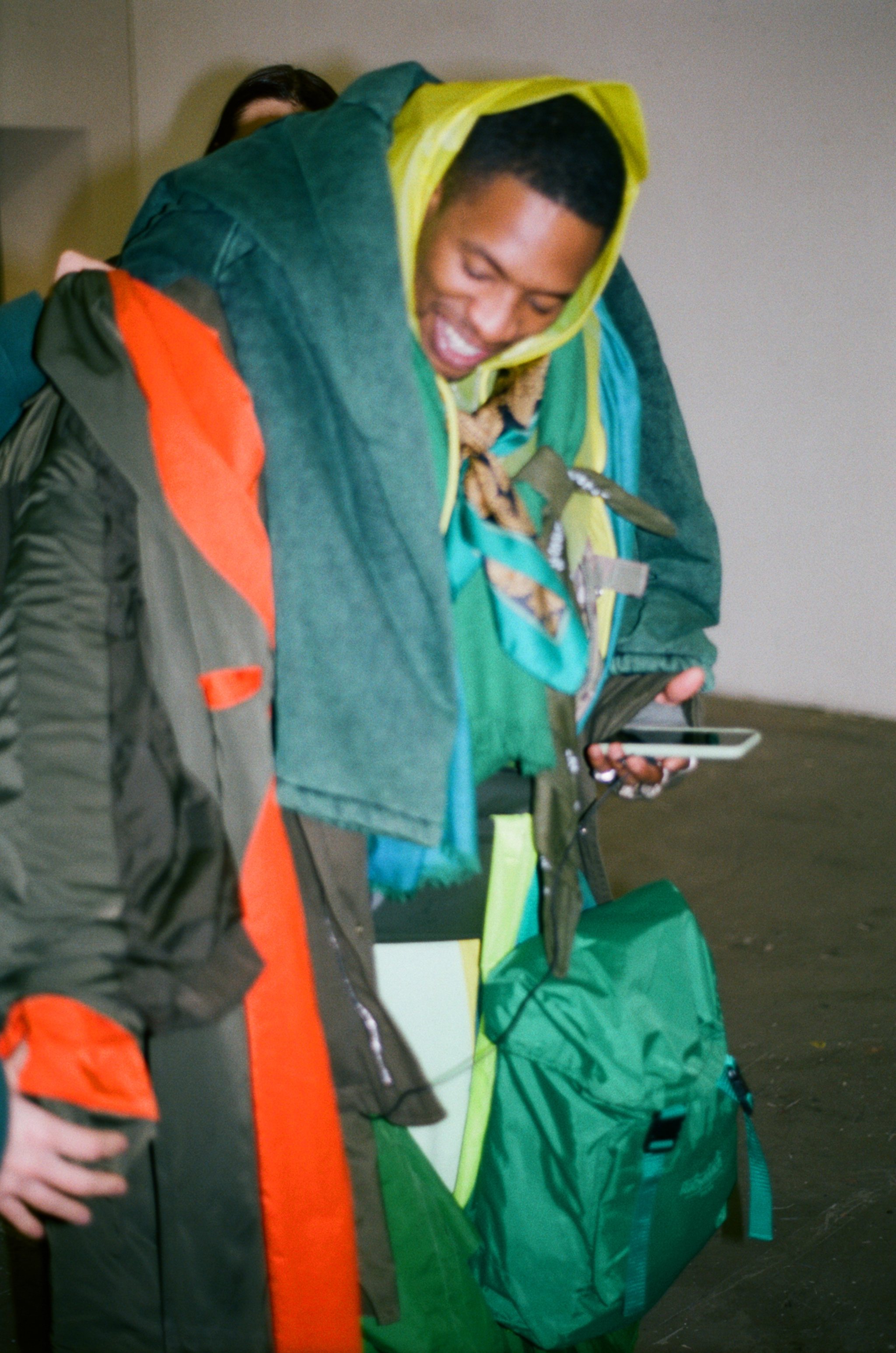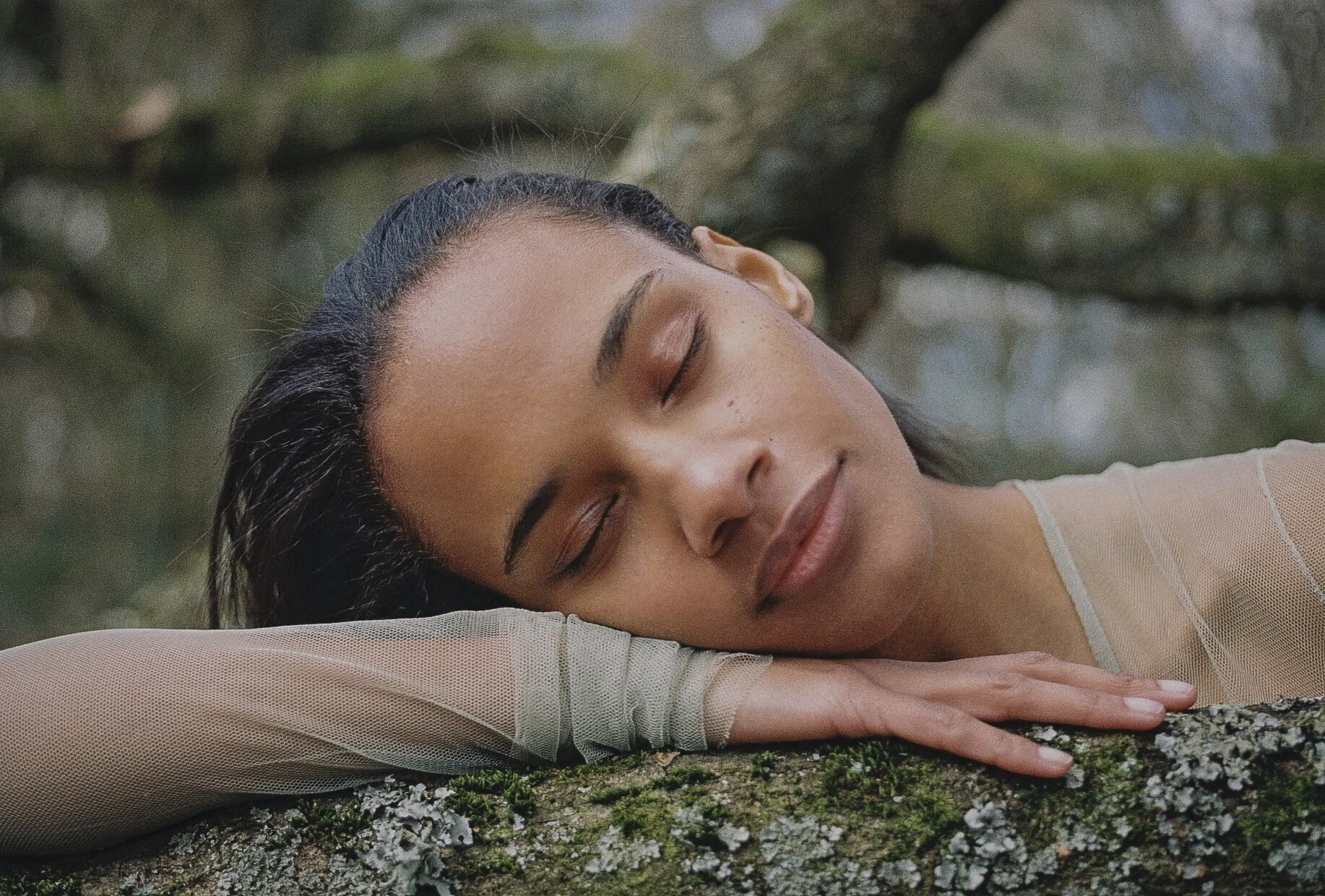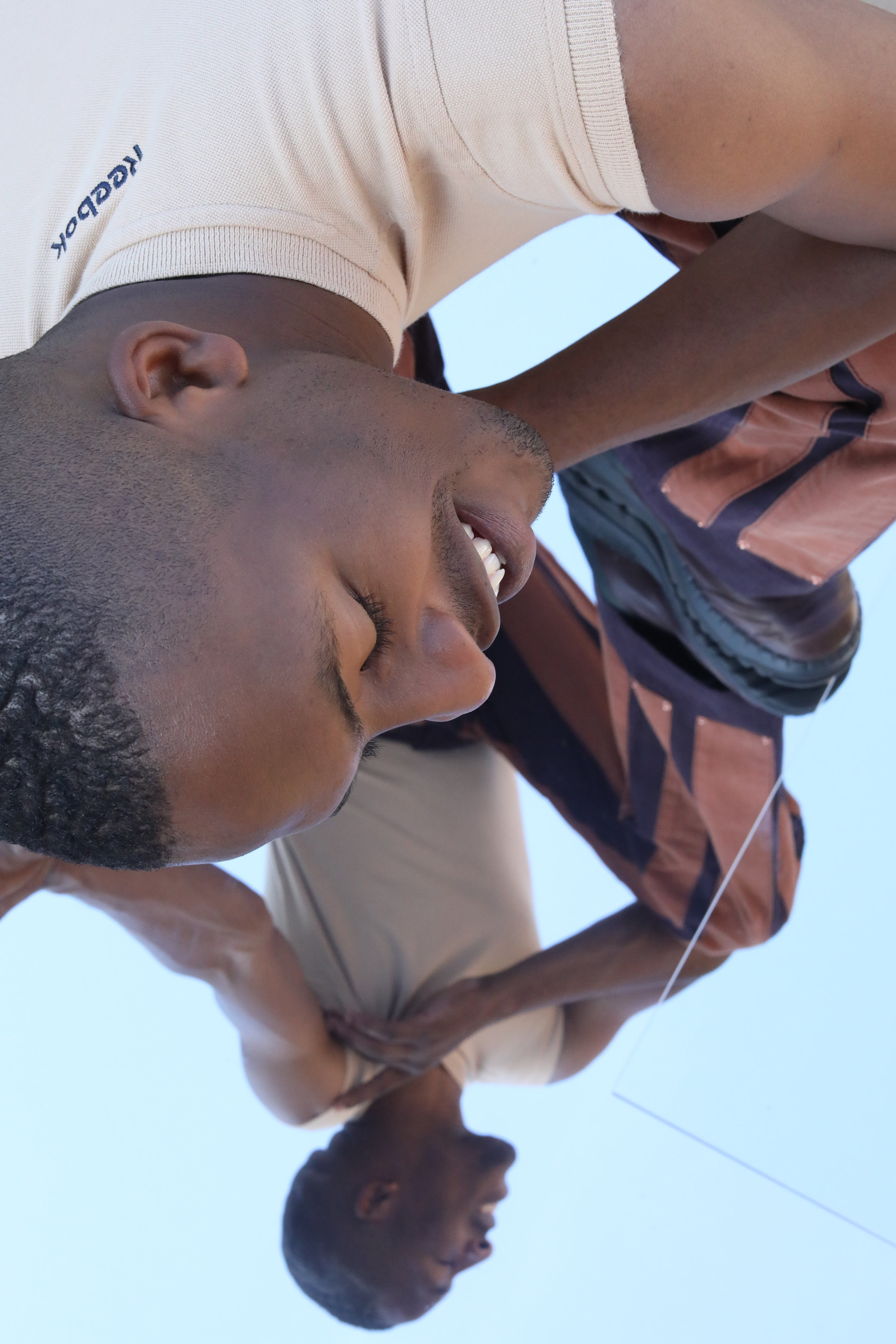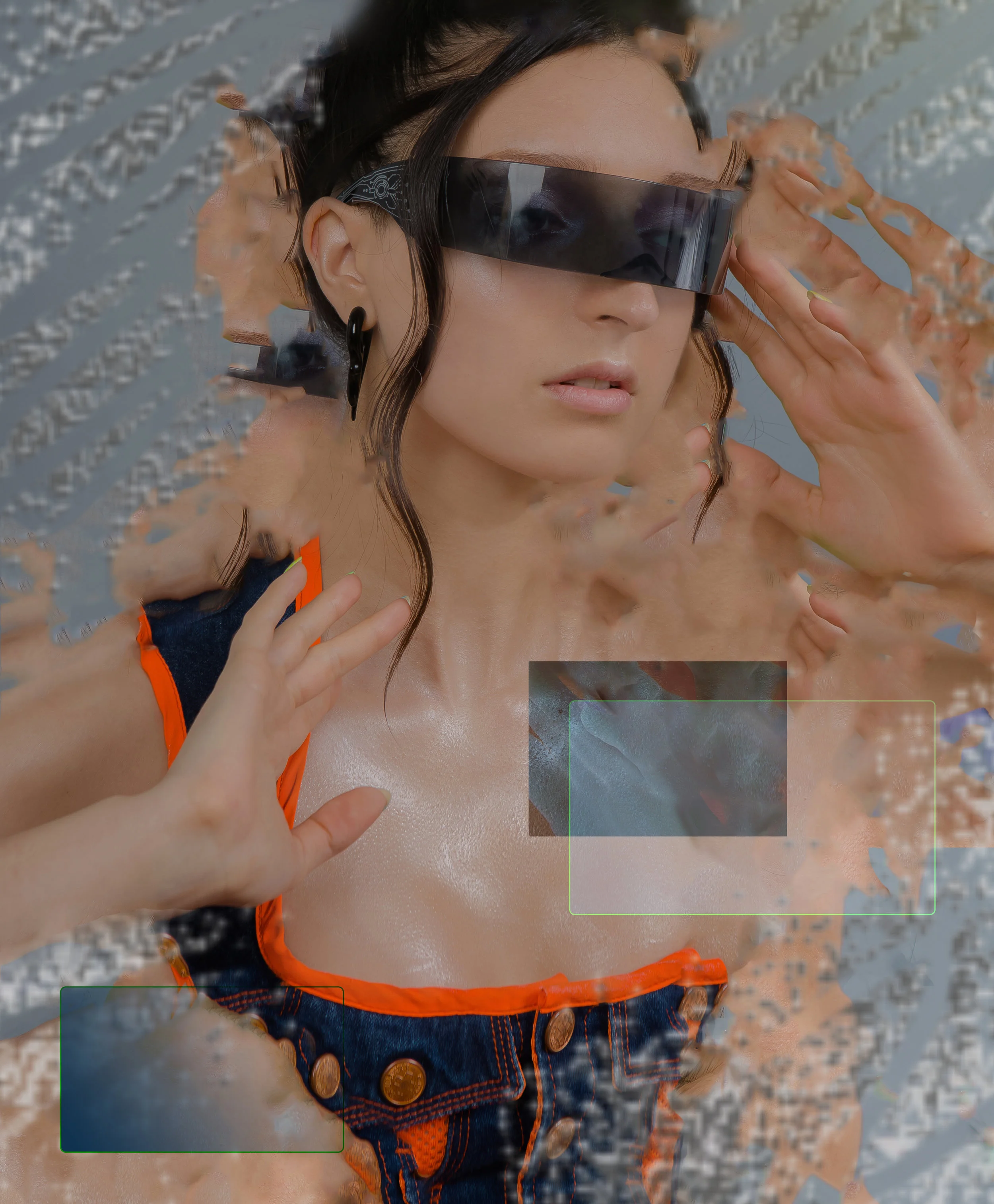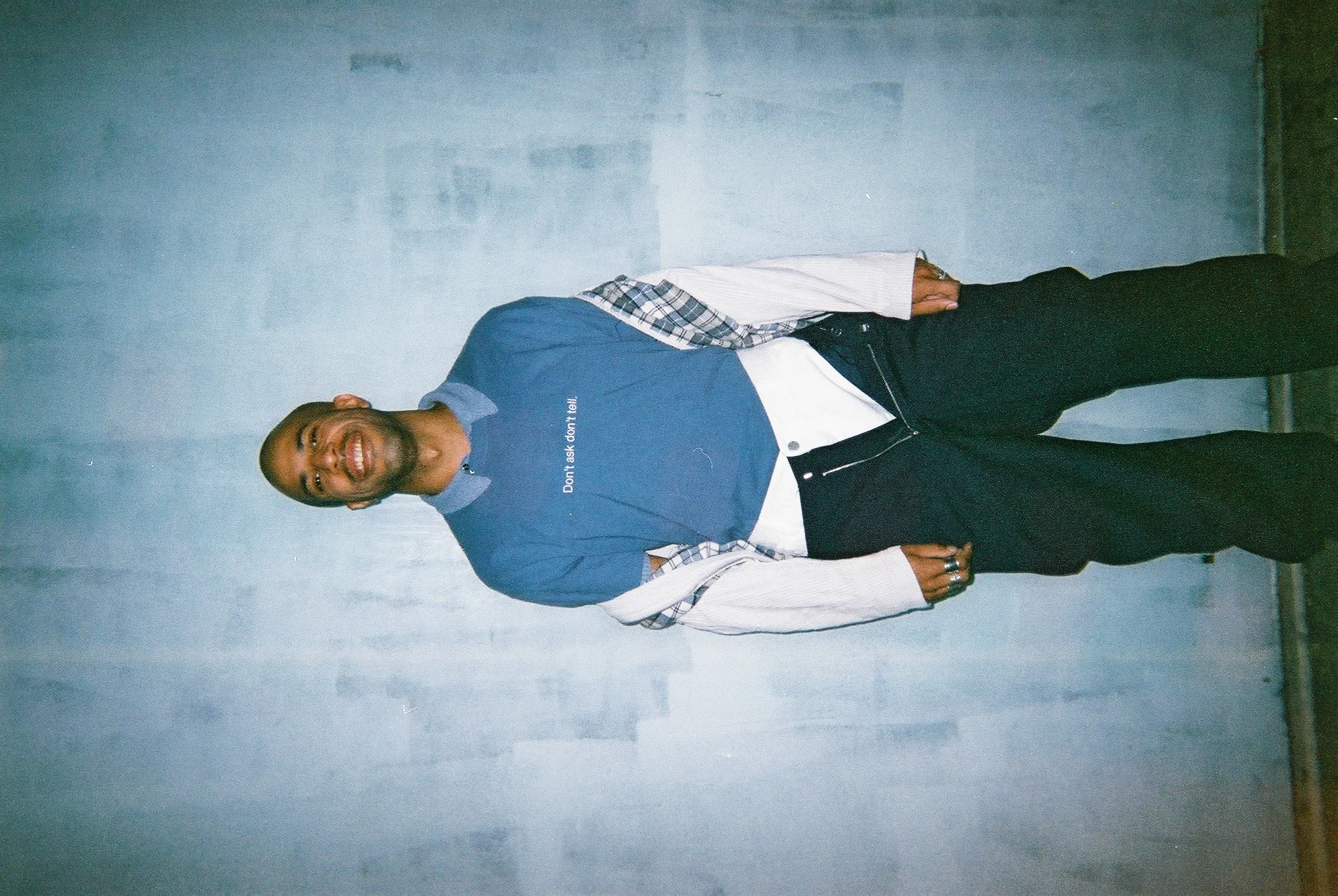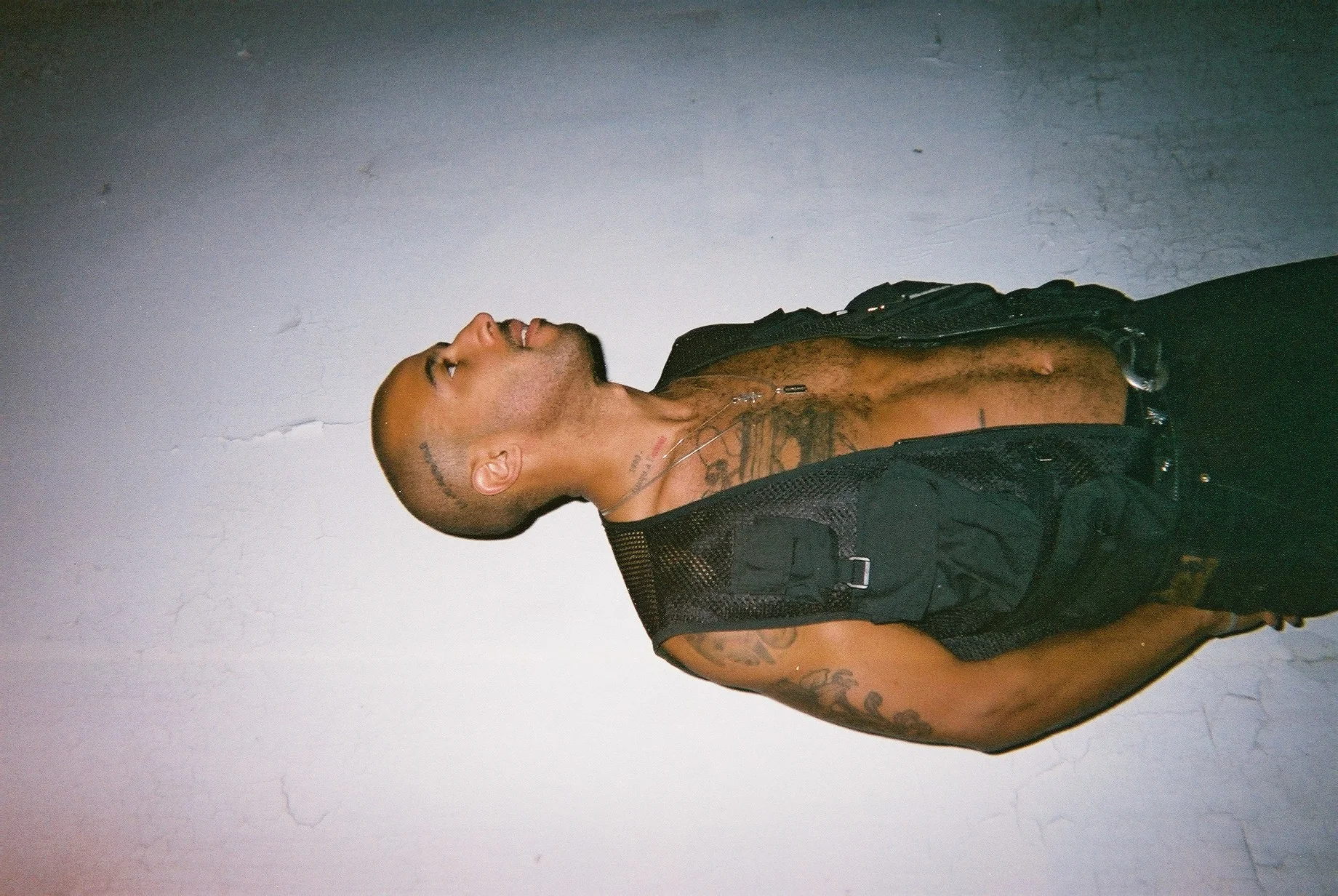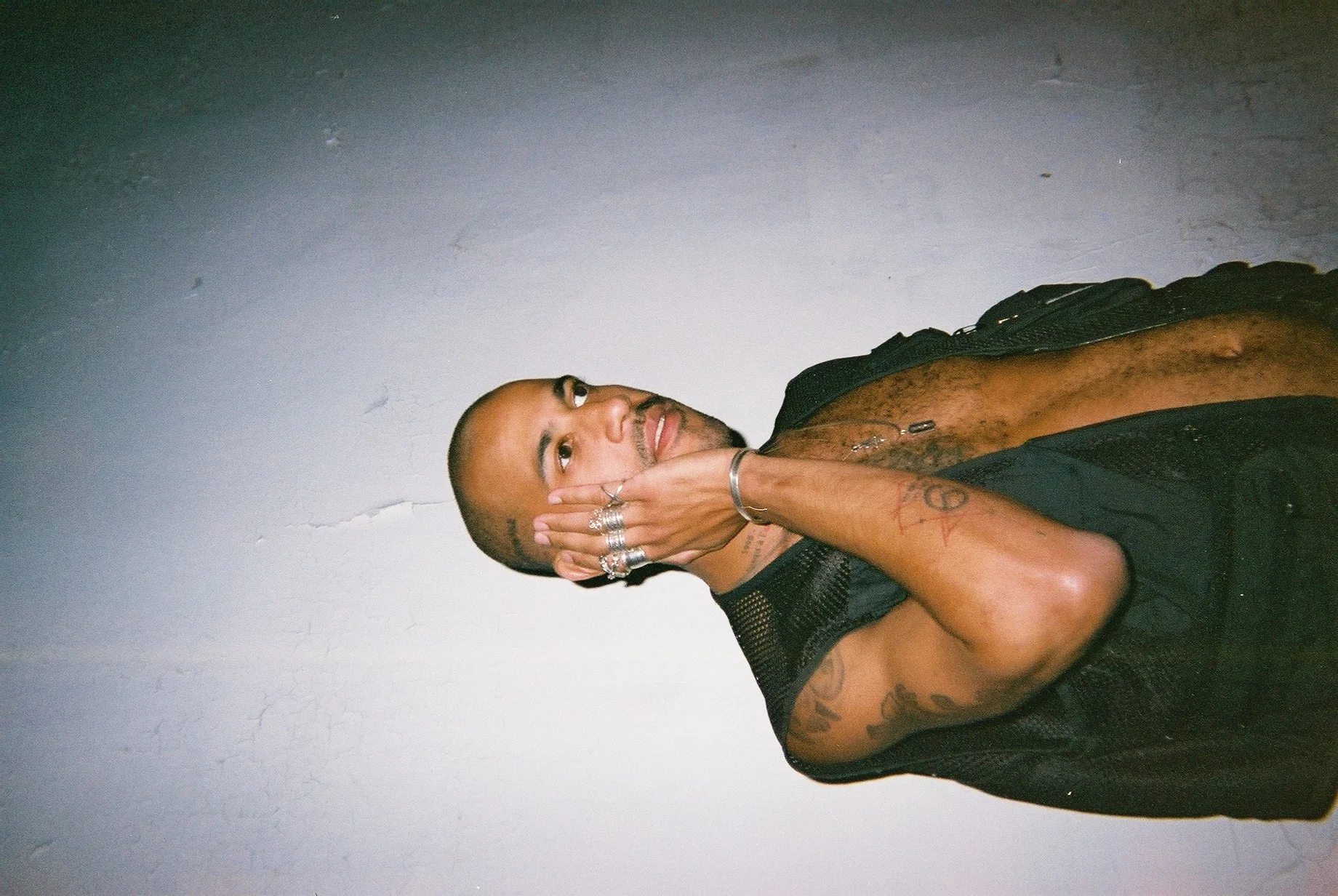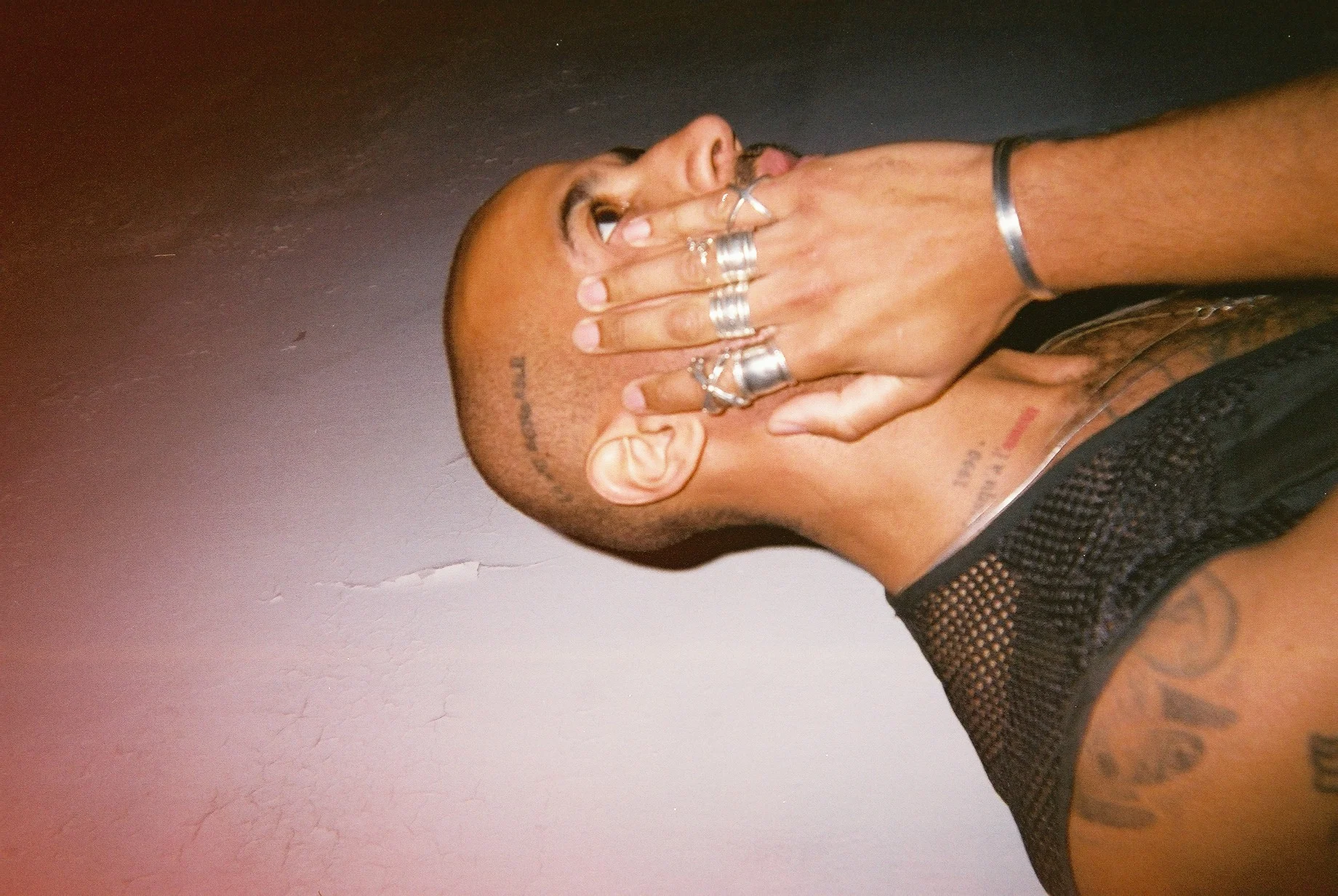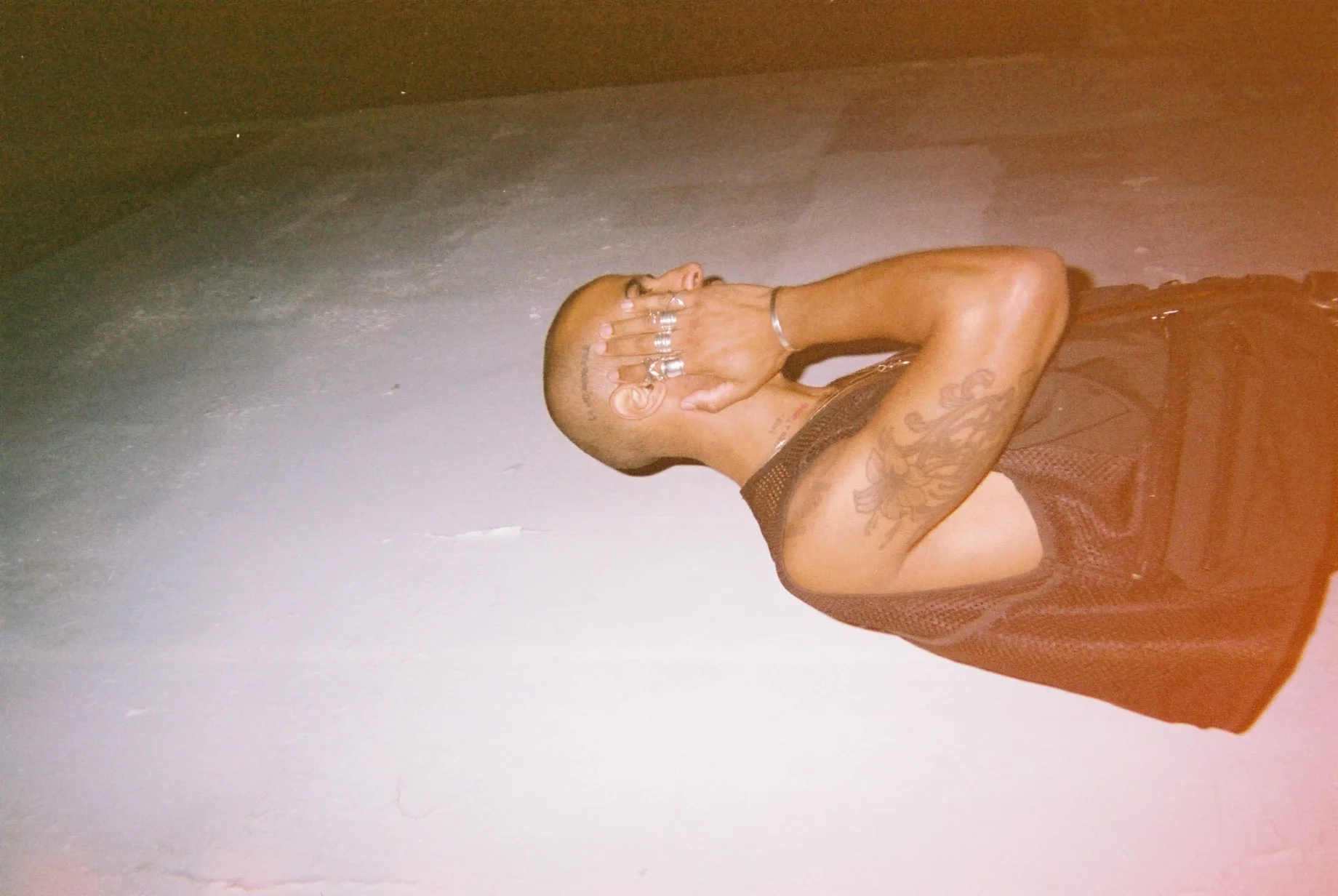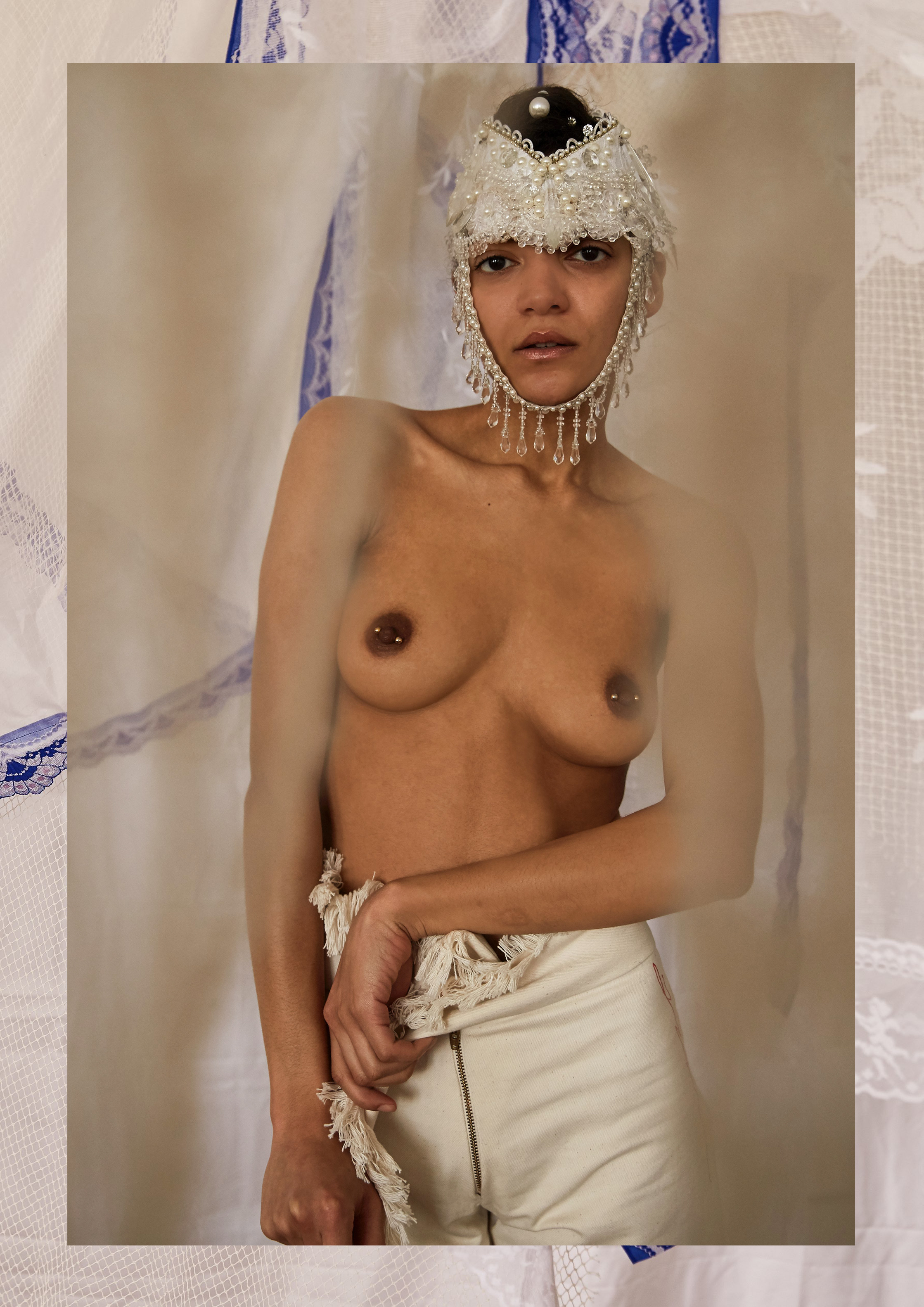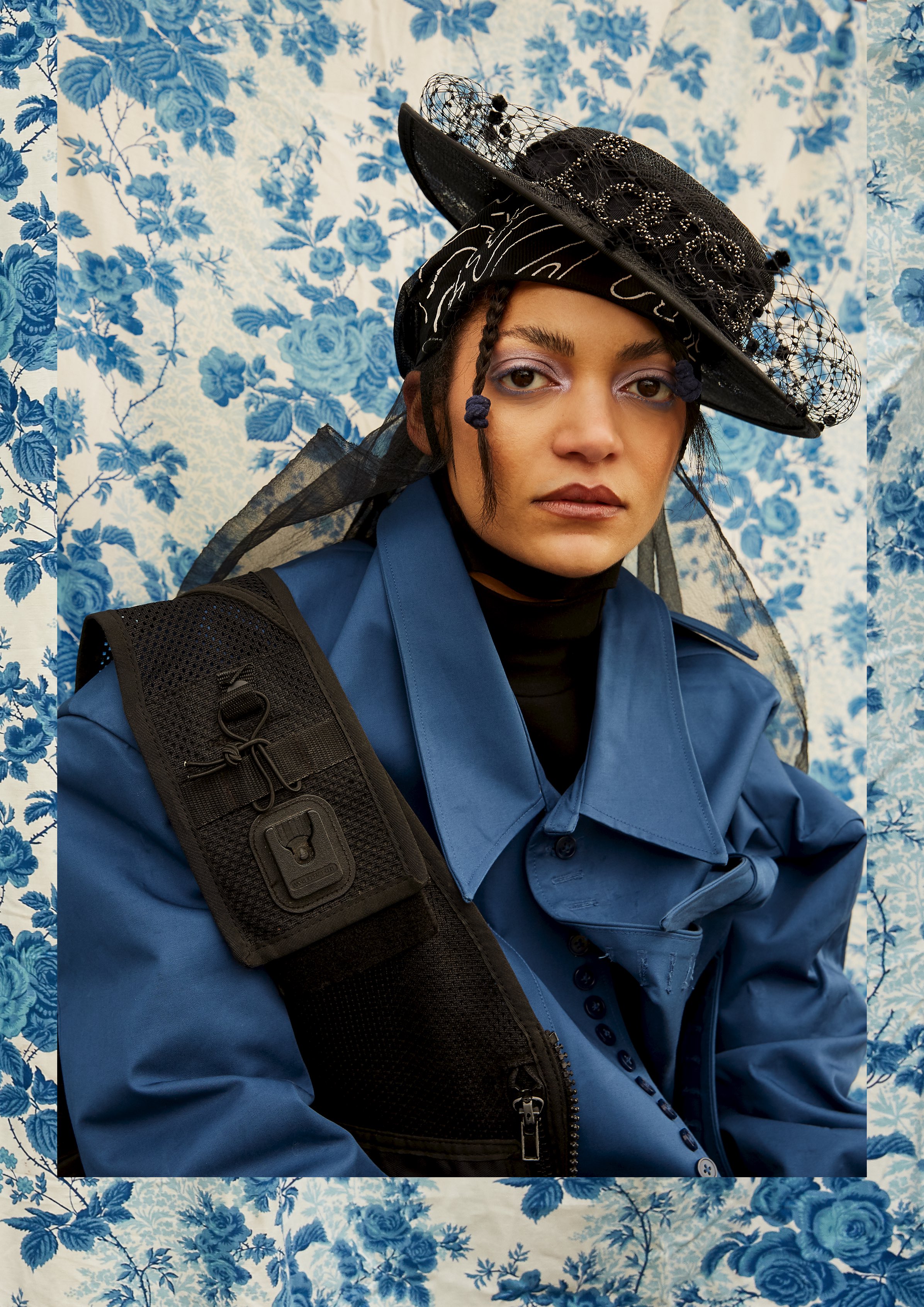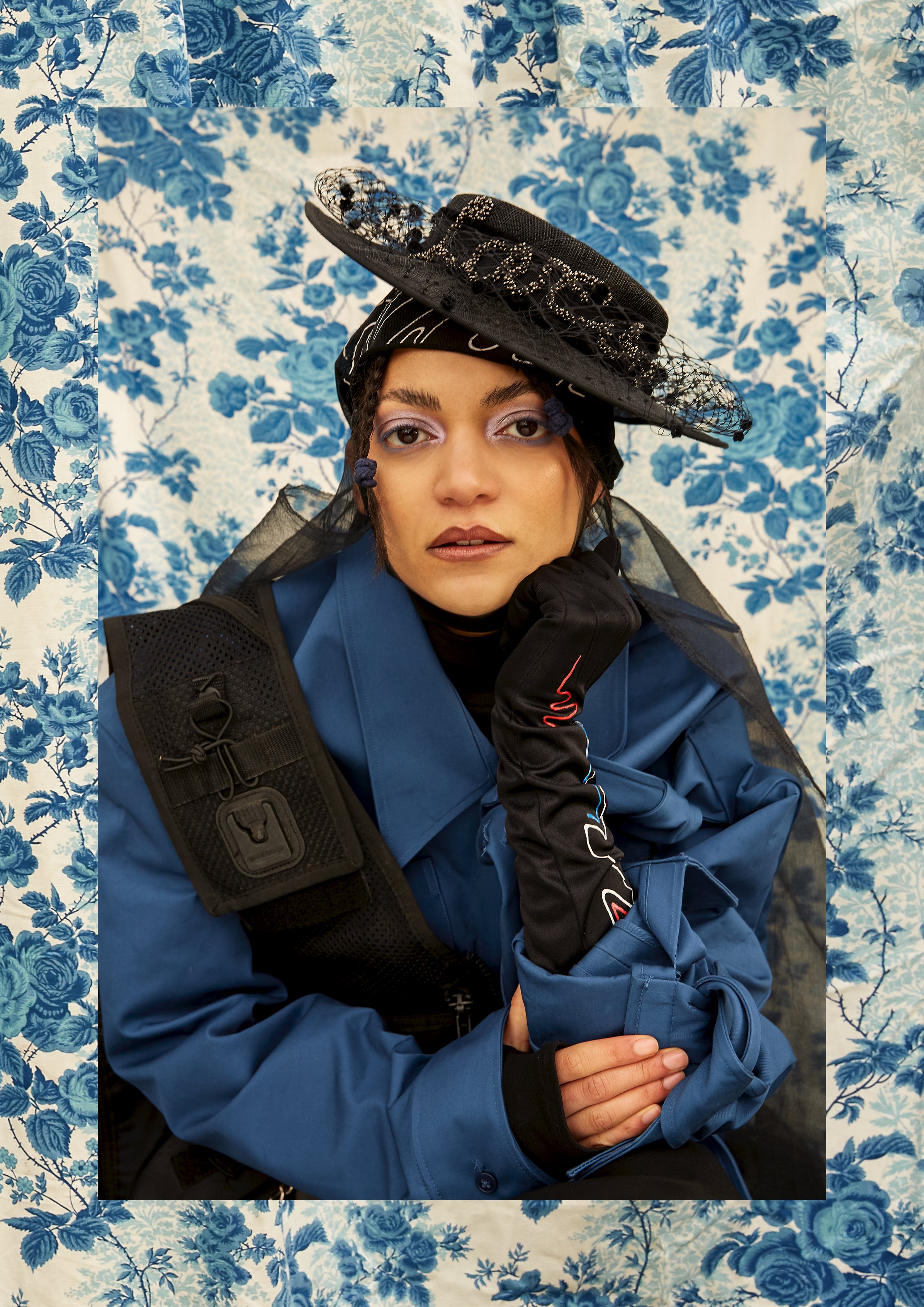http://www.oystermag.com/2018/11/discovering-james-mesiahs-amoral-egoism-philosophy-to-live-by/
TEAM CREDIT
Photography / Sarah Tahon @sarahtahon
Art direction, Set design and Edit / Arielle Grasser @ariellegrasser
Art direction, interview and styling / Léa Federmann @leafedermann
FASHION CREDITS
James wears / Jacket @alexmullins, Shirt @benshermanofficial, trousers @xanderzhou
INTERVIEW
Discovering James Massiah’s Amoral Egoism, A Philosophy To Live By
True religion.
Text by Lea Federmann
You may have heard this name before but, if you haven’t yet, here we are – James Massiah, poet, producer and DJ from South London.
Truth hunter, Maessiah for those in the know, could be seen as a messenger of modern times, here to spread the word about his AE philosophy – amoral egoism — which is his present life motto. At least, for now. Massiah isn’t afraid to say the unsaid, dig into the unknown, break the rules or shake morality, and it’s always with a provocative smile that he raises uncomfortable subjects. His eloquence is singular, goose bumps material when you witness it IRL. A sensation from which I am convinced he has made his name.
Though expressive and outgoing, Massiah tends to keep what comes in limited. He likes to keep his options open, and having to hone one opportunity isn’t for him. Approachable but uncatchable, accessible but unobtainable — a multifaceted poet that is difficult to get hold of. Not only the King of the night or the Don Juan in eyes of ladies, but also quiet introspective and brutal honesty are what we want you to remember of our prodigy. Lured in by an angelic aura, and held tight by smarts, I spoke to Massiah to find out his secrets and understand who he really is.
For those who don’t know you yet, can you tell us a little bit more about yourself?
I am James Massiah, 27, born on the 11th August 1990. I write poetry, make music and organise events.
The poetry — when did it all start and why?
I guess the first time I read a poem in front of a big group of people, was when I was 12 years old in church. Everyone wrote poetry when I was in school so I started doing the same when I was 10 or 11, that kind of age. English was my best subject; I had the best praise for it. I carried on writing outside of classes. There is one poem that I wrote, which went on the family notice board because it was highly regarded by the teachers. One day after church, one of the Pastors noticed this poem on the family board and said that it was amazing and asked if I could read it in church. So, I read that poem in church and the people there enjoyed it and that’s when I realised that I could write poetry and perform it. So I decided to do it more.
Is it the reason why you are making religious references through your poetry? In particular I’ve noticed that there is often an effect on your voice – is there a link with the echo we can hear in a church?
I wasn’t thinking as deeply, but I guess dub and reggae music that has this reverb effect has a big influence on me. Also in modern hip-hop and trap music, they have the auto-tune effect, that is a sort of robotic effect. However, there is a story with my cousin Ishmael, when in a church we were doing a play and we had to have someone to play the voice of God. Someone had the idea that the voice of God should be played by two people — one man and one woman. So they both did the voice and it was like two voices that kind of blended into one. This souvenir would never leave me.
Evoking sensitive subjects, is the robotic voice perhaps a way to dehumanise yourself and create some distance between yourself and what you’re saying?
I think there is definitely a truth in that. I think when you put this effect on the voice or edit it a bit, it dehumanises it and it is less about the word. I think sometimes when someone is speaking and the voice is too present, it can almost feel too didactic and patronising, like if someone is trying to teach you or preach to you. There is a benefit in morphing and shifting the voice and doing something with it — to make it less about teaching and more about art and aesthetic. There are lots of reasons.
How has growing up and studying in a religious environment inspired your journey as a kid and influenced you to become a poet?
I definitely got confidence from that, I wasn’t afraid to speak in front of people. It also happened in school because we were doing this Shakespeare play. My parents were also really encouraging, they always told my brother and I that we were amazing and we could do it. I had really good teachers and Pastor, as well. Even if I went to state school, the school was bad because the students were naughty but the teachers were good, they care and had some interest in how I would do.
Does religion still influence your work today, unconsciously?
I don’t believe in God but I think there is some symbolism. The way that the King James Bible is written to me is so powerful and I find it very beautiful, as well. There are old English words that I would use for a poem that I wouldn’t say in a general conversation. I feel like it removes from the day-to-day life and feels a little bit more special and elevated. I can only say that because I’ve read the bible and known some of the passages.
You lost faith when you were 18 — what happened after that and what has changed in your life since that moment?
I was starting to lose faith and then I started to lose friends because I made it vocal. There is one day where I said to myself: I am going to stop praying. I prayed for my whole life and some of the things I asked for came, some of them didn’t come. So I thought, let me just stop praying and see how life goes. I didn’t pray for a whole month — shit happened, shit didn’t happen and it was just life, you know. I realised that my whole life was a complete lie, but I only got to that point after the Bible stopped making sense. It was more of an academic, scholarly process. I came to the conclusion that the voice in my head, which I thought was God, was just me, my inner voice, my conscience. Sex and drugs are the things that have changed in my life since I’ve lost faith. Those things didn’t happen at all before.
Would you say that poetry is like a curative process?
Yes, a lot of the issues I have in life are solved by writing about them — the same way that some people have a conversation with someone. I hate to say this word because it’s cliché, but it is true: it is almost like a therapy. A page becomes like a counsellor or a therapist and you work it out as you are writing it. There is also the beauty that comes from putting it with a certain aesthetic, writing in the way you find it beautiful — the rhythm, rhyme or the kind of pattern of words. It’s like you are solving the puzzle of the poem how it is going to sound the best to your ears, and you are also solving the issue of this heartbreak or this missed opportunity. This is what I found from my end.
Ben Sherman shirt, Alex Mullins jacket, Xander Zhou trousers
You’ve developed a really unique style, it could almost be blend with slam nor religious speeches — what is the message you want to convey through it?
The intention is to spread my AE philosophy of Amoral and Egoism, nihilism, and determinism. All my poems contain those messages, without necessarily having to say the words. When I say ‘Amoral’ it doesn’t mean that I extol a society with chaos. My definition of ‘Amoral’ is that I want to destroy morality in more people minds and have more people who are more informed about the real reasons why they do what they do.
Can you give an example?
For instance, I am not giving to charity because I am a good person, I am giving to charity because I am a selfish person and it is in my self-interest to give to charity. Donald Trump is not a bad person — he is doing what he is doing because it is in his self-interest to do what he is doing. He is not worse or better than me, but what he is doing is against what I value in life and I am going to combat him. This is actually why I left religion because I was questioning what is real in life. I can appreciate bullshit, I can appreciate a lie, and I can appreciate a fairy tale and a myth — so long as I am aware of what the truth is. If everyone around you is laughing and you don’t know why, it can be really hard. I felt like that sometimes in church. The joke wasn’t about the people in a church, the joke was out there still and I didn’t get it. Now that I would say I am a nihilist or determinist I feel like I know what everything is already so nothing can make me feel uncomfortable.
How and why did you get to the point of creating this AE philosophy?
It got to the point where there are these different philosophies that inspire me to write and I realise that they didn’t make sense. At the time, I was on the hunt to find some sort of like foundation or threat that could run through all of my writing, that was true. I went to do these researches, benches on the internet, looking for these philosophers and ideas. Nowadays, everyone is activist – into liberalism, feminism, black lives matter or something else. A lot of people would assume that if you are against that sort of ideas, it is because you want to be. That is not my issue – I want to have fun parties with people from all different races and genders. My issue is about the maths and sciences. There are different logics but it is about a logic that is consistent to me – If you say this thing and that thing and they contradict each other, then your philosophy doesn’t make sense but if you say this thing and that thing and they still live together, you’ve got a system of mathematics that could build a bridge. That is why I’ve invented AE for Amoral Egoism, which is the truth of everything to me.
What is your poetry style and in what kind of spaces do you tend to perform?
My whole thing with poetry is – there is nice poetry when people write about flowers and trees but for me what I connect with in art generally, is about stand up comedy – comedians who swear a lot. It is about being uncouth and irreverent. The kind of thing you couldn’t say in church on a Sunday in front of the kids, the husbands, wives, family, and grandparents. That is the space I want my poetry to occupy. There are no manners in this and the place where I tend to read it, generally are places where people are ready for that.
What are the topics that you and your community like to raise?
A lot of my poetry is about sensitive topics or personal issues, things that are hard to talk about. Subjects that are difficult to discuss day to day with ‘normal’ people, in an office. I learned in church that a lot of people do a lot of things but they have a veneer or a mask — some people will do things for the image and some other will give the impression they don’t do some of these things. That is the way a lot of people function in society. If that is how they want to do it, it is fine. It is the same with my parents, I try to maintain our relationship by not saying what I am like or expressing my ideas, even though they probably know what I am like but it is almost harder if that become the case. Sometimes it is just easier not to say the truth.
Have your parents seen any of these?
I am sure they have seen some of it. There is this rap I did, where I’m talking about marriage, and my dad asked me if I was still a virgin or not and I said yes because it is just easier. I would have imagined that if my dad knew that I wasn’t, he might have asked me to leave the house.
Pretending to be blind for the sake of the relationship, is that the way your parents have decided to act with you?
They just want to ignore it. I think that is definitely a part of our relationship but I don’t ever tell them this stuff. I don’t say where I was even when I am away for 3-4 days in a row.
So according to you, the truth doesn’t set you free?
No, not always! I mean it can, but free to what? Free to go or free to be depressed and commit suicide?
Yeah but sometimes you know the truth, without having to hear it, isn’t?
Sometimes you think you know the truth but there is a truth that comes when you both acknowledge it. It is almost like you could be on a date with someone, you both know that you fancy each other but then if you don’t say it, you just go home and nothing happens. There is always this thing in life — I feel it is almost easier sometimes to text someone than to be with them and address something at that moment. There is a fear of what can happen at that moment and the fear of being rejected.
If you like someone, would you always say it?
Not always. Sometimes it is not worth it, it depends on how much. We were talking about selfishness before and I think the airy human being has this thing in the head of profit and loss. I believe that everyone has this thing in life about saying the truth in public and sometimes they have more to gain by keeping it secret.
There is a common thread in all of your visuals and videos — mostly in black and white, nostalgic yet authentic, always suggesting/offering many possibilities. Do you work on your own art direction?
Yes, and I edit them myself as well. I use the Boiler Room camera and a little GoPro, and there is an app that I use on my phone as well. I like the idea of always having different possibilities. Why does it have to be just one thing? Everything, all at once.
Like an orgy?
[Laughs] Yes, exactly!
Ben Sherman shirt, Alex Mullins jacket
Congratulations on the launch of your first book ‘Euthanasia party- twenty-seven’. What would you say it is all about?
It is about death so it is about life by default. So if it is about life, it is about sex by default but the central element is death and the way you connect with that. Euthanasia means good death so I am just exploring different way to die. The whole purpose of this book is that there is someone that was meant to die but he didn’t – so it is also about determinism.
Would you like to be 27 years old forever?
That is probably the best question. I am going to say it to you honestly right now — this year has been incredible. My 27th year of life was incredible. I think it was the most different from all the rest of the years. Twenty seven was the beginning of another me. It is almost like night and day, there is a point in which it is dark and it becomes light. And it is light and it becomes dark. The idea of being 27 forever, I guess is no, but also: waaah, what a year!
Do you think that something has really changed since you are 27?
Yes definitely. My first time [having sex] was when I was 20 and had a girlfriend for a while. Something happened at age 24 and, for a number of reasons, I was celibate again until I was 26. I decided that, because of things that I experienced at the time — heartbreak, trust issues, STDs, pregnancy — all these different things that I was scared of. There’s lots of stuff I really shook off at 27 that I would’ve still clung on to.
I guess they are the fears and guilt we all have. How did you get rid of them?
Read more of George Orwell and Albert Camus.
I know you said you aren’t afraid of anything in ‘Shook To Death’ but, really, what is your greatest fear?
When I was in church with my mum when I was young, she asked me the same question and I said, “For me to get in trouble for something I didn’t do, or for someone to get praise for something that I did.” Both have happened and I am still alive today.
To finish, what would be your poem of life?
I know that everything I see,
Is just the way it is meant to be,
And if it ever changes state
Then nature sought to seal its fate
Nothing’s right, nothing’s wrong
And everything’s where it belongs
And if I seek to change a thing
It is up to me because I am the King,
By James Massiah.



